TheParliamentarian



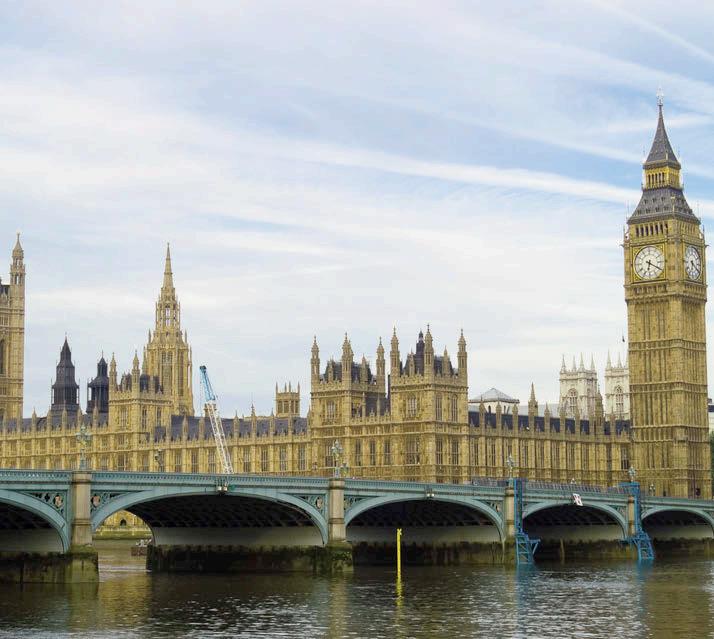
Background information
The Association of Commonwealth Serjeants at Arms Professional Development Conference will be hosted in the House of Commons in late July 2009.
The conference brings together Serjeants at Arms from all parts of the Commonwealth and provides a fruitful platform to discuss the shared experiences of managing and supporting parliamentary democracy.
The themes of this year’s conference will be security and access management, delivery of services to Members and links within the Commonwealth.
l This international conference is held in London every five years
l Delegates will attend from over 40 Commonwealth countries (some, for example Canada and Australia, will send delegates from a number of Provinces/Regions)
l The conference lasts for four days
l Links within and between global regions are encouraged, for example through the Commonwealth Parliamentary Association (CPA)
l The link between the City of London and the Commonwealth will be a focus this year
l There will be a complementary programme for spouses/partners
l There is a registration fee of £100 sterling for delegates and £50 sterling for spouses/partners
l The House of Commons will provide all meals and conference travel for delegates and spouses/partners for the four-day period
l Introduction to Parliamentary Procedure;
l Flights and accommodation are funded by the delegate’s own Legislature
l The conference has the support of the Speaker of the House of Commons.
For more information, please contact Ms Jill Pays, Serjeant-in-arms on: +44 20 7219 3030.
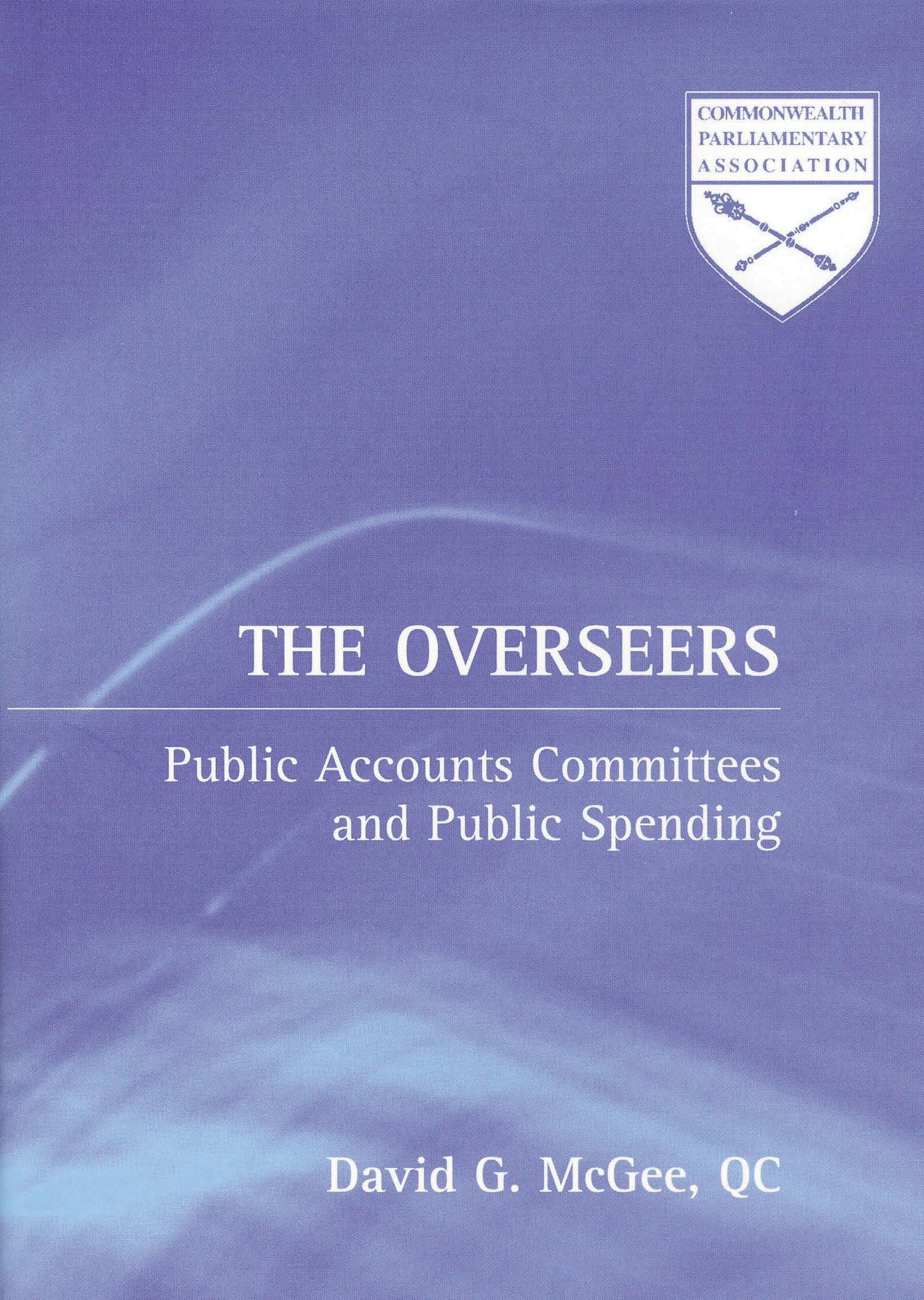

Journal of the Parliaments of the Commonwealth
Vol. XC
2009: Issue One
ISSN 0031-2282
Issued by the Secretariat of the Commonwealth Parliamentary Association, Suite 700, Westminster House, 7 Millbank, London SWIP 3JA, United Kingdom
Tel: (+44-20) 7799-1460
Fax: (+44-20) 7222-6073
Email: hq.sec@cpahq.org www.cpahq.org
Editor: Andrew Imlach
Director of Information Services
Assistant Editor: Lisa Leaño
Front cover Commonwealth bridge in Canberra, Australia.
Image: Shutterstock®
Printed in England by Warners Midlands, PLC, The Maltings, Manor Lane, Bourne, Lincs PE10 9PH
A Commonwealth for the futurea future for the Commonwealth Page 4
VIEW FROM THE CHAIR
Promoting Parliamentary rights and responsibilities in challenging times Page 6
VIEW FROM THE CWP Eliminating discrimination against women Page 8
VIEW FROM THE SECRETARY-GENERAL
The plight of developing countries in the global economic and financial crisis Page 10
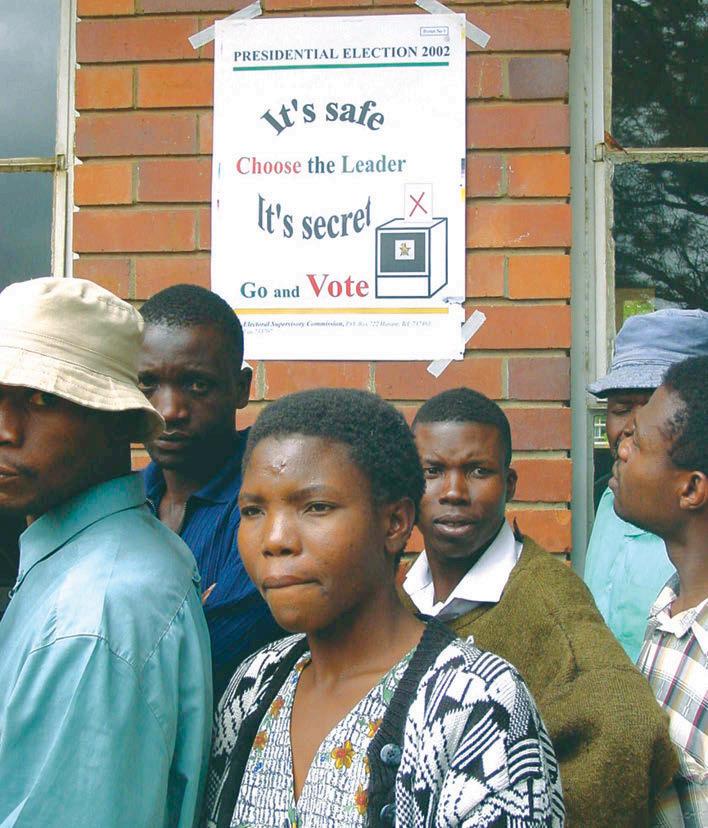
THE COMMONWEALTH AT 60: THE ROAD AHEAD
Shri Pranab Mukherjee, MP Page 14
THE COMMONWEALTH OF NATIONS: A 21ST CENTURY PARTNERSHIP
Rt Hon. William Hague, MP Page 18
THE COMMONWEALTH AT 60 - RELEVANT THEN, RELEVANT NOW
H.E Mr Kamalesh Sharma Page 24
CHANGES AHEAD FOR THE PEOPLE OF THE MALDIVES
Mr Mohamed Shihab Page 30
MAKING THE WORLD A SAFER PLACE
Hon. Kiramatullah Khan, MPL
Page 32
RAISING AWARENESS OF HUMAN TRAFFICKING
Ms Shazia Khan, MPL
Page 34
ENGAGING CITIZENS TO ENHANCE THE DEMOCRATIC DIALOGUE IN RWANDA
Sen. the Hon. Wellars Gasmagera Page 38
PUBLIC CONSULTATION IN A SMALL JURISDICTION
Mr Quintin Gill, MHK Page 42
LOOKING BACK IN POLITICS
Mr Andrew Tink Page 44
REACHING THE MASSES: LOK SABHA TV EXTENDS ITS VISITORS’ GALLERY
Shri PDT Achary Page 48
ESTABLISHMENT AND OPERATIONS OF THE PAN-AFRICAN PARLIAMENT 04-08
Mr Merumba Werunga Page 52
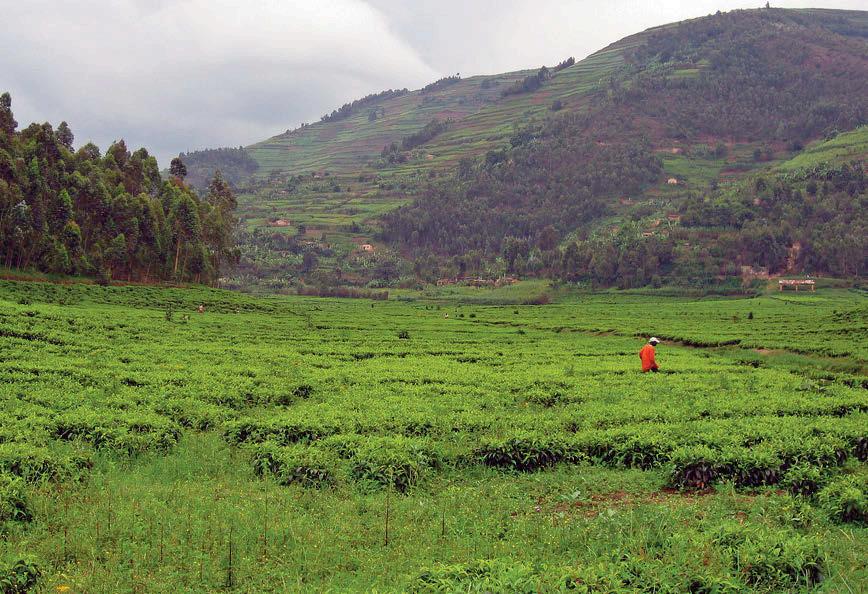
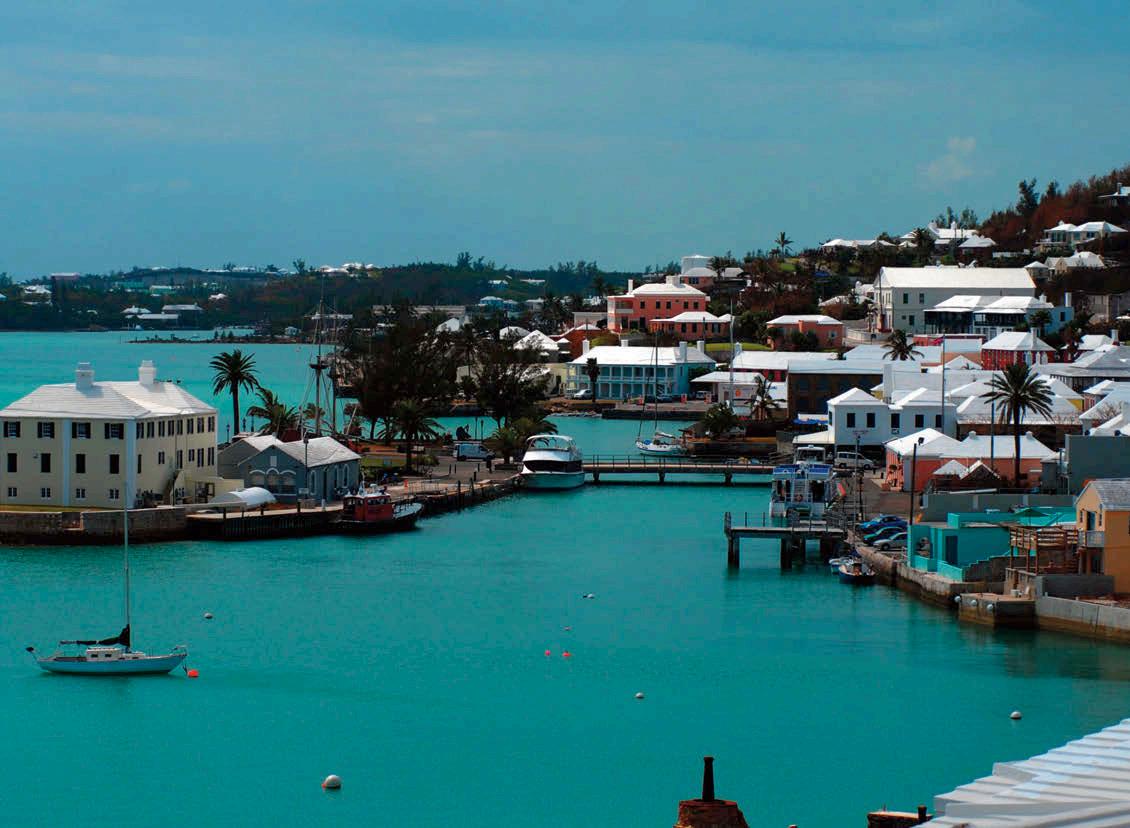
A WORLD FIRST FOR NORFOLK ISLAND
Mr Peter Maywald
Page 58
MANAGING PARLIAMENTARY DOCUMENTS: NEW APPROACHES IN THE BRITISH PARLIAMENT
Dr Richard Ware Page 60
BUILDING PARLIAMENTARY CAREERS: IMPROVING INDUCTION
Mr Ken Coghill, Mr Ross Donohue, Mr Peter Holland etal Page 64
BOOK REVIEW
Mr Paul Belisle
Page 88
PARLIAMENTARY NEWS
Australia, Canada, India, New Zealand and United Kingdom
Page 69
CPA ORGANIZATION
Page 89
BUILDING A STRONGER TOURISM INDUSTRY IN WEAK ECONOMIC TIMES
Premier Dr Ewart F. Brown, JP, MP Page 2
THE CHALLENGES TO GROWTH, TOURISM AND AGRICULTURE
Hon. Kim Swan, JP, MP Page 4
CELEBRATING THE DEVELOPMENT OF BERMUDA’S MODERN PARLIAMENT
Hon. Stanley Lowe, JP, MP Page 7
THE ROLE OF THE SECOND CHAMBER IN PARLIAMENT
Sen. the Hon. Carol Ann Marie Bassett, JP Page 10
THE HISTORY OF WOMEN IN POLITICS IN BERMUDA
Hon. Dame Jennifer Smith, JP, MP Page 13
ALTERNATE ENERGY ISSUES FOR BERMUDA’S GOVERNMENT
Hon. Terry Eugene Lister, JP, MP Page 17
ACROSS THE FLOORDEBATING POLITICS
Hon. John Barritt, JP, MP and Hon. Dale D. Butler, JP Page 20
INDEPENDENCE - A JOURNEY FOR FREEDOM AND SURVIVAL IN THE 21ST CENTURY
Mr Walter H. Roban, JP, MP Page 24
BERMUDA’S EXAMINATION OF INDEPENDENCE
Mr Trevor Moniz, JP, MP Page 29
STRENGTHENING INTERNATIONAL RELATIONS
Sen. the Hon. Bob Richards Page 29
A HISTORIC MEETING TO REFORM EDUCATION IN BERMUDA
Hon. D. Neletha Butterfield JP, MP Page 34
FINANCING HEALTHCARE FOR BERMUDA’S SENIOR POPULATION
Ms Louise Jackson, MBE, JP, MP Page 36
THE EVOLUTION OF BERMUDA’S PARLIAMENT
Ms James E. Smith Page 40
Annual subscription (four issues)
U.K.: £34 post free.
Worldwide:£36 surface post £42 airmail
Price per issue
UK: £11
Worldwide:£12 surface post £13 airmail
Opinions and comments expressed in articles and reviews published in The Parliamentarian are those of the individual contributors and should not be attributed to the Secretariat of the Association.
Sixty years ago, eight Prime Ministers meeting in London reshaped the British Commonwealth into the Commonwealth of Nations, the last step in the transformation of the British Empire into what is today one of the most curious, misunderstood and maligned organizations in the world.
At the same time, it is also one of the most copied, envied and effective of international organizations: it has served as a model for the French and Portuguese who wanted to retain their colonial ties, and even for the Russians who wanted to reconnect the components of the fragmenting Soviet Union. It is envied by countries which don’t have a comparable network of global friends. It is an effective dispenser of aid, especially nonfinancial aid, and it has played a leading role in the end of apartheid, debt relief for the most heavily indebted countries and trade assistance for small states.
The Commonwealth’s non-governmental network – which preceded the governmental and which includes the Commonwealth Parliamentary Association (CPA) – is equally an effective and envied vehicle for institutional and professional advancement in all member nations, one that cannot be copied. Its dynamism is demonstrated, for example, in the new and modern format of this journal, the latest in a long line of improvements to CPA services to democracy.
Yet, 60 years on, many Commonwealth citizens still dismiss the Commonwealth as a vestige of the past which makes no real contribution to the global good. We present three contrary views here, one from the country whose constitutional evolution triggered the modern Commonwealth, another from the country which originated the empire and the third from the officer who now directs its intergovernmental activities.
Shri Pranab Mukherjee, MP, India’s Minister of External Affairs, describes in our leading article India’s current view of the Commonwealth and how it can be an even more effective international body in its next 60 years, a theme shared in our second article by Rt Hon. William Hague, MP, the United Kingdom’s Shadow Foreign and Commonwealth Secretary. As the Commonwealth took its current form in response to India’s decision to abandon the monarchy but retain its Commonwealth links, and the imperial connection started in London, these articles provide two very different perspectives with very similar conclusions. They are followed by an overview of the Commonwealth at 60 from its current Secretary-General, H.E. Mr Kamalesh Sharma, who looks back at what the organization has accomplished since the Prime Ministers of the United Kingdom, Canada, Australia, New Zealand, South Africa, India, Pakistan
and Ceylon (now Sri Lanka) declared on 28 April 1949 that they wanted to “remain united as free and equal members of the Commonwealth of Nations, freely co-operating in the pursuit of peace, liberty, and progress”. One country the Commonwealth and the CPA have helped along the path to full democratic governance is the small Indian Ocean island nation of The Maldives. Constitutional reforms have recently moved it into the democratic mainstream, as Hon. Mohamed Shihab, MP, Speaker of the People’s Majlis, reports in this issue. Transforming the country into a multiparty democracy is a daunting task made easier by Commonwealth assistance.
Pakistan is a Commonwealth state in the frontline of the global security problem. In this issue, we look at the security question in its North West Frontier Province as the Speaker of the Provincial Legislature, Hon. Kiramatullah Khan, MPL, argues that the Commonwealth and the world need to work together to combat all sources of human insecurity. One of his House’s Members, Ms Shazia Khan, MPL, examines an aspect of insecurity, the global trafficking of women, and proposes steps to stop this inhuman trade.
One of the countries seeking Commonwealth membership is Rwanda, the eastern African state still recovering from the tribally based genocide of the 1990s. The recovery includes strengthening Parliament, such as by new measures to involve citizens. Sen. the Hon. Wellars Gasamagera writes here on these initiatives, including a strong emphasis on the latest information and communications technology, something hardly imaginable during the genocide. Whether Rwanda achieves Commonwealth membership is up to Heads of Government; but the country’s efforts to meet Commonwealth democratic standards must benefit its people regardless of whether it eventually joins the organization.
Involving citizens in their governance is a challenge for Members in even the oldest Parliaments. In the Isle of Man, the oldest continuous Parliament in the world, its citizens, Parliamentarians and government offices became embroiled in a heated debate over whether to fluoridate the water supply. Mr Quintin Gill, MHK, an opponent of fluoridation, writes here on the lessons about reaching the public which all can learn from this debate.
Maintaining the water supply has been handled innovatively in Bermuda, whose Parliament hosts the April meeting of the CPA Executive Committee. The tiered design of Bermudian roofs is
evident in many photographs in this issue’s profile on the North Atlantic island. Other Commonwealth jurisdictions could consider copying Bermuda as the tiers channel rain water into internal water storage systems. This has left Bermudians free to debate other issues, beginning with the island’s economic prospects. Premier Dr the Hon, Ewart F. Brown, JP, MP, opens with an account of Bermuda’s attempt to shore up its tourism industry against the global recession. Opposition Leader Hon. H. Kim Swan, JP, MP, then offers his perspective, promoting agriculture as well as tourism.
Bermuda has the Commonwealth’s oldest Parliament outside the British Isles, so Speaker Hon. Stanley Lowe, JP, MP, writes on four centuries of parliamentary government, while Senate President Sen. the Hon. Carol Ann Marie Bassett, JP, examines the island’s bicameral system of parliamentary representation. Women are now making their presence felt in both Houses after nearly 350 years of all-male Parliaments. But its current Deputy Speaker, Hon. Dame Jennifer Smith, JP, MP, notes here that Parliament still falls short of gender equality 60 years after the first woman took her seat.
Energy is a challenge for most small islands, so alternative energy sources are always important options to pursue. Hon. Terry Lister, JP, MP, whose ministerial responsibilities include energy, writes on the development of alternative supplies for an island separated from the nearest continental power grid by more than 600 miles of ocean.
Parliament’s issues surface clearly when Members from opposing sides “talk politics”. We are pleased to present a mini-debate here as Hon. Dale Butler, JP, MP, for the government and Hon. John Barritt, JP, MP, for the opposition face each other. One issue that divides the island’s two main parties is independence. Mr Walter H. Roban, JP, MP, writes on why his party favours independence and Mr Trevor Moniz, JP, MP, responds
with his party’s support for Bermuda continuing as a British overseas territory.
Education and senior citizens’ health care are as important in Bermuda as they are elsewhere. Hon. D. Neletha Butterfield, JP, MP, reports on a parliamentary dimension of the education issue as the committee she chaired became Bermuda’s first to open its proceedings to the public. The issue for seniors’ health care is financing: Ms Louise Jackson, MBE, JP, MP, Shadow Minister of Health and Seniors, argues that Bermuda can afford to do more for its older citizens.
Finally, a former Clerk of the Parliament, Mr James Smith, concludes our profile on Bermuda by tracing the history of the island through its Parliament from 1620 to the present day.
Returning to the rest of the Commonwealth, we conclude this issue with a range of articles typical of the diversity of the Commonwealth and its parliamentary community: changes in Australian politics over the years; public information television broadcasting by India’s lower House, the Lok Sabha; the establishment of the Pan-African Parliament; a conference of representatives of islands largely populated by exiles; open standards for parliamentary information technology being applied in the United Kingdom Parliament; the development of induction courses for new Parliamentarians, and a review of the latest edition of one of the Commonwealth’s leading procedural reference works, Odgers’ Australian Senate Practice.
Together, the form and contents of this issue demonstrate the enduring truth of what the current Head of the Commonwealth, Her Majesty Queen Elizabeth II, said in her first Christmas message in 1953: “The Commonwealth...is an entirely new conception built on the highest qualities of the spirit of man: friendship, loyalty and the desire for freedom and peace.”

As I write, here in Malaysia the year has turned and we have just finished our annual cycle of festivities. Being a multicultural nation we collectively celebrate the festivals of Deepavali, Hari Raya, Christmas and Chinese New Year. On these happy occasions our people of different races and religions share each other’s joy, families and friends meet and in true Malaysian tradition we eat the festive food together. This sense of unity through diversity has been a hallmark of Malaysian development and we believe is a model of collaboration and mutual respect.
This year the festivities have been accompanied by a mixture of great sadness, some hope and no little worry for people across the world. I suspect that uppermost in all our minds is the recent tragedy in Gaza. In events such as this it is all too easy to paint one side or the other as guilty or innocent of aggressive violence but the stark reality usually is that no one side has a monopoly of righteousness. It is worth reminding ourselves as Parliamentarians that Hamas was democratically elected by the Gazans and as such has responsibilities and duties to its people no more or less than that asserted by the Israelis. The rights and responsibilities of duly elected governments are enshrined in the United Nations Charter and the double tragedy of this event is that the supreme world body seemed incapable for twenty three days of brokering a ceasefire whilst in the meantime the toll of death and injury in Gaza inexorably mounted.
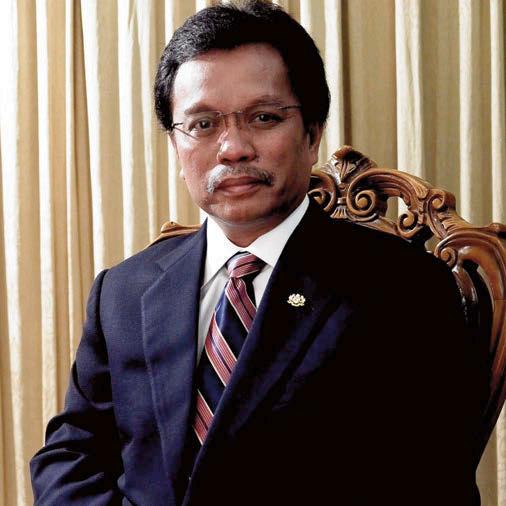
I am sure that like many others I was deeply shocked too by the terrorist attack in Mumbai and the wanton killing of innocent men and women. I know that CPA members deprecate such attacks and I urge us all to work together to prevent a repeat of such horrors. Part of the process of reducing terrorism wherever it may occur involves a combination of strategies not the least of which is the eradication of the causes. As Parliamentarians I hope that we can work towards influencing world leaders to redouble efforts in pursuit of a more effective way of handling inter nation, inter-racial and inter religious disputes. As Winston Churchill once said, “jaw jaw is better than war war”. The very essence of parliamentary democracy is that of finding common ground through debate and argument and not through the bomb, the bullet and the gun. In that same vein I hope too that peace will come quickly to Sri Lanka.
Apdal, MP Chairperson of the CPA Executive Committee and Minister of Rural and Regional Development, Malaysia
However, whatever the relative merits of the cause of the combatants, the scale of death and destruction was an affront to civilized behaviour and on your behalf I wrote to a number of world leaders urging an immediate cease fire and the provision of humanitarian aid to the people of Gaza. As is sadly so often the case in situations like Gaza it is the poor, the weak and the vulnerable who suffer most, not, we should remember, only during the period of military occasioned violence but for the months and years ahead. Destroyed and damaged homes, schools, businesses and even hospitals will take a long time to replace but of course this pales into insignificance with the personal loss of husbands, wives, sons, daughters, mothers and fathers. Surely, I kept asking myself, there must be a better way for the world community to prevent events such as Gaza from happening.
It has long been my contention that one of the ways to reduce tensions and violence is to ensure economic progress and wealth creation in a manner that creates jobs and business opportunities especially in the poorer parts of the world. Thus it is of great concern to me and I am sure many other Parliamentarians to witness the sharp down turn in the world’s economic environment. Some member countries have already entered a recession and this will have a consequential impact on world trade including our own member nations. Again, as with the violence we witnessed in Gaza, it is the poor and weak that are likely to be hardest hit as businesses contract and jobs are lost. In any recessionary time the pressures on social cohesion mount and there are rising temptations to make draconian cuts in public expenditure especially support services. For Parliamentarians I suggest that during the months and maybe years ahead we shall be faced with some stark economic choices. However, if we remain true to our commitment to parliamentary democracy I am confident we will prevail and become stronger as a result.
Not all has been gloom and doom since I wrote last. I know that many of my fellow Malaysians joined the millions across the world to watch the inauguration of President Obama. Not only was this event a model demonstration of democracy at work but a showcase of a peaceful
transition of power. There is no doubt that the new president is widely perceived to be a beacon of hope in a troubled world. The expectations are high that he will be able to bring a new approach to his country’s role in world affairs. I join in that spirit of hope but I have to add a note of caution. President Obama is a pragmatic politician and he will know the difference between the idealistic and the possible. He is more likely to succeed if, not only his own people, but nations across the world act in a spirit of mutual respect and common goodwill. His confidence and lack of hubris have already provided a platform for change now he has the hard task of fulfilling the dreams of peace and economic progress.
There is no doubt in my mind that 2009 is going to be a challenging time for us Parliamentarians. But I want to spare some thoughts for the hundreds of parliamentary support staff who, day by day, facilitate the work of Parliaments and Parliamentarians. Seldom do they get the recognition they deserve and yet without their skill and professionalism the work of Parliaments would be seriously
diminished. As you know the CPA has a programme of development opportunities for parliamentary support staff and I hope member countries will take full advantage of the opportunities they offer. Your Secretary-General and I intend to find ways of further developing the agenda of support programmes especially for the younger generation entering the profession.
It was with great sadness that I heard of the passing of that stalwart South African Parliamentarian, Helen Suzman. She was untiring in her courageous opposition to apartheid during its darkest days. She leaves behind a legacy of courage that will be long remembered by parliamentarians everywhere. I am sure that all CPA members will join me in sending our condolences to the president, parliament and people of South Africa.
Finally, amidst all our trials and tribulations, I want to wish all CPA Members everywhere a happy and let us hope a more peaceful and prosperous New Year 2009.
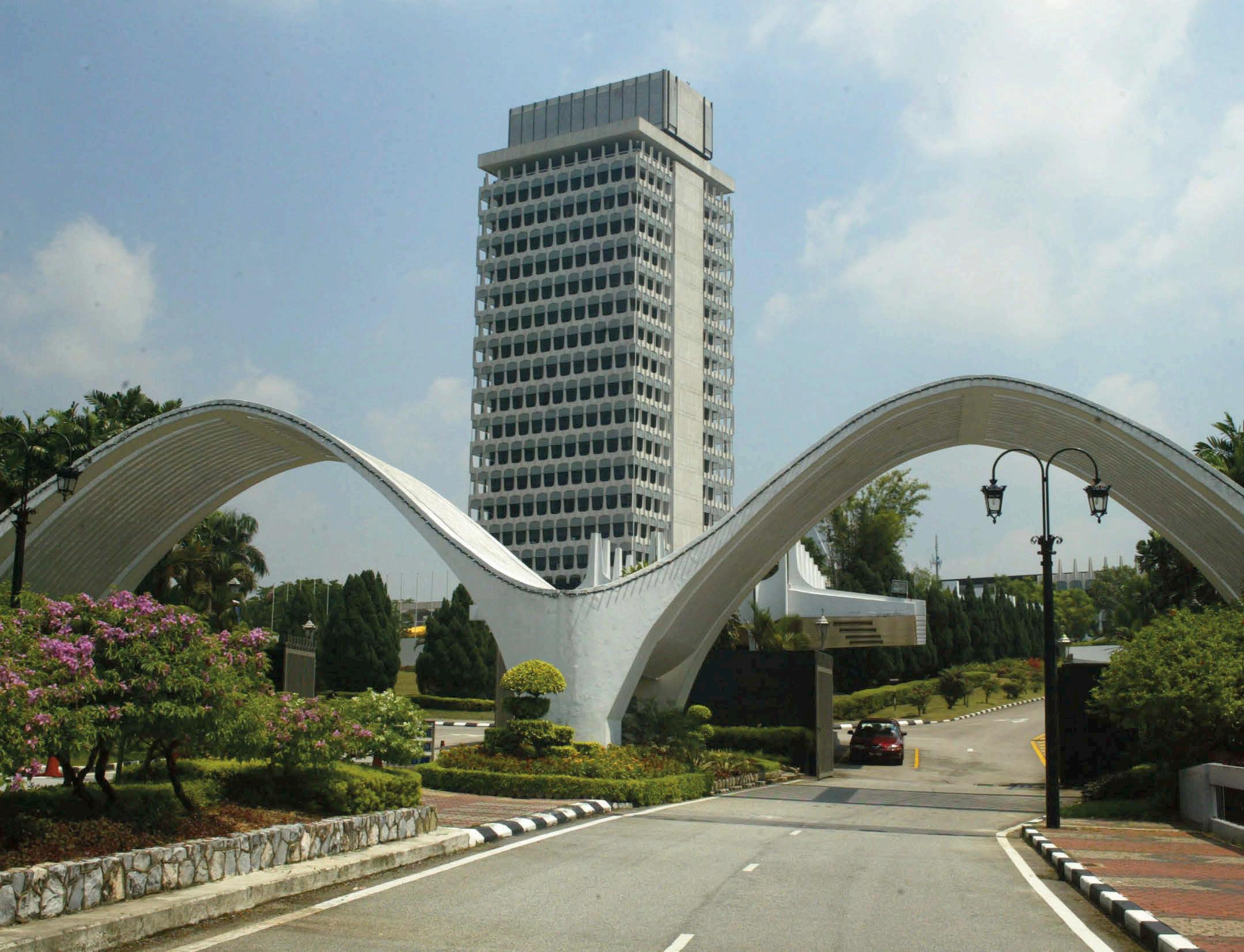
The Commonwealth and United Nations division for the advancement of women offers good practices and lessons designed to assist States in enhancing existing legislation and developing new laws to address violence against women.
Based on an expert group meeting held in Vienna, Austria, from 26 to 28 May 2008, the report -- Good practices in legislation on violence against women -provides guidelines and a model framework for legislation on violence against women, including detailed recommendations, commentaries and examples of good practices.
Under current international law, states are obliged to address violence against women, including through the enactment of legislation. The first laws directly addressing domestic violence were passed in the United States and the United Kingdom in the 1970s and early 1980s. Since the 1990s, numerous states have adopted or revised legislation on violence against women. These legal reforms however, have varied significantly in terms of the forms of violence they address, the type of action they mandate and the area of law (constitutional, civil, criminal, family) they reform.
Without the active participation of women and the incorporation of women's perspective at all levels of decision-making, the goals of equality, development and peace cannot be achieved.
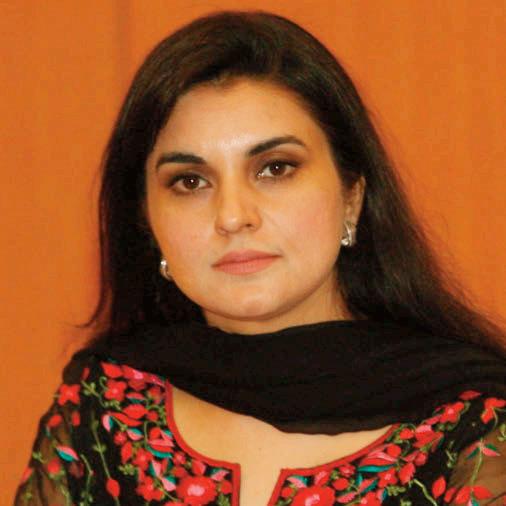
Ms Kashmala Tariq, MNA Chairperson of the Commonwealth Women Parliamentarians
In February 2008, United Nations SecretaryGeneral Ban Ki-moon launched a multi-year campaign to increase public awareness, political will and resources for preventing and responding to violence against women and girls, with the ultimate goal of carrying out national action plans and implementing or strengthening national laws.
Over the past three decades, the international community has made numerous commitments to promoting gender equality and eliminating discrimination against women, including through the Convention on the Elimination of All Forms of Discrimination against Women (CEDAW), the Beijing Declaration and Platform for Action (1995), and the Millennium Summit (2000).
The Beijing Platform for Action considered the inequality between men and women in the sharing of power and decision-making at all levels as one of the critical areas of concern for the empowerment of women. It stated women's equal participation in decision- making is not only a demand for simple justice or democracy but can also be seen as a necessary condition for women's interests to be taken into account.
As a result of these commitments, governments were expected to implement policies and programmes which would advance gender equality, including in leadership positions, giving women full and equal share in economic, social, cultural and political decision-making. The commitments and goals pertaining to gender equality in decision- making at the political and other levels have not yet been achieved. In both developing and developed countries, women continue to be under-represented in decision- making and leadership in several areas. The consequence of this gender gap is that women do not participate fully in decisions that shape their lives; and communities and countries are not capitalizing on the full potential of one half of their societies.
There is a very slow change. In many countries women are participating in areas of public life where they were not previously visible. Women are slowly but increasingly occupying senior positions in the public and private sectors, including the judiciary, the academia and the media. There was less evidence of women in leadership roles in trade unions, professional associations, and nontraditional areas. There is a cultural shift that is slowly taking place, allowing a window of opportunity for women to move into leadership positions.
In terms of policy, putting the public service firmly on the route of transformation sexism is one of the fundamental tenets that are enshrined in the South African Constitution. The results to date have been positive. In 1995 the equity target was 30 per cent representation of women in management positions. In October 2006 many government departments achieved the minimum quota, with records as high as 40 per cent women in managerial positions.”
In countries like India, Pakistan, Tanzania, and Zimbabwe, despite positive gains by a few individual women in the country, the majority of women continue to face significant social and economic barriers to assuming leadership roles, with specific mention of challenges to women participating more fully as decision-makers include inequalities in education, health and employment, discrimination, the feminization of
poverty, the urban-rural divide, as well as the effects of armed conflict, trade liberalization and HIV/AIDS—all of which affect women disproportionately.
However having more women in positions of power does not necessarily result in “women-friendly” social, economic and political systems that are responsive to women’s concerns. In Pakistan, Sri Lanka and Bangladesh, women’s leadership, even as Heads of State in their countries, did not automatically translate into improvements in the status of women’s lives.
Providing women with the flexibility to allow them to balance family life with the demands of professional leadership enhances women’s willingness and ability to take on leadership positions, as this was considered a major obstacle by women from around the world. Targeting measures both women and men to support a better balance between work and family will avoid reinforcing the stereotype of women being solely in charge of domestic and care work.
In Pakistan, discrimination is based on custom, tradition, civil and military strife. To be a woman in this region is to be almost a non-person. Women constitute 50 per cent of the total population and this huge percentage is ignored or discriminated by the political, social and economical structures of country.
Pakistan acceded to CEDAW on 29 February 1996, being the 174th State-Party
Gender inequality in Pakistani society remains pervasive and persistent, with women concentrated in jobs with low security, few occupational choices, low pay, poor working conditions, low status and low bargaining power in the labour market. Weak enforcement of existing labour laws is leading to increased exploitation of workers in general and women workers in particular, by the employers.
The slavery of women is worse today that in any other time in history. Up
to 80 per cent of women are subjected to different forms of domestic violence in their lives. Violence against women includes not only physical violence, sexual, psychological and emotional abuse. Physical violence includes murder, sometimes in the guise of honour killings, notoriously known as "KaroKari", female infanticide, stove burning and acid throwing. Sexual violence includes rape, marital rape, custodial rape, gang rape, incest, public stripping, and harassment through language, gesture and trafficking and forced prostitution. According to the United Nations Population Fund (UNPFA) 80% of the 600,000 people trafficked across international borders each year are women and girls. These include more than 25,000 women from Pakistan. This trade has an annual profit of 12 billion dollars.
Women Parliamentarians should start immediate effort that must build upon existing United Nations’ commitments to gender equality and women’s human rights, based on the principle of mutual responsibility and the obligations of governments to fulfill internationally agreed development goals, targets and actions which have been identified primarily in the Beijing Platform for Action, CEDAW and the International Labour Organization (ILO) Conventions.
To date, the most powerful and best-paid managerial positions are still out of reach for most. Affirmative action and awareness-raising campaigns can reverse cultural stereotypes and promote more positive model of women as leaders and decision-makers.
To conclude: “no country in the world, no matter how advanced, has achieved true gender equality, as measured by comparable decisionmaking power, equal opportunities for education and advancement, and equal participation and status in all walks of human endeavor. Gender disparities exist, even in countries without glaring male domination.”
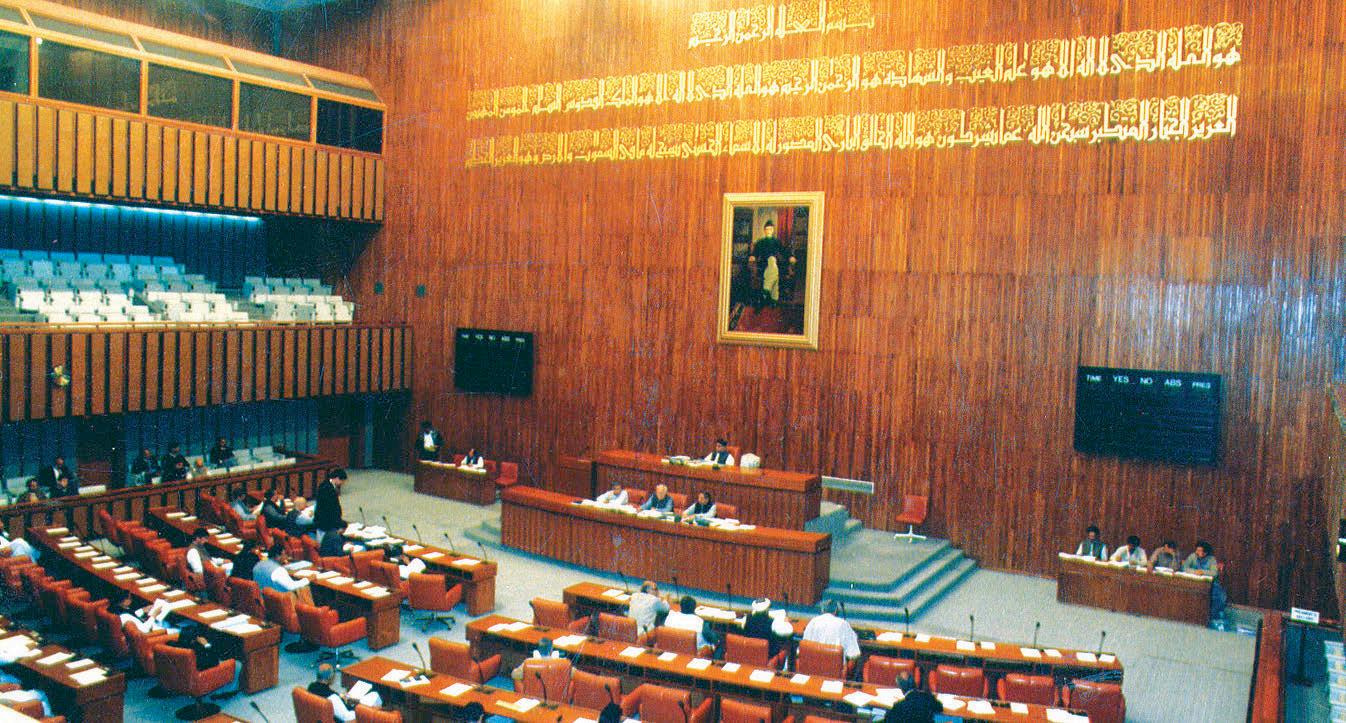
In the current period of 2008/2009, Commonwealth Parliamentarians and those elsewhere will have to grapple with the implications of the current global financial and economic crisis, commonly termed as the “credit crunch”. They have noted with great shock another incident of global magnitude that has devastating effects on the welfare of developing countries, economically and socially.
Developing countries under pressure
In the 1970s and 1980s, the international community, particularly developing countries, called for a “new international economic order”, having noted that industrialized countries were disproportionately earning higher incomes from selling manufactured goods, while the prices of primary commodities, often used as raw materials for industries, were steadily diminishing. For example, year after year, the purchase
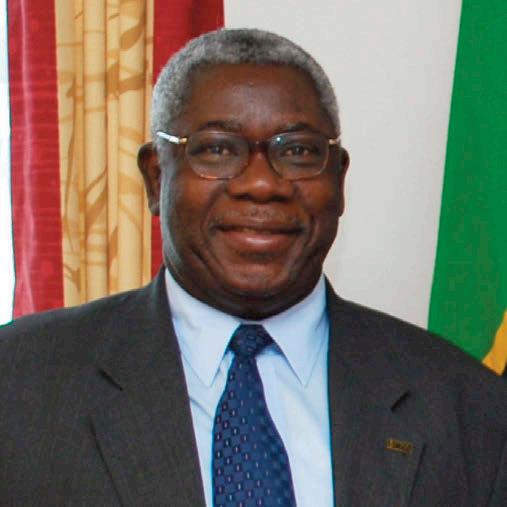
William F. Shija Secretary-General of the Commonwealth Parliamentary Association
of a particular tractor brand demanded more quantities of cotton or coffee produced in a developing economy. This imbalance led to an intensified debate on the conduct of world trade, known in recent years as the Doha Round of Negotiations.
The 1990s saw another surge of policies, and therefore legislation, being pushed through developing countries to liberalize their economies and open up markets. This phase did not only give added advantage to manufacturing societies, but it slowed down the process of industrialization, to the chagrin of developing countries in their efforts to combat poverty. The United Nations system launched the Millenium Development Goals (MDGs) to handle the situation. The MDGs were planned to be achieved by 2015, but with the economic crisis looming across the world, it is doubtful that goal will be achieved.

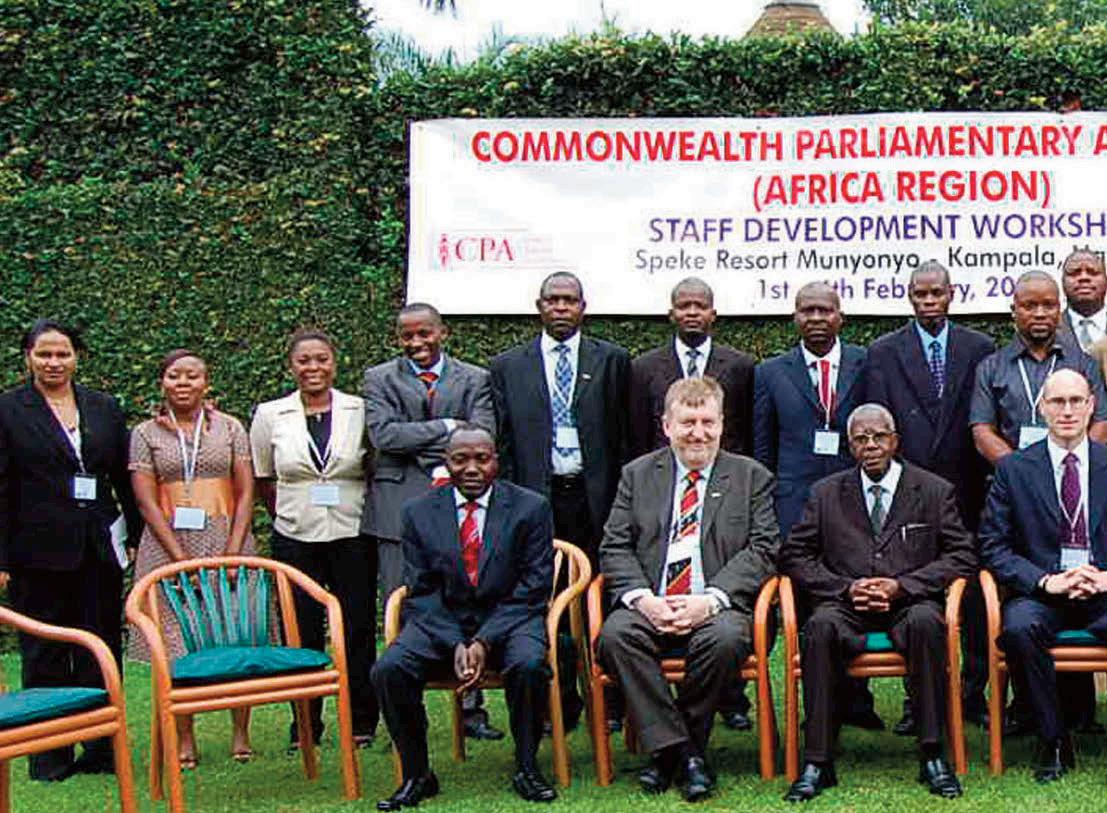
In the 2000s, the world community, again, woke up to another global problem of climate change. Scientists warned that the Earth was warming faster than previously thought. The causes are largely environmental degradation, particularly brought about by industrial and transportation gas emissions of economically advanced nations. Again, the heaviest losers under climate change, it is thought, are the developing countries. The effects of climate change are yet to be known; but it is likely that extreme weather conditions leading to floods, drought, food deficits and poverty will disproportionately affect populations in developing countries.
The effects of the current financial crisis, according to economists and development experts, are once again expected to hit the developing countries hardest. The IMF and World Bank forecast, for example, that Africa’s economic growth for 2009 will be reduced from the expected 6.7 per cent to 3.25 per cent. The main reason is that plunging commodity prices will reduce the income flow to African and other developing countries. Also, the volume of investments towards Africa and the resultant support for social services will be severely affected. Already, there are a number of projects which have been suspended in such sectors as mining, agriculture and infrastructure development. But the question often asked is: Are the culprits of climate change and credit crunches going to accept to compensate the victims?
Former United Nations Secretary-General Kofi Annan said recently that, among others, Africans were feeling aggrieved by the apparent financial indiscipline of international financial institutions. African countries, which have supplied, and continue to supply, huge resources to the world economy, feel betrayed by these reckless financial activities generated in the major industrial markets. Tanzania’s President H.E. Mr Jakaya Kikwete, speaking at an International Monetary Fund meeting in Dar es Salaam ahead of the April G20 Summit in London, rightly observed that the International Monetary Fund has treated the United States and Europe too leniently to absolve their mistakes in the economic downturn.
“I am sure if an African country had caused this crisis, the IMF would have jumped and screamed about lack of discipline and the need for countries to stick to prescribed rules and guidelines of financial stability,” President Kikwete told the IMF meeting in Dar es Salaam.
The current financial crisis, the behaviour of the IMF and the history of marginalization of developing countries should therefore remind us of the call for a “new international economic order” in the 1970s. A new economic order has the potential to bridge gaps for equitable world economic gains. The prospects of a new international economic approach, or “social capitalism”, are many, including world peace. After all, “social capitalism” is what is probably already being practised in Europe (including the United Kingdom of course), and the United States as well. Fair income distribution and employment create balanced social orders, as opposed to income disparity, unemployment and lack of social services, which are still highly contested issues in industrialized countries as well.
The current global financial crisis and economic downturn is yet another lesson for various countries and regions of the world. The search for solutions, Parliamentarians will wish to consider, calls for new legislation also. As has been debated in the United Kingdom, the United States and other countries, the economic stimulus packages have had to be fiercely debated in the Houses of the representatives of the people. The principal purpose is to democratize the decisions, expecting that the “stimuli” will cause economic recovery and bring relief to the majority in the world.
Unfortunately, in the process of searching for solutions, Africa is participating as a recipient. I wish this crisis would be a wake-up call for the African leadership to practise the virtues of democracy in their own African way, diversify approaches to economic production, utilize the African internal markets and develop a new crop of leadership to change Africa from a spectator to a partner.
I wish the Commonwealth Parliamentarians in Africa, sourcing carefully from their own democratic practices and true partners, should: vigorously


work to stamp out corrupt selfish leadership; devise a truly African educational system; promote and rehearse the African potential; refuse development aid and accept trade; preach the work ethic and individual productivity for self-development (highly weakened under colonialism); expedite Africa’s regional connectivity, and, above all, create an African Monetary Fund and other institutions to unearth Africa’s own potential and ability. Not limited to these approaches, Africa can practise true democracy by: spearheading its people’s strength, not weakness; practising income equity, not implementing blind capitalism, and socializing its population to feel and act under the banner of “Africans must choose for themselves”, not weep under development aid.
There might be a wish among Africans out there to recall that similar
approaches choosing development paths were implemented by the socalled present-day large “democracies”. To this, Ivan Breinholt Leth, a European business advisor in the Kingdom of Lesotho, is known to have said: “Europe has fought its own wars, exploited its own people, overthrown its own dictators, and through this cursed process of human suffering, Europe has created its own present political and economic systems. Africa can, and must, do it on its own.”
Yes, I support the position of this development partner. Recalling that the minerals, oil, huge tracts of fertile land and a youthful population ready to be engaged, Africa can do what the South-East Asians have managed to do in the last 40 years; that is, doing it their own way, not mimicking the global financial institutions and
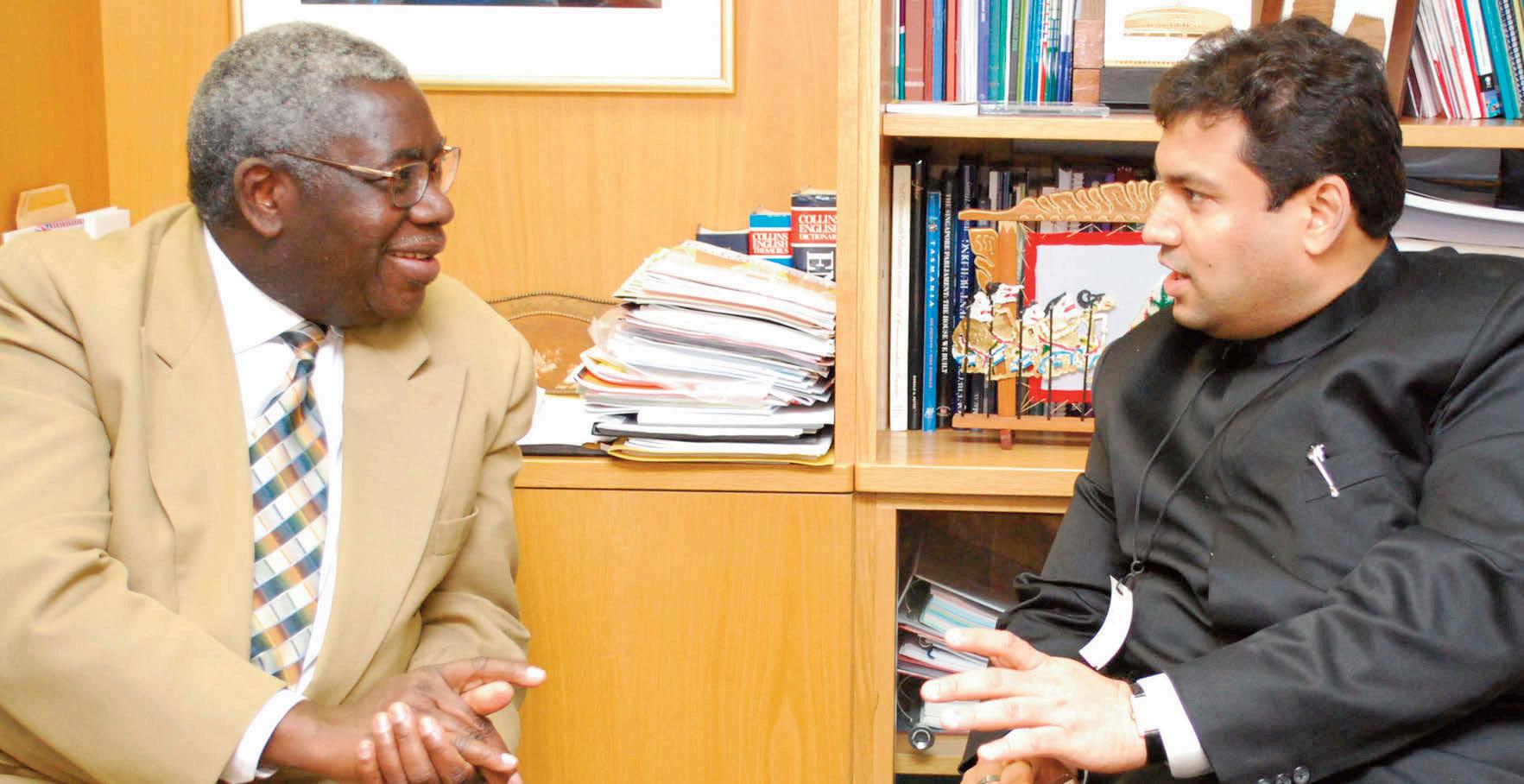
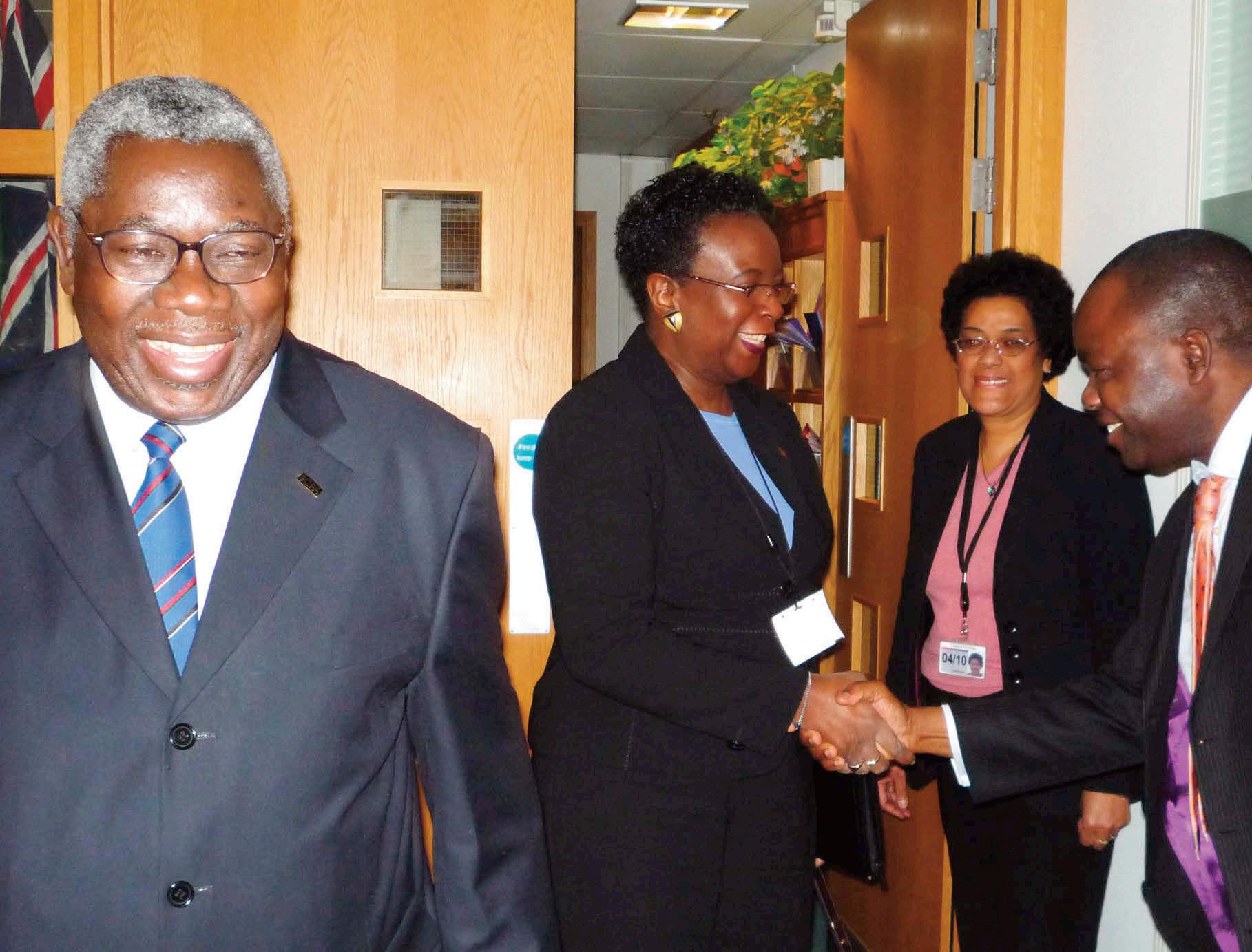


lamenting. This is an opportunity for current Legislators to seriously engage their colleagues in government, and at national, regional and continental levels, to devise new policies and laws that give encouragement, strength and full participation by the citizens. Leaders may wish to recall the saying that “it is never too late to mend”.
Let me end my opening remarks to our readers for the year 2009 by remembering that this year we mark 60 years of the Commonwealth. The Commonwealth at 60 has pledged to serve the new generation. It is therefore an excellent opportunity to measure not only the percentage of the population in our Commonwealth countries
who are aware of the community, but to examine the extent to which youth are likely to carry forward the mantle of its usefulness and uniqueness.
Democracy in the Commonwealth community is practised invariably with numerous cultural blends. No member complains to the other, except where the principle of “one man, one vote” is violated,
or where military rule has replaced the free choice of the people. With the current regional and global challenges and crises, the free intellectual dialogue we have in the Commonwealth is a valuable virtue to espouse. It is also a commodity to benefit the old and the young, offering at least a menu from which the new generation may choose.
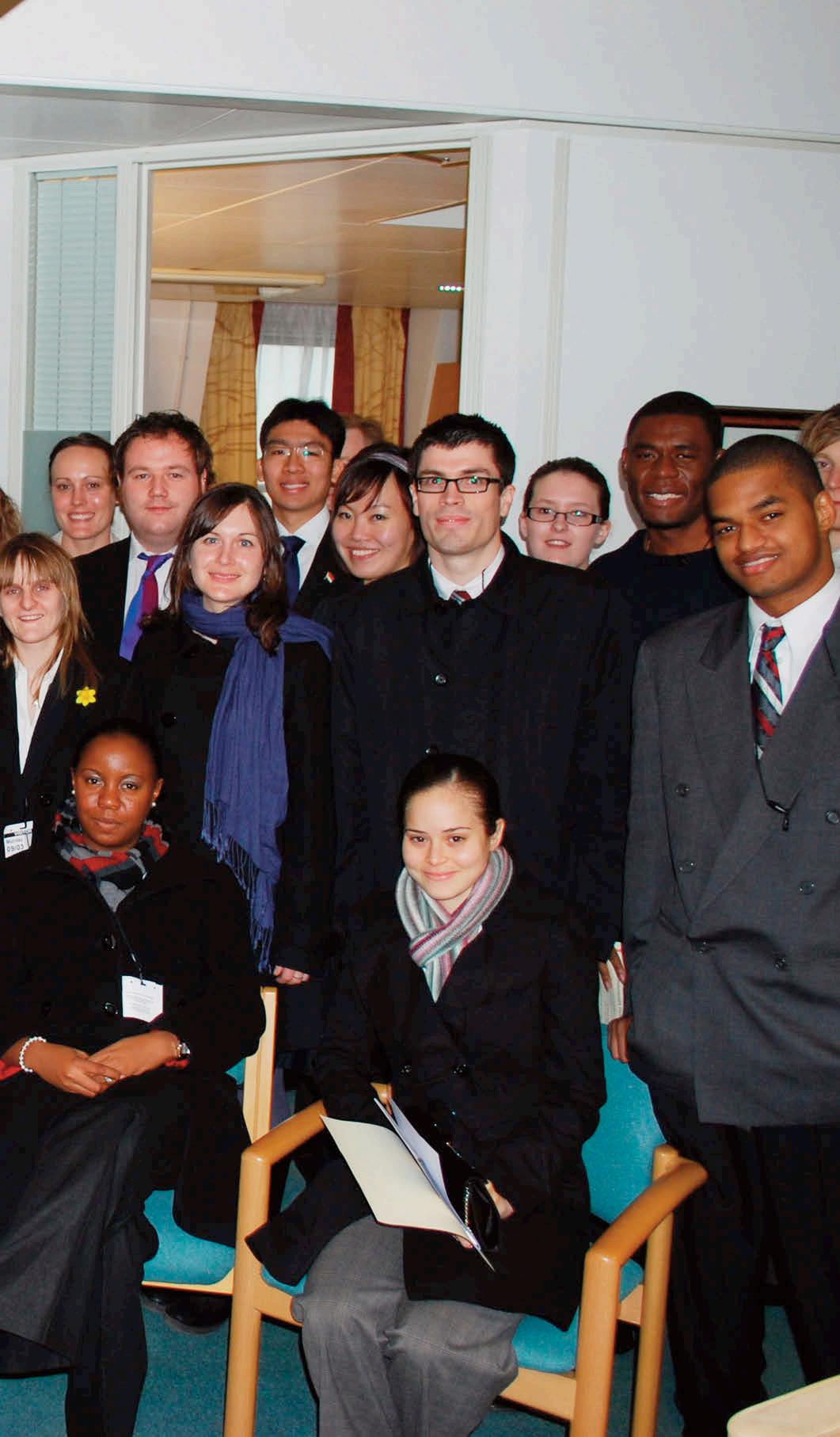
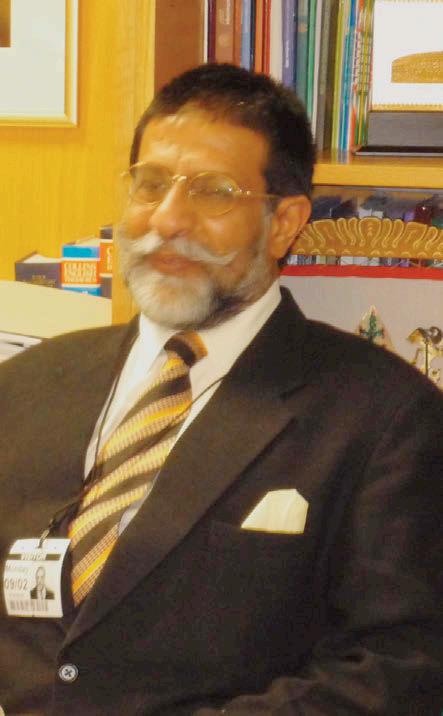
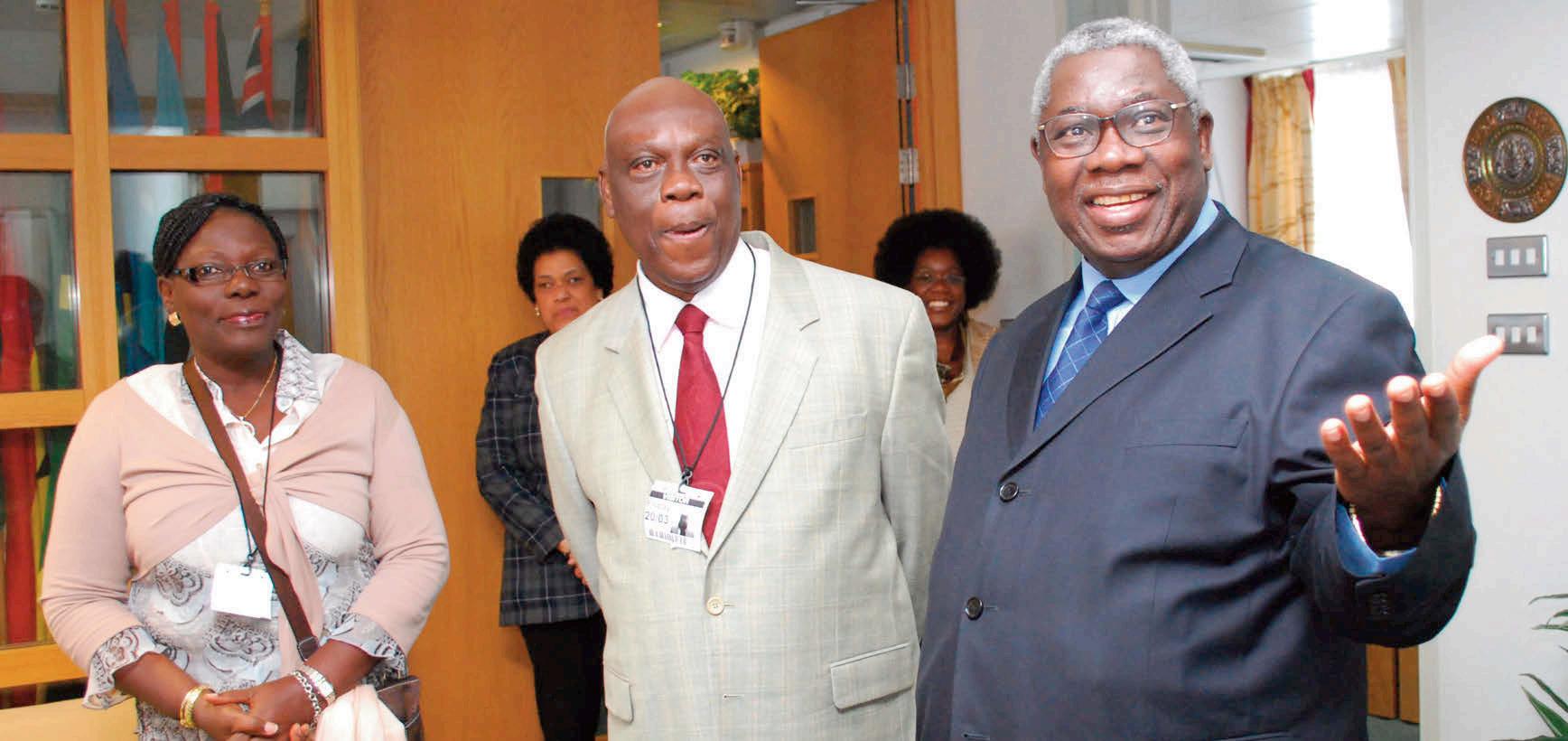

It has been a long road travelled, but many challenges and new threats exist for Members of the Commowealth, argues India’s External Affairs Minister.

Shri
Shri Mukherjee is India’s Minister of External Affairs. He was an Indian National Congress
Member of the Rajya Sabha from 1969 to 2004 when he was elected to India’s lower House, the Lok Sabha. He has held several portfolios over the years and was Minister of Defence from 2004 to 2006 when he was appointed as External Affairs Minister. He was formerly a professor, journalist and advocate.
Responding to a question by a BBC correspondent about the future of the Commonwealth while on a visit to London in 1956, Mr Pandit Nehru said: "I cannot peek into the future, but I would say, looking into past years, that it has led us closer to each other. I presume it will lead us closer still."
Beginning with the London Declaration that paved the way for India and other newly independent decolonized nations to join the Commonwealth as sovereign entities, the Commonwealth has come far and grown in size and membership. Today more than 1.8 billion people inhabit the Commonwealth community.
Sixty years after the new Commonwealth was created, it is time to look back at what has been achieved, what challenges face the world order today, and the road ahead in the years to come.
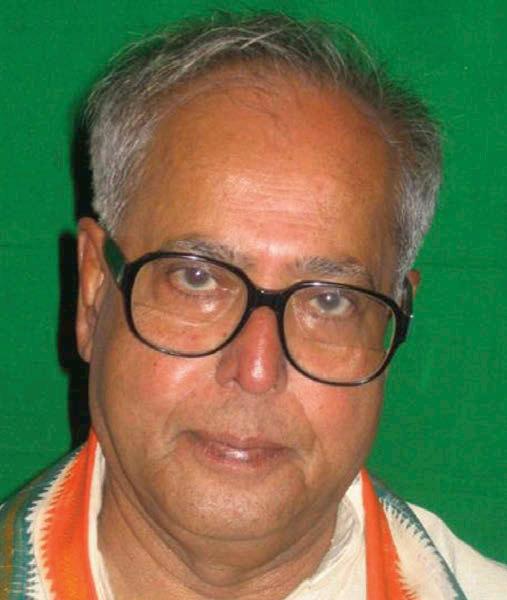
path traversed
The Commonwealth has been at the forefront of charting and implementing practical programmes that have benefited the population of its Members.
In the 1950 Colombo Commonwealth Foreign Ministers meeting, the framework of the South and South-East-Asia
cooperation was agreed. Popularly known as the “Colombo Plan” for the cooperative development of Asia and the Pacific, it has grown from its original seven Members to 26 with several who are not a part of the Commonwealth.
The Commonwealth Fund for Technical Cooperation (CFTC) – a Commonwealth flagship project for exchanging and harnessing technical knowledge and skills among Commonwealth countries – has been a major success since its inception in 1971. India contributes to this programme both through financial contributions and provision of experts.
Education has been a priority for the Commonwealth. Distance learning was a major area recognized in the 1987 Vancouver Commonwealth Heads of Government Meeting (CHOGM)
where a project called the “Commonwealth of Learning” (COL) was launched. Sir John Daniels, Vice-Chancellor of the National Open University of the United Kingdom said that “as a Canadian university president with an interest in open learning, I helped to develop the proposals for CHOGM and La Francophonie. CHOGM duly met and decided, after some animated discussions
respect for human rights, gender equality, rule of law, and sustainable economic and social development.
In a broad sense we see the transformation of the modern Commonwealth from its inception as an idea into a mature organization. Today the Commonwealth has a significant role to play in the current and future global challenges.
Members of the Commonwealth have been significant. For the majority of Commonwealth states, the ability to overcome and survive the negative consequences is of greater and immediate concern. Financial resources to cushion its impact are extremely limited in most Commonwealth countries. Aggravating this is their low development base, high unemployment and poverty. The

between Mr Rajiv Gandhi and Mrs Margaret Thatcher, to create the Commonwealth of Learning.” . In 1994, in association with the Indira Gandhi National Open University, the COL launched the Rajiv Gandhi Fellowship Scheme (RGFS) which provides scholarships to Commonwealth students to pursue Master degrees through distance learning. This scheme has been successful in imparting higher education at a reasonable cost to members of the Commonwealth community.
Today the Commonwealth has also evolved in a political sense, although it is not itself a political organization. The Commonwealth has been active on issues like racism, apartheid, anti-colonialism and resolution of conflicts. Its work has been based on its core values of democracy, good governance,
The world looks very different today than 60 years ago. Decolonization has been achieved and apartheid regimes have been broken down. The United Nations was formed and the world economy has become global. All these have combined to bring the world closer than ever before.
Despite a closer and globalized world, myriad challenges remain. These threaten to dislocate and strain peace, amity and friendly relations between and among peoples, societies and nations. Conflicts, civil wars, pestilence, illiteracy, hunger, disease and poverty pose formidable challenges to the stability of the world order. Complicating them are the series of shocks witnessed globally one after another.
Unquestionably, the global financial crisis and its impact on
Opposite page: A busy highway; Above: Poverty is still rife in many Commonwealth countries.
reduction in remittances and fall in commodity prices that has begun will have further negative consequences. The food crisis that preceded the global meltdown has already weakened several economies within the Commonwealth. Its impact within the Commonwealth cannot be glossed over, as 49 of the Commonwealth’s 53 Members are developing countries. Also the realization that the very foundation and architecture of existing global governance structures need to change has been more than underscored by the crisis and its impact.
Though energy costs have
“Despite a closer and globalized world, myriad challenges remain... complicating them are the series of shocks witnessed globally one after another. “

stabilized for now, the lesson learnt from the experience last year is that countries need to co-operate even more in energy security. In
this, Commonwealth countries have a major role to play since many of them have significant oil reserves.
There are other crises that are quietly taking its toll. HIV/AIDS is widely prevalent amongst the 1.8 billion population of the Commonwealth, hunger and malnourishment is rife, the bane of illiteracy is yet to be eradicated, gender inequality still persists and grinding poverty is pervasive. Overcoming them is a Herculean task and no one nation can do it alone. The Commonwealth as a co-operative institution should evolve common frameworks to tackle them.
Not all crises facing the world today are to do with food, health and social welfare. Terrorism is a crisis that threatens societies everywhere. We started this new millennium with a strong message against terrorism. In the Millennium Declaration of the United Nations, Heads of State and Government had resolved to “take concerted action against international terrorism, and to accede as soon as possible to all the relevant international conventions”. Despite this expression of will at the highest political level, countries like India continue to suffer crossborder terrorism. Countries that do not take action against terrorists operating from their own soil should be penalized. Unless such countries are collectively named, shamed and ostracized, terrorism will continue to fester and destroy the democratic fabric of societies.
Over the years, the fundamental strengths of the Commonwealth have helped it grow and become increasingly relevant within a rapidly changing world order. The Commonwealth has no charter, unlike most intergovernmental institutions. It works through consensual collectivism. Diversity is its strength and common governance structures and customary laws are at its roots. Simplicity and absence of bureaucratic structures is an added advantage, which should be brought to bear on its future work.
The Commonwealth Mission statement signifies its vision:
•A force for peace, democracy, equality and good governance;
•A catalyst for global consensus building; and
•A source of assistance for sustainable development and poverty eradication.
The above statement of intent requires suitable strategic, resultsoriented and pragmatic initiatives that positively impact the lives of peoples of the Commonwealth. Therefore, it is clear that in the next phase of the cycle of the Commonwealth, there has to be consolidation of the gains made so far while charting out the path ahead. This road map has to have key strategic strands that would help take the organization to a higher level of multilateral relevance and simultaneously make a difference in peoples’ lives.
I see the following as priorities in the next few decades in which the Commonwealth has an important role to play.
More than a third of the 1.8 billion people within the Commonwealth live in poverty. The Millennium Development Goal (MDG) of halving poverty by 2015 does not seem to be on track within the Commonwealth. This is reinforced by the fact that, out of the 53 Commonwealth Members, the latest statistical update (2008) of the United Nations Human Development Index (HDI) shows that only 17 members are either in the high or medium HDI range. The remaining 36 members are in the bottom range of the index. The Commonwealth needs to take a more proactive role in spearheading the improvement in the quality of the lives of its people in conjunction with national authorities and other multi-national organizations. In this, Members of the Commonwealth could draw together the advantages and
strengths of each Member, be they big or small, rich or developing, into one package to reduce poverty, unemployment, illiteracy and improve social services while ensuring economic development. This is possible if resources and talents spread across the diversity of the Commonwealth can be packaged in harmony and for the greater good.
E-business, e-governance, elearning and knowledge are envisaged to become a norm in the coming decades. Apart from their advantages in connecting the world, the very simple fact that knowledge and skills can be transferred through such mechanisms is an advantage that should be harnessed through strategic programmes.
Therefore, if a farmer in Sierra Leone wishes to know how to cultivate a monsoon paddy from an Indian farmer, via an information highway or network, a dialogue could be established in order to share such knowledge. The possibilities are endless.
Commonwealth trade and investment agenda
In the Commonwealth, we have a common legacy, common values and indeed a common language for communication. However, the potential for generating wealth through common approaches and endeavours needs bolstering.
Trade is an area which could be a driver for prosperity. Striking partnerships in trade among the Commonwealth countries through appropriate frameworks based on comparative advantages could lead to a mutually beneficial creation of wealth in the Commonwealth.
Commonwealth business agenda
Industries and enterprises within the Commonwealth would benefit from a platform where they could exchange information, find out about others, negotiate

opportunities, and essentially link up with one another. Like a stock exchange, the Commonwealth could think of an exchange or clearing house for the captains of business and industry.
Political will to achieve a common vision
While the priorities above would benefit a large number of people, the question that remains is one of political will among the leaders of the Commonwealth. They
E-business will help connect people from across the Commonwealth.
should get together and draw up the architecture and common vision for the Commonwealth in the next decades. India is one Member that stands committed to consolidating and strengthening the Commonwealth in the years to come.
Is the United Kingdom making full use of the Commonwealth? The country’s Shadow Foreign and Commonwealth Secretary argues it is not. He assigns to it a central role to transform this historic connection into an active foreign policy tool.
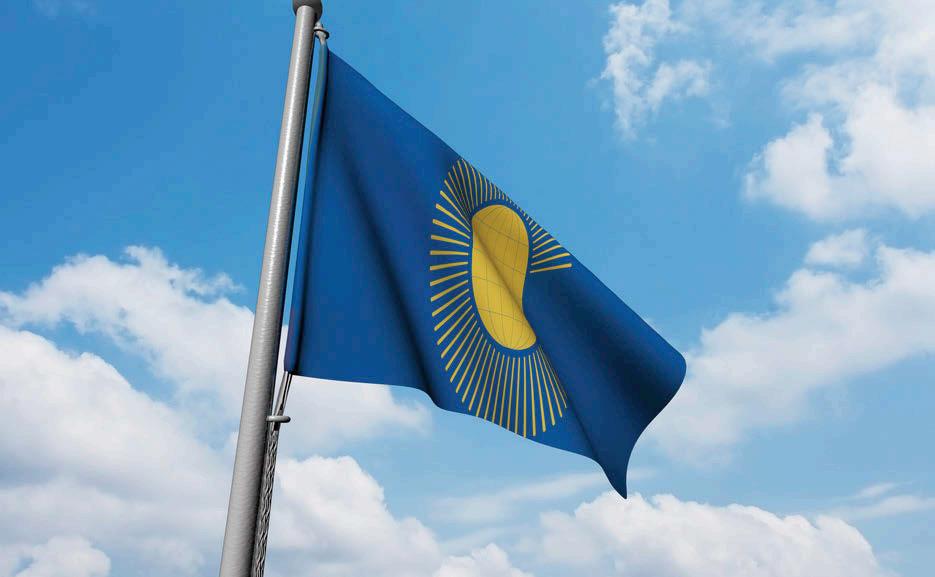
Rt Hon. William Hague, MP, at Westminster.
Mr Hague is the United Kingdom Shadow Foreign and Commonwealth Secretary. A Conservative Member of the House of Commons since 1989, he has held several ministerial posts and was Leader of the Opposition from 1997 to 2001. This article is based on a February speech to the Royal Commonwealth Society in London.
Britain needs to think afresh about its relationship with the Commonwealth and we need to join with people from other nations in reinvigorating this extraordinary organization. It is a relationship which has endured through the ages but, sadly, has been undervalued in recent years. The Commonwealth is of immense value and it is vital that Britain encourages its development and growth.
This year marks the 60th anniversary of the founding of the modern Commonwealth and since that time it has made, and continues to make, an important contribution to what the current Secretary-General, H.E. Mr Kamalesh Sharma, has called the “great global good”. In doing so it demonstrates the unique place that it still holds and reminds us of the strengths that will carry it further.
The Commonwealth is a rich patchwork: each member is made from its own distinct material yet they are woven together by the threads of democracy, diversity,
tolerance, understanding and collaboration. It is representative of nations and peoples of rich tradition, heritage and culture and it is able to bind them together with

the shared values and aspirations that endure in us all in a remarkable way. It includes and gives democratic voice to 53 countries, large and small, of all the major faiths spanning five continents and three oceans.
This foundation of legitimacy gives it the authority to act in the promotion of democracy, the
fostering of sound political and financial governance, and in opening up the opportunities of trade and enterprise. It can also do an immense amount in the future to focus the attention of a vast part of the word’s population on the challenges of climate change. It has scores of civil and professional groups which have considerable energy, expertise and resources, and are working to address the issues of poverty, debt, unfair trading practices and pandemic diseases such as HIV/ AIDS. Yet, properly used, it can do more.
A record of profound influence
The Commonwealth has had a role in some of the most historic events of our time, most notably in helping to bring about the end of apartheid in South Africa. Nelson Mandela, who received a visit by the Commonwealth’s Eminent Persons Group whilst imprisoned on Robben Island, regarded their visit and subsequent report as a key event in the struggle against racism and prejudice. And perhaps
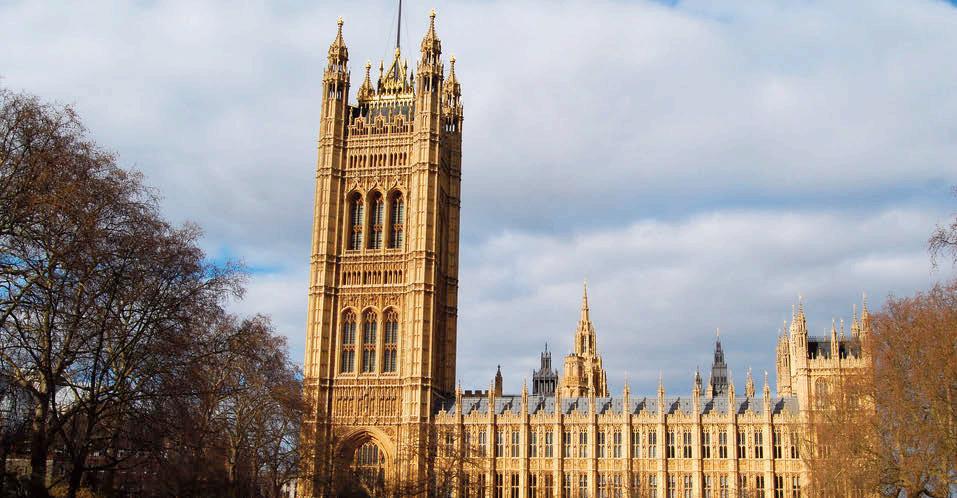
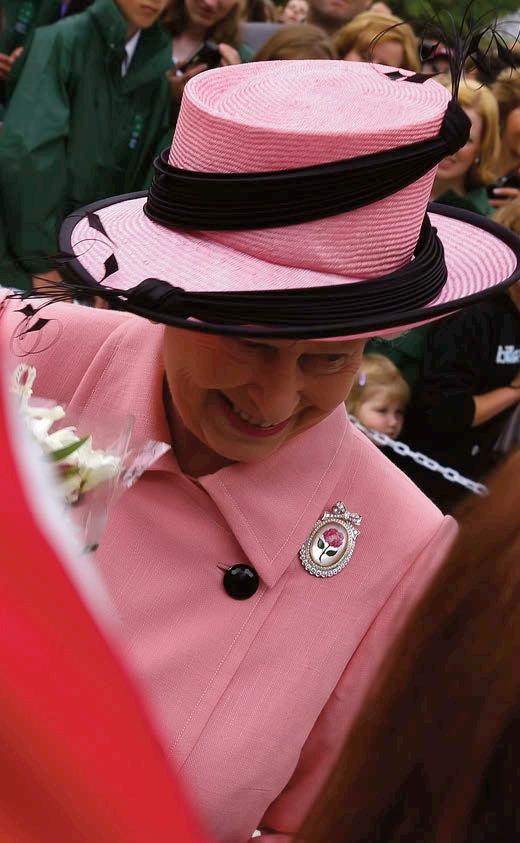
his comment soon after he was elected President – “the Commonwealth makes the world safe for diversity” – encapsulates the moral authority and influence that, at its best, the organization can wield.
We must of course always be realistic and not think that the Commonwealth can take over the
functions of other international institutions – it is not a mini-United Nations or an alternative to the World Trade Organization or regional groupings such as the European Union, African Union or CARICOM. But it can provide a unique perspective and forum in world affairs, and should be a source of strength and opportunity for its members. It must be nurtured and encouraged in a way that utilizes its attributes to meet the challenges of the modern world and it is up to Britain, among other countries, to provide a strong steer, an open mind and some real enthusiasm.
The Commonwealth in a new world order
It is a truism that the global economy and political forces of the twenty-first century will require multilateral rather than unilateral solutions. A cursory glance over events of the past year remind us of the power and reach of the global forces that are now in operation, the tight interdependence between our
nations, and the pace with which problems can surface in one country and transmit to another.
We tragically witnessed once again the lurking presence of international terrorist networks capable of inflicting co-ordinated and brutal attacks on international centres of commerce in the case of Mumbai. We saw successive attempts in the political arena to engender a unified response to the threat of global warming with seemingly slow progress.
Dwindling energy reserves and rising prices became the catalyst for intensified political and economic machinations in the provision of oil and gas, while the malignant regime in Zimbabwe and the regime and rebels in Sudan continued wilfully to destroy the lives of their countrymen in defiance of the international community.
Further, the weight of economic and political power in the world has started to move significantly, and over time the international community will have to navigate a very different geo-political
Opposite page: the Commonwealth flag; Above: The Palace of Westminster in London; Left: The head of the Commonwealth, HM Queen Elizabeth II.
landscape from the one that we now know. While the United States will remain a world super power with unrivalled military capability and be the essential ally of democracies, we are moving from a unipolar to a multipolar world. The economic shift to the east cannot be ignored; the rise of powers like China, India and Brazil is the twenty-first century reality, and the predominance of Western nations, a circumstance that has characterized the industrial era, can no longer be assumed.
These trends must encourage all countries to broaden their outlook from traditional parameters. Such change brings conflict and uncertainty; but it is precisely on this ground that the Commonwealth can thrive in its unparalleled ability to reach across the barriers of culture and geography to form alliances between developed and emerging economies.
This changing pattern of authority and influence in the twenty-first century has rendered the decision-making procedures of many multilateral institutions somewhat out of date. The UN Security Council still reflects the outcome of the Second World War, a time when there were only 51 members of the UN. In the subsequent 60 years, its membership has swollen to 192 and the composition of the Security Council no longer corresponds to today’s real distribution of power, thus raising concerns over its legitimacy.
In the meantime, other groupings based on shared interests and economic influence have been formed and are seizing the initiative – former East Asian rivals China, Japan and South Korea held their own summit last year, as did the four so-called BRIC countries – Brazil, Russia, India and China.
Britain must therefore be a powerful advocate of the reform of ageing international institutions, and we must fully support
measures such as permanent seats on the United Nations Security Council for countries like Japan, India, Germany, Brazil and
“...the predominance of Western nations, a circumstance that has characterized the industrial era, can no longer be assumed.”
African countries, and a redesign of the governance structures of the World Bank and International Monetary Fund.
The need to reform our multilateral institutions and revitalise international co-operation and partnership is an important component of my party’s foreign policy. It is one of the five key elements of the liberal conservative approach to foreign affairs we have developed with careful consideration over the past few years whilst in opposition. It is liberal because we support the goal of spreading freedom and democracy, and support humanitarian intervention, where it is practical to do so, and conservative because we recognize the complexities of human nature and are sceptical of grand designs to remake the world.
The other elements which complete this approach are:
•First, that we should fully understand the threat we face;
•Second, that democracy cannot quickly be imposed from outside;
•Third, that our strategy needs to go far beyond military action, and
•Finally, that we must strive to
act with moral authority and in accordance with our values at all times.
In each of these areas, our work with the Commonwealth has a role: in its potential to liberate and reform, in utilizing its extensive network of civil society groups, in building expertise in financial, electoral and democratic reform, in increasing international collaboration between western and Muslim states, and in working peacefully and constructively for change.
The alliances and relationships forged during the long history of the Commonwealth – instead of becoming a relic of the past – have become more relevant as the twenty-first century progresses. Relinquishing our Commonwealth commitments is incredibly shortsighted and ultimately detrimental to the prosperity and sphere of influence of our country. Other countries are aware of the benefits that the Commonwealth brings: the Indian Minister for Industry has described the Commonwealth as the “perfect platform” for trade and investment.
Commonwealth financial benefits
Over the past 10 years, intraCommonwealth trade has expanded from $2 trillion to $3 trillion and investment flows have reached over $160 billion. Commonwealth trade and investment now accounts for over 20 per cent of the world total and there is the potential to increase this share further. There are huge economic benefits to be gained and Britain must capitalize on these opportunities.
The advantages of commonalities in language, education, professional training and legal and financial institutions still often remain. It has been estimated they create a 15-percent cost advantage over business with countries outside the Commonwealth. Increasingly,
Commonwealth countries are knowledge-driven and great innovators – the foundations upon which future economic prosperity will depend – and are proceeding with some of the fastest growth rates in the world. Britain has much to learn from them.
We must refresh our vision of what the Commonwealth offers and what it can do. The world is moving on and we must not let outdated views of the past cloud our prospects for the future. We need a significant change in outlook and attitude, driven by a modern, forward-thinking and positive view of the important role that the Commonwealth can take to address current issues.
This change in approach needs to stretch beyond the U.K. Foreign and Commonwealth Office into other government departments and down to all officials.
We must take responsibility and act in concert with others to develop the Commonwealth for the future. Despite being an island nation, Britain has always been global in its outlook and demonstrated a sense of duty towards the rest of the world. The history of our country – with its commercial aptitude, trading energy, naval prowess and restless exploration – has enabled us to display international leadership and play an important role on the world stage. It can never be more appropriate for this country to take on such responsibility than in times of uncertainty and doubt; sticking firmly to principles of freedom and inclusion, and eschewing protectionism and isolation. As in the nineteenth century, Britain must promote a fair and transparent economic environment that that can provide opportunity for rich and poor nations alike. The Commonwealth offers Britain the chance to widen its circle of influence as it can be used to
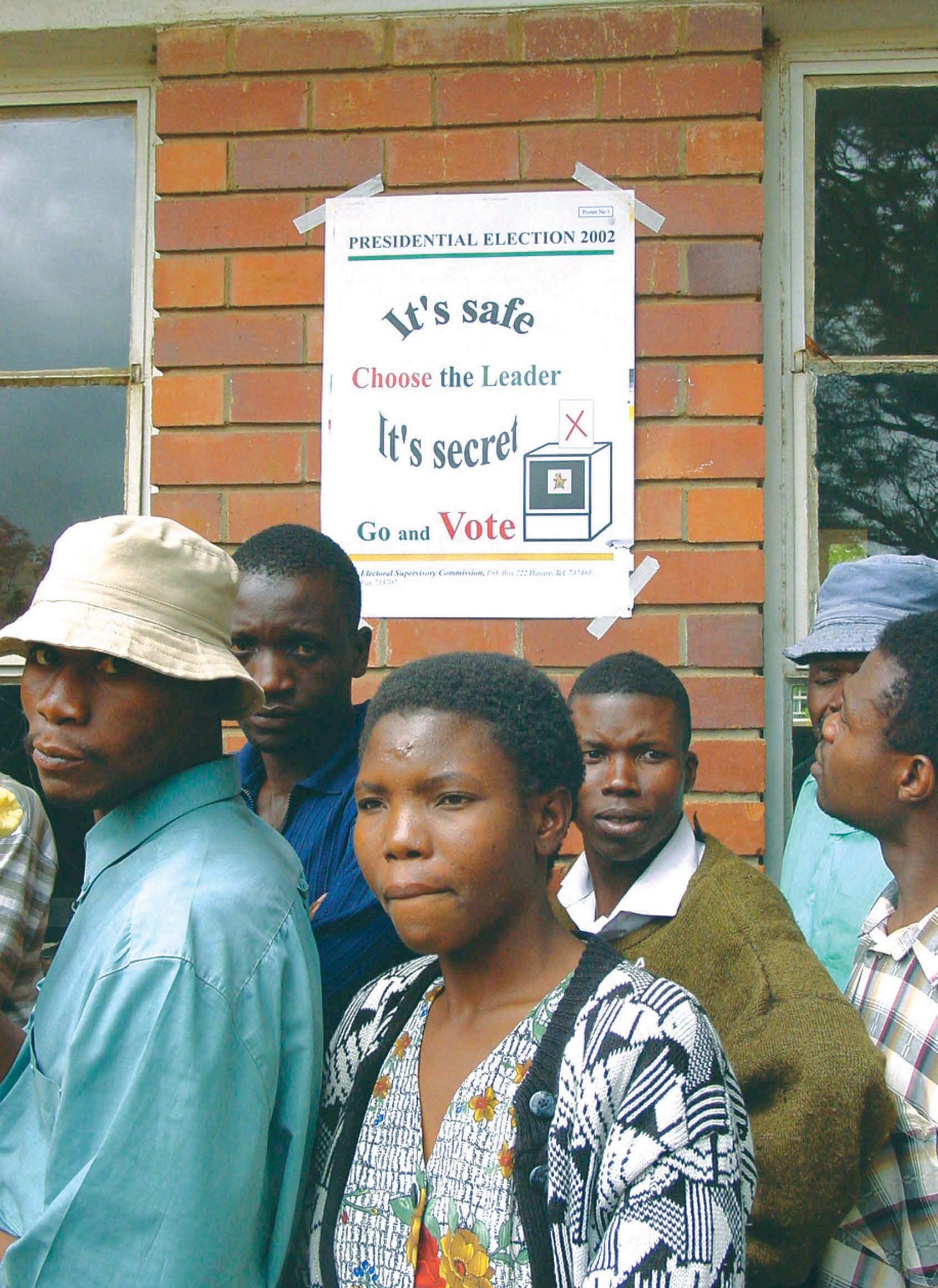
strengthen relationships in Africa and Asia.
Refreshing the Commonwealth partnership
Such partnerships are crucial to promoting good governance, based upon the values that we
espouse. Britain’s continued engagement and partnerships with developing countries are essential; globalization means increased competition in business and commerce, but also for ideas and values. Too often we have been hampered and paralyzed by our
Head of the Commonwealth for the past 57 years; but in other senses we should not see it as automatically being led by Britain or centred on us. Its great value comes from being such an extensive and multi-faceted network, and a modern network does not have a fixed centre or a pyramid of seniority or command. We must rediscover the will and desire to participate energetically whilst remaining confident that our beliefs, experience and ideas remain of value to other Commonwealth countries.
There are at least five areas in which the role of Commonwealth can be enhanced. The first is the expansion of its membership, as this will bring dynamism and new enthusiasm. This is happening already and is something we need to actively encourage. In the last 20 years, countries such as Cameroon, Namibia and Mozambique – the first country without historical ties to Britain –have joined and Rwanda, Algeria, Yemen and even Japan have all expressed an interest. We should welcome the Commonwealth’s expansion and new applications. Whether countries meet the membership criteria and share the Commonwealth values is of course a matter for the Commonwealth Secretariat; but the fact that there are potential members is heartening and has the potential to uplift the entire association.
imperial relationship with the Commonwealth of the past. The Queen has been an inspiration as
A second area would be to enhance the Commonwealth’s role in conflict prevention and resolution. The SecretaryGeneral’s good offices which promote reconciliation, peace and stability without prejudice to the independence, sovereignty and territorial integrity of member states is a flagship programme of the Commonwealth Secretariat, and performs a great deal of work behind the scenes which often goes unrecognized. Hostilities in countries such as Lesotho, Sierra Leone, Swaziland, Tanzania and Cameroon, and in Kenya following
last year’s post-election violence, have benefited from the Commonwealth’s involvement.
It is able to carry out this task as it is seen as non-threatening, can act with discretion and has no other motive besides a peaceful outcome. We should develop this programme further by working in non-Commonwealth countries.
The establishment of a semipermanent secretariat of experts from Commonwealth countries to provide an immediately accessible source of expertise necessary to mediate in disputes or conflicts would be of immense value.
A “healing touch” for Zimbabwe and Pakistan
Thirdly, it should take a leading role where appropriate in addressing state failure. Prime Minister Nehru, who negotiated India’s association with the Commonwealth at the point of independence, remarked the organization can deal with problems “with a touch of healing” in a way which would be “good for us, good for certain other countries and I think good for the world”. This sentiment certainly holds true 60 years later and there are several places where the Commonwealth could apply its deft touch.
An obvious example is Zimbabwe, a country whose demise has tragically been played out through the recent history of the Commonwealth. The devastation in Zimbabwe after decades of misrule is a cause for both shock and great sadness and it remains a cruel irony that the main statement setting out the Commonwealth’s values is named The Harare Declaration, given the contempt with which the democratic principles that it enshrines have been abused in the country.
President Robert Mugabe may have withdrawn Zimbabwe from the association in 2003 amidst condemnation over the way in which the presidential elections were conducted the previous year; but the Commonwealth family has
a moral commitment to the people of Zimbabwe and to the neighbouring Commonwealth countries, into which its problems have now spilled.
The Commonwealth’s help in devising a reconstruction plan for the country will be required, along with its expertise in areas such as post-conflict resolution, development, education and health. In the same way that South Africa looked to the Commonwealth to reconnect with the world after the end of apartheid and decades of isolation, Zimbabwe can use the Commonwealth network to reinvigorate its economic, political, cultural and sporting ties once democracy is restored.
When South Africa left the association in 1961, the Canadian Prime Minister John Diefenbaker said there would always be a candle in the window for the day of its return and I very much hope that a similar candle is burning for the people of Zimbabwe. I can think of no better way for the Commonwealth to commemorate its 60th anniversary than for it to help the country through this very dark period and to welcome it back into the Commonwealth family as soon as it is able.
Similarly, the Commonwealth can also play an important role in other recent trouble spots, like Pakistan, with whom it has had a long but often fraught relationship. Returning to the Commonwealth fold in May 2008 after its most recent suspension, it is essential that collaboration with Islamabad gains momentum over the coming years.
Co-operation with Pakistan in the area of security and intelligence continues to be of paramount importance for world security against a continuing terrorist threat. The terrorists who carry out these actions thrive in the climates of fear and mistrust that they seek to create, so our joint solidarity in facing down such divisive forces must be unwavering.

Above: A Muslim woman; Opposite page: steel handcuffs signalling the new ‘slave trade’.
The Commonwealth rightly condemned the terror attacks in Mumbai and will continue to stand against all forms of extremism. I hope that its conciliatory influence will promote peace and stability in this and other areas of the Commonwealth.
Reaching out
Fourth, it should extend its influence to areas outside the domain of its traditional membership and build bridges where its expertise would be welcomed. The make-up of the Commonwealth countries, containing approximately 500
million Muslims, could make it an ideal conduit for certain reform initiatives in the Arab world using its own particular strengths to foster co-operation, goodwill and trust in the region. Interestingly, Malaysia believes that the Commonwealth offers a readymade network for moderate Muslim states to have a voice on the international stage.
In some of these countries, the young represent the majority of the population. We should work with them through new initiatives going both ways here in Britain through VSO and in other Commonwealth countries through similar networks that can bring the young closer through exchanges of ideas and practical assistance.
Fifth, the Commonwealth is a prime forum for tackling issues which cross divides and national
boundaries and its efforts should be given more recognition. One example is inter-faith dialogue since approximately 800 million Hindus, 500 million Muslims and 400 million Christians make up the Commonwealth. It is fortunate to be able to draw together such a great cross-section of opinion, culture and tradition – something that can stand in direct contrast to the pernicious and divisive rhetoric of the extremists. Moderate and
human trafficking – a form of modern-day slavery – be it as a country of origin, transit or destination. This worldwide trail of destruction can only be eradicated by national authorities working in close contact with each other, and by sharing information and knowledge about the criminal networks and their methods.
The Commonwealth’s substantial network of civil organizations could be harnessed

constructive dialogue, especially in times of economic and social turbulence, can help to build trust among different ethnic groups and also nations. Over recent months places such as Orissa state in India and the city of Jos in Nigeria have witnessed brutal attacks on Christian minorities and the Commonwealth could draw upon its experience to help prevent religious discrimination in locations such as these, just as it worked towards ending racial intolerance in South Africa.
new slave trade
Another example which requires additional attention is migration and the inter-related issue of human trafficking, given that the Commonwealth comprises a third of the world’s population. No country is immune from
represent the make-up of its membership in the modern world.
The budget formula for subscriptions to the Commonwealth Secretariat is outdated and does not reflect the new dynamism and economic success of certain members: the United Kingdom pays 30 per cent, Canada 19 per cent and Australia 10 per cent, whilst India, Singapore and Malaysia all pay less than three per cent.
It is also vital that the sense of ownership of the Commonwealth is spread among different countries and that they are given the chance to assume responsibility for specific ideas. This could be achieved by building more intergovernmental organizations away from London, such as the Commonwealth of Learning in Vancouver and the Commonwealth Human Rights Initiative in New Delhi.
This is on top of the good work that the Commonwealth does in other areas, such as climate change, where it has taken the lead and must continue to do so.
to form a powerful coalition in raising awareness, urging national governments to devote more resources to combating this crime and in assisting those who have fallen victim.
In addition, the Commonwealth must take up the mantle of its own reform and examine its own structure, governance and internal machinery. According to the British cabinet minutes of the meeting which heralded the Commonwealth’s modern birth in April 1949, “emphasis was laid on the importance of maintaining the strength and cohesion of the Commonwealth…when international relations were so unstable”. This imperative still holds true today and requires the Commonwealth to better
of attitude across the entire government towards the Commonwealth – its value must be recognized and our long and friendly relationship with it must not be allowed to fade away.
If the organization is to remain effective, it must protect its own moral authority. The Commonwealth should be commended as the only international institution to possess a mechanism which facilitates the suspension of members which breach its fundamental principles, via the Commonwealth Ministerial Action Group (CMAG). But at different times it has failed to take decisive action against persistent violations by member countries with continual and serious democratic defects such as Pakistan, Zimbabwe and the Maldives. Credibility gained by CMAG’s tough stance towards Nigeria, Sierra Leone and The Gambia will be undermined without consistency in its dealings.
The point is not that the Commonwealth is inactive but that its achievements will depend on the readiness of its member governments to make use of it, and that greater use of the Commonwealth can be made. In an age of networks, it can be one of the most valuable networks of all; in an age of flexibility it can be of practical value in ways which more rigid institutions find difficult, and in an age of globalization it can exploit its unique global reach.
It will be up to individual governments, including our own, to summon the political will to ensure it has adequate support and resources to evolve in a manner which continues to serve the interests of its people. In the case of Britain, there needs to be a significant change
We should be excited and determined about what the nations of the Commonwealth can do together. Amidst the shifting global landscape, the Commonwealth can act as a bridge across divides of religion, ethnicity, culture and wealth, to the benefit of common humanity. When the modern Commonwealth was born 60 years ago with the inclusion of a newly independent India, the final communiqué from the Commonwealth Prime Ministers Meeting stated that the association had demonstrated the ability to “strengthen its unity of purpose while adapting its organization and procedures to changing circumstances”. It should draw upon this experience and continue to evolve in the full assurance that it has an important role to play in the twenty-first century. There is vast potential to be unlocked and Britain must, along with our friends and allies, be at the forefront of these efforts.
The Secretary-General of the Commonwealth presents a strong case outlining the vast achievements effected by the Commonwealth over the last 60 years, ultimately dismissing claims about the relevance of the Commonwealth.
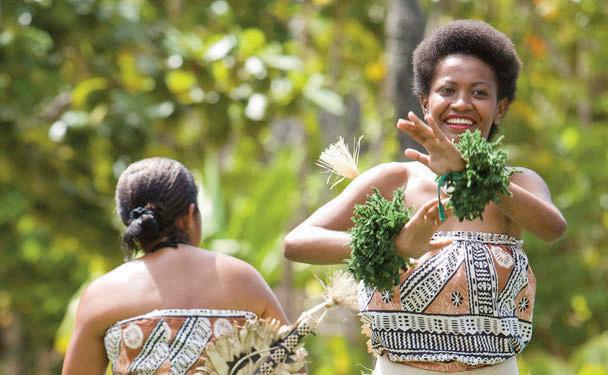
H.E. Mr Kamalesh Sharma, in London.
Mr Sharma is the Secretary-General of the Commonwealth . He previously served as India’s High Commissioner to the United Kingdom, where he was closely involved in Commonwealth activities. In that capacity, since 2004 he has served as a member of the Board of Governors of the Commonwealth Secretariat and the Commonwealth Foundation.
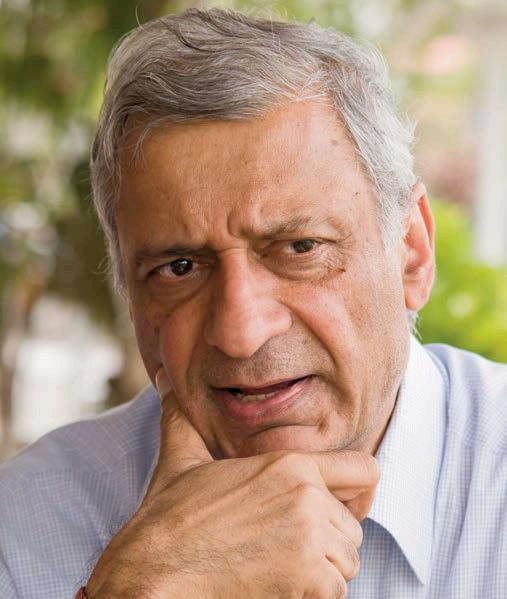
The Commonwealth’s diamond anniversary falls on 27 April 2009, 60 years since the signing of the London Declaration in which eight founding members constituted themselves anew, and ushered in a new era of collective and voluntary deliberation of global developments in the post-colonial era.
Many fine things have been and will be said of us this anniversary year as in any other. More things will be left unsaid. The knowledgeable will know of the Commonwealth’s steady contribution to governance, small states and development. There will be positive associations,
around the Commonwealth’s bestknown brand names: ‘The Friendly Games’; the Commonwealth Writers’ Prize; the Commonwealth scholarships. Yet it is to one particular charge that I turn in this article: the claim that we are irrelevant. The charges are well worth repeating: sentimental residue of empire, no teeth, dated, decorative, stronger on words than deeds. It is useful to set the record straight.
In the last 60 years, the Commonwealth’s relevance and far-sightedness have been its watchwords.
Rewinding – by the decades •1999: the organization readmitted a democratic Nigeria in the wake of the end of military rule, successful elections, and Mr Olesegun Obasanjo’s assuming office as President. It was a decade that drew a firm line under the organization’s rejection of military rule and determination
to accept only civilian democratic governance.
•1989: Pakistan under Benazir Bhutto was admitted 17 years after it removed itself from the organization over the Commonwealth’s recognition of an independent Bangladesh. In the same year, the Commonwealth led global thinking on the environment and climate change with a statement and related action plan from its Heads of Government in Langkawi, Malaysia. That statement was to form the basis of the declaration made by the Rio Earth Summit in 1992.
•1979: when the membership spoke as one on the inadmissibility of any form of racial prejudice in national life, and also gave a clear delineation of the path towards Zimbabwean independence. The Commonwealth became the midwife at the birth of a nation. Since its very inception, it had orchestrated the fight against racism, especially in

South Africa and Rhodesia.
•199: when we paved the way to formalise the piecemeal t technical assistance which had begun two years previously with U.K., Canadian and New Zealand funding, and turn it into the multilateral Commonwealth Fund for Technical Cooperation (CFTC) in 1971. The idea was that all –including the vast majority of net recipients – would contribute and feel ownership and involvement. The southsouth nature of the CFTC was also an important step towards the Commonwealth’s status as a trusted partner, as much in development as in political dialogue.
•1959: when the first meeting of Commonwealth Education Ministers set up the Commonwealth Scholarships and Fellowships Programme, which, half a century later, now boasts 26,000 alumni –witnesses to the opportunities afforded by both education and international collaboration.
•1949: when the organization answered the post-war and post-independence question ‘how would the old Commonwealth and the new would reconfigure themselves?’ The result was a visionary statement after three days of intense negotiation, agreeing on voluntary allegiance to the person of the King as the symbol of a “free and equal association”. The British Commonwealth had faded into history and the modern Commonwealth was born; a new global era of internationalism was inaugurated by this very organization. British Foreign Secretary and later Prime Minister Lord Rosebery had hinted at the concept of equality, collectiveness and individuality in Adelaide in 1864, when he first coined the term “Commonwealth of Nations”, though in the limited context of dominions. From 1949, the process was irrefutable and irreversible.
Evolution I believe that it was the Commonwealth which in 1949 pioneered the idea of an international community. The earliest meetings of Commonwealth leaders announced the arrival of the postcolonial world of sovereign states, with the right to an independent world view and aspirations for their own people. The leaders met then with no agenda except recognition of the desirability – indeed necessity – of forging a collegiate forum where national perspectives as well as views on global issues were heard and exchanged in the new world upon us.
This had not been seen before. The leaders met without formal agendas: they did not give this pioneering conclave a charter or articles of association. Freedom fighters met as national leaders. A warm and mutually respectful, unique club of world leaders took shape.
In its progressive evolution over decades, the Commonwealth provided a congenial political
Opposite page: Dancers performing a traditional Fijian dance;
Above: An aerial view of Victoria Falls on the ZambiaZimbabwe border.
grouping of world leaders which was of enormous value to newly independent states, particularly the smaller ones. Each was given equal place and time, enabling an immediate opportunity to shape their global outlook through exchanges with those from different regions. It enabled the growth of their international and their national personality.
The exchanges between the leaders that joined the Commonwealth at different points of time constituted a very positive contribution to the creation of healthy internationalism in the second half of the 20th century. It saw the emergence of the contemporary world. The growing Commonwealth was a force for creating a shared world view on many of the emerging issues before the world community.
In all this, the Commonwealth has been a leading contributor to the great task of the creation of a value-based global polity. It has done more than espoused the principles of enlightened governance: its Member states have committed themselves to their practical application. Where members flout them in serious or persistent ways, they risk suspension from the workings of the organization.
The Commonwealth’s lead on this has been mirrored by other regional organizations such as the New Partnership for African Development (NEPAD) and the African Peer Review Mechanism, and the Biketawa Declaration of governance principles in the Pacific, or in the CARICOM. South Asia constitutes more than three quarters of the population of the Commonwealth: all have embraced these principles. No organization has made a greater contribution to the acceptance of the goal of value-based sustainability as the guiding principle of nation building. The fate of the 21st century will depend on its outcome.
Together with the aspiration,
come the means for advancing and securing it. The Commonwealth is also in the engine room. The “good offices” work of the Secretariat in nurturing harmonious political relations in Member states, the building and consolidation of key institutions such as Election and Human Rights Commissions in safeguarding these principles, have all served to establish the Commonwealth as a trusted strategic partner to Member states. The aspect of trust cannot be overemphasized. Much of the crucial supportive work by the Commonwealth Secretariat is done under the radar screen of the
“Democracy is an unending journey...its path has been as winding...in the longest established democracies as in the newer ones.”
global media. Indeed, much of this is possible because partner Member states know this to be the case. The Commonwealth goes more for the win, and less the spin.
Landmarks of the Commonwealth Landmarks can be found in virtually any span of Commonwealth history. The list below is indicative of this:
•the Commonwealth’s championing of decolonization, from the 1950s;
•the creation of the Commonwealth Foundation in 1965 to promote the voice and work of Commonwealth civil society, and by now the 90 or so Commonwealth civil society organizations networking mutual professional support in important areas such as education, law and media. The People’s Forum which meets
around CHOGM is simply the latest manifestation of the “organization of peoples”;
•its establishment of the first ever youth unit and youth development programme set up by an international organization in 1974;
•its global initiation of the concepts of bilateral and multilateral debt relief for heavily indebted poor countries, at Commonwealth Finance Ministers Meetings in 1987 and 1997 respectively;
•its launch of a distance education programme through the Commonwealth of Learning in 1987;
•also in 1995, its launch of a Commonwealth Private Investment Initiative which has since raised $800 million for African, Caribbean and Pacific countries;
•its global launch of the study of small states (their special vulnerabilities, their unique potential), alongside the World Bank, in 2000 and 2005; and
•The launch of teacher and health worker recruitment protocols to manage migration in 2004.
2009: The present day
Symptoms and solutions – a changing world order
In 2009, the Commonwealth remains on the global pulse. In the broadest sense, the world is gripped by transformation, and the Commonwealth is part of that momentum in responding to fresh challenges and seeking rational solutions.
The old and seemingly entrenched political polarity between East and West is gone; that between North and South is going. Today’s world features new centers of both political and economic influence; and the global community now looks to a new paradigm of the collective good. Globalization is comprehensive and irreversible. The Commonwealth contains these
trends, and responds to them by collective approaches to collective challenges and aiding the globalization of insight and wisdom. The Commonwealth can be judged by its results, and those who do so can package them into the established pillars of our engagement: safeguarding and promoting democracy, development and diversity.
The Commonwealth’s three Ds: recent illustrations
The Commonwealth promoting democracy
Democracy is an unending journey, and its path has been as winding and incremental in the longest established democracies as in the newer ones. Most Commonwealth Members – states for less than half a century – have had to move uncommonly fast in creating the laws, institutions and underlying democratic culture that are the bedrock of a system which has been observed to be only the best of several imperfect options. Democracy revolves around the painstaking processes of nurturing democratic culture and building good governance in the institutions of democracy – Legislature, executive, judiciary, ombudsmen, human rights institutions, electoral commissions, and more.
It is in such a context that the Commonwealth’s democracy good news stories are easy to overlook. 2009 again sees us in the front line of supporting government of the people, by the people, for the people.
Fiji – democratic values and suspension
In February 2009, the Commonwealth Ministerial Action Group of nine foreign ministers met in London to discuss Fiji Islands, which suffered a military overthrow of a civilian government in December 2006 and which has been without elected government ever since. It was suspended from the Councils of the
Commonwealth, and remains so. But with suspension comes determination to help Fiji return to the paths of civilian democracy, and resume its place in the Commonwealth. Alongside the United Nations, we have been asked to facilitate the processes of political dialogue in that country, between political parties, civil society, and other involved parties. We are in a role that is central to the country’s efforts to pull itself out of the ‘coup culture’ mire.
2008-2009 – three unsung successes
The turn of the year 2008-2009 saw three successful elections, all achieved with Commonwealth help, and all of which featured Commonwealth observer teams seen as sources of good sense, stature and fairness.
Bangladesh had borne two years of caretaker government. Its own achievements in that time were considerable, not least in creating a monumental electronic database of voters. The Commonwealth, meanwhile, was active in strengthening its national human rights commission. In December, the Commonwealth observed elections in which some 70 million people voted, with palpable enthusiasm and excitement. It was at the forefront of a democratic restoration.
In Ghana, where again we had strengthened both the election and human rights commissions, elections saw razor-thin margins in the first and the second rounds of voting, and power changing hands after eight years. To the great credit of that country, order was maintained, and the country moved on. Again, the Commonwealth was instrumental to the success of the elections – and their preparation. Over a number of years it has given support to Ghana’s election commission, which in turn has shared its own experiences in preparing for
elections with other Members of the Commonwealth.
Ghana’s political leaders have also been closely involved in a
Commonwealth programme to bring together representatives of governing parties, opposition parties and civil society from
Commonwealth countries in West Africa to discuss their relationships with and responsibilities towards each other.
By Ms Jade Cochran, The Commonwealth Secretariat
The 2009 marks the 30th anniversary of the convention of the elimination of all forms of discrimination against women (CEDAW).
Sometimes called the international bill of women’s rights, CEDAW is the most comprehensive international treaty dealing with women’s rights and obliges countries to eliminate all discrimination based on gender. All but two Commonwealth countries have ratified CEDAW –a clear signal that the Commonwealth is committed to achieving equality for women and men in all realms, whether civil, political, economic, social or cultural. The Commonwealth Plan of Action for Gender Equality 2005 - 2015 encourages Commonwealth Member states to ratify and implement CEDAW.
Parliamentarians play an important role in both shaping our society and ensuring that governments respect the principles elaborated in CEDAW. Parliamentarians are well placed to oversee the practical implementation of women’s rights as guaranteed in CEDAW. It is against this background that the Commonwealth Secretariat is calling Parliamentarians into action on gender equality, using the 30th anniversary to focus attention on CEDAW.
To mark this special anniversary we are calling on Members of Parliament, as drivers of legal reform and as leaders of public opinion, to hold parliamentary debates on CEDAW and its implementation. This initiative is being called to keep women’s rights on the national agenda and to mobilise public opinion on these issues. Speaking on this initiative, Dr Purna Sen, Head of Human Rights at the Commonwealth Secretariat, said “the Commonwealth is committed to democracy, the promotion of human rights and addressing poverty. None of these aims can be realised without women achieving their potential, participating freely and without fear in all spheres of life, having control over their bodies and being
free from discrimination. Implementing CEDAW takes all of these, and more, forward to the benefit of all society”.
One theme being prioritised by the Commonwealth Secretariat is the removal of reservations to CEDAW. Reservations are a formal declaration that a country does not accept part of an international treaty as binding. Such reservations are permitted, but not encouraged so the number of reservations against CEDAW is a matter for concern. Despite its high ratification rate across the Commonwealth, CEDAW has 16 countries that hold reservations against it - the highest number for any human rights treaty in the Commonwealth. Such a high number of reservations limit the scope that CEDAW can have in addressing the inequities women face in Commonwealth countries. The Commonwealth Secretariat call on Parliamentarians of countries which hold reservations to CEDAW to raise debate and inquire as to the continued legitimacy of such reservations and take efforts to have them withdrawn. Countries which continue to maintain reservations will have their commitment to eliminate all discrimination against women questioned.
Parliamentarians – both women and men – who advocate for the elimination of discrimination against women, play a vital role in the creation of an enabling national environment for gender equality. We hope that you will meet us in our call and use the parliamentary tools of debate and powers of government oversight to promote and protect the rights of women on the occasion of 30 years of CEDAW.
Further information on this initiative will be made available via the CPA Commonwealth Women Parliamentarians (CWP). Alternatively, please contact us at: hru@commonwealth.int
To find the text of CEDAW online, please go to [http://www2.ohchr.org/english/law/cedaw.htm]
In the Maldives, the Commonwealth had used its advisors and a special envoy to help draft a national constitution and move a one-party state of 30 years into the realms of multi-party elections. Observed by the Commonwealth, the elections were carried out without incident; they were won by the opposition, and power was gracefully conceded. This remarkable transition in the Maldives made few headlines, and even if it had, the Commonwealth would have sought no plaudits.
Kenya – the long haul Further back still, the Commonwealth observed the 2007/2008 Kenya elections which led to serious ethnic violence and loss of life. We were engaged with the subsequent efforts to secure stability, and while the country’s coalition government now seeks to rebuild, the Commonwealth is at work – offering technical advice to the Election Commission, offering judges to preside over the formal reconciliation process, working alongside the Commonwealth Parliamentary Association to strengthen Kenyan parliamentary committees and procedures, and advising media on the best principle and practice of conflict reporting.
The Commonwealth promoting development
Development too, is a journey of advance and reversal – with the concurrence of several global crises now showing the potential shakiness of economic foundations.
For the three-quarters of a billion Commonwealth citizens living in dollar-a-day poverty, the Commonwealth simply cannot afford reversal. Fourteen of our Member states are classified as “Least Developed Countries”. The current global downturn may make headlines for its origins and consequences in the richer world, but it is the developing world which suffers most.
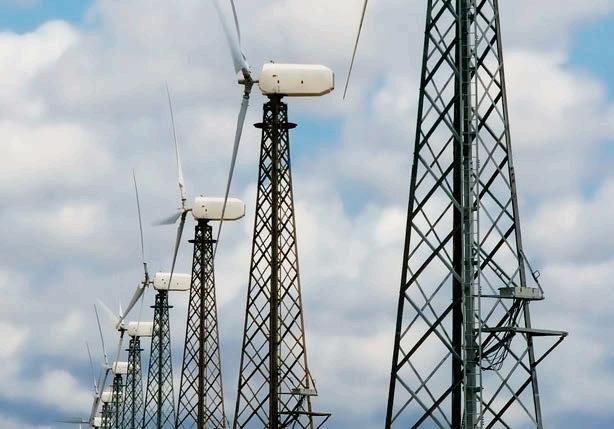
Trade – renewing international frameworks
Trade is a motor of development, and the Commonwealth has engaged long and hard for a multilateral, fair and rules-based global trading system under the auspices of the WTO, and for effective “aid for trade”. We famously said so with our multilateral trade declaration on the eve of the World Trade Organization’s Hong Kong Ministerial in December 2005, which advanced the level of collective ambition.
The Commonwealth is also continuing a parallel track of supporting regional trade agreements. I recently hosted a meeting between the new Trade Commissioner of the European Union (three of whose Members are Commonwealth countries) and the ACP (40), to provide a political impetus to Africa’s and the Pacific’s Economic Partnership Agreements with the EU, after the Caribbean one was signed at the end of 2008.
Again, the Commonwealth was seen as mediator, adviser, partner –
as well as a substantive player. The Commonwealth is as instructive in shaping debate on the general principles as it is in areas like rules of origin, trade facilitation, export capacity-building and negotiating capacity.
Trade – building national capacity
New rules and frameworks for trade carry little weight and meaning if developing countries are unable to take best advantage of a system that is potentially freer and fairer. Hence the practical Commonwealth help, for instance in completely overhauling the customs systems in places like Kenya, Sierra Leone and Mozambique. Hence too, Commonwealth help in assisting small states to reorient their economies to open up new trading possibilities. The Commonwealth has been at the forefront, for instance, in helping transform Mauritius from a sugar-based economy, newly deprived of the trade preferences which had served it so well for so long, to make it a dynamic, exportprocessing economy, and new
Above: Alternative forms of technology are needed to help protect the environment.
player in the global market for financial services and healthcare. Similar export strategy reviews and action plans have been developed for countries like Swaziland, Antigua, and Kenya.
Environment – preserving the planet
The greatest threat to the developmental progress we have made lies in the damage we have done to our planet. The painstaking gains of years can be undone by the erosion of our greatest resource: our natural resource. The Commonwealth cannot solve the world’s environmental problems on its own. But what it agreed with its Lake Victoria Commonwealth Climate Change Action Plan in Kampala two years ago was a start. Work under the Action Plan is underway, for instance in facilitating global dialogue and negotiation in the run up to Copenhagen in December 2009 –the successor to Kyoto – by
supporting small states preparing their positions. We are already seeing the value of using the extraordinary resource of Commonwealth civil society networks – the foresters, the meteorologists, the statisticians, and more – who are individually and collectively focused on the issue of climate change. The Commonwealth has carried out environmental research in areas like the carbon footprint of African and European cut flowers. It has established and shared best practice in preparing for – and if necessary reacting to – natural disasters. It has made a wide case for its initiative in the Iwokrama rain forest in Guyana, which involves innovative thinking on combining private sector funding, local ownership, government support and international partnership, to keep the forest as a living, breathing, working organism.
Above and beyond its environmental projects, the Commonwealth is now in the vanguard of a global call for renewed and revitalized international environmental governance, in the face of a multiplicity of laws and institutions. The report on the subject which we produced in June 2008 was called “the most valuable and honest” contribution yet made to the debate, by the Executive Director of United Nations Environment Programme (UNEP). Our role was reflected in my moderation of the UNEP Ministerial plenary in February, on the reform of international environmental governance, and the acceptance of my conclusions as to the way forward.
In an era of crumbling global governance structures, a new relevance of the Commonwealth is the role of advocacy based on principles of legitimacy, representativeness, flexibility, responsiveness, accountability and transparency, and effectiveness and inclusiveness to safeguard the voice of small and vulnerable states. These have been endorsed
by the leaders in the Marlborough House Statement of June 2008 and are being pursued in the UN and the areas of international financial institutions and environment, where the interventions by the Commonwealth have influenced the terms of debate.
This is the Commonwealth of relevance and practicality in supporting the development needs and aspiration of its Members, at global, regional and national levels. In any given year, we will have some 500 experts and resident inhouse advisers carrying out small scale projects, in some 45 of our Member states and their overseas territories. Their pursuit is sustainable development and good governance.
Commonwealth promoting diversity
As with democracy and development, the Commonwealth is at the forefront of creating enlightened and harmonious societies.
The sinews of society
The Commonwealth’s 2007 report Civil Paths to Peace won plaudits for its perceptive insights on our multiple identities, and on the importance of democratic culture –above all in attitudes and policies for young people, women, media and education – as the key to addressing society’s most pressing problems. It has now gone considerably further, collecting examples of member state best practice, for sharing. A body of positive, shareable evidence is being developed.
The Commonwealth Scholarships and Fellowships Programme is 50 years old in 2009, boasting 26,000 alumni who have gone on to take up transforming roles in their own societies. It is now launching an endowment fund to open a new and important chapter for the awards by encouraging south-to-south and
north-to-south awards, and thereby further sharing knowledge, and linking societies.
Women and youth – society’s ‘litmus test’
Some of the key determinants of the success of diversity – and democracy and development – are the fortunes of women and young
“But the priority, from which all such good works may later flow, is to entrench the required perspectives on gender and youth at the highest governmental levels.”
people. Their fortunes are the litmus test of any society. The Commonwealth is active and immersed in both areas – with its 35-year-old Youth Programme run out of Georgetown, Lusaka, Chandigarh and Honiara, and with a host of initiatives for women, from promoting their political representation, to public education films on maternal health, to training women entrepreneurs as artisans in places like Malawi, Bangladesh, and Pakistan.
But the priority, from which all such good works may later flow, is to entrench the required perspectives on gender and youth at the highest governmental levels. The Commonwealth seeks to convince that every government department has a policy, a work programme and an accompanying budget which caters for women and young people. We call it “mainstreaming”, and have seen its successes. In 2009, we are working with the governments of
both Botswana and Jamaica in youth mainstreaming, by appointing youth focal points in each ministry to integrate youth issues into health and education.
of Spain and ‘CHOGM 2009’
“Relevant now, relevant then – for governments and for peoples”. This is the Commonwealth of 2009 which enters its 60th year within the maelstrom of converging crises – finance, fuel, food, climate, with the looming spectre of a surfeit of people and a deficit of resources with which to supply their most basic needs.
It is in this context that Commonwealth Heads of Government will meet in Port of Spain in November. The world cannot afford the luxury of any international institution that is irrelevant. The detractors may have little foundation, but the Commonwealth’s task remains to have a bearing for the benefit of its Members, collectively and individually, and for the global good. It will also need to seek to be better known and understood.
At 60 years young, the Commonwealth has a clear focus on serving future generations. Its networks –Parliamentarians included – give it an enormous constituency around the world. Its values, its support for the weak and vulnerable, and its quest to move with the times to meet the needs of its members, continue to give it its reasons for being, and for continuing to be.
The way the Commonwealth works is responsive and necessarily contemporary: it cannot be otherwise. It embraces the call of both good governance and development. Its Membership is cherished by existing Members and aspiring ones. It is a great global good and will contribute to the reason and wisdom needed to guide the world in its critical transition. It has never been less than this.
An amended constitution gives The Maldives and its People’s Majlis a modern, multiparty democratic system, says its Speaker.

Mr Mohamed Shihab, MP, Speaker of the People’s Majlis
Mr Shihab is the Speaker of the People’s Majlis. He has been a Member since 1985 and has held several senior posts in the public service and the private sector. He holds a degree in economics.
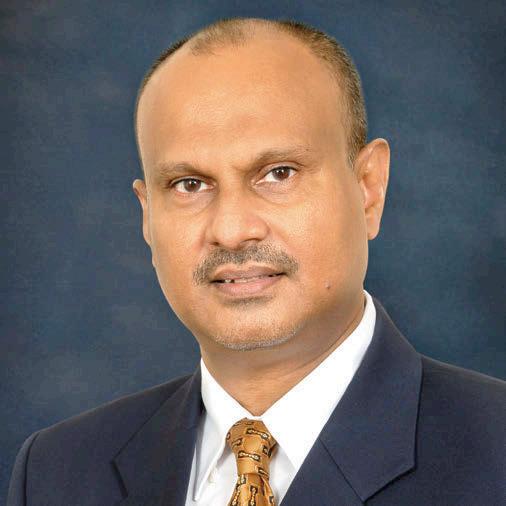
On 7 August 2008, Maldives finally gained true democratic status upon the ratification of the amended constitution. The constitution – which is based upon international standards – conforms to modern democratic principles, has been widely greeted by all Maldivians and is regarded as a significant moment in the political history of the Maldives.
Constitutional history
The Maldives is a sovereign, unitary and independent democratic
republic based on the principles of Islam.
It was during the reign of Sultan Muhammad Shamsuddeen that we were subjected to a written set of laws for the very first time. On 19 March 1931 a council was appointed and assigned with the mandate of drafting the first constitution of the Maldives. The constitution, which was formulated by the council, was proclaimed and implemented on 22 December 1932. The rights of the citizens, justice for the people and all citizens to live in peace were enshrined in this constitution for the first time. It also contained administrative reforms that aimed at improving the life of the people.
Several amendments were subsequently brought to the first constitution and it was repealed on 31 January 1940 on the finding that it was unsuitable for the circumstances that prevailed in the country at the time. A new constitution was again formulated and implemented on 23 April 1942.
In 1952, Maldives became a republic upon affirmation by a referendum and the constitution was changed. However on 7 March 1954, the monarchy was restored due to a change brought to the governing of the state, leading to the constitution being revised again. In 1968 a new referendum was held during the reign of Sultan Muhammad Fareed, and a republican form of government was adopted by the Maldives for the second time on 11 November 1968. The constitution of the Maldives has remained the same since and has been thrice amended as stated above.
During the first year of the Presidency of Maumoon Abdul Gayoom, on 31 December 1978, the People’s Majlis passed a Bill providing for the amendment of the constitution. The President convened the People’s Special Majlis (constituent assembly) on 29 November 1980 and charged the Special Majlis with the responsibility of amending the constitution. The
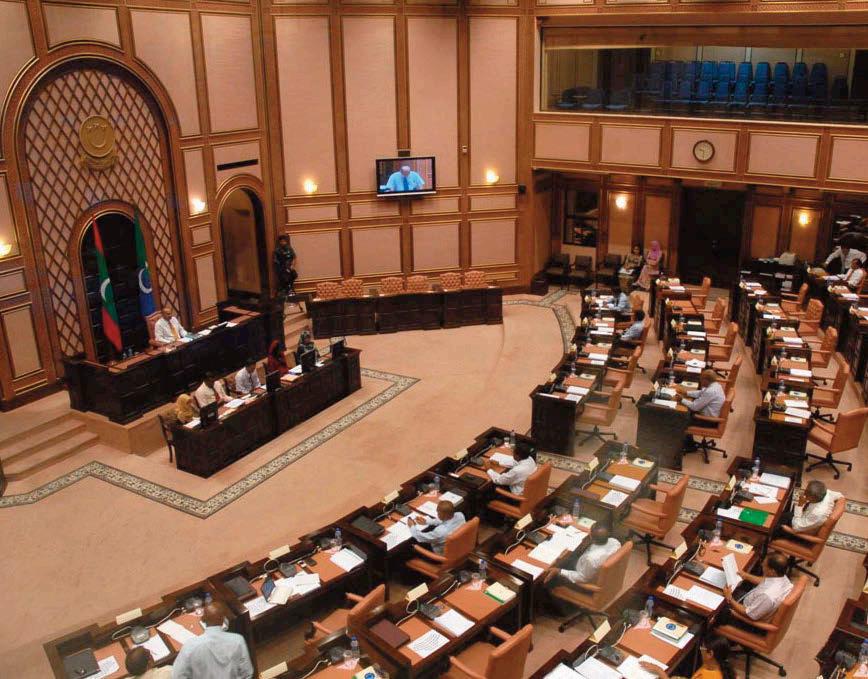
constitution which was adopted by the Special Majlis came into force on 1 January 1998.
In July 2004, the People’s Special Majlis was convened to amend the existing constitution due to pressure from the public, as the then existing constitution was deemed unsuitable for a democratic nation as well as the current situation in the Maldives. The aim was to amended the constitution that promoted a modern, multi-party democratic system giving more powers to the Legislature and thus to the Maldivian people. The Special Majlis then formed a constitution drafting committee to draft the amendments. Some of the major changes brought about by the amended constitution included:
1.Real separation of powers between the legislative, executive and judicial branches;
2.Appointment of a cabinet by the President to be subject to endorsement by the People’s Majlis;
3.Entitlement for a woman to be elected as President of the Maldives;
4.A President to only have two five-year terms;
5.The parliamentary configuration of constituencies is based on the basis of proportional representation and not on the basis of each atoll. Thus, there will be two representatives for first 5,000 citizens of the atoll and then one more for each additional 5,000. Therefore, there will be around 78 Members in the People’s Majlis;
6.No allowance for presidential appointees in the Parliament;
7.The President may proclaim a State of Emergency but Parliament can veto the decision;
8.Members of the People’s Majlis cannot hold dual positions that would compromise their accountability. Similarly, they cannot hold positions of profit;
9.The establishment of an independent judiciary, Supreme Court and independent Prosecutor General;
10.Rules and regulations to be in place to safeguard the rights of citizens from arbitrary arrest and detention;
11.A multi-party system with a requirement that candidates should disclose their funding and political parties hold internal elections;
12.Change in voting rules of the Parliament where for a
bill or motion to pass, a majority of support of Members present and voting will be required;
13.Freedom of expression is guaranteed and authorization of the State is not required for publication of information and ideas. However there is a stipulation that freedom of expression should not be contrary to the tenets of Islam;
14.The article on freedom of association allows the formation of trade unions and introduces the right to strike;
15.The charter of freedoms and rights prohibits arbitrary detention, cruel, inhumane or degrading treatment or punishment or torture.
16.Anyone arrested has the right to be promptly informed of the reason of his/her arrest. They are also entitled to a legal counsel, and to be brought before a judge within 24 hours so that the judge can determine the validity of the detention;
17.Those charged with an offence have a right to be tried within a reasonable time and the right not to be compelled to testify;
18.The New Bill of rights offers compensation for detention without legal authority or justification;
19.Introduces the concept of legal aid with the State providing a lawyer and everyone being entitled to a fair and a public hearing within a reasonable time by an independent and impartial court;
20.Provides civil, political, economic, social and cultural rights in accordance with international standards;
Conclusion
It is my wish for the Amended Constitution to function effectively and in accordance with the democratic theme it aims to promote.
With threat of terrorism ever on the rise, the Speaker of the NWFP in Pakistan is hoping that a consortium established to help fight the war on terror will effect change.
Hon. Kiramatullah Khan, MPA, in Peshawar.
Mr Khan is the Speaker of the Provincial Assembly of North West Frontier Province (NWFP) in Pakistan. Mr Khan is also a Member of the CPA Executive Committee.
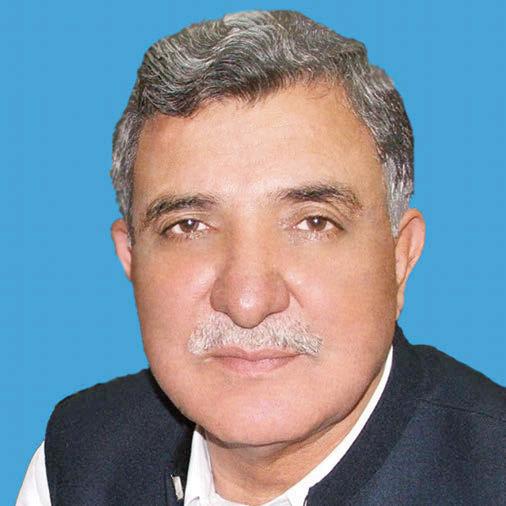
The issue of security in the modern day is one that affects the efforts of the world community as a whole. Different types of security include social, cultural and financial, but the most important one by far is the threat to the security of our existence.
Whether it is a bush fire in Australia, floods in Pakistan or the devastating tsunami of 2004, such events need to be accorded a viable solution.
Acts of terrorism have the capacity to begin in small towns and spread across the entire world. Unlike a fire in an isolated area, the
threats posed by terrorism and the spark of unrest in one part of the world can easily give rise to another potential insurgence in the rest of the world. We need other nations to challenge the integrity and existence of smaller nations to ensure protection from such threats.
Human security is the latest in a long line of new phrases including common security, global security, co-operative security and comprehensive security that encourage policymakers and scholars to think about international security as something more than the military defense of state interests. Although definitions of human security vary, most emphasize the welfare of ordinary people working to shield them from unknown threats. To my knowledge, among the most vocal promoters of human security are the governments of Canada and Norway, which have taken the lead in establishing a “human security network” of states and nongovernmental organizations (NGOs) that endorse the concept of threats to human security. The
term has also begum to appear in academic works and is the subject of new research projects at several major universities.
Other factors contributing to the issue of global insecurity include climate-related disasters such as hurricanes, typhoons and floods, and non-climate disasters such as earthquakes, long-term civil wars and ethnic conflicts. A worldwide poll has shown that the greatest economic insecurity was caused by worries over unemployment, poverty and inflation which have almost proven links to terrorism and vandalism. This very poverty issue is one of the major causes of unrest that have given rise to terrorism and armed conflict in Swat, Wazeeristan, Bajawar and Mohmand in the North West Frontier region of Pakistan. Economists have agreed that almost all of the socioeconomical, ethnic and cultural disorders have links with poverty, exploitation, unemployment and unequal distribution of wealth and resources. I know what war is like. We lost our elders, women,
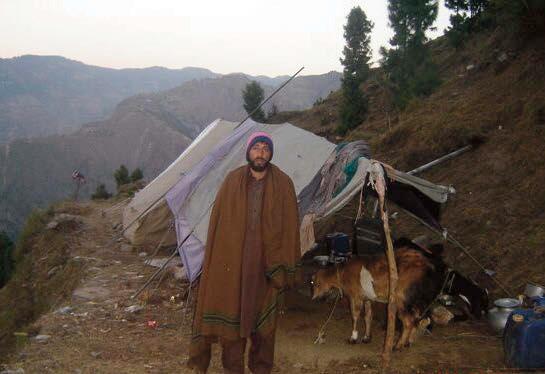
scholars, professors, voters and leaders. This is not merely a war on us but a war on humanity. This war is one of many facets; be it poverty, vandalism, terrorism or felony; I just call it insecurity of pure and poor human beings throughout the world. It is a dilemma that we must all share and address before history stamps our generations and particularly we, the Parliamentarians, as spectators.
In this regard, a consortium of member nations – particularly those who have been facing these problems – has been established to hold meetings and make suggestions to the member nations for possible follow-up and remedial steps. Pakistan – and particularly we in the North West Frontier Province – suffered in the
process of fighting the war on terror and in turn need financial and ethical support of the member nations.
We in the Commonwealth shall farm a resourceful institution like the alliances of theNorth Atlantic Treaty Organization (NATO) and the Organization for Security and Co-operation in Europe (OSCE). We need to create and lobby for the respect of humanity, religions, ethnicities, rituals and norms. It is the heterogeneous and diversity that fuels our curiosity and drive for competition. The integrity and security of every nation is a right of every nation under the charter of the United Nations, accepted by member nations.
The goals of our common struggle can only be achieved by a four-prong mix of collaboration, co-
ordination, suasion and assurance accepted to all. Though we cannot provide a proactive solution overnight, at least a reactive one may heal the wounds of our masses by ensuring at the grass roots:
•Widespread education;
•Provision of equal opportunities in the basic rights;
•Erasing cultural and racial discrimination;
•Equal economic distribution;
•Accountability for all;
•Enforcement of justice, equal reward and penalty system; and
•Creating a sense of social working and reward for those models that have set good examples.
“Human security is the latest phrase ...that encourages policymakers...to think about international security as something more than the military defense of state interests.”
With incidents of human trafficking of women and children becoming more commonplace, governments should ensure
that all adopt laws to help those most
vulnerable, argues a Pakistani provincial Parliamentarian.
Ms Shazia Tehmas Khan, MPA, in Peshawar.
Ms Khan is a Member of the Northwest Frontier Province’s Assembly for the Pakistan Peoples Party Parliamentarians.
There is an abundance of problems and concerns which challenge the sovereignty, honour and pride of the Parliamentarian, but one issue which has become increasingly commonplace is the issue of human trafficking.
The real dilemma of human trafficking/smuggling paints a grave picture in every dimension and domain of life, where innocent people are poorly treated and goods are smuggled and trafficked illegally. According to the Computer Crime Research Center report from 5 March 2005, about 900,000 people are being trafficked every year, and in a report by the Deputy Director of EUROPOL, Mr W. Bruggeman, it was stated that around 500,000 persons entered Europe illegally every year.
Professor John Haldane, Director of the Centre for Ethics, Philosophy and Public Affairs, University of St Andrews, said that “it is not the business of politics to save souls, but equally politics cannot achieve and maintain decency, let alone rise to
greatness, unless it recognizes that human beings are soulful creatures before and after they are economic or pleasure-seeking agents”.
Although there are laws and
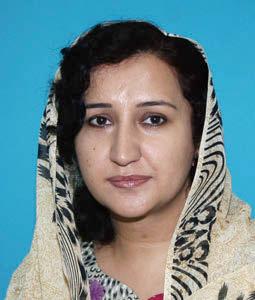
legislation in place from United Nations (UN) resolutions, the United States Act of 2002, World Trade Organization (WTO) and the General Agreement on Tariffs and Trade (GATT); corresponding Parliaments need to conduct research in order to streamline and adopt the resolutions duly signed
by their government to make sure that the departments of justice and labor courts specially conduct and fight the cases related to human trafficking, neglect in education, health care, sexual abuse, discrimination, and neglect in the rehabilitating men and women who have subjected to one or more types of human rights abuse.
Execution of the laws and bylaws must be checked and carried forward through the departments of police, local government and at the level of municipality, town and villages’ administrations. Due penalties must be fixed for those not abiding by the laws.
As Napoleon Bonaparte so aptly put it: “Give us healthy and secured well looked after women and we can proudly see the development of the greatest nations.”
We are aware that Parliamentarians and all those concerned play their role in raising public awareness and Legislature to safeguard against human trafficking.
An example of this was the

European Parliament’s resolution in view of the European council of Thessaloniki on the development of a common policy on illegal immigration, smuggling and trafficking of human beings, external borders and the return of illegal residents. A proposal was put forward for a European Parliament and Council regulation establishing a programme for
financial and technical assistance to third world countries in the area of migration and asylum. Whereas combating terrorism, organized crime and human trafficking makes internal security a key area of EU policy, it actually sets a good example for poorer nations and developing countries like Pakistan, Bangladesh, India and much of southeast Asia and Africa.
The widespread provision of information regarding the consequences of illegal immigration and the scope for legal immigration can offer a counter argument to the promises made by traffickers as well as help to prevent illegal immigration and illegitimate treatment of women and children. This will hopefully assure people against the


unrealistic dreams of working illegally in developed countries.
The coalition against trafficking in women (CATW) supports campaigns, programmes and projects throughout the world, and addresses gaps between current anti-trafficking programmes and policies that do not focus on the demand and the link between trafficking and forced prostitution.
A multi-tiered project is also underway to prevent exploitation of humans in as a commodity in the sex trade by developing best world practices.
There is no excuse to this evil, where the trafficking and sale of men and women is taking place. The popular sources are Bangladesh, Burma, Afghanistan, Nigeria etc, where many brothel keepers buy and sell men, women and children under the noses of custodians of law and order.
Likewise, bonded labourers, particularly those working on farms and brick-kilns sell not only the services of these labourers but also their bodies and freedom. As the sale of human body parts has increased, the trafficking and sale of people is regarded as an important source of foreign exchange.
The main cause of this large scale trade in human body parts or organs is poverty, unemployment, lack of education and the loop holes in the law and Legislature.
This is the biggest and most critical challenge the third world is facing today.
The trade is not only the result of the grinding poverty in which millions of South Asians live as a result of their failure to find adequate employment or any employment at all, but it also encourages poor people to adopt and become involved in human trafficking.
Despite considerable efforts being made, there are still no dejure constitutional provisions; and laws no longer offer concrete protection to the disadvantaged masses or any comfort. The cynics are likely to refer to nonimplementation of the laws and guarantees that are already there.
A new constitutional guarantee for the peoples’ right to work and their right to freedom from poverty will not immediately solve the problems of the hapless, but it will at least offer them a sound threshold to combat on and take their fight from the closed chambers of authority to the less closed council of political parties.
In Pakistan, a bill on the transplantation of human organs was passed on 4 September 2007, which would help reduce if not eliminate and curb the illegal trafficking of human beings.
The economic condition of the people needs to be improved in
order to avoid temptation of selling and trading people and their organs. There are two areas that demand the policymakers’ attention: that is first to sustain the current high rate of GDP growth and second to address the problem of growing inequality in the distribution of both income and wealth. If the socio-economic issues are not tackled, our generation will continue to suffer and consequently, human trafficking will continue to take place across the world.
An alarming example is the case in the United Arab Emirates, where children are used for camel jockeys, sold by their desperate parents. If the representatives and governments are truly committed to bettering the fate of the people in the world, particularly in South Asia, they must then address these grave areas and important issues.
Below is an outline of the measures which I think will help to curb human trafficking.
1.Develop sustainable best practices and policies to
prevent and combat human trafficking and exploitation of human beings, especially women and children.
2.Promote gender equality and the building up of sociocultural and political consensus in order to change the legal skeleton and establish adequate mechanisms for gender equality.
3.Raise awareness about the root causes of trafficking especially with sexual exploitation of women and children.
4.Highlight the conduits between violence against women and the normalization of sexual exploitation throughout the sex industry and human trade mafia that are fundamental violations of the basic human rights.
5.Promote preventative and awareness raising measures to discourage the demand for sexual exploitation that fosters trafficking, with a special focus on the Swedish model to combat prostitution and trafficking in humans.
6.Encourage alternatives to legal and policy measures that attempt to legalize the sex industry and decriminalize pimps and brothels.
7.Introduce legislation in order to strengthen the hands of the government agencies working against human trafficking
8.Educate and encourage public and bring awareness to the general people through systematic propagation of the message
9.Send delegates of committees of the Parliaments to countries affected by human trafficking in countries of origin, transit or destination, in order to discuss the problem, to intensify the information exchange with the Parliaments, Governments and NGOs and to establish cooperation and exert political pressure on the relevant actors.

Over the past few years, the World Bank Institute’s Parliamentary Strengthening Programme and the Commonwealth Parliamentary Association have created a 14-module web-based professional development program for parliamentary staff (see forthcoming article in the next issue of The Parliamentarian). After extensive pilot projects in Africa, South Asia, East Asia and the Pacific, the first three modules are open for registration.
Module 1: Parliament and the Budget (January 19, 2009)
The course, equivalent to 5 days (40 hours) of class room training, will star t on January 19, 2009 and will last for approx. 6 weeks. Topics covered will include:
l Introducing the Budget;
l The Budget Process;
l Parliamentary Approval of the Budget;
l The Audit of Public Accounts;
l Opening up the Parliamentary Involvement.
Module 2: Parliament in Commonwealth Countries (March 9, 2009)
The course, equivalent to 4 days (32 hours) of class room training, will star t on March 9, 2009 and will last for approximately 5 weeks. Topics covered will include:
l The Development of the Modern Commonwealth;
l The Role of the Speaker;
l Women in Parliament;
l Introduction to Parliamentary Procedure;
l The Role of the Opposition;
l Ministers, Members and Public Servants.
Module 3: Parliamentary Committees (May 4, 2009)
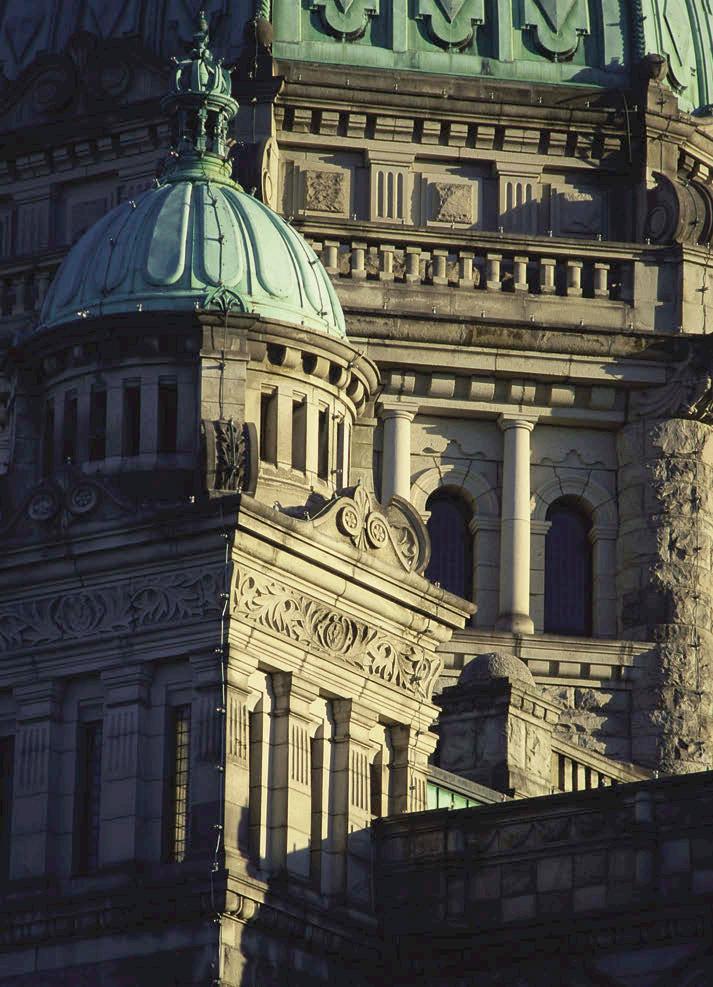
The course, equivalent to 4 days (32 hours) of class room training, will start on May 4, 2009 and will last for approximately 5 weeks. Topics covered will include:
l Parliamentary Committees;
l Procedural and Administrative Support;
l Committees and the Law Making Process;
l Government Accountability and Parliamentary Committees;
l Transparency, Participation and Outreach.
Places are limited, and will be offered on a first-come, first-served basis. There is NO FEE for the participation.
Requirements for completing the course
Participants are expected to commit at least 8 hours per week to the course, including reading through materials, participating in web-based discussions and completing an assignment (which can be done in groups).
For more information, please email: parliamentarystrengthening@gmail.com.
A Rwandan Senator outlines how the Parliament of Rwanda is developing a new strategy to engage its citizens in an ICT-supported democratic dialogue.

Sen. Gasamagera was first elected to the Senate of Rwanda in 2003 for the majority Rwanda Patriotic Front (INKOTANYI). After a career in the private sector, he was appointed Prefect (Governor) of Kigali Rural Province in 1997. In the Senate, he is a Member of the Committee on Political Affairs and Good Governance and the ICT Steering Committee.
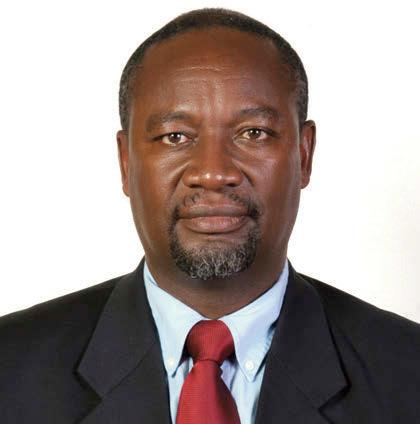
“Overall, the Senate priorities are clear: we want to offer our contribution to the strengthening of the rule of law in our country and to the establishment of a society that has confidence in itself and its institutions. We shall devote all our efforts to those priorities, by promoting the democratic culture in our debates, performance, transparency as regards people and accountability in the
management of the Nation.” His Excellency Dr. Vincent BIRUTA President of the Senate.
Introduction
Rwanda’s Parliament is a bicameral institution composed of the Senate (26 Members) and the chamber of deputies (80 Members), sharing the functions of representation, law-making and government oversight. Following the 1994 Tutsi genocide, the Senate has been particularly entrusted with the role of voting/approving government appointed high officials and overseeing the respect of constitutional fundamental principles including the fight against the genocide ideology, eradication of ethnic, regional and other forms of divisions and promotion of national units and equitable power sharing. The chamber alone has the prerogative
of budget voting after seeking the Senate’s opinion on the budget draft bill.1
As with all Parliaments worldwide, communication with citizens is the central pillar of Rwanda’s parliamentary programme to induce citizen participation in the legislative process. Although ICT penetration is at a still-developing stage in Rwanda, recent experiences have proven conclusively the effectiveness of its use as a new medium fast enough to attract the interest of citizens. Using interactive technologies to engage citizens has been critical whenever there was an urgent need of consultation and results were beyond expectations. Rwanda Parliament has been developing bold strategies to engage citizens in an ICT supported democratic dialogue through the existing IT infrastructure at community level.
E-democracy: does civic participation shade away parliamentary representation?
When considered as representatives, Parliamentarians are vested with moral authority to act on behalf of their constituencies. In Rwanda, every MP represents the whole nation and not just those who elected or nominated him/her, or the political organization on whose ticket he/she stood for election.
A general debate has been engaged as to whether citizens should be allowed to interact more directly in parliamentary matters,
Civic Voice Electoral Voice Political Voice
Community problem solving; Regular voting; persuadingContacting officials; regular volunteering for a others to vote; displayingcontacting the media; non-electoral organization; buttons, signs, stickers; protesting; petitions; active membership in groups or campaign contributions;boycotting; associations; participation in volunteering for candidate fundraising including run/walk/ride; or political organizations. other fundraising for charity.
processes need to be endeavored including public debating space creation, readiness to accept a power share between the MPs and
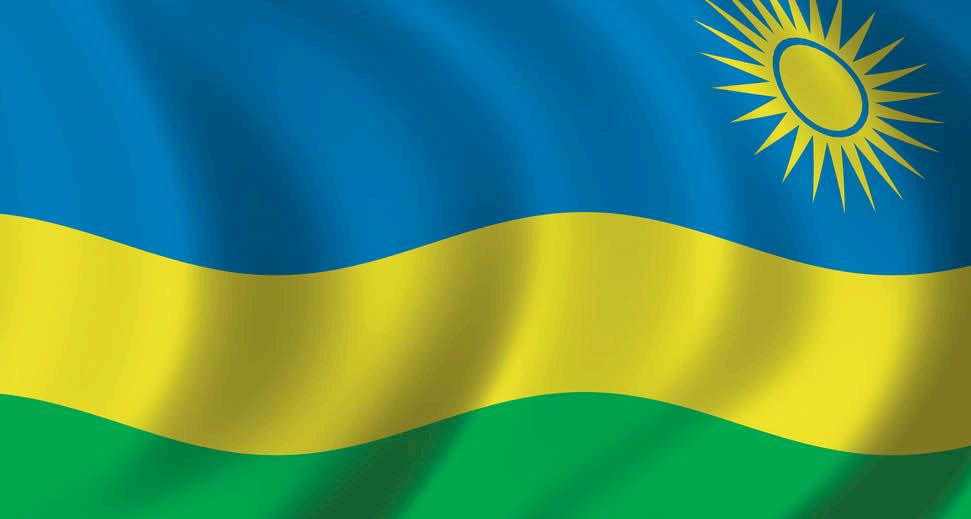
leaving little or no room to their representatives, in the name of the now fashionable participation principle. In such particular cases, shall Parliamentarians be considered as having been delegated by citizens to act as their mouthpiece? Not for the least, as in this particular junction, it should be understood that calling for citizens’ participation does not imply opening the floor to all of them, as in any case, they cannot all raise their voices in one time. Therefore, beyond the mouthpiece, representation is and shall always be needed in order for citizens’ desires to be presented, debated and concluded upon in Parliaments.
In Parliaments today, there is a need for enhanced quantity, quality and cost effectiveness of information to help making sound decisions. For this purpose a number of participative democratic
the citizenry for co-production and constant feedback, decentralization for rapid interaction and scalability of information from individuals to communities. There must be no barriers to information sharing and new information technologies offer this possibility.
One of the Rwandan Senate’s prerogatives is to exert government oversight on equal opportunities for all citizens. As information technologies proved to be key in participatory democratic process, the Senate has to ensure this particular opportunity is availed to all citizens, without creating technological islets for privileged layers of the elite society. This will
include such strategies like ensuring inclusive computer literacy promotion, increasing digital access and equitable share in infrastructure and other facilities (e.g. OLTPC project) throughout the country.
E-parliament: information for civic engagement
E-parliament is defined as a Legislature that is empowered to be more transparent, accessible and accountable through ICT…where citizens in their diversity are more engaged in public life by providing higher quality information and [enjoying] greater access to parliamentary documents and activities. It entails an organization where primary functions of representation, lawmaking and oversight are more effectively carried out when stakeholders use information and communication technologies to support it, thus fostering the development of an equitable and inclusive information society.2
In order to facilitate the MP’s role in this regard, citizens should be empowered to convey their views to their representatives more easily, the faster the information is transmitted, the better it can permit swift decisions, its quality and cost effectiveness allowing coherence and sound decision-making.
Civic engagement means working to make a difference in the civic life of communities and developing the combination of knowledge, skills, values and motivation to make that
difference. It entails promoting the quality of life in a community, through both political and nonpolitical processes.3 The Center for Information and Research on Civic Learning and Engagement, University of Maryland, developed a quantifiable measurement of civic engagement split into three main sectors of civic, electoral and political voice, as shown in the table above: In this juncture, we should point out the right for each country to use these different types of voice in accordance with its own context in the light of political choices it advocates. Indeed, realities are quite different from country to country, and controversy has often risen as to which model is best, but all this to no avail as proven. It is therefore clearly understandable that Parliamentarians have the duty to share with and engage citizens they represent in community service including civic, electoral and political matters in order to enhance their participation and ownership. To this effect, the information flow must be dynamic, allowing interchanges in both directions.
ICT: a powerful enabler for communication influx ICTs are used to ease communication among communities, allowing citizen-tocitizen/citizen-to-Parliament communication using web-based forums, the purpose being to facilitate open and free communications between communities interested in similar
social issues and institutions. However, every cloud having its silver lining, this might incur a potential risk of information overload, this time transforming representatives into delegates. The point will be for MPs and Parliaments to effectively manage this borderless communication tool. This indeed confirms that it is not a perfect model and information can never flow as smoothly as if by magic.
Like many other countries, Rwanda is composed of many small administrative entities that are isolated from one another Such communities have an internal need to communicate, as well as an external need to be understood by others. “Virtual Communities” is a facility that is meant to be provided free of charge. It is already in excessive use throughout the world through user groups, web logs, chat rooms and forums and this can be made available by service providers in Rwanda.
Virtual communities are known to have the benefits of spreading informal knowledge and information, increasing democracy and transparency by bringing out issues into the open and reducing the digital divide and other disparities by exposing communities to one another and to institutions. Such virtual communities will serve as bridges to reach the communities, down to the grassroots level. Thus, people and technology will come together to better and more quickly address societal issues through IT towards a collaborative direct democracy. The idea is to build such communities offering free of charge facilities through “village tele-centers”.
Fast-tracking citizen’s participation: ICT value addition
The Rwanda National Information and Communication Initiative Plan (NICI Plan II) has in its mission to support the economic base and
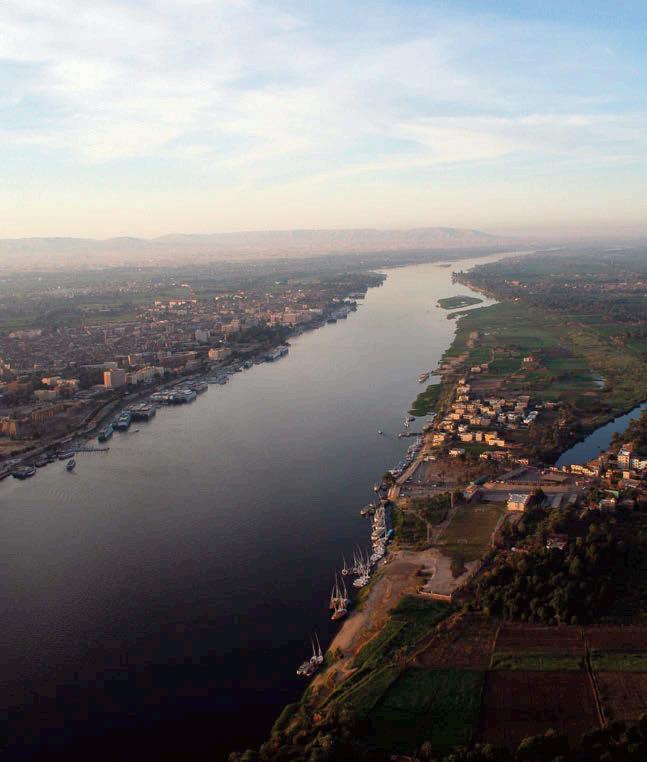
improve the economic environment to accelerate growth towards achieving an informationrich knowledge based society and economy.5 For this purpose, a national communication infrastructure has been and is still being put in place to support and facilitate ICTs access and use.
On top of the 2,300kms of optic fiber to be laid by November 2009, a Wibro-Network project is being developed with broadband speed of over 100Kbps. Live broadband is expected to be
achieved by February 2009 and Kigali city is already covered by a 134km of optic fiber cable network. Telephone coverage is satisfactorily advancing with a mobile telephone penetration of 1.7 million subscribers, while data penetration is still low at three per cent of the population. An initial number of 53,355 user friendly cheap phone sets (24US$/set) have been facilitated by a local Rwanda Development Bank for a monthly installment fee of three dollars. The operation is continuing.
In the educational field, 2,700 desktop computers have been distributed to 270 secondary schools in the National School-Net Project. The “one laptop per child” [OLTPC] project has distributed 5,000 laptops to primary schoolchildren and it is expected that another 10,000 will be
distributed this year. The target is to cover 80 per cent of the 2.5 million school children by 2012 with a total budget of US$250,000,000. The ambitious project has targeted all Rwandan schools to be networked and equipped with standard ICT tools and trained facilitators by 2013.
A national identity card project has distributed around 5.2 million machine readable identity cards by the end of 2008. A tentative IT application for nationwide coverage by video conference has been operated during the last parliamentary elections in August 2008. Today, 30 community telecenters are operational (one per district), with the perspective of increasing them to 300 by the end of 2009. An easily accessed and operated IT supported tax management system has been extended to 25 of the 30 districts, with the aim to cover the rest in six months to come.
The current situation at Parliament House Parliament House has been on the forefront of technological innovations and has developed useful partnerships to this end. An ICT Steering Committee has been put in place to plan, monitor and follow-up all ICT activities carried out by an ICT technical unit belonging to both chambers. To this effect, a plan of action has been designed to cover four main axes: human resources training, customized software development, communication infrastructure and equipment and research and development, all in line with the ongoing national NICI Plan II. Activities now under way include networking, database building, e-library development, Parliament broadcasting radio station and video-conferencing system. For better services digitalization, the Parliament is equipped with more than 200 desktop PCs and every MP is availed with a laptop. Now that the optic fiber has been extended, both
chambers are fitted with a highly performing cable network and with a WIFI LAN system.
Parliament is envisioning to use both its own systems, but also to take stock of the existing national
“The Rwanda Parliament is...convinced ICTs will be the driver to achieve this goal.”
network in order to improve the communication influx with the citizenry in order to achieve greater results in:
• Law making exercise with citizen participation;
• Monitoring law enforcement and recording citizens’ feedback;
•Represent citizens’ interests through government oversight and constitutional fundamental principles respect control (Senate); and
•Use ICT for development, acting as a leader in the field.
Parliament has always in mind its main weaknesses in ICT deployment and usage including external dependency, lack of trained staff, call for increased capacity for MPs and lack of reliable energy infrastructure, today hardly mitigated by the acquisition of a high powered, but fuel consuming generator.
In order to provide citizens with assistance to know and make proper use of their rights, Parliament has developed mechanisms to increase and improve access to its website through customized software now under development. It foresees also to increase “reachability” through virtual communities free of
service charges, using existing facilities including tele-centers, OLTPC project, national infrastructure coverage, etc. The introduction of a Parliament radio station will help diversifying media for better citizen participation. All this will be done in view of reducing the gap within the Parliament, with other institutions and with the citizens, fostering social inclusion for better engagement.
It has been proved beyond doubt that ICTs can be an engine for citizen democratic participation. It is to be noted however that ICTs are simply an enabler, never the solution. Rwanda has gone a long way in facilitating IT access and the Parliament has kept a leading pace in the field, both for inbound activities and mostly for its outreach efforts to engage the citizens, yet many loopholes still persist. Interaction with citizens need a continuing push and Parliament has the task of exerting all its efforts to enhance its community outreach initiative and public visibility, and an added value is expected through the use of ICTs.
In order to reach tangible results in a short time, a number of actions are recommended, bringing to contribution national as well as international actors. These include networking with entrepreneurs as an imperative to enhance citizens’ democratic participation: service providers, dealers in hard/software and other ICT developers. Improving training and public access will also reduce the digital divide, creating a broader population base that is ICT knowledgeable.
Some steps have been taken to introduce local language content in a user friendly approach. These should be sustained, mostly as Rwanda enjoys the privilege of one common language, Kinyarwanda Internal as well as external partners should contribute in order to increase the affordability of ICT tools through price regulations, flat
rates for local calls, free call system for public outreach. All this should evolve under protection of appropriate laws and policies which are crucially missing today, such legal and regulatory frameworks covering intellectual property, taxation, digital contracts, consumer/privacy protection, cyber crimes prevention and punishment, etc.
We are aware of the relative weakness of strategies lying in uncertainty of the future, unpredictability of the environment and complexity of organizations. The Rwanda Parliament is conscious of the necessity, and is fully committed to quickly set interaction and consultation mechanisms engaging citizens into a participatory democracy, and is convinced ICTs will be the driver to achieve this goal. This conviction is comforted among other reasons by the interesting contribution by the Nobel Prize Winner Viscount Ilya Prigogine to the complexity theory of systems. He stated that in order to counter complexity in systems, ”the more communication is rapid in the [organization’s] system, the more its state is stable…. In order for the system to remain stable, there must be a very rapid flow in communication.”6
References
1.Constitution of the Republic Rwanda, 2003
2. E-parliament report 2008, United Nations, 2008, ISBN: 978-92-1-023067-4
3. The definition of civic engagement, New York Times, 26/11/2007.
4.Ketter, S., Zukin, C., Andolina, M., and Jenkins, K. (2002) "The Civic and Political Health of a Nation: A Generational Portrait" CIRCLE and The Pew Charitable Trusts.
5.NICI Plan II, 2006-2010
6.GENELOT, Dominique, Manager dans la complexité, Ed. INSEP Consulting, 2001
The citizens of the Isle of Man have momentarily won their battle against the government’s proposals to flouridate the island’s water supply, and learned several lessons about consulting people effectively, says a Manx Parliamentarian.

Mr Quintin Gill, MHK, in Douglas.
Mr Gill has been a Member of the House of Keys, the Isle of Man’s lower House, since 2001. He is a former social worker and probation officer.

Summary
In 2007 the Isle of Man government’s Health Department and particularly their Public Health Directorate (PHD) re-opened the debate about fluoridating the island’s public water supply. The government took a pace back from the public debate and, being aware of the Manx people’s resistance to any move to force them into compliance in such matters, promised to reflect the views of a public opinion poll after a consultation period. The course of that period and the outcome of the process are the basis of this article.
Those of us who resisted the fluoridators were successful on this occasion; however the lessons for both sides to learn from this experience might help us as politicians to convey and carry future messages with more consideration and perhaps success.
The battle lines
There is an international lobby who tell us that introducing a small amount of fluoride into the public water supply has beneficial effects, particularly in regards to dental caries rates in children. This view has some support within the medical and dental communities and has powerful and wealthy support from parts of the industrial sector.
Opposing the would-be fluoridators was a rainbow coalition of professionals and lay people who reflect a diverse and growing unease and uncertainty about the science, ethics and safety of fluoridation. Dental and medical professionals, elected representatives, community activists and environmentalists are increasingly successfully resisting
the claims of the “pro-flo’s”around the world. The debate within the island quickly formed around these predictable groupings as the challenge to convince the Manx population – and their political representatives (most of whom serve as independents) got under way.
Both sides claim that their side reflects unanswerable scientific evidence – this is simply not borne out by fact. The latest research into fluoridation in the U.K. – a weighty investigation called the York Review – is ambivalent in its conclusions. There is no scientific argument to prove that fluoridating the water supply has the benefits which its proponents claim. The only scientifically proven link with fluoride levels is the incidence of fluorosis – a systemic condition ranging from mild mottling of teeth through to significantly disfiguring damage. Fluorosis can only be caused by the action of fluoride. Recommendations were also made by York that additional studies be conducted into fluoridation’s links to cancer, IQ and
kidney problems but to date these studies have not been done, despite growing evidence to suggest strong links.
The Public Health Directorate

promoting organic produce and fluoridation, the professional concerns for livestock – especially horses – voiced by the government’s own veterinary service and the widespread and powerful feeling of being subjected to “nanny-state” interference. This list is far from exhaustive but should give a feeling of the types of concerns which those of us trying to co-ordinate the campaign could draw upon.
The consultation period
With a population of around 80,000 it should be possible to influence public opinion at a very personal level if that is one’s intention. I do not propose rehearsing the series of radio discussions, public meetings, debates, parliamentary questions and press articles which took place during this time. However, I have reflected on some of the “do’s and don’t’s” which occurred to me during this period. Many of them are glaringly obvious on reflection, but I hope that sometimes stating the obvious – or better still – learning from the experience of others is better than re-inventing the wheel or making the same errors oneself.
would probably have rebounded against us.
(PHD) believed in introducing Hexafluoroscilic Acid into the water supply at about one part per million (1ppm). Although they had no budget for such a programme they undertook to pay for the process, which they claimed was safe and based on scientific evidence –particularly the York Review. The PHD was so convinced of the case to fluoridate that they had spent public money on corporate membership of the British Fluoridation Society (BFS), a group with the sole purpose of promoting fluoridation.
However, a coalition of groups and individuals soon formed to voice concerns and pose questions. For example, the lack of scientific basis for fluoridation, the ethics of mass medication, the safety of transporting a highly toxic chemical through the island on a regular basis, the inconsistency with
With a public mandate (and public funding) the PHD could have prepared the environment to introduce consideration of fluoridation on more promising terms. It is still unclear why they failed to do so – it is very clear however what the effects of this failure were.
On more than one occasion the pro-fluoridators denigrated the opposition and then declined to sit through the presentation of the opposing side. We never expected them to agree with our views but failing to even listen to it was an own goal which undermined their professionalism and public credibility.
One female politician ill advisedly stated that fluorosis was actually fashionable with some young people! The temptation to produce posters showing fluorisis damaged teeth under a heading “Hey Kids! This is what the Fluoridators Think is Fashionable” was questionable and
The PHD produced a number of propaganda leaflets, the contents of which were successfully challenged in Tynwald (Parliament). Their response was to blame pretty much everyone else and spend even more public money reinforcing the mistake by printing a slightly amended version of the discredited original. This expenditure overshadowed the leaflets’ contents.
Most of us can identify better with issues which directly affect us rather than ones which are more distant. Legitimate concerns about wagons with toxic chemicals regularly trundling past our homes, schools, churches and pubs are real and immediate to those people. However, at one of our public meetings we made the tactical mistake of linking the atomic bomb programme of 60 years ago to the need to find a disposal route for fluoride-based waste or “co-product” as it is endearingly called. We failed to convey a proportionate message and missed an opportunity.
Where there is no accepted scientific certainty then uncertainty and misgiving will fill the vacuum. The government might run the executive administration but we can always photocopy parliamentary question sheets.
People have a tendency to react against public authorities which they perceive are domineering and thank goodness they do! The loaded and dismissive manner in which the case put forward by the PHD led many people who really weren’t that bothered one way or the other about fluoridation to support the opposition, because they did not feel they were being properly considered. Just because someone has a title or a white coat no longer means they can automatically expect the confidence of the public.
We totally opposed fluoridating the water supply. The pro side
made the tactical mistake of sticking to this argument almost as a test of strength – even when it was clear they were losing the PR battle. If they had conceded the big battle and introduced a compromise such as funding a voluntary programme of providing toothbrushes and fluoridated toothpaste in schools, (a proposal we find totally repugnant) then they could have achieved at least something from this process.
A forensic and comprehensively argued campaign against the proposal was led by a small number of knowledgeable and committed local residents. When public funding was used to bring the head of BFS to the Island, voluntary funding was raised to bring a leading opposition speaker from the Fluoride Action Network (FAN). In the ensuing public debate the FAN speaker, beat the BFS speaker overwhelmingly. At the next debate – a presentation to Tynwald Members – it became clear that the BFS side hadn’t considered the next point:-
Anyone who has seen the Terminator films will know that shooting the robot might be satisfying on one level but it is no match for luring him into a nearby foundry, crushing him and dropping his remains into the handy vat of molten liquid. Just repeating yourself will not convince the audience you are saying something new to them.
The fluoride debate is formally closed for the time being in the Isle of Man. Fortunately for our side the public rejected the proposal overwhelmingly – a victory for people power. Our Chief Minister has declared the issue closed for the period of his office, and possibly the unproven fad for fluoridation will pass. Then again we may be forced to re-visit it at some time in the future. If we do it will be interesting to see just how many of the above points will feature in that or a similar debate.
A former Member of the New South Wales Parliament examines the changes in communication over the years that have effected the ways Parliamentarians carry out their duties.
Mr Tink was elected to the New South Wales Legislative Assembly in 1988 for the Liberal Party. He served there for 19 years, 11 of them on the Front Bench variously as Shadow Police Minister, Shadow Attorney General and Shadow Leader of the House. He stood down from Parliament at the 2007 election.
Changes in communication
Looking back over the last 20 years to when I first entered Parliament, the greatest changes have been in communication. In 1988, there was no internet and mobiles were an expensive rarity.
I remember one of my parliamentary colleagues, a former car dealer, trying to sell me his used mobile phone. For $1,000, he offered me one the size of four house bricks and weighing the same amount. I declined his offer.
My electorate secretary took shorthand and did her word processing on an electric typewriter, using liquid paper to incorporate my editing.
Today politics, like everything else, has been transformed by computers, the internet and the mobile phone. Satellites permitting, we are contactable anywhere 24 hours a day, seven days a week. This of course can be a plus or a minus, depending on whether you are trying to stoke the fires of some political scandal or escape the flames.
For some things in politics, the internet has undoubtedly been a plus, although it has made the average electorate office a much busier place.
•The internet permits unprecedented outreach to
and feedback from constituents through interactive websites and e-mail;
•It allows universal access to legislation. Compare this to 1988 when only the Parliamentary Counsel had access to fully up to date Statutes, overwritten with the latest amendments, carefully cut and pasted;
•It makes possible instantaneous comparisons on say majority jury verdicts in Oregon, Scotland and New Zealand, without the need for a round the world CPA trip – not necessarily a plus in the eyes of some;
•It can be used to raise huge sums from very many small donations, thereby reducing the influence of a small number of large donors; and
•It can be used by voters to form on line grass roots networks, giving them greater influence.
However in other areas, the internet has been a minus. Daily newspapers are now fighting for their very survival, as more and more readers turn to the internet for their news, and newspaper revenues go through the floor.

In the struggle to remain competitive there is an ever increasing temptation among editors to beat up stories, not to mention that everyone with a camera phone is a potential news gatherer. The overall result is that public debate is increasingly ferocious and answers to complex problems are demanded immediately.
This media competition flows over into talk back radio, aided and abetted by relentless opinion polls and politicians on the make. I should know, because for the 11 years I was a front bencher, I was one of the worst offenders, ringing morning talk back radio to push a newspaper story to keep it running for the evening TV news. However, is this done in the public’s interest? It is to the extent that such accountability encourages public
debate and keeps Ministers and bureaucrats on their toes. However it has also led to relentless shorttermism, where policies which should be developed on say a 25 year time frame, are distorted to deal with the crisis of the hour.
Perhaps most infamous in New South Wales (NSW), is public transport policy, where it seems that major new rail lines are announced and cancelled with alarming speed.
To be fair though, this is not a problem for politicians alone.
Much of the current financial crisis has its origins in the immense pressure placed on investment managers, to get the best short term return. This is now measured by the week, if not the minute, by popular business magazines and online investment newsletters, when the investing time line for superannuation funds especially, should be measured in years.
Computer generated selling, the capacity to transfer funds on the internet at the click of a button, and the so called “race to the bottom” by rating agencies, have only added to the problem.1
What is missing and desperately needed in politics at any rate, is more time to think things through. As President Barack Obama reportedly advised the British leader of the Conservative party Hon. David Cameron, “the most important thing you need to do is to have big chunks of time during the day when all you’re doing is thinking [otherwise] you start making mistakes or lose the big picture”.2
In policy terms, both government and opposition alike need to regularly break from the media cycle and look over the horizon. In NSW, there should be a long view taken in developing policy, especially in transport, health and education, where the massive investments and lead times require it. Perhaps this will happen as the next election draws closer, perhaps not. Either way, the public should demand it.
By Mr Les Gonye, Clerk-Assistant (Committees)
The constituent branches of the Australian Region of the Commonwealth Parliamentary Association (CPA) have agreed to conduct an annual conference of Australian Members of Parliament. This conference is intended to go beyond the scope of CPA conferences by not capping individual attendance from each branch and having keynote speeches on topical issues delivered by distinguished specialists. The Victoria state branch offered to host the inaugural conference in July 2007. The conference quickly acquired the acronym of CAMP.
In welcoming delegates to the first CAMP the Presiding Officers of the Victorian Parliament summarized the conference aims as a chance for “Members of Parliament from all Australian States and Territories to participate in a knowledge and practice sharing forum in order to enhance our parliamentary experiences. We trust…this forum will assist us to generate ideas and a greater understanding of the challenges we face in formulating future policy options. Participation at this conference will enhance our roles as elected officials and we will return to our respected communities better equipped to fulfil our parliamentary roles.”
Following the favourable response to the first conference, the New South Wales branch hosted the second CAMP in November 2008, whose theme was “Meeting the challenges of the future, today” with a sub theme of federalism, a particularly topical subject following the election of the Rudd Government at the national level.
The first day of the conference was very much modelled along the lines of the national 2020 summit held in Canberra in April 2008. The day was structured to help generate ideas and formulate policy options in a non-political and non-partisan forum. A variety of distinguished speakers were arranged to give keynote speeches at plenary sessions which were followed by questions from Members. The speakers and their topics included:
•Professor Bruce Thom, Emeritus Professor, University of Sydney: “Adapting to Climate Change in a Federation”;
•Dr Bill Glasson, Regional Telecommunications Independent Review: “Telecommunications in Rural and Regional Areas”;
Workshops were held in the afternoon and led by a Member selected from among those attending that workshop. Their role was to stimulate debate, discussion and ideas and report back to the plenary session. The Member then reported back to the whole group in the plenary session after the conclusion of the workshops. This provided an opportunity for the sharing of information across workshops and for participants to pose any further questions. The workshop topics were: “infrastructure and intergenerational change”, “health policy” and “rural and regional telecommunications”.
On the second morning, the address and workshops were aimed directly to provide advice and tools for Members directly related to many of the types of day-to-day matters they would come across in undertaking their roles as Members of Parliament. The keynote address was given by Mr Andrew Tink, a former Member of the Legislative Assembly of NSW, on “looking back on politics in perspective”. This set the scene for workshops on “thriving in the electorate office: tips and traps for managing a micro-office” and “political ethics” conducted respectively by Ms Sharon Bent, an organizational and coaching psychologist and Dr associate Professor Rodney Smith, Senior Lecturer in government and international relations at the University of Sydney.
The afternoon session was sponsored by the Women’s Parliamentary Association and consisted of presentations and a panel discussion. The panellists included Mrs Barbara Holborow, OAM, former children’s court magistrate and author and Ms Alex Shehadie, manager, violence prevention co-ordination unit, office for women’s policy, department of premier and cabinet.
The conference was beneficial, especially as one Member said it was the closest thing Members had to a staff training and development opportunity.
During my time in Parliament, one of the most dramatic policy developments was the creation of the Independent Commission Against Corruption (ICAC) in 1989. Until then, the temptation was to put an allegation of corrupt conduct, which was not also clearly criminal conduct, in the “too hard basket”. However after 1989, I always found it was a relief to be able to refer a constituent making such an allegation to the ICAC, so that their concerns could be independently followed up, by a body with Royal Commission powers. I even have a vague recollection of referring myself once after a constituent complaint but the ICAC decided there was nothing in it.
A number of other states now have their own versions of the ICAC and in my view, it is high time the Commonwealth followed suit.
My main criticism of the ICAC is its failure to get to grips with corruption prevention issues at the Chief Executive/Ministerial level. To me it is astonishing that the former head of RailCorp, admitted that he had not read previous ICAC reports into his organization, which had already exposed corruption issues similar to those later unearthed by a second ICAC inquiry while he was still in charge. Clearly, urgent attention needs to be given to the responsibility of the Minister, and I think rather more is needed than the recent abolition of the RailCorp Board.3
One of the ICAC’s most important powers is compelling people to attend its hearings and answer questions. Parliamentary committees have similar powers which both sides, when in opposition, aggressively deploy against public servants. While such tactics can be justified as a way of bringing accountability to government, and almost always guarantee a good headline, I think parliamentary committees do some of their best work when their Members co-operate on a bipartisan basis.

bipartisan solution, endorsed by both the commissioner and the ombudsman, which even survived the Wood Royal Commission into police corruption.4
While Ministers can make demands on all sorts of people, they have no power to compel them to give evidence, and cannot test conflicting advice through cross examination on oath. Parliamentary committees can make up for this and go where the Ministers cannot venture to produce good bipartisan outcomes.
For example, in NSW 20 years ago, the police commissioner and the ombudsman feuded over their respective powers to deal with complaints against police. In exasperation, the police minister referred this problem to the parliamentary committee responsible for over-sighting the ombudsman. After a series of public and private hearings, the committee came up with a
As for my own time in Parliament, one of my self criticisms is that I did not pace myself in my work and I effectively burned out, leading to my decision not to seek re-election last year. Had I been able to make up for this with a six month sabbatical, I would still be an MP, but such a long break for a sitting Member is out of the question. The lesson is to regularly take much shorter breaks to stay refreshed.
Above all, decide well before you next face the voters whether you are prepared to go full term even if your side loses. You should not run again unless you can commit to a full term regardless of the election outcome.
Although almost all politicians have ambitions to be or remain Ministers and may well feel like
giving up Parliament if things do not go their way, voters elect them first and foremost to be local members.
While Members from all sides of politics have triggered byelections at one time or another, my view is that unless there is an absolutely compelling health or family reason for a resignation, the former Member should pay the cost of the by-election.
As for coming to terms with life after politics, I find it difficult to believe those who say they do not miss public life. I have never met anyone in politics who doesn’t have a healthy dose of ambition and self worth – a desire to be in the action, to be the centre of attention and yes, to help their constituents and the wider public. I suspect that nothing you do in later life has quite the same buzz about it, as demonstrated by Mr Bill Clinton’s widely televised bound on to the stage to stand beside President Obama, notwithstanding his wife’s fate.
How do we handle it?
Physically separating from Parliament has been important for me; that is to say, staying away and moving on mentally. This conference, an earlier speaking engagement and a book launch have been the only exceptions. For
across this note from Prime Minister Pitt to Lord Sydney, the Leader of the House in the Lords in 1786. While it contains no expletives, it has a familiar ring to it:
Will you excuse my interrupting you to ask whether you have a prospect of a good attendance
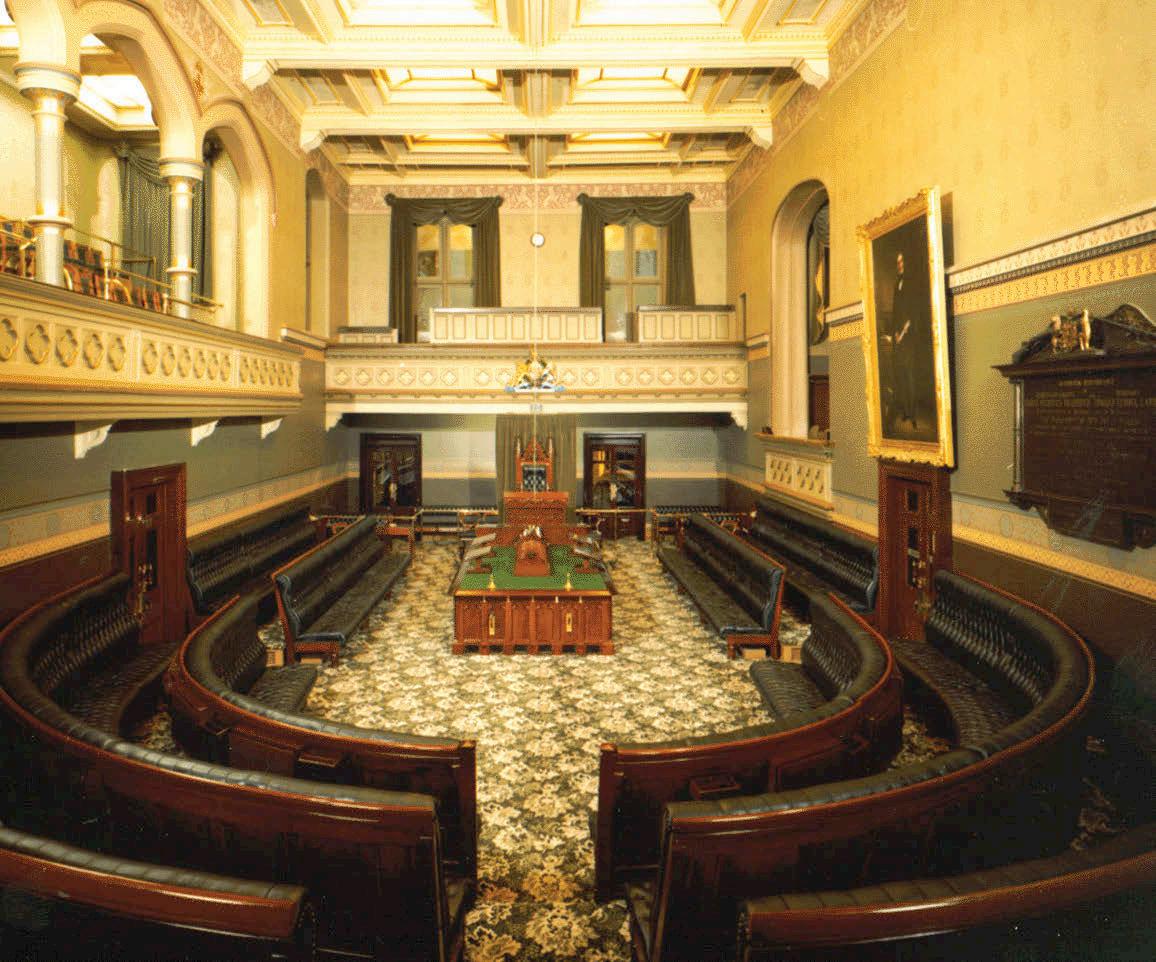
others, the reverse seems true as some become active in former Members’ associations and at least one former Premier and one Opposition Leader from NSW have even become registered lobbyists.5
I can only say it is whatever works for you.
I am lucky enough to be able to follow my passion for history and would like to conclude by sharing two documents to show how much politics and government have changed over the last two centuries and how much they have remained the same.
In terms of human nature, much is the same.
When I was Leader of the House, the opposition leader used to demand a good attendance at his speeches. “No Tinky”, he would say, “do not rely on a circular email. Get the Whip to personally call every Member to be in the chamber and on top of that, buzz them five minutes beforehand”.
So I was delighted to come
colonies in North America (that is to say, Canada) the West Indies, the East Indies, Africa and Gibraltar; Revenue and Admiralty business…excepted”.8
Trying to predict how things will look 200 years from now is impossible, especially when most people would have laughed at the concept of the internet just 20 years ago. Indeed the internet, with its seemingly infinite capacity to inform, grow networks and allow people to communicate their wishes directly, makes it impossible to predict the future of representative Parliamentary democracy.
While there have been radical changes to the House of Commons of 200 years ago, with the tiny voting public of those days now widened to include every adult, a description of a late night division in the Commons in 1774, reminds me of some marathon sittings I had to endure:
system, but faced with the realization that only a small number of Members of Parliament have any real input into most debates in the chamber, it is only a matter of time before GetUp!’s 300,000 online members and other organizations like it, call for a greater say in decision making, most likely with demands for citizen initiated referenda and recall elections. And then the role of Parliament, as we now know it, will change rapidly.
1 The Independent, 23 October 2008.
2 The Sydney Morning Herald, 4-5 October 2008.
3 Daily Telegraph, 23 May 2008; The Australian, 8 October 2008.
tomorrow in the House of Lords? I know the difficulty respecting circular notes but there must be many peers who might be written to privately…and perhaps you may have an opportunity of speaking to several in Westminster Hall.6
However, other things, including the size of government, could not be more different.
Compare RailCorp’s 14,000 employees today to the Home Office of the 1780s, which had a total of just 18 staff. Apart from the Secretary of State and his two under secretaries, there was a chief clerk, 10 clerks, two chamber keepers, a night porter and a necessary woman who, as far as I can tell, was the18th century equivalent of a tea lady.7
Even so, the Home Office’s jurisdiction in 1785 was enormous, the Chief Clerk describing it as comprising “whatever relates to the internal government of Great Britain, Ireland, Jersey, Guernsey, Alderney, Sark, the Isle of Man, the
Only 20 or 30 Members [were in attendance] and possibly half those were asleep…[When called to vote] down stairs came tumbling Members who had not heard a word…and whose only excuse was that they were not in their senses.9
While this has been remedied in NSW to some extent by so called “family friendly” sitting hours, many members of the public who come to witness their Parliament in action, go away troubled that the only occasion on which they see more than 10 Members present in the chamber, is during Question Time or a division.
“‘GetUp!”, a new, internetbased non-party political movement, which has demanded action on issues such as climate change and mandatory detention, seems to be focused on lobbying members of Parliament and running “grass roots” campaigns in key seats such as Bennelong and Charles Wentworth.10
Implicit in this is an acceptance of the current parliamentary
4 A. Tink, Police Complaints, The Parliamentarian, July 1993, LXXIV No. 3, pp.137-9. 5www.dpmc.gov.au. Register of Lobbyists, Chikarovski and Associates, Pty Ltd & R.J. Carr Pty Ltd [accessed 3 November 2008].
6William Pitt to Lord Sydney, Memorandum, n.d. but most likely 1786, Sydney Papers, William Clements Library, Ann Arbor, Michigan.
7RailCorp Annual Report, 2006-7, Appendix 10; Establishment of the Office of His Majesty’s Principal Secretary of State for the Home Department Oct. 1784, Sydney Papers, Box XII, William Clements Library, Ann Arbor, Michigan.
8R.R. Nelson, History of the Home Office, 1782-1801, Duke University Press, Durham, 1969, p. 6.
9Commons debate on Election Act, 25 February 1774, Parliamentary History, V/XVII, p. 1064.
10www.getup.org.au [accessed 3 November 2008].
The Secretary-General of the Lok Sabha in India describes how its independent television channel is reaching out to more citizens, and in turn extending the Parliament’s communication capabilities.
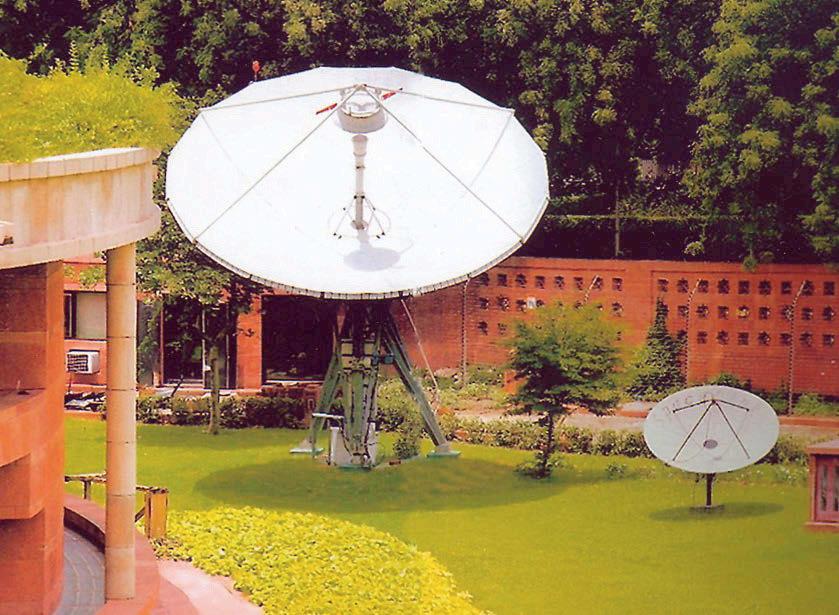
Shri P.D.T. Achary, Secretary-General, Lok Sabha, in New Delhi.
Shri Achary was formerly Director of the Lok Sabha Secretariat from 19941997, after which he became joint secretary, before being appointed to his current post of Secretary-General of the Lok Sabha in 2005.
Shri Achary is also the CPA Regional Secretary for the India region.
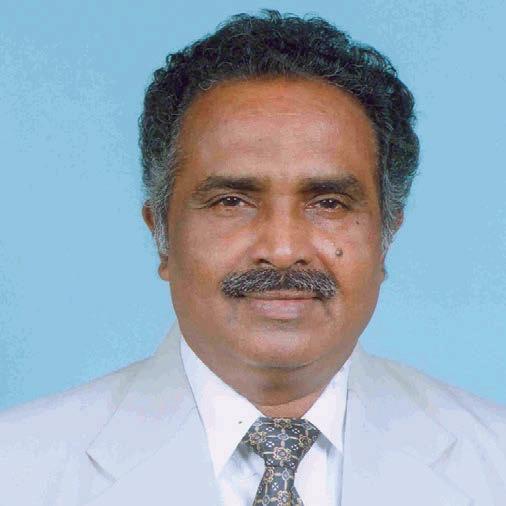
Introduction
The improvements in information and communication technologies (ICTs) have helped to bridge the geographical barriers as well as played a key role in promoting democratic principles such as transparency, accountability, people’s participation and good governance.
The Parliament of India has been pro-active towards the use of information technology and has taken several initiatives by
developing and adopting new means of ICTs to assist Parliamentarians in the effective discharge of their legislative duties and also bringing Parliament closer to the people at large. These inter alia include, the setting up of a computer centre, launching of Parliament of India homepage, Speaker’s homepage and commissioning an independent separate Lok Sabha TV (LSTV) Channel.
The launch of the 24-hour Lok Sabha channel in July 2006 was a monumental development, which placed Lok Sabha on a unique pedestal, making it the only representative House in the world to own and operate its TV channel. The channel has since been available throughout the length and breadth of the country and the proceedings of the House and other parliamentary events are reaching out to millions of people. It was the idea of the Speaker of the Lok Sabha, Shri Somnath
Chatterjee, whose firm belief in the inclusive functioning of democratic institutions have brought the supreme legislative body to the doorsteps of the people.
Televising Parliament of India: a beginning
The phenomenal advancements made by the electronic media in the recent decades, particularly in terms of their reach and diversity, have helped them play an important role in disseminating information and in generating awareness among the people. The desirability of allowing the entry of the electronic media inside the legislative chambers had thus, been engaging the attention of the Presiding Officers and others for quite a long time keeping in view the power of this media. Concrete steps could however, be taken in this direction in 1989.
During the ninth Lok Sabha on 20 December 1989, for the first time the address by the President
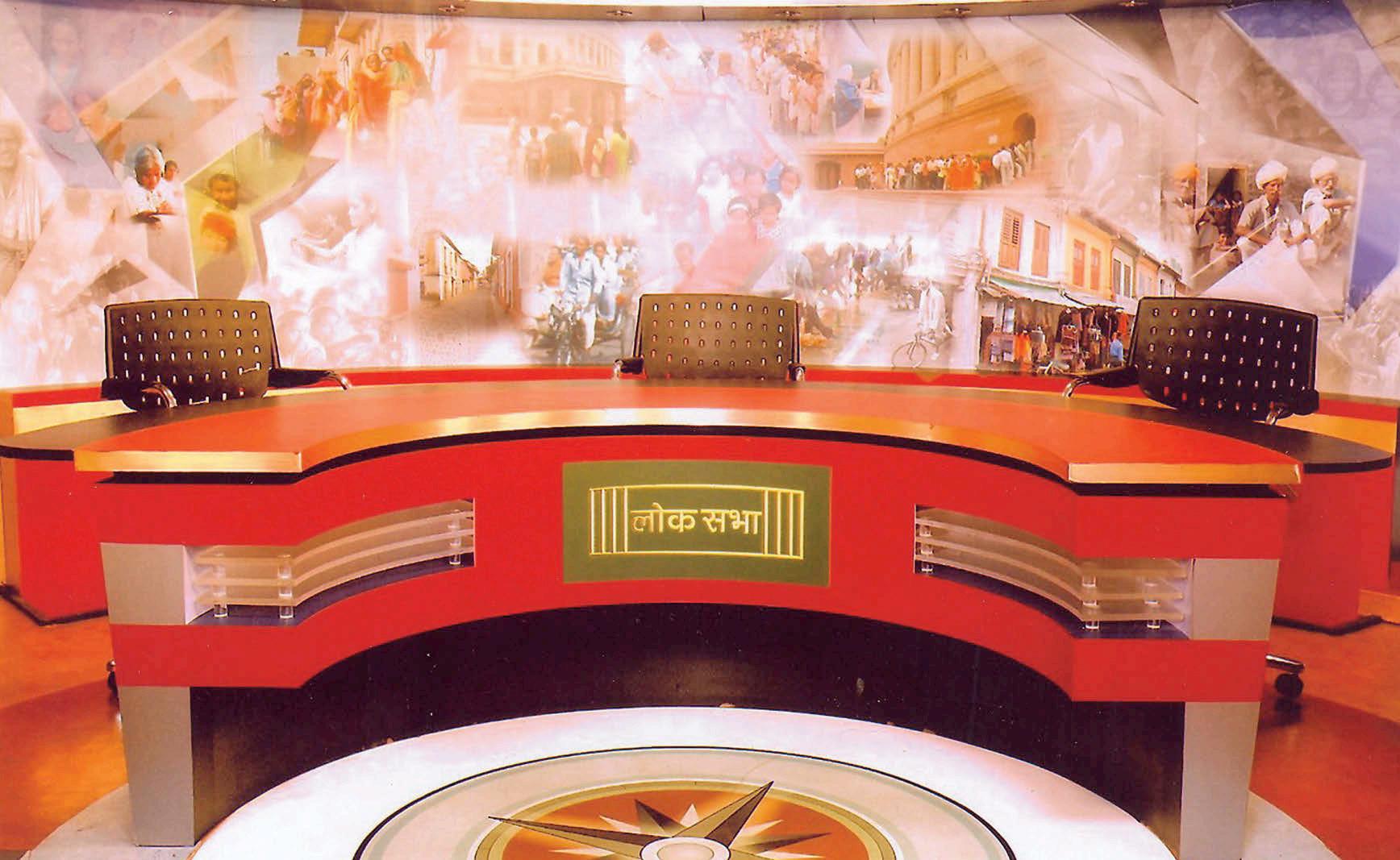

of India to the Members of the two Houses of Parliament, assembled together in the Central Hall, was permitted to be telecast/broadcast live, by Doordarshan (National Television Channel)/All India Radio. In February 1990, the budget speeches of the Railway Minister and the Finance Minister were broadcast live.
During the 10th Lok Sabha, a major step towards the live
broadcast of the entire parliamentary proceedings was taken on 25 July 1994, when a 100 Watt VHF transmitter was installed in Parliament House. With the help of this low power transmitter (LPT), live broadcasts within a radius of 10-15kms from Parliament House were formally started from 25 August 1994.
Since 7 December 1994, the proceedings of “Question Hour” of both the Houses have been broadcast live on alternate weeks throughout the country on the primary channel of Doordarshan. The first live broadcast of the discussion on a motion of confidence in the Council of Ministers took place on 27 May 1996.
On 14 December 2004, the Chairman, of the Rajya Sabha and Speaker of the Lok Sabha launched two separate satellite channels broadcasting the proceedings of both the Houses of Parliament.
Need for a Separate and Independent Channel
India is a vast country and is also the largest working democracy in the world. The people of India elect their representatives as Members of Lok Sabha (Popular House) and they have the right to know how their representatives carry out their duties and functions on the floor of the House. However, it is not easy for them to always have access to the proceedings of the House. In view of the limited accommodation in the visitors’ gallery of the Lok Sabha, the visitors are not permitted to stay more than one hour at a time. In acknowledgement of the people’s right to know what is happening in the Lok Sabha and the performance of their elected representatives, there was a need for the visitors’ gallery in the Lok Sabha to be extended to the whole country, so that the proceedings of the House could be broadcast live for the citizens to watch.
It was understood that unless there was a regular channel, which showed the live proceedings and also other programmes of interest when the House was not in session, then there was little chance that people would watch the channel and the proceedings of the House.
The Lok Sabha channel is available throughout the country on the direct to home (DTH) platform giving concrete shape to Shri Chatterjee’s vision of extending the visitors’ gallery to the people’s homes.
As part of setting up the channel, a high-definition (HD) studio equipped with recording and broadcasting facilities was set up in the Parliament library building. The production control room initially set up by Doordarshan in the Parliament House has also been brought under the control of Lok Sabha television. The old cameras in Parliament House were replaced and the ten new ones were installed at strategic locations for better coverage of the proceedings.
A second studio was also set up with HD equipment to further facilitate the recording and broadcasting of LSTV proceedings. An earth station was simultaneously installed so that the channel’s transmission could be directly linked up to the satellite. LSTV thus became the first parliamentary channel in the world to have its own Earth Station and link-up facilities.
LSTV is available all over the country as a satellite channel and is also available as a webcast worldwide through a link on the Lok Sabha webcast: http://loksabha.nic.in
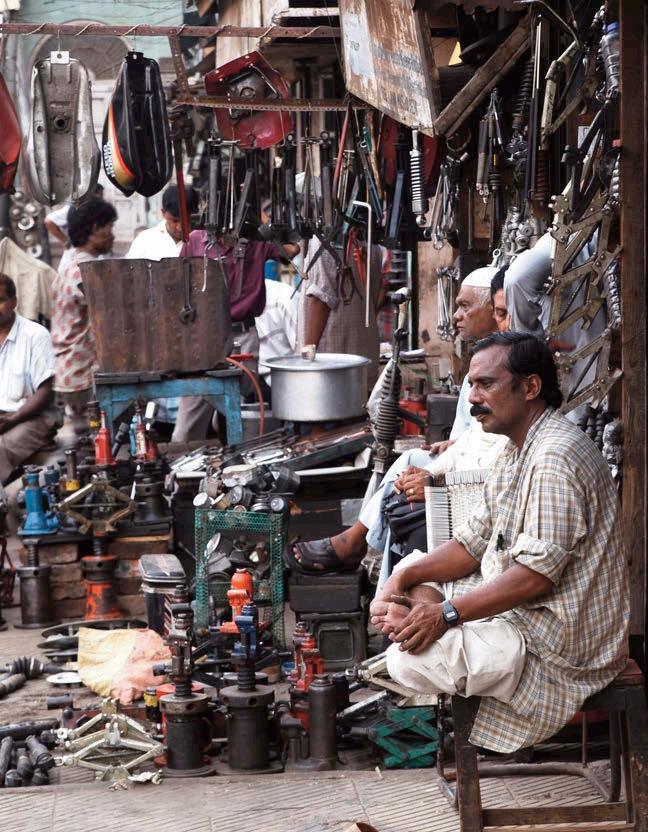
On 22 June 1994, the Speaker of the Lok Sabha issued the guidelines regarding the filming and broadcasting of the address by the President of India and the Lok Sabha proceedings. One of the major guidelines was that:
“The telecast of Lok Sabha proceedings should be a true reflection of what is happening
in the House including the scenes of disorder, walk-outs, coming to the well of the House, etc. On the occasions of such disorder in the House, the cameras will focus on the spots of disorder in the chamber. In such situations, short glimpses of the occupant of the Chair may be shown occasionally.”
In addition to this, another
important guideline stipulates that the cameras should not focus on the press and public galleries. There should be no commercials before, during and immediately after carriage of the live signals. It should also ensure that no parliamentary privilege is violated while carrying live signals.
An advisory council comprising of eminent
personalities from media occasionally also guide the functioning of the LSTV. The councils’ functions include indicating guidelines for programmes to be broadcast; considering new programming concepts and discussing any other matter relating to the functioning of the channel.
The channel also features various informative, interactive and programmes of general interest on issues relating to democracy and governance, social, economic and constitutional issues. Some of the important programmes regularly broadcast include:
•Agenda: An hour-long, studio-based live show that features discussions on issues coming up before the Lok Sabha each day when the House is in session. The programme also provides some background information on the papers to be laid before the House, as well as various Bills and other issues that are listed to come up during the day.
•Sansad Nama: A half-anhour, studio-based live discussion on the proceedings of the Lok Sabha up to the lunch break. The panelists are Members of Lok Sabha.
•House Highlights: A halfan-hour, studio-based, live wrap-up of the day’s work in the House. The panelists are members of Lok Sabha from various political parties.
•Public Forum: A live onehour, studio-based discussion on a current topic or issue of public concern.
•State of Culture: A reportage and interviewbased programme on trends in Indian Culture and the cultural scene in the
national capital.
•Globe Watch: A discussion on international politics with diplomats from various countries across the globe.
Through programmes like Agenda, the people get to familiarize themselves with the range, magnitude and complexity of the working procedure of the Lok Sabha. As shown in the list, the LSTV channel also hosts a varied range of programmes on Indian culture, including films and documentaries on Indian heritage, beliefs, etc.
“The experience of the last two and a half years has proved that LSTV is much more than an extension of the visitors’ gallery.”
A channel independent of the executive
The LSTV Channel is different from other channels including the government owned Doordarshan in the sense that it is not only independent and autonomous in its own sphere but also beyond the control of the executive. It is fully owned and operated by the Lok Sabha. Its studios and other infrastructure are situated in the precincts of the Parliament estate and it also works under the overall guidance of its Speaker. To quote the observations made by Shri Somnath Chatterjee during the discussion in the House on the Cable Television Networks (Regulation) Amendment Bill, 2006, on 3 May 2007: “The purpose of having a channel is to show our Members’ conduct. That is not so. It is in recognition of the
constitutional right of the people of this country as to what is happening in the highest elected forum. It is conceding their right to know. This is the main objective. We have got the visitors’ gallery of 500 people. Now the entire country will seem to be the visitors’ gallery”.
Marketing activities for LSTV commenced in December 2006, and has continued to help in increase awareness about the channel and its programmes by means of publicity and public relations activities.
The Cable Television Network (Regulation) Act 1995 was amended in 2006 with a view to ensuring the availability of the channel to homes across the country. With this amendment, it has been made obligatory for every cable operator to carry the LSTV in their service network in the country. The channel is now reportedly available in 55 to 60 million TV sets through cable and satellite television in the major urban and rural areas. Today, the channel has established a significant presence among over 350 cable and satellite television channels in India, outperforming several established channels in significant television market.
While during the first year of the commissioning of LSTV there were 1.4 million viewers across the country, the second year viewership of the channel rose to about 1.6 million people. The most spectacular recent example of coverage of parliamentary proceedings was the discussion on motion of confidence on 21-22 July 2008, when it was viewed by over 6.43 million people across the country.
Within two and half years of its commissioning in July 200 6, LSTV has achieved remarkable success and it has made a
significant contribution towards strengthening our parliamentary democratic fabric. In effect, LSTV is a technological extension of the visitors’ gallery reaching out to millions of people far away from the nation’s capital. The channel provides a unique platform to the common people; an easy audiovisual access to the working of parliamentary democracy.
Highlighting the achievements of the channel on its one year anniversary, Shri Somnath Chatterjee said that “the commissioning of the LSTV Channel and the complete live coverage today was an effort to put things in perspective before the people who now have the opportunity to see for themselves, gavel to gavel, how Parliament and its members function. They are now better equipped to assess the contributions as well as the failings of our Parliamentarians. That in itself is a significant achievement insofar as the LSTV is concerned.”
Today, LSTV represents a defining moment in the evolution of the parliamentary traditions of the country. It belongs to that breed of rare channels that are concerned about social development issues and not driven by mindless consumerism. The experience of the last two and a half years has proved that LSTV is much more than an extension of the visitors’ gallery. Through a series of value-added programmes, it seeks to inform the general public of the happenings in the House, enlightens them regarding issues of concern, as well as provides a platform for interaction among members and also discussion sessions on important topics. LSTV’s motto is “Asato Maa Sadgamay”, an ancient Indian hymn meaning “lead us from untruth to truth”. The LSTV presents the truth –the way it happens.
The first Clerk of the Pan-African Parliament provides an informative timeline of the beginning of the Parliament’s development to the present day.
Mr Murumba Werunga in Midrand, South Africa.
Mr Murumba Werunga was the Clerk of the PanAfrican Parliament at the time of writing. He was also the first Clerk of the East African Legislative Assembly. He has now returned to the Clerk’s Department of the Kenyan National Assembly.
The Pan African Parliament (PAP) is one of the nine organs of the African Union (AU) established by Article five (5) of the Constitutive Act (CA). The African Union is the successor of the over 40 year old Organization of the African Unity (OAU), established by the Charter of the OAU. The charter became operational upon ratification by 32 independent states on 25 May 25 1963, and was launched at its headquarters, Addis Ababa, Ethiopia, which remains the seat of the successor.
The enabling legal instrument of the AU which comprises 53 Member States is the Constitutive Act, which was adopted by the 36 ordinary session of the Conference of the Heads of States and Governments on 11 July 2000 in Lome, Togo. The AU was officially launched on 9 July 2002 in Durban, Republic of South Africa.
The birth of the AU and hence the PAP was the result of the growing concern of many African leaders for wide-ranging reform
and repackaging of the OAU into a body vested with broader and coherent mandate and structure of institutions to handle the political, financial, economic, democratic governance issues, including peace and security.
The output of the crusade for a reformed and repackaged OAU, was an AU which while incorporating most of the aims and objectives of the OAU, introduced new ones and also brought on board those in the Treaty Establishing the African Economic Community, signed on June 3 1991. This came into force on 12 May 1994.
In addition to the PAP, the following organs were also added:
(i)The Court of Justice; (ii)The seven specialized technical committees; (iii)The Economic, Social and Cultural Council; and (iv)The financial institutions. (African Central Bank, African Monetary Fund, African Investment Bank)
As part of the reform and amelioration of the key objectives of the AU, the New Partnership for Africa’s Development (NEPAD) was established to be an enabling instrument. NEPAD was formally adopted in Lusaka, Zambia in July 2001. A year later, the African Peer Review Mechanism (APRM) was created to encourage the exchange on governance and stimulate home grown approaches to solve challenges in governance.
Whereas the Constitutive Act of the AU creates the PAP as one of the organs of the AU, the establishment of the PAP, including an outline of its mandate, objectives, functions, powers and operational mechanism are provided for in the Protocol of the Treaty Establishing the African Economic Community Relating to the Pan African Parliament (the PAP Protocol). The PAP Protocol was concluded and adopted in Serte, Libya on 2 March 2001 and

came into operation on 9 December 2003.
The PAP was inaugurated at the first sitting of the first session held in Addis Ababa on 18 March 2004. The first sitting was presided over by the then Chairperson of the AU, former President of Mozambique, H.E.
Joachim Chissano. By November 2008, the PAP had held 10 plenary sessions.
The philosophy and principles underlying the creation of the PAP, as captured in the provision of Article 17 of the Constitutive Act are to “ensure the full participation of African Peoples in the
development and economic integration of the continent”. As at the tenth ordinary session, 46 Member States of the AU had ratified the PAP Protocol, except Eritrea, Guinea Bissau, Comoros, Cote D’ivoire, Sao Tome and Principe, Democratic Republic of Congo and the Seychelles.


Composition of PAP
The PAP is composed of five Members designated by the National Parliaments of each Member State of the AU who have ratified the PAP Protocol. Membership of the PAP is concurrent to membership in the National Parliaments; among the conditions of membership are:
(i)The Member State must accede to the Protocol; (ii)The designated five Members must represent the political opinion plurality of the National Parliament; one of whom must be a woman;
(iii)Membership of one to PAP is incompatible with the holding of a position in either the Executive or the Judiciary.
(iv)Tenure in the PAP is concurrent to tenure in the National Parliament.
The Operational Mechanism of the PAP comprise:-
Presiding and the Bureau
The PAP Protocol provide for the election of one President (Speaker) to preside at all sittings of the PAP. The President is assisted by four Vice-Presidents, who each represent the five geopolitical regions of Africa, constitute the Bureau of the PAP, being the policy-making organ of the PAP (similar to Parliamentary Service Commissions/Boards).
The current Bureau was elected on 18 March 2004.
The first President of the PAP, Dr the Hon. Gertrude Ibengwe Mongella, MP, from Tanzania, was elected at the first sitting of PAP as well as Prof. the Hon. Dr. Fernando José Dias de Franca Van-Dunem, MP, from Angola and Prof. the Hon. Dr. Mohamed Lutfi Farhat, MP, Second Vice President, from Libya.
The Parliament sitting in Plenary
Pursuant to provision of Article 14(2) of the PAP Protocol, the Parliament shall meet twice in ordinary session, with each session lasting up to one month. However, by provision of paragraph (3) of Article 14, an extraordinary session may be convened at the request of either the Assembly of the Heads of States and Governments or the Executive Council of the African Union; the same session could be on the request of two-thirds of the Members of the PAP. The power to make decisions binding on the PAP is vested in the plenary, which within the present mandate, make recommendations and resolutions.
Whereas the two plenary sessions make decisions, the detailed study and scrutiny of the subjects is done within the ten committees. The committees which are known as
permanent may be seen in the tradition of departmental/portfolio/ministerial, in the sense that they are modeled upon the specialized technical committees of the AU. The later oversight the work of the ten commissions of the African Union constitutes the African Union Commission (AUC). In turn, the role and function of the AUC is that of the secretariat and the civil service of the executive arm (the Assembly and the Executive Council) of the Union.
The ten permanent committees have mandates modeled on those of the specialized technical committees of the AU. In their operations, they are expected to work closely and often mount joint activities. With regard to work of the PAP, the committees normally
study a subject slated for a major debate at a forthcoming session. At the end of their study, they produce a report of recommendations and resolutions which are submitted to the plenary for consideration.
Each committee is served by a bureau comprising a Chairperson, Vice-Chairperson and a rapporteur and one Clerk. The committees include the Committee on rural economy, agriculture, natural resources and environment, the Committee on monetary and financial affairs and the Committee on trade, customs and immigration matters.
All Committees and indeed the plenary enjoy and exercise the powers of Parliament to require and receive evidence, call witnesses and the production of papers and documents. These powers are exercised mainly within the African Union Commission.
Pursuant to provisions of Rule 83, each geo-political entity of the AU constitutes a caucus for the primary purpose of organizing and ensuring the participation of the region in various aspects of the work and operations of the PAP. There are five caucuses representing the southern, eastern, northern, central and western regions of Africa. The affairs of each caucus are managed by a bureau comprising a Chairperson, a Vice-Chairperson and a rapporteur. The functions of the caucuses include the selection from amongst the caucus, the candidates for:
(i)Election of President and/or Vice Presidents of the PAP;
(ii)Designation of Members to Permanent Committees; (iii)Representation of the caucuses in any other aspect of function, work of Parliament; as requested by
the bureau or a Permanent Committee.
The secretariat
The secretariat is the key component behind making the operational mechanisms work, and currently comprises of a staff of 50. It is headed by the SecretaryGeneral/clerk of the Parliament assisted by two deputy clerks, each heading the two departments of Legislative Affairs; and Finance, Administration and International Relations. These three are recommended by the bureau and appointed by Parliament.
The African Union
The African Union (AU) established by the Constitutive Act, is the successor of the OAU.
“The relationship of the PAP and the AU is first and foremost underpinned by the fact that it is a creation of the AU to which it remains indelibly tied.”
Pursuant to Article 5, the AU functions through key components such as the assembly, the executive council, PAP and the Court of Justice.
The relationship of the PAP and the AU is first and foremost underpinned by the fact that it is a creation of the AU to which it remains indelibly tied. The PAP is duty bound to be in attendance at all meetings of the union. The President of the PAP submits a report to the assembly which
serves to present an update on the operations and recommendations for the attention and action as the assembly may deem appropriate. The later are a requirement under Article 11(4) by which, the PAP may “make recommendations aimed at contributing to the attainment of the objectives of the AU and draw attention to the challenges facing the integration process in Africa as well as the strategies for dealing with them”.
With regard to the relationship with the individual organs of the Union, the provisions of both the Constitutive Act and the PAP protocol generally provide for mechanisms. The PAP is empowered for instance to “request officials of the AU to attend its sessions, produce documents or assist in the discharge of its duties”. In light of this, the current chairperson of the AU Assembly, H.E. Jakaya M. Kikwete and his predecessor have respectively addressed the opening ceremonies of the eighth and tenth ordinary sessions.
The PAP is specifically required to nurture and develop a close working relationship with the Parliaments of the Regional Economic Communities and National Parliaments. The provisions of Article 18 of the PAP protocol expect the PAP to “convene annual consultative fora” with them “to discuss matters of common interest”. Under these provisions, the PAP has developed a framework to hold regional seminars in the five geographical regions of Africa, to consider jointly with the Regional Economic Communities (RECs), the Regional Parliamentary Fora (RPF) and National Parliaments, matters relating to the integration process and harmonization of the policies and laws.
The seminars have so far been held in the eastern (2006), southern (2007) and the central
region (2008). The seminars for the northern and western regions are being scheduled for 2009. The reports and recommendations from the seminars will be condensed at the main seminar which brings together all RECs and RPF. Thereafter, they will be submitted to the assembly of the AU as recommendations.
Pursuant to provisions of Article three of the PAP protocol, the following are the objectives to:-
(i) Facilitate the effective implementation of the policies and objectives of the OAU/AEC and, ultimately, of the African Union;
(ii)Promote the principles of human rights and democracy in Africa;
(iii)Encourage good governance, transparency and accountability in Member States;
(iv)Familiarize the peoples of Africa with the objectives and policies aimed at integrating the African continent within the framework of the establishment of the African Union;
(v)Promote peace, security and stability;
(vi)Contribute to a more prosperous future for the peoples of Africa by promoting collective selfreliance and economic recovery;
(vii)Facilitate co-operation and development in Africa;
(viii) Strengthen continental solidarity and build a sense of common destiny among the peoples of Africa; and
(ix)Facilitate co-operation among regional economic communities and their parliamentary fora.
Functions and powers
The PAP Protocol, under Article 11,
provides the following as the specific functions and powers of the Parliament:
“The Pan-African Parliament shall be vested with legislative powers to be defined by the Assembly.
However, during the first term of its existence, the Pan-African Parliament shall exercise advisory and consultative powers only”. In this regard, it may:
(i)Examine, discuss or express an opinion on any matter, either on its own initiative or at the request of the assembly or other policy organs and make any recommendations it may deem fit relating to, inter alia, matters pertaining to respect of human rights, the consolidation of democratic institutions and the culture of democracy, as well as the promotion of good governance and the rule of law;
(ii)Discuss its budget and the budget of the community and make recommendations thereon prior to its approval by the assembly;
(iii)Work towards the harmonization or coordination of the laws of Member States;
(iv)Make recommendations aimed at contributing to the attainment of the objectives of the OAU/AEC and draw attention to the challenges facing the integration process in Africa as well as the strategies for dealing with them;
(v)Request officials of the OAU/AEC to attend its sessions produce documents or assist in the discharge of its duties;
(vi)Promote the programmes and objectives of the OAU/AEC in the constituencies of the Member States;
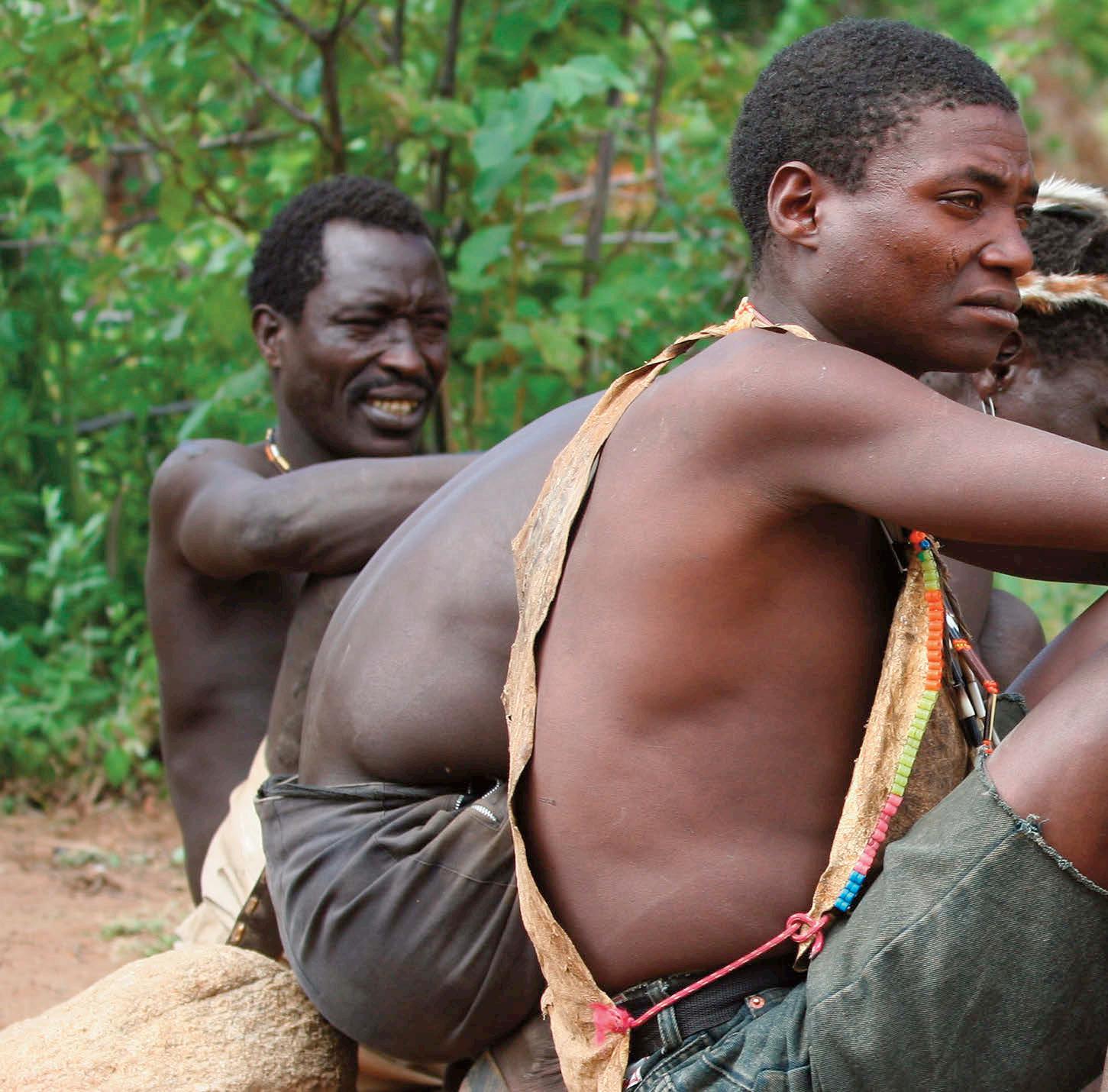
(vii)Promote the coordination and harmonization of policies, measures, programmes and activities of the regional economic communities and the parliamentary fora of Africa.
(viii) Adopt its rules of procedure, elect its own President and propose to the council and the assembly the size and nature of the support staff of the Pan-African Parliament.
(ix)Perform such other functions as it deems appropriate to achieve the objectives set out in Article three of this protocol.
The privileges and immunities of the Parliament and the Members while performing work of the PAP are provided for in Articles eight and nine of the PAP protocol. These are within the tradition of Parliaments; however, in addition they enjoy in the territory of each Member State the immunities and privileges extended to representatives of Member States under the General Convention on Privileges and Immunities of the AU and the Vienna Convention on Diplomatic Relations.
With regard to parliamentary immunities, “a member of the
PAP shall not be liable to civil or criminal proceedings, arrest, imprisonment or damages for what is said or done by him or her within or outside the PAP in the discharge of his or her duties”. Nonetheless, the PAP shall have the power to waive the immunity of a member in accordance with rule 11 of the rules of procedure of the PAP.
The rules of procedure that govern the operation and transaction of the work of the
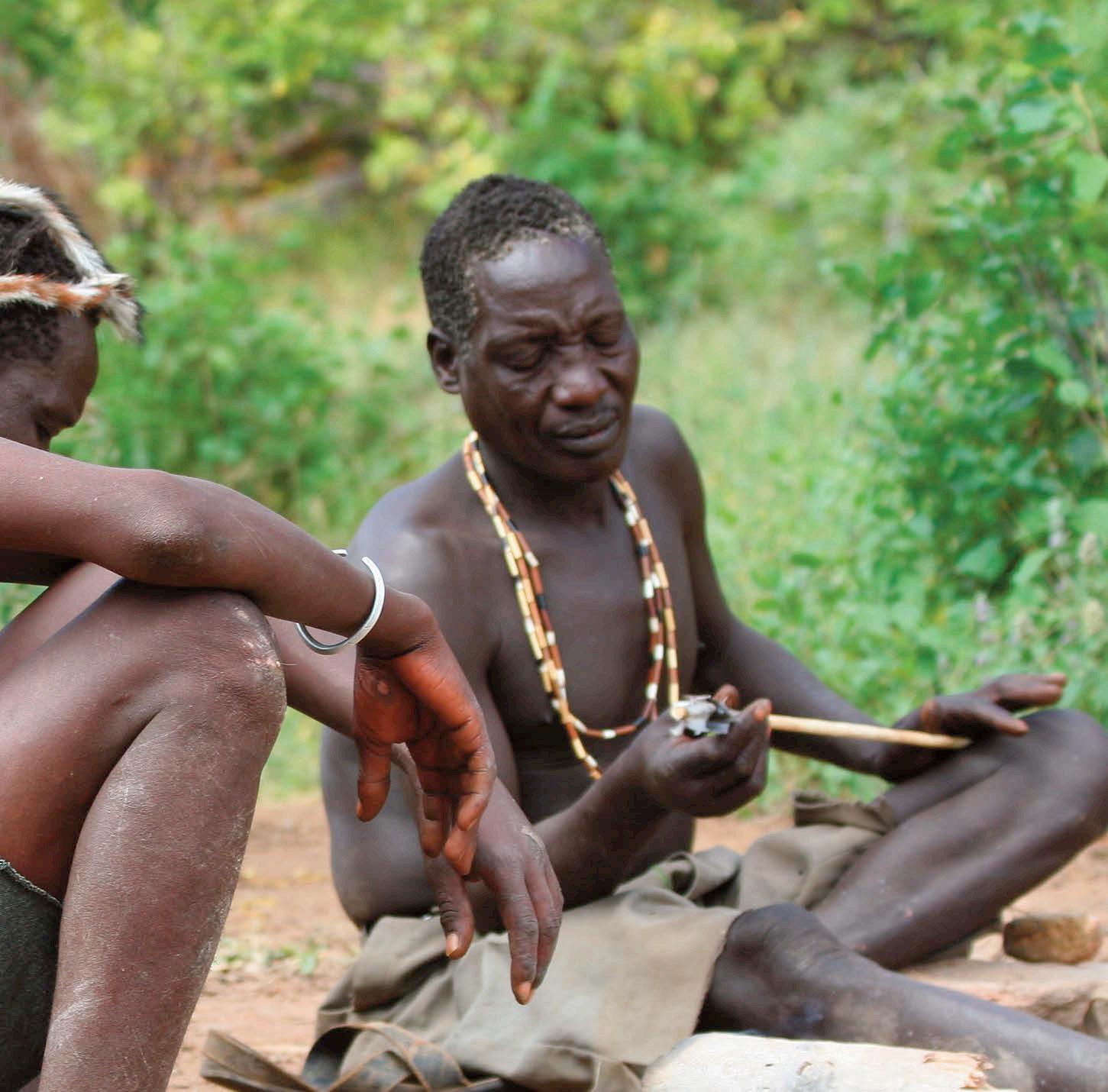
Parliament in the plenary and in the committees are made by the PAP pursuant to authority in Article eleven (11) of the PAP protocol. As is traditional with the procedure of a Parliament, the rules of procedure incorporate aspects in the parent enabling legal instruments – the PAP protocolthat have procedural implications. In a nutshell, the rules of procedure cover among others the following aspects:
(i)Quorum – at all sittings in the plenary and in the committees shall be simple majority;
(ii)Voting at all sittings – one vote for each Member;
decision by consensus failing which, by two thirds majority of Members present and voting; in event of equal votes, the Member presiding has a casting vote;
(iii)Committees– there are 10 permanent (standing) committees, membership varies between 17 to 30;
(iv)Oath of office – is mandatory prior to participation in any work of the PAP;
(v)Sessions – at least two in one year; extraordinary sessions on demand by among others, two thirds of the Members; etc;
(vi)Budget of the PAP – to be
provisions of paragraph 1 of Article 25 the review should commence after 9 December 2008.
Indeed, provisions of the enabling legal instrument state that “five years after the entry into force of this protocol, a conference of the states parties to this protocol shall be held to review the operation and effectiveness of this protocol, with a view to ensuring that the objectives and purpose of this protocol, as well as the vision underlying it, are being realized and that it meets with the evolving needs of the African Continent.”
The states parties under reference are the 46 Member States of the AU who have so far ratified the PAP protocol and are represented in the PAP.
put together by the clerk on authority of the bureau; is an integral part of that of the AU, until the PAP attains legislative powers, though it would still have to be approved by the assembly of the AU and;
(vii)Working languages are English, French, Kiswahili, Arabic, Portuguese and Spanish.
The PAP protocol in Article 25(1) requires its review, five years after operationalization. The PAP protocol came into force on 9 December 2003, while the PAP was inaugurated on 18 March 2004. Subject to
“Nonetheless, though not expressly required to participate, the PAP protocol is already in the process of preparing an input to the conference of states parties.”
Nonetheless, though not expressly required to participate, the PAP as the product of the PAP protocol is already in the process of preparing an input to the conference of states parties. One of the policy issues likely to cause anxiety among the states parties, is whether, as provided for in Article 2(3) of the PAP protocol, it is time for the PAP “to evolve into an institution with full legislative powers, whose Members are elected by universal adult suffrage”.
Norfolk
Island’s
conference on the theme of ‘Isles of Exile’ was so successful that organizers are planning to make it an annual event.

Mr Peter Maywald
Mr Maywald is the Secretary of the government of Norfolk Island.
In October 2008, the Norfolk Island government sponsored a very successful conference on the theme of Isles of Exile, thought to be the first of its type ever held.
Seventeen distinguished speakers presented a wide range of papers and addresses on themes arising from exile, many of them linked to the challenges and opportunities involved with World Heritage listings. Speakers were from diverse disciplines including anthropology, history, archaeology, prehistory, conservation, tourism and management. They came from various islands of exile including Tasmania, Robben Island, Jeju (Korea) and Norfolk Island.
Presentations were grouped into six broad themes:
1.UNESCO and the significance of World
Heritage listing
2.Heritage Architecture –preservation and access
3.Isles of Exile – forced and voluntary exile
4.The convict’s story
5.World Heritage and history in the Pacific
6. Heritage tourism –prospects, trends and challenges.
The keynote speaker was Dr Greg Terrill, Assistant Secretary, Heritage Strategy Branch of the Heritage Division of the Australian Department for the Environment and Water Resources, and Australia’s Commissioner to the UNESCO World Heritage Committee. His address was in the context of the current nomination by Australia of 11 convict sites for World Heritage listing, including
sites on “isles of exile” Tasmania and Norfolk Island.
Dr Terrill explained that the Convention Concerning the Protection of the World Cultural and Natural Heritage (the World Heritage Convention) was adopted by UNESCO in 1972 and came into force in 1975. It established the World Heritage List – an inventory of cultural and natural heritage of outstanding universal value. Only the national governments of States Parties to the Convention can nominate properties within their territory for inscription. Under the Convention, States Parties commit to protect the value of World Heritage Listed properties and to provide regular reports on the condition of their inscribed sites. There are currently 878 properties on the list.

Dr Terrill said that inscription on the World Heritage list represented a significant opportunity for a States Party to harness the World Heritage brand, generating positive social and economic impacts for the local and wider community. However, the extent to which a community benefitted from listing depended on the development of appropriate strategies for the protection and promotion of an inscribed site. Inscription on the World Heritage List did not mean that a community must accept a “one size fits all” approach to tourism and site management. The Australian experience had shown that communities could drive the outcome of World Heritage listing, as long as a site’s values were properly identified and managed in a sustainable manner.
As well as organizing the conference, the Norfolk Island Government subsidised the attendance of three specialist presenters who addressed aspects of exile from prehistory right up to the current day. One of them, Emeritus Professor Maev O’Collins from the Australian National University, pointed out that “isles of exile” were not just a
historical phenomenon. She told the conference that Australia had an island of exile in Christmas Island, where asylum seekers were still held in an expensive high security detention facility. It was also in the process of decommissioning detention centres at other islands of forced
“...there are still huge numbers of forced exiles in current times, some of whom are confined to islands to ensure security...from mainstream populations.”
exile such as Nauru and Manus Island.
On the other hand, Professor Atholl Anderson revealed some of the forensic investigative skills required to unravel the origins of
shock of recognition, and getting things right.” He spoke passionately about some of the many World Heritage sites he had visited and the great advantages to locals and visitors in obtaining such recognition. The island-style food and entertainment was superbly presented and the historic venue (a restored house within the Kingston and Arthur’s Vale Historic Area) complemented the remarks by Dr Jones.
much more ancient exiles, such as his celebrated investigation of the Polynesian site at Emily Bay, occupied many hundreds of years ago. He illustrated his talk with pictures of artefacts and maps showing the probable origins of the first settlers in Norfolk Island.
Richard Whiteing of Robben Island Museum provided an insight into an island used for some 400 years for forced exiles including those with mental and physical disabilities, criminals and political prisoners – the most famous of whom was Mr Nelson Mandela. Mr Whiteing gave a fascinating account of the “hell hole” that was Robben Island, now transformed into a World Heritage site which attracts 300,000 visitors a year.
Dr Barry Jones AO, Chair of the Port Arthur Historic Site Management Authority and former Australian Minister for Science and Technology, addressed the conference dinner on the theme of “the challenge of heritage: the
Those attending Isles of Exile identified some common threads running through the diverse themes presented. One of these was the broad community interest in the motivations of those who sought voluntarily exile and the outcomes for those involved, especially in light of massive global migration movements of the past two centuries. Some of these trends might be more easily identified and studied in the discrete communities of islands whose entire populations are, or were, voluntary exiles. As well, there was a realisation that there are still huge numbers of forced exiles in current times, some of whom are confined to islands to ensure security and their isolation from mainstream populations. Thirdly, there was much interest in the outcomes of World Heritage listing and in the progress of current applications relating to islands of exile, including Tasmania and Norfolk Island.
Attendees were enthusiastic about identifying areas for further study and have commenced planning for another conference, hoping to make Isles of Exile an annual event. The 2008 conference papers are being collated and edited for publication. It is also planned to develop a website with details of papers and plans for future Isles of Exile conferences.
For further information please contact Mr Peter Maywald, secretary to the Norfolk Island Government at: pmaywald@assembly.gov.nf.
The U.K. Parliament is facing the challenge of designing an internal system which not only processes information efficiently but also is accessible to the public, says the Director of Programmes and Project Development in the Parliament’s information and communications technology office.
Dr Ware is Director of Programmes and Project Development in Parliamentary Information and Communications Technology (PICT) of the United Kingdom Parliament.
Introduction
The second World e-Parliament conference took place at the European Parliament in Brussels from 25-26 November 2008 and provided an opportunity for Members and officials from a wide range of Parliaments and parliamentary bodies to review how information and communication technologies are being employed by Parliaments around the world.
The British Parliament has a well established, information-rich public website at www.Parliament.uk, but in common with other Parliaments it faces the challenge of designing its next generation of internal systems in such a way that they not only create and process information efficiently in support of parliamentary processes at Westminster, but also feed that information to the public website in more readily searchable,

accessible and flexible ways that meet the expectations of the public about technology and democracy.
One of the key messages of the first and second World eParliament conferences is that there would be huge benefit in the Parliaments of the world using common and open standards in the way that they approach the creation and processing of electronic data. The World eParliament Report 2008 explains that “the use of open standards is valuable because it extends the accessibility of legislative documents, not only within the Parliament, but between the legislature and the government, between Parliaments and the civil society, and among Parliaments internationally.
From the perspective of the Westminster Parliament we would add that open standards also have the potential to support more efficient internal working and, in
the longer term, to support the preservation of digital information for future access.
While the future benefits are clear, and we have been talking about open standards for almost a decade now, can we yet say that we have found practical ways of putting open standards into practice?
Judging from the preconference materials and the discussions in Brussels the answer is that we are making progress, but we have a long way to go. If we look at what currently exists – just to take the electronic data of the British Parliament – the picture is still very mixed and it will be some years yet before we can reach the “promised land”.
Putting theory into practice
The main reason for our slow progress is that our existing processes for producing and publishing parliamentary material
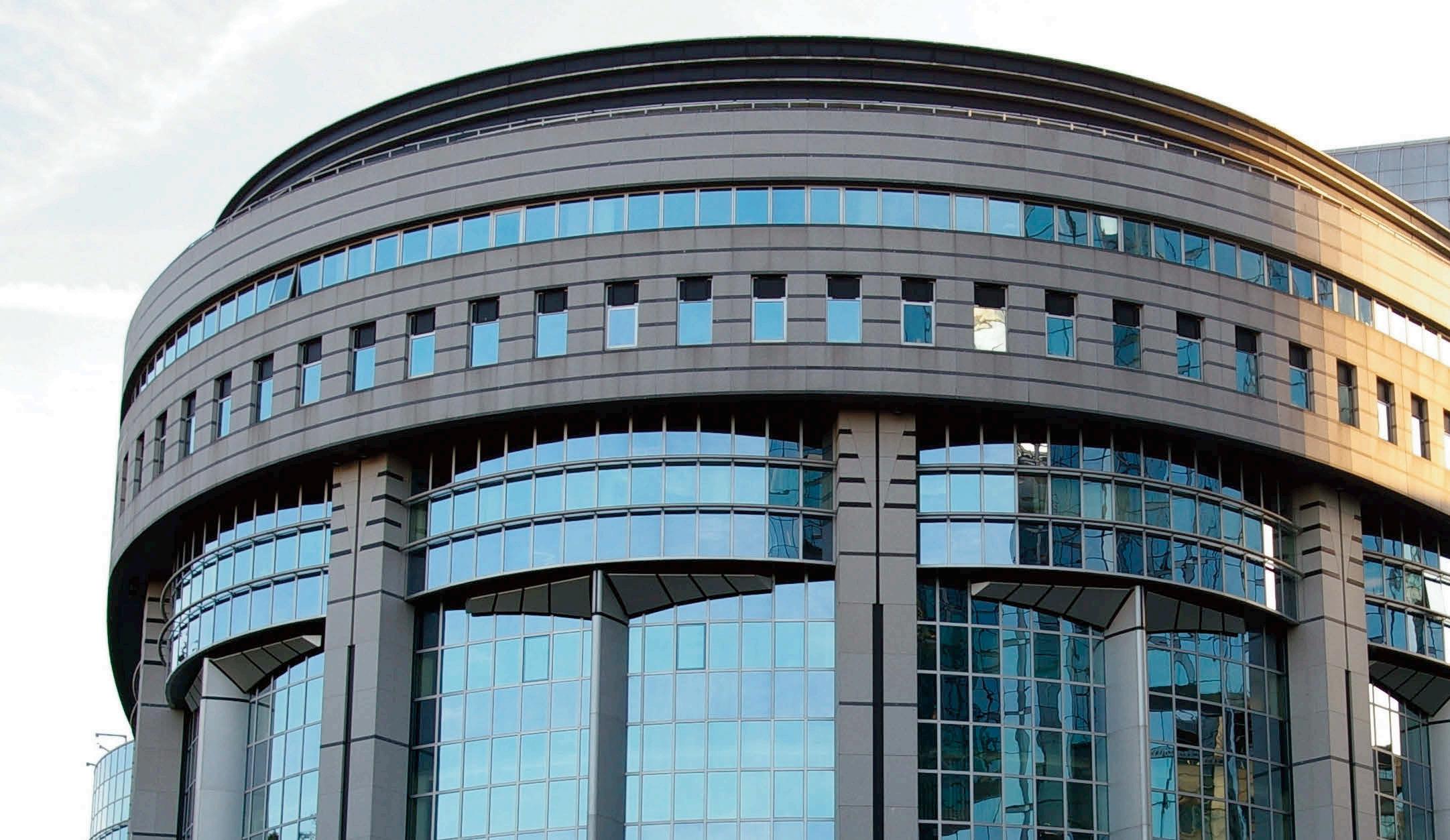
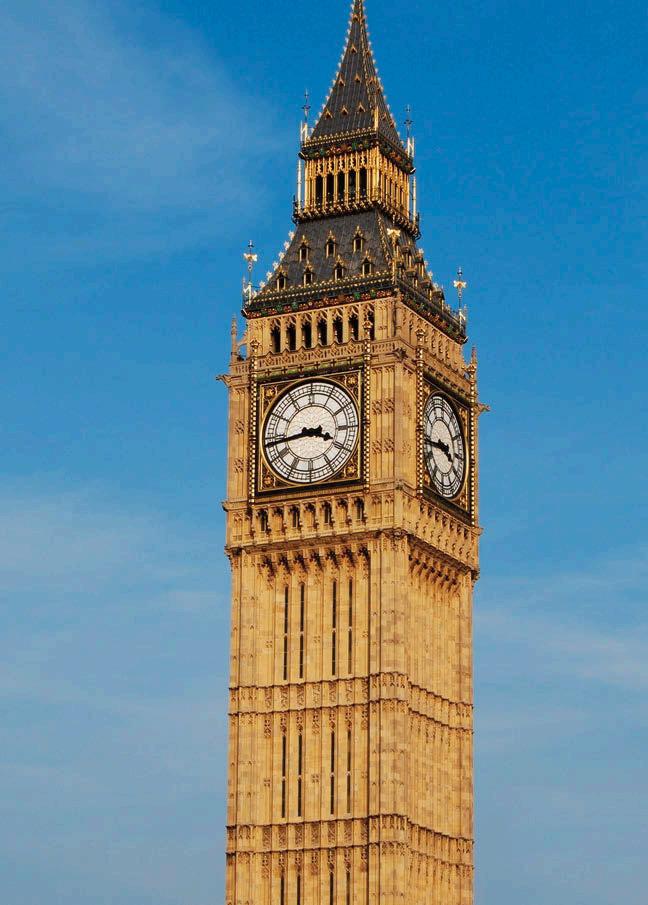
were conceived many years ago and, although there has been modernization of the processes in many respects, the fundamental assumption until very recently has been that print publication is the primary output. This means that we format data for printing and only after that think about other uses. It is difficult to unlearn 200 years of
parliamentary history.
Looking at the legacy, few of our existing systems are based on truly open standards. For example, many Parliaments use tools which incorporate “SQL”. The acronym stands for structured query language and refers to software used in databases to manage the relationships between items stored in the database. Successive versions of SQL have been formally recognized as international standards since the 1980s. In practice however, multiple and incompatible variations have also emerged to deal with problems such as the assignment of serial numbers.
In other cases our standards are “closed”, that is they are the property of a particular commercial organization, and there is no guarantee that they will work across different systems and organizations. This is usually because we have relied for software development on a third
party which does not share our approach or our interest in open standards, or because the system requirements were fixed many years ago and have not been changed.
In addition to that, our understanding of open standards and the practicalities of achieving them is still in its infancy. Parliamentary administrations are inherently averse to risk and it has been difficult sometimes to persuade them to adopt approaches and technologies which are still maturing in the world at large.
There is a separate debate about what drives the creation of standards and how commercial interests and public interests can be brought together. There is a debate too about open source against proprietary software products. These issues are not ones that any single organisation can resolve by itself, so let us focus on the choices facing those who
plan and manage parliamentary systems and some pragmatic solutions.
The opportunity ahead
In the British Parliament the creation of a single strategic ICT Department working for both Houses under the Parliament (Joint Departments) Act 2007 gives us an opportunity to re-think our whole approach to the management of the core data of Parliament. ICT has grown organically within the British Parliament, and until recently that growth has been loosely meshed together to form a complicated set of small systems. Essentially the choice is this: we can continue to deliver small improvements to our
existing systems as they reach end of life, or we can create a larger strategy and programme over several years to give a new coherence and logic to the overall information architecture. The latter approach is naturally our preference because it brings with it many benefits:
•A seamless service to information partners and users, who will no longer need to understand our processes and the structure of our data in order to search it successfully and quickly
•The fullest possible integration between the requirements of document production and web publication
•The opportunity to re-use functionality in a modular way
•The opportunity to recruit and retain expert staff for the continuing programme, not just for short projects (software developers, information and technical architects, project managers)
•Predictability of costs and budgets
We must recognize, however, that our proposed programme activity needs to meet multiple requirements, of which conformity to open standards is not necessarily uppermost in the minds of all our stakeholders:
•There must be an emphasis on reliability (of access, processing), precision (in use of procedural rules and terms), accuracy and clarity of information
•There must be continuing flexibility to meet procedural changes and changing Member requirements
•There must be a particular emphasis on business continuity – so it is critically important to manage changes of process and technology in the safest possible way
•There must be emphasis on
value for money taking into account true total cost of ownership
Provided that we can meet those requirements, there is also a strong business case for using open standards throughout our architecture. The data that we hold and publish is of great and legitimate interest to the world outside Parliament. It needs to be searchable and reusable for information users within and outside Parliament and open standards can help us to achieve that.
The vision
XML is at the heart of our strategy. XML is (eXtensible Markup Language) is, strictly speaking, not a language itself but a set of standard grammatical rules to which a software programming language has to comply in order to be regarded as well-formed and valid in the way it embeds metadata (information about information – sometimes described as tags or labels). XML has been recognized as a standard by the World Wide Web Consortium since 1998. It has been applied and extended into numerous specialist tools over the past decade, but underlying them all is an international nonproprietary standard which has retained its integrity. The beauty of XML lies in its versatility because we can use it to label the information content and source of data, whether it is structured or unstructured, in documents, databases or data repositories.
The other principle is that we need to separate content from format, because format may vary for different purposes. For example, preferred format depends on whether the output is printed paper, personal computer or mobile device. It also depends also on our reason for wishing to find and read information. For example, we may wish to see a particular parliamentary question and answer in the context of the

proceedings taking place on a particular day in the chamber, or in the context of the information available on a particular subject, or in the context of the activity of a particular Parliamentarian and minister, or as part of a searchable database of all the questions asked in a particular session. So from a Westminster perspective we see the future like this:
•We see our future architecture as following the serviceoriented model according to which data and reusable operations such as searches and reports are provided as a set of modular services to a wide range of functions
•We will seek to create reusable XML with as much semantic depth as is practically possible, as early as possible in the process
•This will apply equally to audiovisual content which needs to be associated with the documented outcome of Parliamentary procedures
•Our use of XML will as far as possible follow international open standards, so access to it will provide users not only with conventional print formats (as in the past) but also with semantic analysis of the document content, allowing us as owners of the content, or other users, to search, retrieve,
re-use or re-purpose the information in multiple ways
•We need to encourage and influence the creators of data which we as an organization consume to follow the same standards – for example, we will be encouraging government departments which provide the written answers to questions asked in Parliament to conform to the same standards
The pragmatic strategy
How do we achieve this? We cannot re-engineer our processes overnight with a “big bang” project. Our approach is to set the strategy and implement it in small steps, each time that we review a process or system. Over the next few years we plan to work with our colleagues in the procedural and reporting offices of the two Houses of the British Parliament to restructure and enhance the origination, management, storage and dissemination of all core Parliamentary data.
In early 2008 we completed an ICT Strategy for the British Parliament. As a result of that we created within PICT (Parliamentary ICT) an Enterprise Architecture
(EA) Board, advised by an expert architectural development group, to examine every proposal for a new project and to test it against our standards requirement. A key element of the strategy is to couple future business systems with web technologies.
We cannot rule out every proposal which does not yet meet standards: in some cases tactical short-term fixes are needed to maintain continuity until larger projects reach fruition; in other cases the appropriate standards are not yet sufficiently clear. In these cases the EA Board approves the proposal with a dispensation: that is, for a defined period the failure to comply with standards will be tolerated pragmatically. As we develop more long-term strategic projects – for example, we are now preparing to replace the whole of the Hansard debate reporting system for both Houses – these projects will absolutely be required to conform to the standards strategy.
Making a start
Lastly, a brief survey of projects and initiatives already in hand:
Votes and proceedings
Votes and Proceedings is the formal name of the document which records the decisions of the House of Commons – not what individual Members have said by way of discussion and analysis, but the formal outcome of their decisions, including those which appear on the order paper but are not debated. It is therefore a vital published record of the work of the House and each day’s additions build into a critical dataset which needs to be fully searchable.
The current Votes and Proceedings project is creating new software to manage this process. The first stage is to create a new writing tool based on XML. This was used for the first time when the new session of the House of Commons opened on 3 December 2008 and latest reports
are that it is working well. For the moment this remains an internal change, invisible to the outside world, but during 2009, as the new database grows, we plan to publish both the daily version of the document and the whole database to the parliamentary intranet, enriched with links based on the content – references to Bills, Members’ names, procedural events etc. Eventually we plan to make all of this available on the public website too.
We hope to embark on a similar project for the House of Lords in the near future.
There are already demands coming from within Parliament and outside for a more flexible and searchable approach to Bill information, including multiple versioning of Bills with proposed amendments as they pass through the legislative process. In the U.K. the great majority of Bills are created by Parliamentary Counsel, which is a government office, not a parliamentary one. Parliament is already working to present Bill information in a more accessible way on the parliamentary website and there are growing demands for this, not least from some Members of Parliament, but further progress in this area will need to be in partnership with the government.
Hansard for the web
At the moment the debate reporters and editors (Hansard) produce a rolling version of the edited verbatim report of what is said in each House which is published in flat html without XML. The rolling version is normally published and is available worldwide within three hours of the words having been spoken.
We are currently trialling a revised process whereby a feed taken directly from the Hansard reporters and editors is produced and has its existing print-XML enhanced so that the conventional format is translated back into
semantic content. This means that the content becomes more readily searchable through a menu structure. The output from this process will shortly become available on a beta test site. The intention is to add more functionality gradually, e.g. links to other types of content such as Bills. This would be similar to the approach for the Votes and Proceedings information and would gradually build into the semantically enriched vision described earlier.
Hansard production systems
This will be a longer term and more ambitious reworking of the Hansard process and it is still at a very early stage. Respecting the low risk appetite of our colleagues, and the need to make sure that any changes are not disruptive to continuity, we intend this new approach to be modular, achieved in stages and fully based on open principles and standards.
Historic Hansard
For the archive of historic Hansard material we have an experimental project based on open source software and open standards. We have used it to demonstrate what might be possible using this very rich historical dataset. In this case the electronic data is derived partly from optical scanning of the historic Hansard volumes of both Houses of Parliament back to 1803, and, for more recent data, on the published electronic data set. As befits an experimental open source project, everything relating to it including the source code is available from the public website http://hansard.millbanksystems.co m/. The tools and components used are listed on the front page.
PIMS (Parliamentary Information Management Services) went live in 2005, replacing the old POLIS database, and is the principal internal database for parliamentary information, managed by the
House of Commons Department of Information Services. It is effectively a searchable index associated with full text of documents but it relies on a great deal of post-processing of data already created for other purposes. Created for Parliament by a thirdparty supplier, it is not an open standards system.
The strategy described above will determine whether in due course there is a requirement to upgrade PIMS, or whether the new approaches to data creation and processing that are described in this article will make that unnecessary.
Parliaments have a particular duty to share their data with the world at large because that is inherent in the democratic process. This means that they should be energetic and ambitious in their exploration of new technologies to support their work.
The requirement to keep systems running day and night with very high standards of reliability and accuracy mean that we have to test new approaches very carefully before putting them into live operation, and this points to a gradual modular implementation rather than a “big bang”. It is also a good argument for experimenting with different approaches, including open source for some applications, and using test sites to evaluate the results before we commit all our resources to a single path. We have to weigh the ideal against the practical; the futuristic against the supportable. Fortunately, although parliamentary procedures are different in every country, issues of data management and standards give us a common language and a common agenda, so that we can learn from each others’ experience.
For this reason a key part of our pragmatic strategy is to collaborate with other Parliaments around the world through events such as the World e-Parliament conferences.
Equipping Parliamentarians with the appropriate skills and knowledge should be induction-based as opposed to orientation-based, argues a team of academics from the universities working with the Inter-Parliamentary Union.
Dr Ken Coghill, Mr Ross Donohue, Mr Peter Holland, Ms Colleen Lewis, Ms Cristina Neesham, Mr Andy Richardson and Mr Kevin Rozzoli.
General background
How newly-elected first term Parliamentarians can best be introduced to their roles and helped to develop the skills they will need, is being explored through innovative research which examines their education and training. The project involves collaboration between the InterParliamentary Union (IPU) and academics from Melbourne’s Monash University, the University of Sydney and the University of the South Pacific in Fiji (“Monash Group”). The academics include two former parliamentary Speakers from different Parliaments and different political parties, and scholars in the fields of politics and public policy, human resource development, accountability and democratic governance.
The occupation of Parliamentarian is unique in many respects, including from a human resource development theoretical perspective. There is no formal or other requirement beyond citizenship, minimum age and electoral support. As a consequence, it is often believed that education and training cannot be made compulsory.
Unsurprisingly, newly elected Parliamentarians rarely have an understanding of the full range of
requirements relating to their representative role and its legislative functions, irrespective of occupation or professional background prior to their election. Notwithstanding this, the change of status upon election is apparent and instantaneous. While the media and the public seem to assume new MPs “hit the deck running”, complete with a comprehensive understanding of the myriad of issues needed to be addressed, this is rarely true. Few new members are conversant with the complexities of their role.
In the past, lucky Parliamentarians could learn their parliamentary craft from long-serving, experienced Members and through observation. “On-the-job” learning is severely limited due to the high level of skill now expected of new MPs and high turnover in some Parliaments. If we add to this the Parliaments with increasing numbers of new Parliamentarians drawn from employment in political offices, we can identify a new type of Member; those who lack the broad-based experience in community groups of many of their predecessors.
Equipping Parliamentarians with appropriate skills and the requisite knowledge to perform
their parliamentary and electorate roles is not only a formidable challenge but there is a great responsibility to get it right.
Training for new personnel can be divided into orientation and induction. Orientation is providing information, whilst induction programmes seek to build some basic skills required for the role. Induction programmes typically incorporate orientation but extend beyond it.
A survey conducted in 2007 indicated that programmes for first term members are overwhelmingly limited to orientation sessions, with some extending to induction sessions. The effect of this limited preparation for office in established democracies is compounded in younger democracies.
There is remarkably little research on the professional development of Parliamentarians. A European Union sponsored programme in South Africa was analysed and evaluated, while a Canadian parliamentary paper has recommended that “training for Parliamentarians should shift away from an ‘orientation’ model toward a system that is more permanent and ongoing”.
In stark contrast to programmes for public servants, judges and those working in the private sector, there is little or no

training for Parliamentarians in their fundamental representational role, or even in the roles through which they will advance their parliamentary career such as committee chair, parliamentary secretary or minister.
The IPU and many donor agencies share a concern about the need for research that will lead to improved design, delivery and
evaluation of programmes for new MPs. Each recognizes that political stability, sound law making and the development of well-articulated public policy require the design and delivery of such programmes to be evidence-based and subject to objective and independent evaluation.
No independent, evidencebased research has been found
which can guide those designing and delivering programmes.
In knowledge based organizations such as Parliaments, a focus on the development of human resources should be linked to the deliberate strategies of building organizational capabilities so that electorate and parliamentary
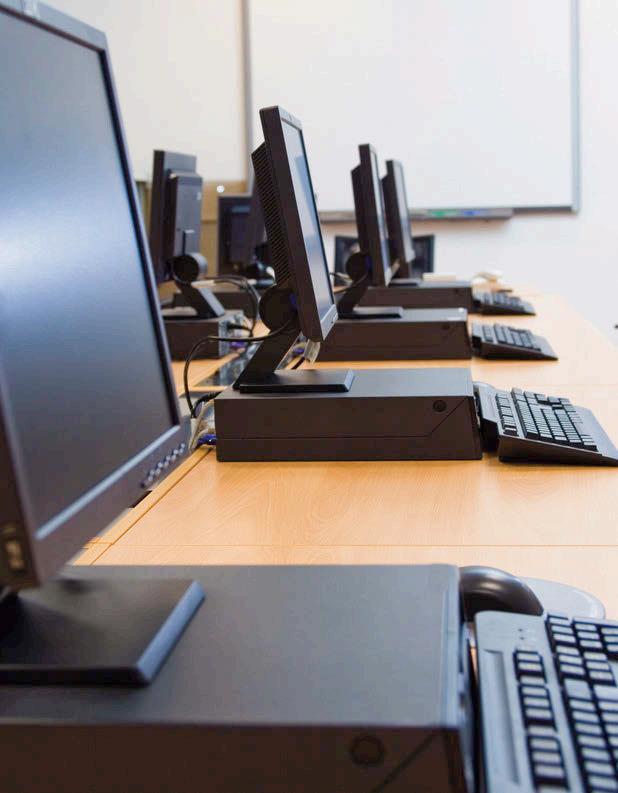
chamber performance, both in the short term and in relation to career management in the longer term, may be enhanced.
Research should also include the relationships whereby accountability bodies (e.g. auditorsgeneral, anti-corruption commissions and ombudsman) maintain their independence from government, as well as the
Training and development are critical elements in providing the skills to deal effectively with the increasingly complex issues facing Parliaments and the specific decision making associated with their activities. Such training and development is accepted as leading to stronger governance by reducing levels of corruption linked to poor transparency and weak
programme included interviews with Australian Senate officials to gain an understanding of the purpose and motivation for their induction programme, and further interviews with Senators who took office in 2005.
The survey gave an invaluable insight into the induction programme conducted by that chamber. There were 15 new
assistance, public relations, staff management and time management.
Conversely, Senate officers felt many of these areas were outside the range of their expertise and responsibility. When it was suggested that this could be overcome by bringing in outside presenters this was politely but firmly rejected on the basis that it
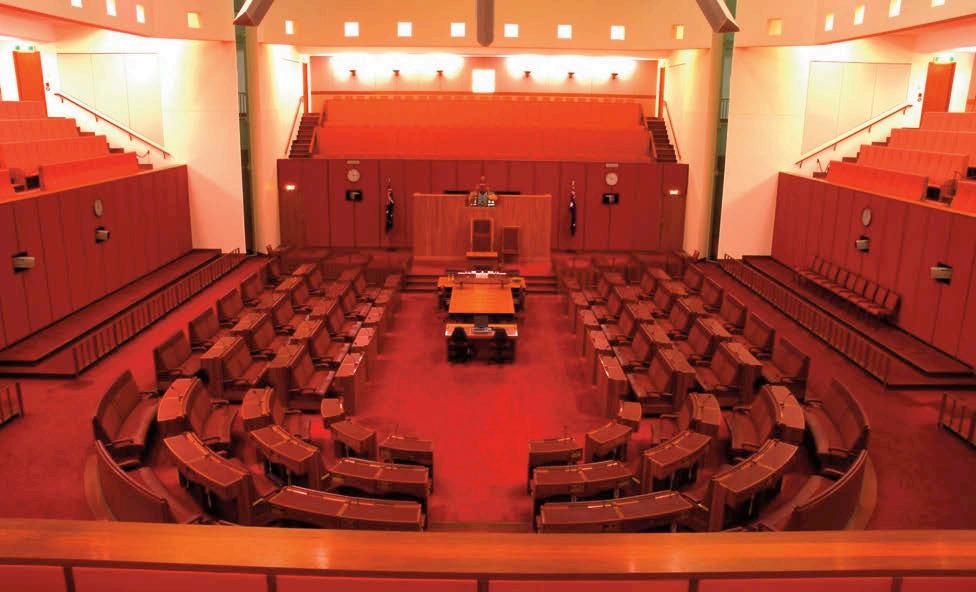
appropriate arms-length relationship needed between the coercive arm of the state, the police, and government.
To capture all perspectives, the research covers a range of national Parliaments, including nonCommonwealth countries and presidential systems, to give sufficient depth to facilitate proper analysis of the diverse practices, make necessary comparisons and establish the appropriate benchmarking on which to base educative programmes.
accountability processes.
The Monash Group has completed two exploratory studies.
The first examined the training for those entering the Australian Senate in 2005 and ongoing professional development support for existing Senators. The second, in which the IPU collaborated, gathered basic information on the frequency and types of programs offered globally.
The study of the Senate
Senators in the chamber of 76 members.
While most Senators regarded the programme as well conducted, and invaluable to helping them come to terms with the demands of office, they nonetheless felt it should embrace more capacity building in areas such as communication and interpersonal skills, knowledge of economics and budget processes, public administration, ethics, information technology, management and/or leadership, access to research
would politicise the process and thus threaten their arms-length status from partisan politics.
The programme included one day of role play in the chamber, joined by a number of experienced Senators. They practised most of the procedures they would experience in a normal day’s sitting. There was also ample time to ask questions and discuss aspects of particular interest. This was highly valued.
Overall, Senators were favourably impressed by the programme’s presenters and the quality of written material provided for their assistance. Another frequent comment was that there was almost too much information to be comfortably absorbed in the time allotted and that some form of follow up, say six months later, would be welcomed.
The second project, conducted jointly with the IPU in 2007, was designed to build knowledge of the design and delivery of training to meet the capacity building needs of Parliamentarians, both at orientation/induction and during their parliamentary careers, with a view to identifying aspects requiring further investigation. The Monash/IPU project used two complementary questionnaires. These were addressed to national parliamentary chambers and to new Members of Parliament respectively. The most appropriate English, French or Spanish language versions were distributed to each Parliament. Most data was collected during the months of September and October 2007.
The first questionnaire asked for information about the induction, training and professional development programmes offered. Officials were also asked to forward the second questionnaire to Members elected for the first term Members. The second questionnaire asked the new Members to describe their perceptions of their induction programme and to offer comment and suggestions on what such programmes should contain. Responses came from chambers which included a broadly representative range of numerical size, constitutional structure, history and national development, geographical location and other major features. Responses also revealed that approximately 95 per cent delivered an orientation or induction programme for new
Parliamentarians. Many programmes offered only information rather than skill development.
Remarkably, these programmes were compulsory in half of the
“They may have a practical orientation, but at best offer only a “snapshot” of the tasks and responsibilities representative of a Parliamentarian’s role.”
chambers which responded. This is contrary to the widespread view that training cannot be made a condition of service for Parliamentarians.
About 40 per cent of the respondent chambers reported ongoing training and professional development programs.
Initial orientation/induction programs varied from one day to 45 days. Most programmes were short (one to two days) and were run either just before or immediately after Parliament was convened. Trainers employed for these programmes had received professional accreditation in more than half of the programmes but this did not seem to affect the participation percentage. Attendance varied widely where voluntary but was very high where mandatory.
Common features of most of the programmes included an information handbook or guide and talks with questions and answers. Most Parliamentarians rated satisfaction as moderate or high.
Parliamentarians from many countries reported that their political parties conducted
programmes for newly elected Members. However, these were not always coordinated with the Parliaments’ Programmes.
Improvements suggested by MPs included more time, ensuring that all material presented is directly and immediately relevant to the new MPs, developing the material through workshops and case studies and input from experienced MPs. A large number of respondents indicated they would like a wider range of skills to be included, and updates and follow-ups six months later.
Many programmes focus on how the institution is managed. They may have a practical orientation, but at best offer only a “snapshot” of the tasks and responsibilities representative of a Parliamentarian’s role. Few address the fundamental importance of the concepts, institutions and processes buttressing the foundations of parliamentary democracy so necessary for protecting and sustaining fragile democratic principles. The role of the latter is crucial to protecting civil and political rights.
Few provide guidance on handling ethical issues and dilemmas or the importance of maintaining probity relationships between the Parliament and other bodies. Indeed, some consider assisting Parliamentarians to recognize and handle ethical issues while others argue that Parliamentarians should not be instructed by officials on how to address ethical issues. They generally do not address more basic matters such as dealing with constituency problems.
Few programmes use better adult learning techniques and most would benefit from improved understanding of training needs and of the effectiveness of training methods for this unique occupational group.
The Monash Group has been funded to extend its investigation of professional development activities through the study of
selected, representative Parliaments delivered by a range of providers including chamber staff, political parties and nonparliamentary aid/donor organisations. The research aims to:
1.Determine the induction and competencies desired by Parliamentarians and the extent, nature and effectiveness of orientation, induction and on-going professional development programmes;
2.Investigate motivations and incentives for parliaments to offer programs and for Parliamentarians to participate in them;
3.Evaluate the extent to which professional development programmes affect individual and collective Chamber performance and methods for evaluating efficacy;
4.Determine factors influencing the effectiveness of programs supported by donor agencies, with special reference to Australia’s nearby Pacific region; and 5.Develop a better practice framework and implementation strategy, create and maintain an interactive multilingual website for those delivering programmes; provide evidence-based information; and establish a forum for contact and the exchange of ideas. This research has major implications for Parliaments as the central institution of democracies, with potential benefits of higher levels of skill and integrity in Parliament and government. It also aims to improve understanding of successful adult learning in an environment where those learning have strong demands competing for their time.

AUSTRALIA:
Nation-building Funds Act 2008 Page 71
BRITISH COLUMBIA: Finance Statutes (Deficit Authorization and Debt Elimination) Amendment Act 2009 Page 75
SRI LANKA: Grant of Citizenship to persons of Indian Origin Bill & Grant of Citizenship to Stateless Persons Page 79
INDIA:
The Salaries and Allowances of Officers of Parliament (Amendment) Bill 2008 Page 83
NEW ZEALAND: Employment Relations Amendment Bill Page 85
QUEBEC: School Board Governance Page 87
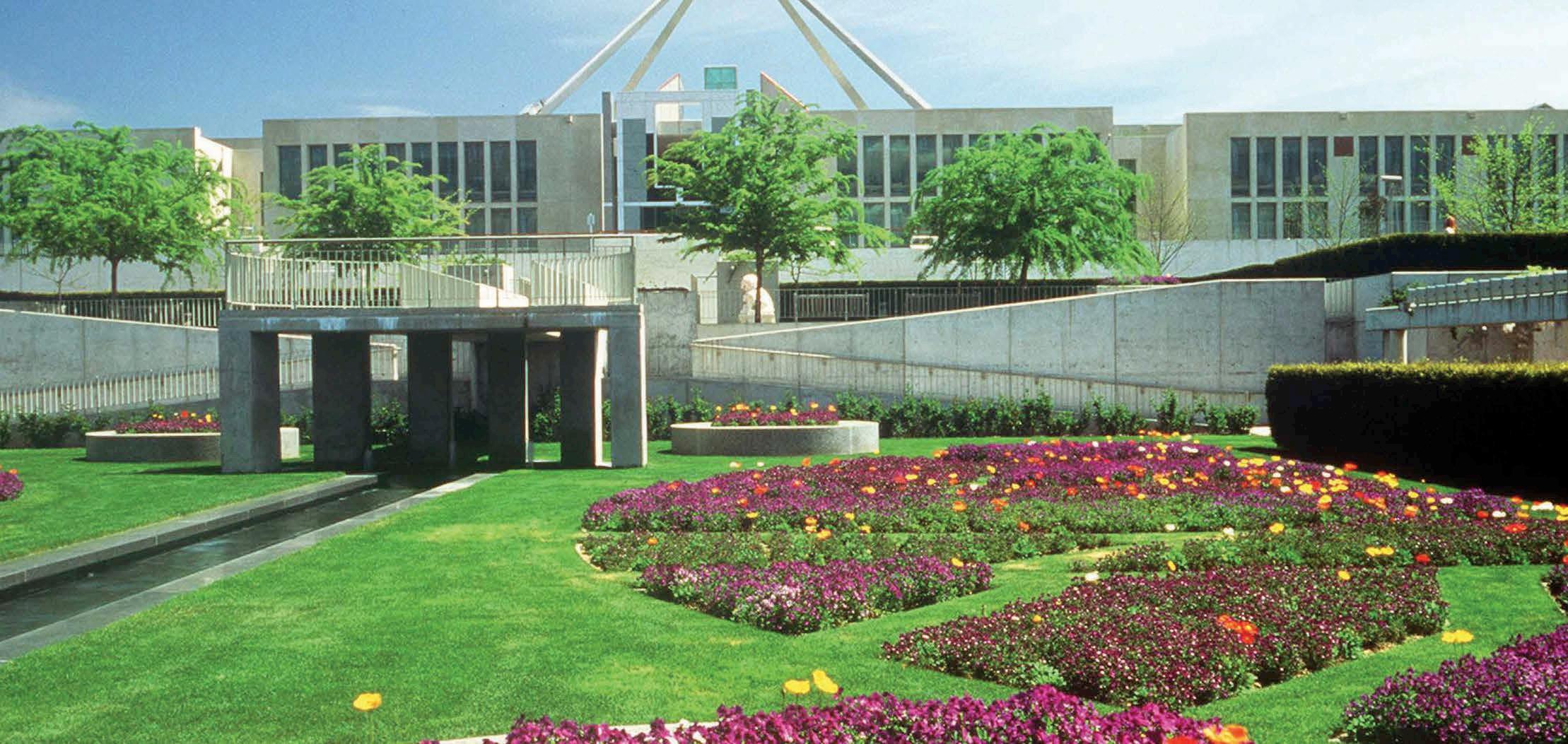
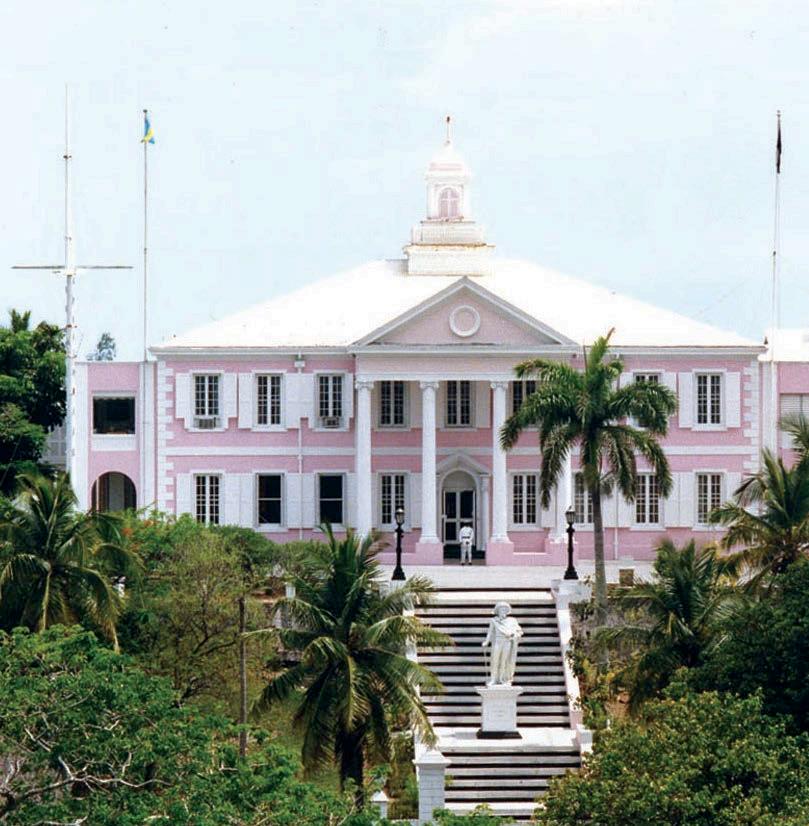
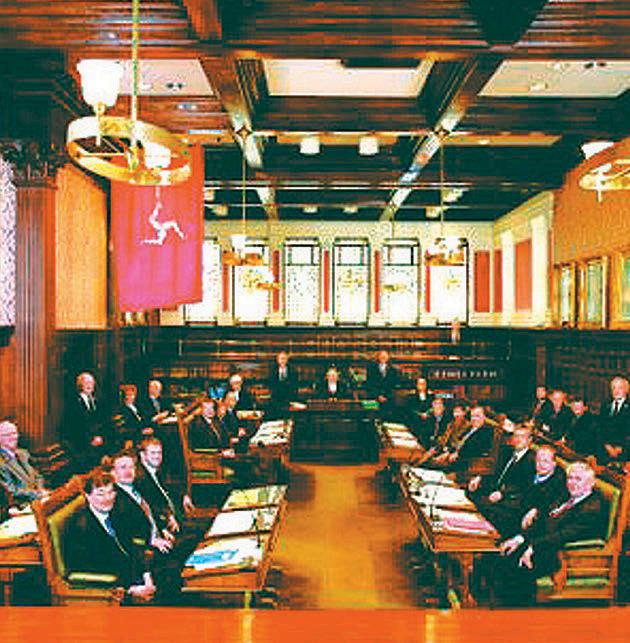
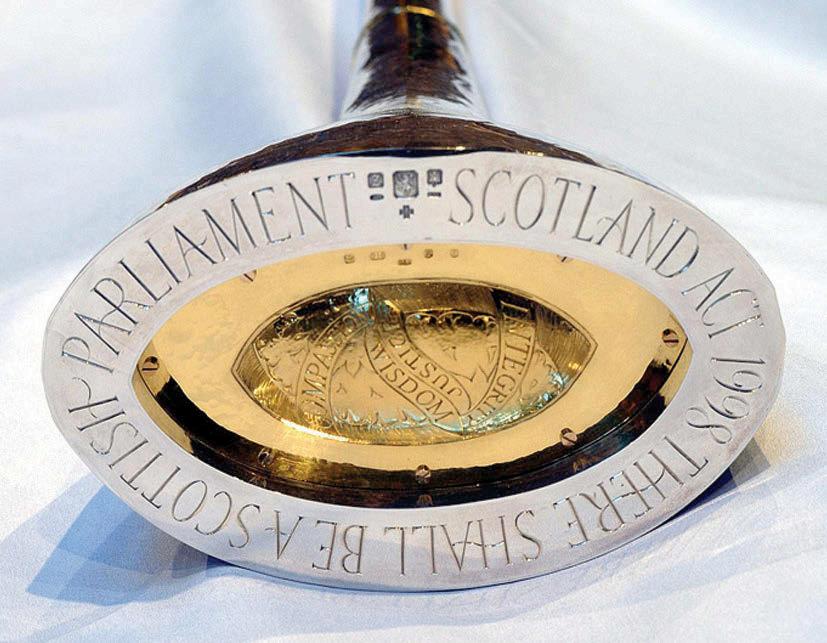
Page 80
DISSOLUTION OF PARLIAMENT IN CANADA
Page 74
NEW INITIATIVES TO BOOST ECONOMY IN AUSTRALIA
Page 70
DEBATING THE CONDUCT AND RIGHTS OF U.K. MEMBERS Page 77
Government delivers second economic stimulus package
On 3 February 2009 the Rudd Labor Government announced its second economic stimulus package to address rising unemployment and the economic slow down arising from the severe global recession. The plan requires the passing of a series of legislation.
The Nation Building and Jobs Plan, costing $42 billion, will help to support jobs and invest in future long term economic growth. The Treasury estimates that the Nation Building and Jobs Plan will support up to 90 000 jobs in 2008-09 and 2009-10. The key measures of the plan include free ceiling insulation for around 2.7 million Australian homes, 20,000 new social and defence homes and a temporary business investment tax break for small and general businesses buying eligible assets.
The government indicated that the initiatives in the Nation Building and Jobs Plan will provide a boost to economic growth of around 0.5 per cent of GDP in 2008-09 and around 0.75 per cent to one per cent of GDP in 2009-10.
The Prime Minister, Hon. Kevin Rudd, MP, stated that “this is a plan of unprecedented scope—that is because the challenge we have been delivered by this global recession is also virtually
unprecedented”. In relation to the reasons for the global financial crisis, Mr Rudd stated that “this crisis has been created by an ideology of unrestrained greed and turbocharged by unregulated financial markets and obscene remuneration packages that maximised risk with no regard whatsoever for the impact of their behaviour on ordinary investors, ordinary shareholders, superannuation policyholders, and small businesses and their employees”.
Mr Rudd noted that the global recession has had a significant effect on government revenues. He reported that “since the budget last year, the global recession in general and the collapse of China’s growth in particular has therefore produced a $115 billion fall in Australian tax receipts to government”. Mr Rudd advised that “this fall in revenue will drive Australia into
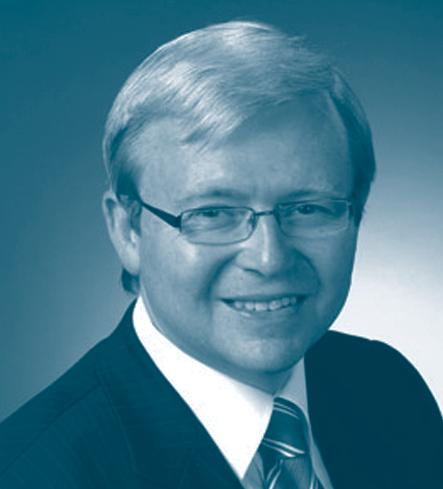
Hon. Kevin Rudd
a temporary deficit even before any policy action is taken by our government”.
Mr Rudd defended the need for the stimulus package and did not fear taking the budget into deficit in an attempt to support jobs and growth. He noted that there was support for a stimulus package from the Australian Chamber of Commerce and Industry and the Business Council of Australia. Mr Rudd did commit to returning the budget to surplus as soon as the economy recovers and grows above trend.
The legislation underpinning the stimulus package requires coalition or independent support for it to be passed in the Senate. The coalition, in a high risk strategy, resolved to reject the stimulus package because it is too expensive and the programs are poorly targeted. In view of the coalition’s opposition to the strategy, the government negotiated with the cross bench Senators including the Greens, Family First Senator Steve Fielding and Independent Senator Nick Xenophon. The support of these seven Senators was required for the package to pass the Senate. At the first vote in the Senate on 12 February, Senator Xenophon voted against the package because the government would not committee enough funding to support the Murray Darling
Basin. On 13 February following intense negotiations, Senator Xenophon voted with the government and the stimulus package was passed.
The Leader of the Opposition, Hon. Malcolm Turnbull, MP, noted that the budget in just nine months has gone from a surplus of $22 billion to a deficit forecast this year of $22 billion. Mr Turnbull

argued that there was no suggestion that the government should do nothing. Mr Turnbull stated that “we have said from the outset that we are prepared to, and indeed seek to, sit down and work cooperatively with the government on the appropriate response to the financial crisis”.
Mr Turnbull questioned whether one-off financial payments would produce an economic stimulus. He noted that the cash payments arising from the first stimulus package announced in October 2008 had not worked. Mr Turnbull noted that “we do know that in the middle of last year, when the United States government undertook a series of one-off payments that were very similar in terms of their size as a percentage of GDP, there was quite a dramatic spike in household income and a very modest rise in household consumption or expenditure, and only a small percentage of that investment by the
government in those one offpayments contributed to economic activity.’
Mr Turnbull noted that “around the world, leading economists have argued that a more effective way of providing a stimulus is to increase permanent income”. Mr Turnbull therefore proposed that “the tax cuts due on 1 July 2009 could be brought forward to 1 January and that indeed, for a larger stimulus, the tax cuts due on 1 July 2010 could be brought forward”.
Mr Turnbull concluded that
because the government has “failed to provide a coherent strategy to address this crisis, it needs to look at policies that will create employment and jobs, not at ones which simply involve spending”.
On the weekend of 7 February 2009 the worst bushfires in Australian history devastated large tracts of rural Victoria. The scale of the devastation and human loss is unprecedented. At the time of reporting 181
people had been killed, almost 2,000 homes had been destroyed and over 7,000 people left homeless. In some cases, entire villages had been lost. The police suspect an arsonist was behind the fires. The tragic loss of life and homes has touched all Australians who have responded by donating more that $100 million to the relief effort.
The scale of the fires exceeds the devastation and loss associated with the Ash Wednesday fires of 1983 and
The National-building Funds Act provides three financial asset funds including the Building Australia Fund, the Education Investment Fund and the Health and Hospitals Fund to provide capital investment in transport, communications, energy, water, higher and vocational education and health infrastructure. The funds will be established as special accounts in the Consolidated Revenue Fund and will be managed by the Future Fund Board of Guardians.
The Minister for Finance and Deregulation, Hon. Lindsay Tanner, MP, commented that “these new funds build Australia’s infrastructure needs for the future and will assist in addressing Australia’s immediate challenges in response to the global financial crisis, as well as its longer term challenges over the next decade and beyond”. Mr Tanner noted that the legislation provides for “interim arrangements to begin as early as possible, as investment in critical infrastructure can help secure economic activity in the short term and extend growth potential in the medium to long term”.
The government will contribute a total of $12.6 billion to the Building Australia Fund for transport, communications, energy and water, infrastructure, including proceeds from the T3 sale and the balance of the Communications Fund; a total of $8.7 billion to the Education Investment Fund for education infrastructure, including the balance of the Higher Education
Endowment Fund; and $5 billion to the Health and Hospitals Fund, for health infrastructure.
The Shadow Treasurer, Hon. Julie Bishop, MP, noted that the money in the funds would be considerably smaller than was originally promised by the government. Ms Bishop noted that “all funding that Labor is currently using is the legacy of the coalition, and that legacy includes the paying off of the $96 billion of Labor’s debt from the last time Labor was in government”. Ms Bishop stated that “the Rudd government is in the extremely fortunate position, unlike most other comparable governments around the world, of having no net government debt, thanks to the vision, the prudence and the strong economic management of the coalition when in government”.
Notwithstanding concerns about the Rudd Government’s budget management, Ms Bishop confirmed that “the coalition supports the targeted, careful and prudent use of public money for worthwhile nation-building projects”.
Ms Bishop commented that the Coalition was concerned that the nation-building funds would be used to prop up underperforming state governments. Ms Bishop stated “the federal coalition has serious concerns about the management of these funds and about ensuring they are not used to prop up incompetent state Labor governments that have failed to invest in their own infrastructure, state Labor governments that have largely squandered the opportunities provided by the GST windfall.
the Black Friday fires of 1939. Some of the areas in Victoria hit by the fires include Marysville, Kinglake and Kinglake West. The House of Representatives and the Senate moved condolence motions on 10 February and suspended the remainder of business as a mark of respect to the memory of those killed. The flag above Parliament House flew at half mast.
While the Prime Minister was at the fire affected areas giving support to firefighters and
seeking to console the homeless, the Deputy Prime Minister, Hon. Julia Gillard, MP, moved the condolence motion “that the House extends its deepest sympathies to families and loved ones of those Australians killed in the weekend’s tragic bushfires in Victoria”.
Ms Gillard commented that the bush fires were “a tragedy beyond belief, beyond precedent and, really, beyond words”. She said that “7 February 2009 will now be
Guarantee Scheme for Large Deposits and Wholesale Funding Appropriation Act 2008
This Act establishes a standing appropriation to enable claims to be paid under the Australian Government Guarantee Scheme for Large Deposits and Wholesale Funding. The legislation provides a borrowing power to enable money to be borrowed to pay such claims should there be insufficient funds in the Consolidated Revenue Fund.
The Treasurer, Hon. Wayne Swan, MP, commented that the legislation “will provide international markets with the assurance that Australian institutions are, in their borrowings, supported by an Australian government guarantee, and that payments made under that guarantee will be timely”.
The deposit guarantee provides for the first $1 million deposited with an Australian incorporated bank, a credit union or a building society to be guaranteed free of charge. Deposits in excess of $1 million will be eligible for a guarantee for a fee. The wholesale guarantee provides for short-term and long-term wholesale funding for Australianincorporated banks, building societies and credit unions, building societies and credit unions, and short-term funding for foreign bank branches raised from Australian residents to be eligible for the guarantee for a fee.
Mr Swan informed that an estimated 99.5 per cent of individual deposits held by Australians are worth $1 million or less. As a result virtually all depositors will continue to be protected, free of
remembered as one of the darkest days in Australia’s peacetime history”. Ms Gillard told of some of the stories of loss and bravery. She stated:
There is the courage of the stranger who saved Traralgon South resident Ms Eileen Scott and her baby daughter, Lily. Eileen had drawn all the blinds on her home to try and protect herself and her daughter Lily from the searing heat when she heard banging on the door and someone screaming at her to get out. The stranger was
charge, by the Financial Claims Scheme established in the Banking Act.
In relation to transparency and accountability, Mr Swan stated that “the government will publish regular reports on the guarantee scheme’s website— www.guaranteescheme.gov.au— including a statement of publicly issued guaranteed liabilities”.
Ms Bishop observed that the legislation was overdue and it took “six weeks for this government to concede that the opposition had correctly called for legislation to be introduced into this parliament to support the government’s bank guarantee of large deposits and wholesale term funding”. She argued that the government made an error in originally calling for an unlimited deposit guarantee which went further than any comparable country. Ms Bishop, for example, noted that ‘the United States had a deposit guarantee of about $100,000 and they were thinking of putting it to $250,000, and the United Kingdom were thinking of introducing a deposit scheme of about ₤50,000. She added that when the government was calling for an unlimited bank guarantee for deposits, it claimed that it was acting on the advice of the regulators and specifically on the advice of the Reserve Bank Governor: ‘We learned that within a few days the Reserve Bank governor was so concerned that he put his concerns in writing and said that there should be a cap—“the lower, the better”. As a result she said that “we finally discovered that the Reserve Bank Governor was not directly consulted”.
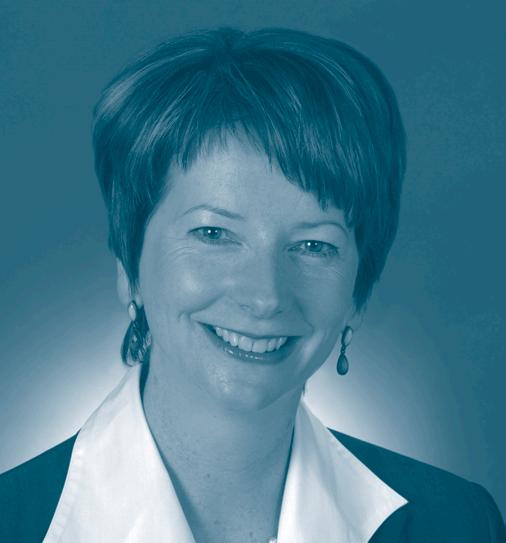
Melissa Falzon who got Ms Scott out of the house and picked up little Lily before the house erupted in flames. Ms Scott yesterday called Ms Falzon her angel.
Ms Gillard advised that “under the Commonwealth disaster plan, the Australian government has responded to three requests for assistance: the provision of beds for relief centres, heavy equipment for control lines and tents and bedding for accommodation”. In addition, “emergency payments are being made to help families who have lost their homes get a roof over their heads”. The Australian and Victorian governments established a $10 million community recovery fund to assist the recovery effort.
Ms Gillard concluded that “today, on behalf of the Prime Minister, the Members of this Parliament and the nation, I want to grieve for those we have lost, pay tribute to the victims and praise the courage of those without whose help the death toll and the physical destruction would have been much, much worse. I commend the motion to the House”.
Mr Turnbull commented that while we have a beautiful country it is also a “terrible beauty and we have seen the full terror of that beauty in the last few days”. Mr Turnbull also related stories of survivors of the fire. Mr Turnbull stated that
“when we were at Whittlesea today, survivor after survivor told Fran Bailey [MP for the Federal Seat of McEwen] and me that the fires have been moving at 120 kilometres an hour. Who can outrun—how can you outrun—a menace like that?”
Mr Turnbull gave praise to the men and women firefighters of the Country Fire

Association. He said that “these men and women embody the very best of the Australian spirit of self-sacrifice in the service of others”. Mr Turnbull concluded that “today we offer our heartfelt prayers for the families who have lost their loved ones, and extend our unstinting admiration to the men and women who have defended the lives of so many Australians in this terrible tragedy”.
On 16 February the Deputy Leader of the Opposition, Hon. Julie Bishop, MP, announced that she was stepping down from the position of Shadow Treasurer. Ms Bishop had been for some time subject to internal party criticism about her performance. She commented that “while I believe I have carried out my duties as Shadow Treasurer diligently and competently, I have formed the opinion that the ongoing commentary on my role has been a distraction
from the scrutiny that should have been applied to the government’s reckless economic performance”.
Ms Bishop advised that she would move to the position of Shadow Minister for Foreign Affairs “because of the importance of retaining the international standing and influence of Australia that was achieved under the former coalition government”.
Mr Turnbull announced that Hon. Joe Hockey, MP, will take on the role of Shadow Treasurer, and Sen. the Hon. Helen Coonan will be Shadow Minister for Finance, Competition Policy and Deregulation. Mr Turnbull stated that “Joe and Helen, both of whom served in treasury portfolios in the previous coalition government, will present a formidable team to take on the Rudd Government over its mishandling of the economy and bungled response to the global financial crisis”.
In other developments, the former Leader of the Opposition, Hon. Brendan Nelson, MP, announced that he would not be contesting the next election. Mr Nelson stated that he was “extremely proud to have been part of a government that made Australia a stronger, more prosperous and confident


nation and to have been given the honour of leading the Liberal Party following our 2007 election loss”.
The former treasurer in the Howard Government and now backbencher, Hon. Peter Costello, MP, remains quiet about his future while speculation continues to mount about whether he will contest a leadership position.
Great Barrier Reef Marin Park and Other Legislation Amendment Act 2008
This Act provides a framework for the administration and management of the Great Barrier Reef Park. The legislation provides for environmental impact assessment, investigation and evidence collection, targeted approaches to enforcement and encourages responsible use of the park. In addition, the Act introduces new emergency powers.
The Minister for the Environment, Heritage and the Arts, Hon. Peter Garrett, MP, commented that “the Great Barrier Reef is the world’s largest and most complex coral reef ecosystem and is indeed one of our great national treasures”, and that “tourism generates approximately $6 billion per annum, recreational activities $554 million per annum and commercial fishing $251 million per annum”.
The Great Barrier Marine Park Act has operated for over 30 years and Mr Garrett noted that parts of the existing legislation are out of date. For example, the legislation “does not recognize the world heritage status of the
Great Barrier Reef or incorporate concepts such as ecological sustainability and the precautionary principle”. He advised that the amending legislation “will put in place a robust, comprehensive, regulatory framework for the Great Barrier Reef fit for meeting the challenges of the future”. In relation to emergency powers, Mr Garret stated that the legislation “enhances the capacity of the Great Barrier Reef Marine Park Authority to respond to emergency incidents presenting a risk of serious harm to the environment of the marine park”.
The Shadow Minister for Climate Change, Environment and Water, Hon. Greg Hunt, MP, indicated that the coalition supported the legislation and commented that “it is in fact almost overwhelmingly our legislation”. Mr Hunt noted that the previous government “completed a review of the Great Barrier Reef Marine Park Act and Great Barrier Reef Marine Park Authority in 2006”. He indicated that the coalition approached the management of the Great Barrier Reef from a bipartisan perspective.
The past several months have been eventful in Canadian federal politics, with a third election in four years, a political crisis and the brief formation of a coalition government-inwaiting.
On 7 September 2008, Prime Minister Rt. Hon. Stephen Harper requested Governor General the Rt. Hon. Michaëlle Jean dissolve Parliament. Prior to dissolution, his minority government had on several occasions sought to be defeated on a question of confidence in the House of Commons, which would have triggered a general election because of Canadian constitutional conventions, and would have given Mr Harper a chance at a majority government. However, members of the official opposition, led by Liberal Leader Mr Stéphane Dion, either voted with the government or abstained from voting. Prior to dissolution, Mr Harper had affirmed that Parliament was not working well and was increasingly dysfunctional. Between the end of August and the beginning of September, Mr Harper had met with Mr Dion, Mr Jack Layton and Mr Gilles Duceppe, Leader of the Bloc Québécois, in order to seek support for his agenda until October 2009, when the general election should have had occurred pursuant to the Fixed Date Elections Act, proposed earlier by the Harper
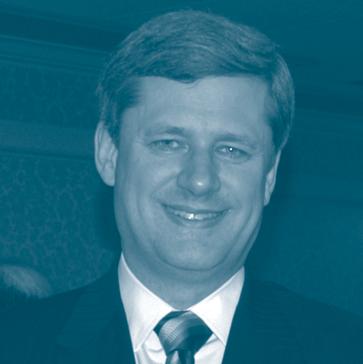
Government and passed by Parliament. As these meetings were inconclusive, Mr Harper dissolved Parliament. In the early days of the election campaign, Mr Harper was often criticized for not having complied with the spirit of his Fixed Date Elections Act which provided that the next general election be held in October 2009. Mr Harper was able to dissolve Parliament in spite of that new legislation because it did not restrict the power of the governor general to do so.

Mr Stéphane Dion
When he went to the polls, Mr Harper campaigned to convince Canadian voters to return his team with a majority. However, Canadian voters did not give Mr Harper a majority government, though they did give him a more comfortable minority. Compared to the 2006 election results, the Conservative Party (from 124 to 143) and the New Democratic Party (from 29 to 37) increased their representation in the House of Commons, while the Bloc Québécois seats slightly decreased from 51 to 49 and the representation of the Liberal Party dropped from 103 to 77. Poor results for the Conservative Party in Quebec, where it made no gain compared to the January 2006 election and obtained only 10 of the 75 seats available in that province, have been presented as an explanation as to why the government failed to secure a majority.
On 20 October, Mr Dion announced that he would step down as Leader of the Liberal Party, but that he would stay as interim Leader until his party’s next leadership convention. Shortly after Mr Dion’s announcement, it appeared that MPs Mr Michael Ignatieff and Mr Bob Rae, candidates who had respectively run second and third in the preceding leadership race, would be the major contenders for this race. Mr Dominic Leblanc, a Liberal MP from New-Brunswick and son of former governor general the Rt

Hon Roméo Leblanc also announced that he would be a candidate.
In late October, Mr Harper unveiled his new cabinet, composed of 29 Ministers and nine Ministers of State. Most Ministers were already Members of the cabinet prior to the September 2008 election and of those, some were assigned new portfolios. This was the case for Hon. Lawrence Cannon, who is now Minister of Foreign Affairs, replacing Hon. David Emerson who decided not to seek election as a member of the Conservative Party. Other additions included Hon. John Baird replaced as Minister of Transport, Hon. Jim Prentice as Minister of the Environment, and newly elected MPs, Hon. Lisa Raitt, Minister of Natural Resources and Hon. Leona Aglukkag, Minister of Health.
On 18 November 2008, Hon. Peter Milliken was re-elected as Speaker of the House of Commons. Mr Milliken became the first Speaker to hold that office during four different and consecutive Parliaments. On 27 November 2008, the Minister of Finance, Mr Flaherty, delivered to the House of Commons the government’s economic statement. Mr Flaherty forecast that the Canadian government
would have the smallest surplus since the country emerged from the deficit era in 1998. Opposition parties asserted with one voice that the fiscal update failed to offer any economic stimulus in this time of economic crisis. Moreover, an attempt to end the public financing of political parties provoked a major reaction. There were soon rumours that the three opposition parties could form a coalition government. These rumours became more serious when former Liberal Prime Minister the Rt Hon Jean Chrétien and former Leader of the New Democratic Party, Mr Ed Broadbent led negotiations between the two political parties. On 1 December 2008, the three opposition leaders announced that they had reached an agreement. The Liberal Party and the New Democratic Party would form a
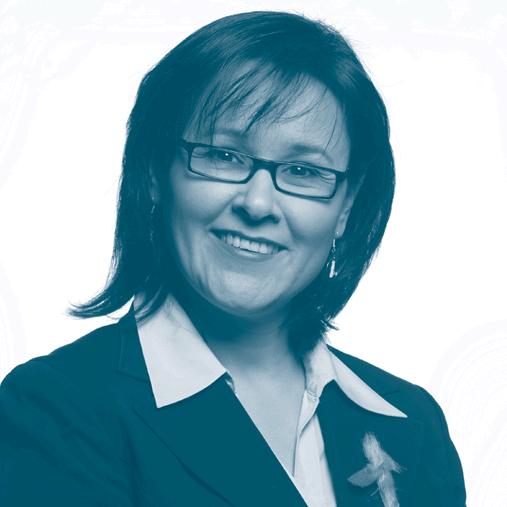
coalition government should the current government be defeated. The coalition government was to be led by Mr Dion while his party chose his successor. While the Bloc Québécois was not part of the coalition as such, it agreed not to defeat such a coalition government for 18 months. Mr Harper’s government seemed close to an end, especially with an anticipated vote of non confidence scheduled for 5
December. The Conservative Party replied by denouncing the coalition as anti-democratic and accused Messers Dion and Layton of being in bed with the separatist Bloc Québécois. Mr Harper also claimed that the opposition parties should at least wait for his next budget before defeating his government. Prorogation of Parliament, so that the Conservative government could avoid the non-confidence vote in the House of Commons, soon appeared to be an option, which led constitutional scholars to speculate as to the whether or not the Governor General, Ms Jean, would have to comply with Mr Harper’s request for a prorogation so soon after a general election. Suspense came to an end when, following the Prime Minister’s advice, Parliament was prorogued by the
Governor General on December 4, 2008. Mr Harper undertook to present a budget as early as possible when Parliament reconvened in late January. During this period, while doubts were cast on Mr Dion’s ability to lead a coalition government should the Harper government be defeated, there was increasing pressure on Mr Leblanc and Mr Rae to withdraw from the Liberal leadership race and ease the way for frontrunner Mr Ignatieff to become the new leader of the party. They both withdrew in early December, and Mr Ignatieff replaced Mr Dion as leader. Mr Ignatieff had previously expressed ambiguous feelings about the coalition. In fact, he was notoriously the last Liberal to sign a document attesting support for the coalition.
Finance Statutes (Deficit Authorization and Debt Elimination) Amendment Act, 2009
On 9 February 2009, the Legislative Assembly was reconvened to consider Bill 48, Finance Statutes (Deficit Authorization and Debt Elimination) Amendment Act, 2009. Introduced by Hon. Hansen, the bill amends the Balanced Budget and Ministerial Accountability Act by repealing the blanket provision prohibiting deficit budgets, to allow deficits to be presented for the 2009/10 and 2010/11 fiscal years only.
Bill 48 also amends the Budget Transparency and Accountability Act to require that any year-over-year cash increase in the consolidated revenue fund
be applied towards reducing or eliminating any existing direct operating debt; and to restrict the introduction of supplementary estimates in a fiscal year in which an operating debt is projected.
Finance critic Mr Bruce Ralston raised a number of questions about the bill, including inquiring why the government was able to predict the two-year scope of the bill with certainty during a time of economic volatility. He noted that no other province in Canada completely prohibits running deficits, but rather maintains the ability to run a deficit in the case of an emergency. The bill was passed unanimously on 12 February, in advance of the upcoming provincial budget, which is to be presented on 17 February.
Prior to Christmas, Mr. Harper announced the nomination of 18 new Senators. Prior to this, Mr. Harper had only made two appointments to the upper chamber during his term in office. Just after the January 2006 election, Mr Harper had appointed Hon. Michael Fortier to the Senate and also as Minister of Public Works and Government Services. Despite Mr Harper’s
pledge to begin reforming the Senate by appointing only senators that had been elected in special provincial elections, it was said that Mr Fortier’s appointment was justified on the basis that the residents of Montreal deserved to be represented in the Cabinet. The new Senators are from across the country, including one from Newfoundland-and-Labrador, three from Nova Scotia, one
from Prince Edward Island and two are from New Brunswick. At the time of the appointments, Mr Harper said that “if Senate vacancies are to be filled…they should be filled by the government that Canadians elected rather than by a coalition that no one voted for”.
When Parliament resumed sitting in late January, the question was whether the
Economic Incentive and Stabilization Statutes Amendment Act, 2008
On 20 November 2008, the Minister of Finance, Hon. Colin Hansen, introduced Bill 45, Economic Incentive and Stabilization Statutes Amendment Act, 2008. This enabling legislation enacts some short-term measures announced by Premier Gordon Campbell to address the downturn in the provincial economy. It amends the Income Tax Act to accelerate the reduction of personal and small business income taxes previously outlined in the province’s revenue-neutral carbon tax plan. Amendments to the Land Tax Deferment Act allow some homeowners to defer property tax payments for the 2009 and 2010 taxation years. The legislation also sets aside the usual provisions of the Land Assessment Act and establishes as the basis for 2009 property tax bills either the 2007 or the 2008 assessed market value, whichever is lower.
During second reading debate, opposition Members raised a variety of concerns, including specific questions regarding the proposed changes to the property tax assessment system. For example, they asked why local governments, which rely heavily on property tax revenue, were not more extensively consulted, and voiced concern that intervening in the market-based assessment of these taxes could have negative implications. However, the opposition ultimately voted in favour of the legislation, and Bill 45 received royal assent on 27 November 2008.
During a special weekend sitting on 17 January 2009, the Minister of Community Development, Hon. Blair Lekstrom, introduced Bill 47, Vancouver Charter Amendment Act, 2009. At first reading, he explained that the legislation was drafted in response to an urgent request by the City of Vancouver. The amendment allows the city council to borrow money or undertake other financial arrangements in relation to the city’s residential development project, which will also be used as the 2010 Olympic athletes’ village. The need for the amendment arose after the project’s lender required the city to guarantee loan repayments for the development project, due to the global economic downturn. The amendment permits the city to avoid the burden of excessive borrowing costs and access the required funds for the project at a more competitive rate, without seeking prior public approval via a referendum process.
Subsequent to the introduction of the bill, Government House Leader Hon. Mike De Jong proposed that Standing Order 81 (Urgency cases) be utilized to advance the legislation through two or more stages in one day in order to expedite the legislative change urgently requested by the city of Vancouver. The opposition objected to the use of Standing Order 81, arguing that the circumstances were not sufficiently urgent and, more importantly, that the bill required the full scrutiny of debate.
Following Speaker Barisoff’s ruling that Standing Order 81 be applied, after more than 18 hours of debate, Bill 48 was passed unanimously on 18 January.

Liberals would support Mr Flaherty’s Budget or opt for the coalition government alternative. While Mr Flaherty’s economic statement of November 2008 anticipated a small surplus for the upcoming fiscal year, the same minister now forecast a $34 billion deficit

in part due to an ambitious economic stimulus package. The suspense was ended when Mr Ignatieff announced that the Liberal Party would vote for the Budget provided that periodic reports are presented to Parliament on how the economic rescue package is being spent. “We are putting this government on probation,” stated Mr Ignatieff. NDP Leader Mr Layton commented: “We have a new coalition now on Parliament Hill – it's a coalition between Mr. Harper and Mr. Ignatieff."
On 27 November 2008, the Shadow Home Secretary, Mr Damian Green (Conservative), was arrested in connection with the leaking of documents from the Home Office and was held for questioning. He was released later that day. At the same time, the Metropolitan Police searched Mr Green’s Westminster office and removed papers. This incident deeply troubled those who considered it to be a breach of a Member’s privilege for the police to enter the Palace of Westminster and potentially take action that interfered with the work of an MP. The House was prorogued at the time, but the following week, when MPs returned, the Speaker made a statement on the matter. Speaking on Wednesday 3 December, he said “parliamentary privilege has never prevented the operation of the criminal law. The Joint Committee on Parliamentary Privilege in its authoritative report in 1999 said that the precincts of the House are not and should not be “a haven from the law”. There is therefore no special restriction on the police searching the parliamentary precincts in the course of a criminal proceeding — nor has there ever been”. Members expressed shock through points of order raised after this statement:
“I have been told that the police did not explain, as they
are required to do, that the Serjeant was not obliged to consent, or that a warrant could have been insisted upon…I regret that a consent form was then signed by the Serjeant at

Arms, without consulting the Clerk of the House…I must make it clear to the House that I was not asked the question of whether consent should be given, or whether a warrant should have been insisted on. I did not personally authorize the search. It was later that evening that I was told that the search had gone ahead only on the basis of a consent form. I further regret that I was formally told by the police only yesterday, by letter from Assistant Commissioner Robert Quick, that the Hon. Member was arrested on 27 November on suspicion of conspiring to commit misconduct in public office and on suspicion of aiding and abetting misconduct in public office. I have reviewed the
handling of this matter. From now on…a warrant will always be required when a search of a Member’s office, or access to a Member’s parliamentary papers, is sought. Every case must be referred for my personal decision, as it is my responsibility. All this will be made clear in a protocol issued under my name to all Hon. Members”.
The Speaker then announced that he would be setting up a committee of senior Members to report on the matter of the seizure of Mr Green’s belongings, and that a debate would be held on this report as soon as possible. The statement was met with a series of Points of Order which suggested that Members were not entirely happy with this approach. This was made very clear in the debate held on 8 December on the motion to establish the Speaker’s Committee on the Search of Offices on the Parliamentary Estate. The motion was introduced by Rt Hon. Harriet Harman, the Leader of the House, and included the provision that “that, following the search of a Member’s office in the parliamentary estate by the police and the seizure of material therein, a committee be appointed to review the internal processes of the House administration for granting permission for such action, and to make recommendations for the
future; that the committee must not in any way prejudice any police inquiry or potential criminal proceedings and that therefore it will be adjourned immediately after choosing a chairman until the completion of any relevant inquiry or proceedings that may follow”. The motion proved extremely controversial, with the Leader’s statement that action needed to be taken as soon as possible challenged by Mr Dominic Grieve (Conservative): “She said at the outset of her remarks that she accepted that Hon. Members would be concerned that there should be no delay in following up the Speaker’s recommendations for an
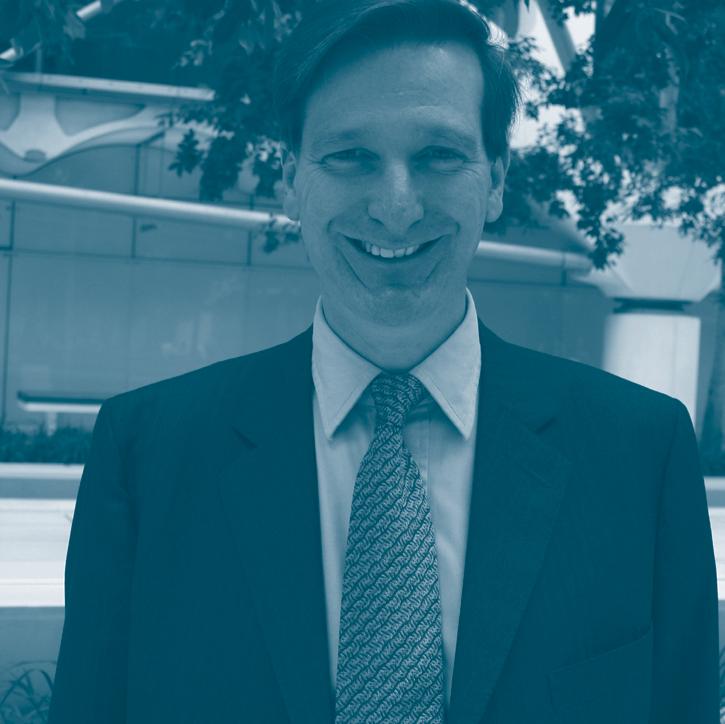
internal inquiry, but does she not realise that by tying it to the police investigation, that is exactly what will happen?” Ms Harman defended the decision by saying “there are two problems here. The first is the
need for the House to avoid the accusation or perception that we are in any way interfering with the police or breathing down their necks. The second is the need for the House to avoid any inadvertent potential prejudice to any future proceedings in court. What is said and done in Parliament is important. That is why there is concern about the search and seizure. By the same token, anything that we say is influential in criminal cases. We have to look ahead to any future criminal trial. We have to avoid doing or saying anything that could hinder justice— either for the prosecution or the defence”.
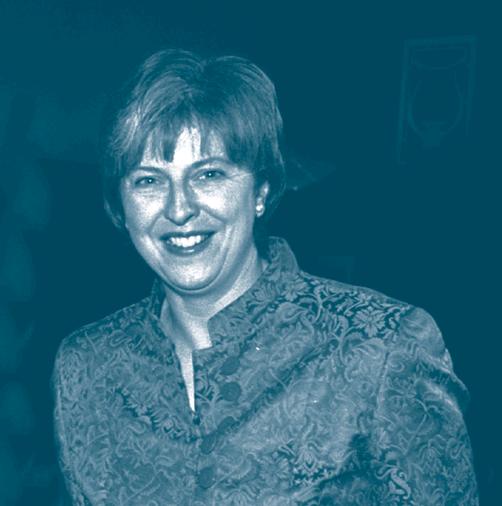
Ms Theresa May (Conservative) commented on the proposed committee: “The government propose that the committee’s membership should reflect the composition of the House—in other words, that the committee should have a government majority. Can the Leader of the House not understand that, for the government’s own sake, there should be nothing that could suggest that they were trying in any way to rig the committee’s outcomes? The Leader of the House should be in no doubt: if the committee were set up with a government majority, it would not have the support of the opposition”.
In a debate where the issues of the rights of the House in respect of the police, the role of civil servants and the leaking of information, the part played by the staff of the House of Commons in admitting the police and the handling of the affair by the government and speaker were all repeatedly raised, the final vote was unsurprisingly close. A compromise amendment tabled by Sir Menzies Campbell (Liberal Democrat), which changed the most contentious parts of the motion (removing the delay in starting the inquiry, and changing the power of nomination to the Speaker) was defeated by just four votes. The final motion passed but both Ms May and Mr Simon Hughes (Liberal Democrat) both rose immediately on Points of Order to say that Members of their parties would be unwilling to serve on the committee.
On 21 January 2009, Mr Daniel Kawczynski (Conservative) made a point of order in which he told the House “I am extremely shocked about what I am going to say. I was about to make my speech in the debate on savers when I received a note from my office saying that there was a police officer there, demanding to see correspondence. The police were already present in my office and I went to see them after making my speech. They said that they were investigating an important case with regard to correspondence that had been sent to Ministers and wanted to see handwriting samples from people who had written to me. I am appalled that officers can behave in that way—entering a Member of Parliament’s office, with no warrant, and demanding constituency correspondence.
To my great embarrassment and eternal shame, I was so
weak that I handed over the letter from my constituent that they demanded”. The following day, the Speaker told the House that this incident concerned a police investigation into alleged threatening behaviour to Members, did not involve Mr Kawczynski, and explained “In the course of the investigation, a police officer assigned to duties in the House, but exercising her responsibilities as a constable, sought assistance from the staff of the Hon. Member and agreed a time to meet them. Assistance was given by the Hon. Member’s staff after the officer had explained the nature of the

inquiry. At a point in their discussion, the Hon. Member was contacted by his staff because it was thought necessary to seek his permission for the police to obtain a single-sheet document from his office. The purpose of the investigation was explained to the Hon. Member, and after discussion, he agreed to supply the document”. This incident illustrates the continuing sense of uncertainty in the House regarding the exact status of Members and their offices and the rights of the police –something that will no doubt be raised again once police investigation involving Mr Green, who has not been charged, has concluded.
The Mace On Thursday 15 January, the House heard a statement concerning the government’s decision to grant permission for a third runway at London’s Heathrow airport. This was a controversial move as the runway had been opposed by local residents and environmentalists. Rt Hon. Geoffrey Hoon, Secretary of State for Transport, took an intervention from Mr John McDonnell MP, whose constituency includes Heathrow. Mr McDonnell said “The decision today, for my constituents, is an absolute disgrace. The commitments that have been given on the conditions to be attached are spin. They are as worthless as the commitment that there will be no third runway. The decision is a betrayal of future generations, in terms of the environment, and a betrayal of my constituents, who will lose their homes, their schools, their cemeteries, their churches and their gurdwara. It is a betrayal of this House and democracy not to have a vote in the House. We are not asking for a vote on every infrastructure project; we are asking for the most significant project in a generation to be brought to this House for a vote. Will there be a vote and why not?” When the Secretary of State confirmed that the matter would not be put to the House, Mr McDonnell walked from his place and lifted the Mace from its stand on the Table of the House, placing it on one of the benches. The Mace represents the Sovereign’s authority in the House and the House may only sit if the Mace is in its place. Mr McDonnell is not the first Member to choose to protest through removing the Mace –Mr Michael Heseltine, MP, in 1976 famously swung it around his head – but it is an unusual occurrence. Mr McDonnell was promptly name “named” by the
Speaker and consequently suspended for five days. He has subsequently said that he does not regret his actions.
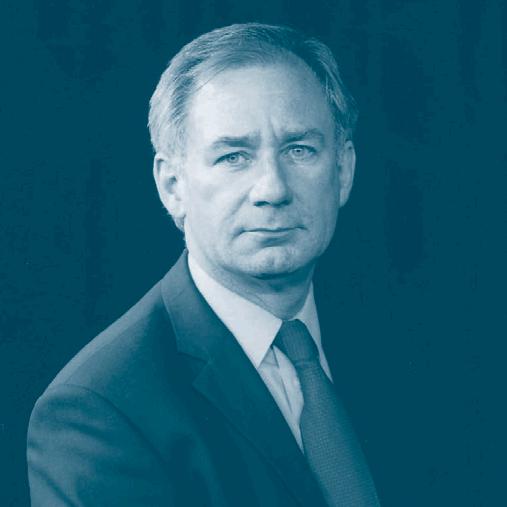
On 22 January 2009, Members spent the day debating changes to their allowances system. Following a high profile case of misuse of staffing allowance, resulting in widespread public criticism of the existing provisions, and a ruling from the Information Commissioner, a publication scheme setting out the headings for expenses routinely to be published was agreed by the House.
A new Guide to Members’ Allowances (the Green Book) was approved, in a revised version that had emerged following a review by the Members Estimate Committee, and it was also agreed that this committee would “carry out a review of the provisions of the resolutions of this House relating to such expenditure, make such modifications to them as are necessary to ensure that they are consistent with the provisions in the Green Book, and report to the House”. A new committee on Members’ allowances, which will advise the Members Estimate Committee, was also established.
The Leader of the House introduced the motions: “There should be proper resources to enable MPs to carry out our work, and we need to be sure that those allowances are not abused and that no MP uses them to line their own pockets. When that happens, as it did so
disgracefully in the case of one particular Member last year, it is not only the public purse that suffers. What suffers is the reputation of this whole House and of every single Member who works hard and abides by the rules. It is to take further steps to prevent the possibility
of that abuse that I bring these motions to the House today, so that the public and the whole House can rest assured that public money is properly spent”.
The House was broadly supportive of this increased level of scrutiny.
Grant of Citizenship to persons of Indian Origin Bill & Grant of Citizenship to Stateless Persons
Two important Bills, the Grant of Citizenship to persons of Indian Origin (Amendment) Bill and Grant of Citizenship to Stateless Persons (Special Provisions) (Amendment) Bill were passed in Parliament on 8 January 2009.
While commencing the second reading in the debate, Prime Minister Hon. Ratnasiri Wickramanayaka said that over, 150,000 stateless persons would be granted citizenship under these amendments. "The Sirima-Shasthri pact too would come into full effect with the implementation of these two Acts. In addition, a number of benefits given by the Sirima-Shasthri Agreement will also be streamlined on behalf of the stateless," he noted.
"We are ready to solve a number of problems which are expected to arise on the implementation of these Acts through discussions," the Premier added.
Minister of Labor Hon. Athuada Seneviratne, M.P. (UPFA), said the grant of citizenship to 150,000 stateless people for 180 years (nearly four generations) is an achievement of the Government under the leadership of President Mahinda Rajapaksa. The colonial powers brought Indians to Sri Lanka to employ them in coffee plantations since Sri Lankans refrained to work in those estates. Later, those Indians were employed in rubber and tea estates. Those people were of lower social, economic and educational strata, he said. The Minister said according to the Sirima-Shastri Agreement, a large number of them were sent back to India.
Earlier, the Sri Lankan Law Commission had suggested some amendments to the citizenship law to allow grant of citizenship to the people who did not have the right documents to prove that they had been continually residing in Sri Lanka from 1964 onwards – a basic requirement
for citizenship by registration in the case of Indians.
Following consistent efforts by NGOs, officials and political leaders in Sri Lanka and India, the Sri Lankan cabinet has approved a proposal by the Janatha Vimukthi Peramuna (JVP) to grant citizenship to these "stateless" people, who had fled the island because of ethnic riots and war since 1977.
Many had left Sri Lanka with no documents of any kind to show that they were Sri Lankans. At the initiative of the JVP, a parliamentary select committee was set up to supervise the implementation of the cabinet decision.
The only Tamil MP from the JVP, Hon. Ramalingam Chandraekharan, who is of Indian origin, was made the chairman of the committee. He had visited Tamil Nadu and studied the problem of the refugees and was convinced that the refugees would return to Sri Lanka if only the legal hurdles were removed.
Sri Lanka had more than a million "stateless" Tamils of Indian origin at the time of independence in 1948, as neither Sri Lanka nor India would accept them.
In the mid 1960s, a few hundred thousand were given Sri Lankan or Indian citizenship through bilateral agreements. But it was not until 1988 that most of the stateless in Sri Lanka were given citizenship through a political and electoral deal between the then President Mr R. Premadasa and the Indian Tamil leader Mr S. Thondaman.
In the meantime, and especially since 1983, war and anti-Tamil riots had driven thousands of the stateless away to India. Under the Act, persons of Indian origin who satisfy the following are entitled to Sri Lankan citizenship: -
a) Has been a permanent resident of Sri Lanka since 30 October 1964 or
b) Is a descendant; resident in Sri Lanka, of a person who has been a permanent resident of Sri Lanka since 30 October 1964.
Parliament condemns terrorist attacks on Mumbai The terrorist attack on Mumbai on 26 November 2008 was the major issue of discussion soon after the Parliament met on 10 December 2008. The terrorists in four groups attacked the Chatrapati Shivaji Railway Terminus (CST); the Leopold Cafe and Taj Hotel; the OberoiTrident Hotel and the Nariman House.
The Speaker of the Lok Sabha, Shri Somnath Chatterjee, said that life in Mumbai had been paralyzed due to the attack. Strongly condemning these terrorist attacks on the country, he called for strict action to prevent recurrence of such cowardly and inhuman attacks. The Vice-President of India and the Chairman of Rajya Sabha, Shri Mohammad H. Ansari also made a reference in the Rajya Sabha to the unprecedented terrorist attack.
As revealed through interrogation and investigation, the apprehended terrorist came from Village Faridkot in District Ukada, in the province of Punjab in Pakistan. Giving details of the responses mounted by the security forces and the national security guards (NSG) – the counter terrorists group – the Minister of Home Affairs, Shri P. Chidambaram, said that the operations were conducted under very difficult circumstances. The security forces were able to neutralize
the terrorists and rescue hundreds of people who had been trapped in the building. The operations came to an end on 29 November.
The Home Minister said several terrorist organizations operating from territories beyond India's borders had been identified as the source of the terrorist attacks in India that had occurred over the last several years.

Chidambaram said that there was a tendency to treat some intelligence inputs that were not specific or precise as not actionable intelligence. The responsibility for acting upon intelligence inputs is also quite diffused. While saying that the basic structure seems sound, he admitted that there is a need to make intelligence gathering and intelligence sharing more effective and result oriented. He informed that some changes had already been made and more were under way.
A number of steps have been initiated to remove the logistical weaknesses in
mobilizing and deploying the NSGs. A decision has been taken to locate NSG units in a few regional hubs also to draw upon the commando units of the armed forces to create more regional hubs until a decision is taken to locate NSG units in those hubs too. A decision has been taken inprinciple to create a coastal command for overall supervision and coordination of maritime and coastal security, and the setting up of 20 counter-insurgency and antiterrorism schools in different parts of the country for training the commando units of the state police forces has also been introduced to tighten security.
The Minister informed that a separate exercise is underway to strengthen the laws relating to terrorist acts. A set of Bills will be brought to strengthen the legal provisions relating to the prevention, investigation, prosecution and punishment of terrorist acts including a Bill for setting up a national investigation agency, said the Home Minister.
The Prime Minister, in his address to the nation had declared the resolve of the Government to take the strongest possible measures to ensure the security of the nation and the people.
Initiating the discussion, the Leader of the Opposition in the Lok Sabha, Shri L.K. Advani (BJP) said that the Mumbai attack was a case of cross border terrorism. Referring to
the Pakistani President’s admission that the terrorists originated from Pakistan but were non-state actors, Shri Advani said the perpetrators were not ordinary terrorists and the way they chose their targets proved they had a long preparation, which might have been done by Pakistan’s inter services Intelligence (ISI), which in itself is a non-state
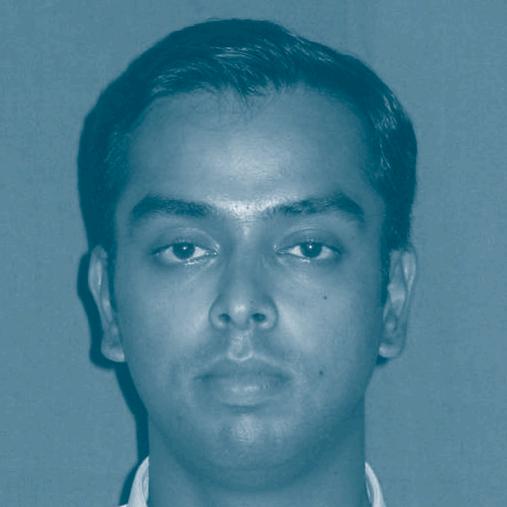
actor and beyond the control of the elected government of Pakistan. Shri Advani assured the government that his party and NDA would extend full cooperation and all possible help required. He was of the view that India should fight on its own and take the Muslims of India into confidence while formulating its response. Shri Milind Deora (INC) said India is a strong country and the government should re-assure the people that it is going to take important steps to prevent such attacks in future. He suggested appointing a commission to study the incident and place the findings before the people.
The Minister of External Affairs, Shri Pranab Mukherjee, pointed out that the epicenter of this attack –and also series of attacks prior to this attack – was located in a neighbouring country. He pressed that there was a need to build up an international campaign against terrorism,
hence, India’s demand for a comprehensive convention to deal with this problem of crossborder terrorism.
Shri Ramji Lal Suman (SP) said that the total lack of coordination among the security agencies was disturbing, and unless the terrorist activities from across the border were checked and the terrorist camps dismantled,
there could not be a lasting solution to this problem. Shri A. Krishnaswamy (DMK) requested the government to face the challenge posed by these terrorists resolutely and also urged for strengthening the intelligence gathering mechanism both at the state and the central levels so that timely action could be taken by the respective security agencies.
The Deputy Leader of BJP in Lok Sabha, Prof. V.K. Malhotra (BJP) contended that India is the only country where 80,000 people had been killed in acts of terrorism and it was shameful that there was no law in the country to fight against it. He assured his party’s support to the formation of a federal investigating agency provided it
The Indian Maritime University Bill, 2008 India is one of the largest maritime countries in the world and has a strong, dedicated and reliable team of officers of the Merchant Navy in the country. The ever-growing demand of Indian seafarers has brought about the need to further India’s training capacity and capabilities, which led the government to propose an Indian Maritime University at Chennai.
A view was also taken that the establishment of an Indian Maritime University would facilitate and promote maritime studies and research with focus on emerging areas, of studies including marine science and technology, marine environment, legal and other related fields, and to achieve excellence in these areas of disciplines.
Accordingly the government enacted the Indian Maritime University Act, 2008 to establish and incorporate a teaching and affiliating University at the national level to facilitate and promote maritime studies and research and to achieve excellence in areas of marine science and technology, marine environment and other related fields.
The bill was passed in Lok Sabha on 21 October 2008 and in Rajya Sabha on 24 October 2008.
The bill as passed by both Houses of Parliament was assented to by the President of India on 11 November 2008.
The Science and Engineering Research Board Bill, 2008 India needs to sustain and increase its strength in basic research in science and engineering as it provides the fertile ground on which innovation thrives and grows. India’s relative position in basic research among nations has slowed down in recent times due to a variety of
factors which require immediate attention if the country is to maintain its pace and edge in the evolving knowledge-based economy.
The government therefore enacted the Science and Engineering Research Board Act, 2008, providing for constitution of an autonomous Board with necessary administrative and financial powers and operational flexibility for promoting basic research in science and engineering in order to achieve higher levels of excellence in internationally-competitive basic research.
Features of the Bill stipulate that the Board shall consist of a corporate body whereby the secretary to the Government of India in the Department of Science and Technology would be its ex-officio Chairperson, and it shall serve as a premier multi-disciplinary research funding agency for planning promoting and funding basic research in every emerging area of Science and Engineering.
During discussion in Parliament the Minister in charge of the Bill stated that the proposed Board sought to promote basic research taking decisions on related matters in an autonomous manner.
Members while welcoming the measure expressed apprehensions over bureaucratic interference and stressed on the need to involve scientific fraternity in the management of the Board. Assuaging the fears expressed by members the Minister assured that scientists from various educational institutions would be nominated on the Board.
The Bill was passed by Lok Sabha on 12 December 2008 and by Rajya Sabha on 19 December 2008. The bill as passed by both the Houses of Parliament was assented to by the President of India on 17 January 2009.
contained some stringent measures to counter terrorism.
Shri Anant Gangaram Geete (Shiv Sena) also said that his party supported the steps of the government for ensuring security of the nation, and suggested for severing all relations with Pakistan unless it took concrete steps to eliminate terrorism. Shri Gurudas Dasgupta (CPI) said that friendship had to be developed with the democratic forces of Pakistan who had also become a victim of terrorism.
Participating in the discussion, Shri Rahul Gandhi (INC) said the terrorist attack was an attack on India, its way of life and its institutions. He added that terrorists had to know there was a cost to killing innocent Indians. Kumari Mamata Banerjee (AITC) said that cross-border terrorism was increasing and demanded for more importance to the border areas of Northern and Eastern parts of the country, while Dr C. Krishnan (MDMK) suggested for strengthening the coast guards and appointing fishermen as watch groups for coastal security. Shri Subrata Bose (AIFB) hoped that in future all intelligence reports when received were taken seriously and acted upon immediately. Shri P.C. Thomas (KEC) suggested disseminating more information to the public in order to seek their full cooperation in fighting terrorism. Shri Rajesh Ranjan (RJD) agreed that alleged suspects who had been arrested or kept under House arrest in Pakistan in connection with the Mumbai attack should be handed over to India without any delay.
Shri P. Chidambaram thanked the Leader of the Opposition and all other Members for assuring not only
the government but also the people of India of its united front.

The Prime Minister, Dr Manmohan Singh said that he was conscious of the fact that the systems and procedures in dealing with terrorism needed to be reviewed, and on behalf of the government apologized to the people that these cowardly acts could not be prevented.
Dr Singh believed that the international community had to be galvanized into dealing sternly and effectively with the epicenter of terrorism, and added that the government had agreed with Pakistan the use of their territory for launching an attack.
The attacks highlighted the need to be able to act in response to such incidents with much greater speed. He informed that the coast guard would be given the sole responsibility of guarding the coastline and arrangements had been streamlined for securing air space taking into account conventional as well as non-conventional threats. The Prime Minister informed that mechanisms had already been put in place to provide more timely intelligence to pre-empt future terrorist attacks, integration and coordination among the various intelligence
agencies. Security forces would also be provided with modern and sophisticated equipment to tackle the increasing threat of terrorism.
At the end of the debate, the Prime Minister made the following resolution:
“This House expresses its unequivocal condemnation of the heinous terrorist attacks in Mumbai by terrorist elements from Pakistan, claiming hundreds of innocent lives and seeking to destroy the values that India stands for; this outrage follows acts of terror committed since the beginning of this year in various places across India and on the Indian Embassy in Kabul. The group responsible, Lashkar-e-Toiba, is a terrorist organization that is listed in the UN Security Council Resolution 1267 and is banned in Pakistan, has continued to operate and launch terrorist attacks against India. India shall not cease its efforts until the terrorists and those who have trained, funded and abetted them are exposed and brought to justice; India shall firmly counter all evil designs against its unity, sovereignty and territorial integrity; India shall remain resolute and shall be victorious in its fight against the barbaric menace of terrorism; and the ideal of a secular and democratic India shall prevail.”
In order to combat the threat against terrorism, the Home Minister on 16 December, introduced in Lok Sabha the National Investigation Agency Bill, 2008 and the Unlawful Activities (Prevention) Amendment Bill, 2008. Moving the motion for consideration of the Bills on 17 December the Minister said the National Investigation Agency Bill, 2008 seeks to set up a National Investigation Agency (NIA) under the central government to investigate and prosecute
offences affecting the sovereignty, security and integrity of India, security of the state, friendly relations with foreign states and offences under Acts enacted to implement international treaties, agreements, conventions and resolutions of the United Nations, its agencies and other international organizations. The Agency will deal with only eight laws as mentioned in the schedule of the Bill.
The Unlawful Activities (Prevention) Amendment Bill, 2008 seeks to add terrorist offence into the Unlawful Activities (Prevention) Act. The Bill strikes at the root of the terrorist funding. The other provision is the bail provision. The Criminal Procedure Code provides 15 days automatic remand; 90 days in the case of punishment with greater imprisonment for life and 60 days in any other case. The Amendment Bill seeks to replace the 15, 90 and 60 days by 30, 90 and 90 days.
Shri Advani said his party and the NDA would support all steps taken by the government to fight terrorism. He also asked the government to consider construing memberships of banned organizations as a terrorist act.
The Minister of Science and Technology, Shri Kapil Sibal said an Act was not meant to prevent terror; but to punish terrorism, arguing that there must be laws in place to make sure that if a terrorist is caught, he must not get bail easily, with sufficient provisions of the law to convict him. The government will try to ensure that this law does not become an instrument in the hands of those who want to abuse it.
Shri Mohan Singh (SP) said that while enacting such
stringent laws, some safeguard mechanism should also be provided there in order to check its misuse. Most of the state governments had earlier turned down the idea of constituting a national investigation agency saying that it would affect the federal structure of the constitution.
For Shri D. P. Yadav (RJD) strengthening of communal
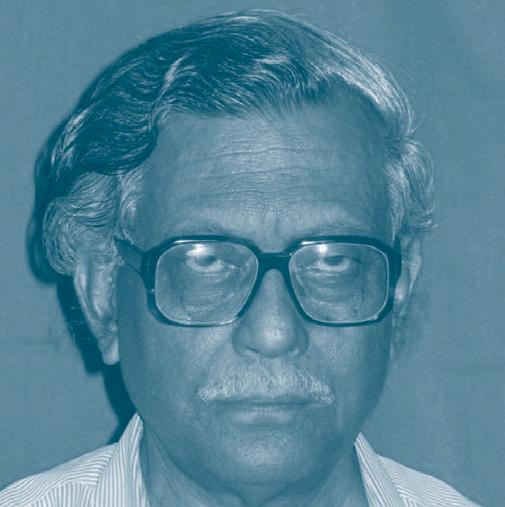
amity is essential to counteracting terrorism. Shri Gurudas Dasgupta (CPI) opposed the provision of 180 days detention without charge and the provision that the accused had to prove his innocence. Shri S. S. Dhindsa (SAD) said if such an agency was to be set up, then a meeting of the Chief Ministers of all states should have been convened to reach a consensus as ultimately all the states were going to be affected.
Supporting both the Bills, Shri M. A. Kharabela Swain (BJP) said everybody should be united in the fight against the scourge of terrorism, while Shri K. Chaliha (INC) thought that the National Investigation Agency that is being created would go a long way in tackling terrorism in the right manner. Prof. M. Ramadass (PMK) said the two Bills proved that the UPA government was not soft in fighting terrorism. Shri J. M. Aaron Rashid (INC) welcomed
the new anti-terror Bill and Shri P. V. Joshi (BJP) called for incorporating sufficient and ample safeguards against misusing the law against innocent people and for settling political scores.
Shri M. P. Veerendra Kumar (JD-S) suggested that the best way to face terrorism was the strengthening of democratic framework and secular policy of the country and not the enactment of draconian laws.
Shri S. Sonowal (AGP) observed that the officers entrusted to carry out the responsibility had to be well trained to communicate with
the people of the country. Shri K. Francis George (Kerala Congress) requested the government to see that the divisive forces existing in the country were also dealt with properly in the amendment Bill.
Shri Salim said passing the Bills with such speed did not fit into the parliamentary system and democratic process of the country, while Shri K. Rerrannaidu (TDP) said caution should be observed in selecting the investigating officers as they would now be given more power.
Replying to the debate, Shri Chidambaram assured
The Salaries and Allowances of Officers of Parliament (Amendment) Bill, 2008
At present, the Chairman of the Council of States in India is paid a salary of Rs40,000 per annum. In view of the enhancement in the salary and allowances of Members of Parliament and of officers of the Government of India, based on the recommendations of the Sixth Pay Commission and also the amendments brought forward to raising the salary of the President of India and the Governor of the States, the Government brought forward the Salaries and Allowances of Officers of Parliament (Amendment) Bill, 2008 to ensure parity with the salaries likely to be payable to the President of India and those likely to be payable to the Governor of a State.
The amending act amended Section 3 of the Principal Act by enhancing salary of the Chairman of Council of States from the existing Rs40,000 to Rs1,25,000.
The Bill was passed by the Lok Sabha on 24 October 2008 and by the Rajya Sabha on 15 December 2008. The Bill as passed by both Houses of Parliament was assented to by the President of India on 30 December 2008.
The President’s Emoluments and Pension (amendment) bill, 2008
The President’s Emoluments and Pension Act,
that if it became necessary to re-visit any part of these Bills, it could always be done. Stating that nothing could be more secular than a criminal law, the Minister said that the government was not concerned about religion or caste or creed of the terrorists.
The Unlawful Activities (Prevention) Amendment Act balances the requirements of the investigating and prosecuting agencies and it balances the requirements of human rights. Both the Bills were passed in the Lok Sabha the same day.
1951 as the title suggests lays down provisions regarding emoluments to the President of India and pension benefits to retired Presidents. Keeping in mind the increase in inflation over the years along with the changes in modem technology, the Government of India put forth proposals for better pension benefits to former Presidents.
Section 1A of the President’s Emoluments and Pension Act, 1951 (Principal Act) provides that benefits shall be paid to the President of India by way of emoluments, Rs50,000 per annum. The amending act enhanced the emoluments from Rs50,000 to one Lakh rupees.
Sub section (1) of Section 2 of the Principal Act provides for the pension of three lakh rupees per annum to retired Presidents. In order to maintain parity in the emoluments of various constitutional functionaries, the Amending Act increased the amount to rupees one lakh and Rs50,000 per annum.
Finally the amended act inserted a new Section 6 empowering the central government to remove any difficulty that may arise in giving effect to provisions of the amending act by issuing appropriate orders. The amending Bill was passed by Lok Sabha on 24 October 2008 and by Rajya Sabha on 15 December 2008. The Bill as passed by both Houses of Parliament was assented to by the President of India on 30 December 2008.
Address in reply
On 9 December 2009, moving an amendment to the motion for an Address in Reply to the Governor-General’s speech from the Throne, Hon. Phil Goff, Leader of the Opposition, put forward a number of expectations for the new National government, “because those were the expectations raised by the National Party when in Opposition. I say to [Prime Minister] Key that we on this side of the House will be holding him to account to deliver on the promises that formed his mandate for government. I tell the new government that Labour has left National an economy that is well-placed to deal with the impact of the international financial crisis”.
With reference to the upcoming urgency motion, allowing the government to put legislation through the House without having to go to a select committee for examination, Mr Goff said that “those National and ACT Members opposite when in Opposition talked so much about the right of people to be consulted and the right of New Zealanders to come to their Parliament to make submissions on vital legislation. This National government is denying the right of every New Zealander to have his or her voice heard on legislation that takes away the rights of every New Zealander”.
The Prime Minister, Hon. John Key, called the 2008 election “an election where
New Zealanders voted for change. The country elected a new government, a vibrant government, an ambitious government, a young government, and, might I say, a

very determined government. But Labour also had change. Mr Goff replaced Rt Hon. Helen Clark. It was a case of out with the old and in with the old”. Mr Key referred to the fact that National was “a minority government supported in confidence and supply by three parties”, and acknowledged the ACT Party, the United Future leader, Hon. Peter Dunne, and the “historic and special relationship with the Maori Party”. Mr Key said that 9 November 2008 was “a new dawn for New Zealand. It was the day after the country rejected the tired old policies of the Labour government, its lack of direction, its years of distractions and sideshows, and its decade of missed opportunities”.
Ms Jeanette Fitzsimons
(Co-Leader—Green) pointed out that “as the third voice in Parliament, the greens are neither in government nor opposition; we are an independent voice for those who have no other voice here— for the natural environment, for sustainability, for children born and for children to be born in the future, for those who suffer discrimination, poverty and violence, and for all the creatures that we share this beautiful planet with”.
On the motion of Hon. Gerry Brownlee, as Leader of the House, the Address in Reply debate was adjourned after the party leaders — and the mover of the motion, Peseta Sam Lotu Iiga, and seconder, Ms Melissa Lee, both National — had spoken. The government then took urgency for the introduction and passing of a package of legislation.
Taxation (urgent measures and annual rates) bill
The Taxation (Urgent Measures and Annual Rates) Bill, which
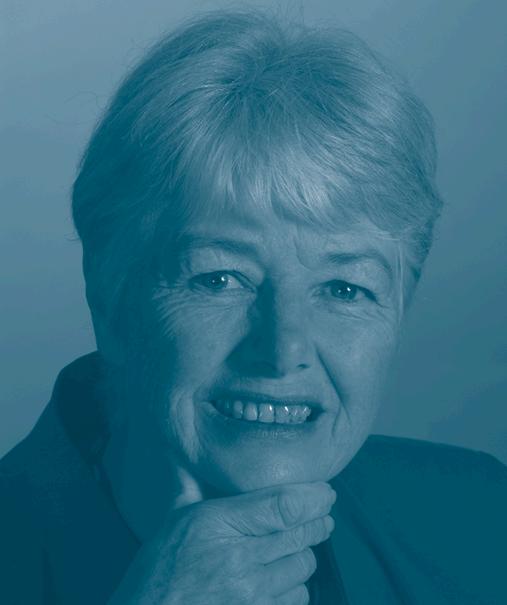
implemented changes to taxation and to the KiwiSaver retirement savings scheme, was passed through all stages in the House under urgency, without referral to a select committee in December.
Hon. Bill English (Minister of Finance) explained that “we are introducing this legislation in the context of a country that was already in recession…so

this legislation is part of a fiscal stimulus of around $7 billion over the next two years to put cash in people’s pockets”. However, Dr Russell Norman (Co-Leader—Green) thought that “if we were to put together a sensible economic stimulus package…it would be much better to invest in infrastructure than to have tax cuts”.
Hon. David Cunliffe (Labour) regretted there had been “no opportunity for affected New Zealanders to comment and no opportunity for the detail of the Bill to be tested”, but Mr Craig Foss (National) stated that “the core policy in the…Bill went before the public of New Zealand, and three or four weeks ago over one million New Zealanders voted for it”.
Regarding the changes to the tax rates and brackets and the introduction of an independent earner tax credit, Hon. Dr Michael Cullen (Labour) argued that “80 per cent of taxpayers do not gain
anything”. However, Mr John Boscawen (ACT) thought “the key issue…is to provide an incentive for people who want to work hard. When we have a high marginal tax rate...we are incentivising people not to work”. Te Ururoa Flavell (Maori Party) acknowledged the Bill “intensifies the earning gap between…low and highincome earners” but indicated “we will continue to work with the National Party…to deal with those who stand to miss out”.
Although Mr Chris Tremain (National) argued that lowering the default rate for contributions to KiwiSaver would allow “a lot of people who earn under the $40,000-ayear income level…to give themselves a chance to save”, Hon. Clayton Cosgrove (Labour) asked: “if National is trying to create greater participation, why has it not budgeted for that greater participation in its Budget documents and its plans?”
Mr David Bennett (National) responded to criticism from Ms Moana Mackey (Labour) that ending the research and development tax credit “puts New Zealand straight to the bottom of the OECD” by saying “tax credits…are not what the science community wants. The science community wants a strong, growing economy…these tax cuts are the first step in delivering it.”
Electricity (renewable preference) repeal bill
Another of the previous Labour government’s measures repealed by the new National government was the part of the Electricity Act 1992 that had made a criminal offence punishable by fine the connection of new thermal generation plant above 10 megawatts for which an exemption had not been granted — a measure known as
the “thermal ban”. According to Mr Brownlee, Minister of Energy and Resources, speaking in the first reading, “all the major electricity generators said they were opposed to it. However, the previous Minister remained wedded to the policy, and it became law with the passing of the emissions trading scheme Bill in September [2008]. The government does not expect the
repeal of the thermal ban to lead to new coal-fired power stations being built. It was not the situation before the ban came into force, nor will it be the situation after it is repealed”.
Hon. David Parker (Labour) spoke in opposition to the Bill calling it “bad legislation”, and referred to an issue he had talked about during debate on the Energy (Fuels, Levies, and
The Employment Relations Bill had its genesis in a Member’s Bill introduced in February 2006 in the name of Dr Wayne Mapp — the Employment Relations (Probationary Employment) Amendment Bill. This Bill was extensively debated and received 618 submissions at select committee. According to Hon. Kate Wilkinson, the Minister of Labour, the current Bill "addresses the concerns expressed during that consultation". She explained that the Bill “amends the Employment Relations Act 2000 to implement trial employment periods for new employees of small and medium-sized businesses…and to support government policy on KiwiSaver, which is being enacted through amendments to the KiwiSaver Act 2006”. The Bill passed through all stages under urgency on 11 and 12 December.
Labour opposition Members vehemently opposed the Bill, calling it “unnecessary” and “an outrage”, and questioned the need for it to pass under
urgency. Hon. Phil Goff, Leader of the Opposition, said that the Bill “will have a particularly negative effect on vulnerable New Zealanders”.
Hon. Jim Anderton of the Progressive Party stressed the importance of the Bill, given that “Around 700,000 people change their jobs every year, and two-thirds of them work for small businesses”.
A major concern was that employers would get away with unjustifiably dismissing employees in those first 90 days of employment, and employees would have no right of redress. Minister Wilkinson countered that “this Bill is not about taking away rights; it is about giving opportunities”.
The Maori Party opposed the Bill. Hone Harawira said it would negatively impact workers in New Zealand, “particularly Maori”. ACT Party Member Mr David Garrett, on the other hand, said that his party would support the Bill because “it will foster and promote employment”.
At Committee stage Labour Member Hon. Trevor Mallard introduced several amendments, none of which were agreed to.
References) Biofuel Obligation
Repeal Bill: “If this government has reached the view — as it says it has — that climate change is real, then it is incumbent on governments…to actually do something to reduce emissions. That is the only way to deal with climate change. We have to reduce emissions so that they do not get worse. But
this National government is willing to…abrogate its responsibilities. It is willing to see climate change emissions grow in electricity, because that is what this Bill will cause.”
However, Ms Fitzsimons remarked that “on the face of it, it does not matter very much that the government is repealing the renewable electricity
preference…because [it] has so many exemptions and loopholes in it that one could drive any power station through those loopholes and have it approved. I think the reason this Bill matters is the symbolism and the message it sends, which is that the government will burn more fossil fuel, it does not believe in renewable generation, and it
Education (national standards) amendment bill
The new National government honoured two of its pre-election promises when the Minister of Education, Hon. Anne Tolley, introduced and passed though all stages under urgency the Education (National Standards) Amendment Bill during the first week of the 49th Parliament in December 2008. In 2007 New Zealand’s Education Review Office had reported that despite the availability of assessment tools, 56 per cent of the schools it had reviewed were still not using worthwhile achievement data. The National-led government, which was “absolutely committed to raising education standards”, according to Minister Tolley, was determined therefore to implement an “external benchmark against which to measure student progress”, and thus improve national standards in literacy and numeracy.
The Minister promised wide-ranging consultation with the wider education sector before implementing the new standards in 2010, but opposition parties were swift to condemn the Bill as dangerous and unnecessary. New Labour MP Chris Hipkins claimed that “this Bill introduces national testing by any other name”, and the previous Labour Minister of Education, Hon. Chris Carter, said that “league tables will be an inevitable result if this legislation becomes law”. Many Members pointed to the reported failure of the U.S.’s No Child Left Behind Act and their own research to reinforce their conviction that assessing to national standards did not lift student achievement, and Green Member Ms Metiria Turei was particularly concerned about “the privatisation of education” and the Bill’s effect on children from low-income families and ethnic minorities.
The Bill also increased penalties for parents who failed to ensure that their children attended school regularly, in light of the claim that up to 30,000 children were absent from school on any one day. The Maori Party tried to amend the legislation to make the truancy issue a separate Bill, but Hon. Heather Roy, of National’s support party ACT and a new Associate Minister of Education, stated that “children who do not turn up for school will not learn”, and that “education is the key to our long-term prosperity as a country”.
thinks coal is sexy”. The Bill was passed on 18 December by 63 votes to 58.
Establishment of select committee
On 9 December, Mr Brownlee, as Leader of the House, moved the establishment of a special select committee to review the Emissions Trading Scheme: “I think that from the committee
Energy (fuels, levies, and references) biofuel obligation repeal bill
On 17 December Hon. Gerry Brownlee, Minister of Energy and Energy Resources, moved the third reading of the Energy (Fuels, Levies, and References) Biofuel Obligation Repeal Bill, which had the purpose of repealing a part of the Energy, Fuels, Levies, and References Act 1989 to remove the obligation to supply biofuels in substitution for fossil fuels — a measure brought in by the previous Labour government. According to Mr Brownlee, “hearing this debate, one would think this Bill was about shutting down the biofuels industry in New Zealand. That has to be the most hysterical reaction to this particular Bill that I could possibly imagine. I am staggered at the claim that the 20,000 litres of biofuel produced in New Zealand right now will not, apparently, be produced the moment this Bill passes its third reading. I do not believe that. I think that, in fact, the biofuels industry has a very bright future indeed. What I, my party, and others who support this Bill do not accept is that the only way New Zealanders will embrace biofuels is if the government insists they become the compulsory customers of certain companies inside New Zealand. That is not a reasonable way to progress a move that is designed to improve New Zealand’s carbon footprint”.
Mr Brownlee denied the opposition claim that “we are doing away with the option of producing standards for the sustainable production of biofuels. The work now being done by New Zealand government officials to develop those standards will continue, and those standards will be promulgated as soon as they are available”.
However, Hon. David Parker (Labour) said that “the detailed sustainability provisions have been taken out of [the substantive Act] by this Bill. An empowering provision in the Act allows sustainability regulations to be developed to ban the importation of unsustainable biofuels, but the provision is a power, not an obligation. The obligation arose in provisions that will be taken out by this very Bill”. Mr Parker added that “if biofuels were going to happen by themselves, they would have happened by now. It is easier for oil companies to not incorporate biofuels in their fuel stream, and that is why they do not.
The Bill passed by 62 votes to 59, with New Zealand Labour, the Greens, the Maori Party, Progressive, and United Future voting against.
will emerge a road map for where to from here, as negotiations continue throughout this year towards the decision in Copenhagen in December about the second [Kyoto Protocol] commitment period.”
Mr Parker opposed the motion, calling it a “smokescreen for yet more delay, covering up the fact that National — a decade after it signed the Kyoto Protocol, after nine years in opposition, after participation in the Finance and Expenditure Committee, and after access to all the officials through and outside of that process—does not know what to do. Mr Key said that his party, if elected as government, would proceed with an emissions trading scheme, and it would include agriculture. Yet what is it doing? It is setting up a select committee that will consider, among other things, whether we should have any pricing, whether we should just mitigate rather than do anything to reduce emissions, and whether we should have a
carbon tax. This is yet another flip-flop”.
Honouring the new President On 9 December 2008, Prime Minister Key moved that the House congratulate U.S. President Barack Obama and Vice-President Joe Biden on their election win, and that it “expresses its desire to work with the Obama administration to continue building on New Zealand’s already strong relationship with the U.S”.
All speakers supported the motion, but with differing emphases. Mr Key “welcomed the desire of the U.S. to join the P4 free-trade agreement”. ACT Party leader, Mr Rodney Hide also welcomed trade opportunities. Mr Goff, focused on trade and on the President’s approach to carbon emissions.
Mr Keith Locke of the Greens disagreed with assertions that “the response to the global downturn means just opening up channels for global trade and investment”, but was optimistic about cooperation on climate change issues.
Māori Party co-leader Hon. Dr
The Act which was passed on 28 October to amend education and other legislative provisions (Bill 88), introduces various measures with respect to school board governance.
The Act provides that the council of each school board, while having fewer commissioners, will include a greater number of parents’ representatives and, if the parents’ representatives and elected commissioners consider it necessary, co-opted members. Furthermore, the chair will in the future be elected by all the electors of the school board.
The Act also introduces new accountability rules. For example,
Pita Sharples focused on the new president’s effect on race relations, calling him a “transformational figure.” Hon.
pens
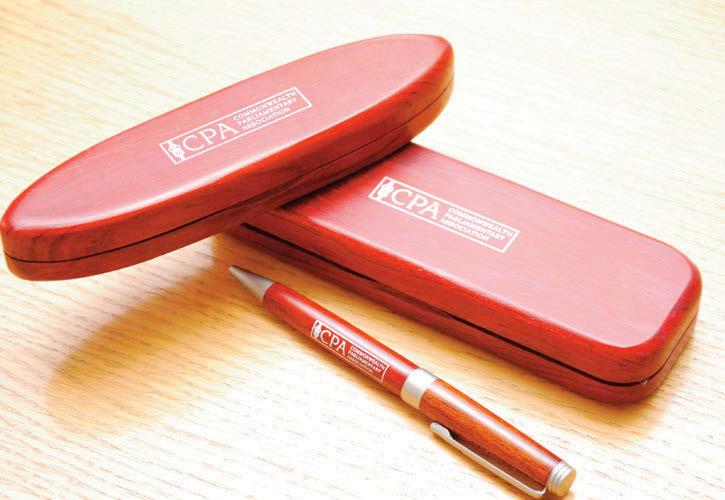
CPA souvenirs are available for sale to Members and officials of Commonwealth Parliaments and Legislatures by contacting the CPA Secretariat by email at: hq.sec@cpahq.org or by air mail at: Suite 700, 7 Millbank, London SW1P 3JA, United Kingdom
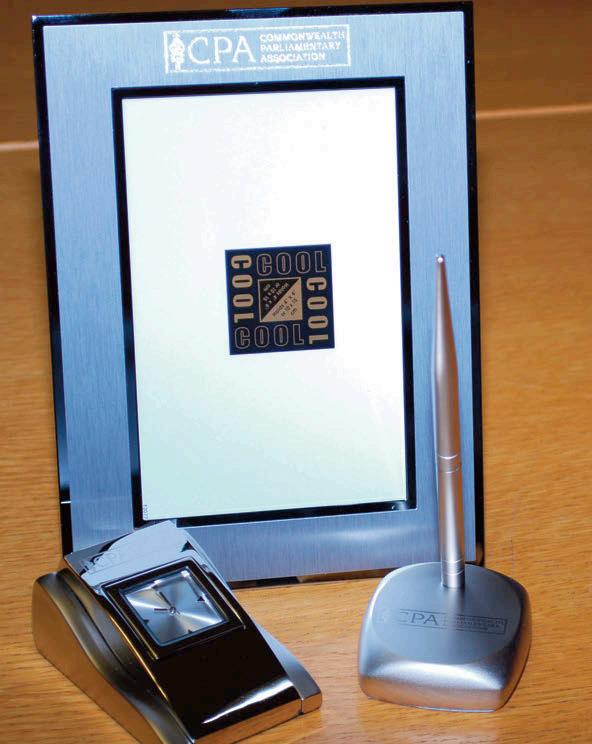
each school board will have to agree with the Minister of Education, Recreation and Sports on measures to achieve the goals and measurable objectives it has set through strategic planning. The school board will in turn make an agreement on similar measures with each of its educational institutions.
Bill 88 also clarifies the rules governing relations between school boards and governing boards. Lastly, school boards will be required – under the new provisions – to establish a procedure for examining complaints from students or parents.
Peter Dunne of United Future spoke in more general terms of New Zealand’s relationship with the U.S.

CPA silver-plated cardholder s
Silver-plated photoframe, clock and pen in holder
Mr Bélisle is the Clerk of the Senate of Canada.
It continues to be a pleasure to welcome an updated version of a major procedural work such as Odgers’ Australian Senate Practice The most recent edition, published in 2008, is the twelfth, and the sixth to be prepared under the editorship of Mr. Harry Evans, the current Clerk of the Senate. A major theme running through this important parliamentary authority is the Senate’s role as a check and control, holding the executive government to account. This function has been greatly strengthened by the federal composition of the Senate and the electoral system used to chose Senators. For most of the period since 1949, none of the major political parties has had a majority in the upper Chamber. The Senate typically includes members from a range of parties enjoying significant electoral support, but which are under- or unrepresented in the House of Representatives. With no single party exercising control at most times, Senators can be more reflective of the full range of public opinion. They have greater freedom of action, and are able to play a more effective role than members of the House of Representatives in the vigorous scrutiny of government. The Senate’s accountability role is illustrated throughout Odgers’ in
the analysis of how the institution and its committees undertake legislative work, review regulations, and deal with requests for documents that the government is reticent to reveal.
The preface provides an overview of some of the major developments since the eleventh edition. A major change—more in the nature of a return to the past— has been in committees. The Senate has reverted to the pre1994 structure of eight standing committees dealing with bills, studies, and estimates. These committees have been busy, notably in the field of legislative review, where they are increasingly active early in the process. Despite these changes in committee structure, Mr. Evans notes that the number of select committees has already shown a tendency to grow, continuing a long-standing trend which has provoked concerns in the past.
The Australian Parliament, like some of the state legislatures, has long been active and original in the field of parliamentary privilege. Several recent court judgments have vindicated the immunity of the Senate by supporting freedom of debate and inquiry. The issue of police enforced search warrants in the parliamentary precinct was addressed through a memorandum of understanding concluded in 2005 between the two Houses of Parliament, the Attorney-General, and the Minister for Justice and Customs. Any claim to privilege in relation to material seized will now be determined by the House concerned.
The review of public finance is of central importance in any legislative body. As Odgers’ explains, the Senate has had to deal with shifts in the government’s position on the content of appropriations bills. These changes, which relate to specific provisions of Australia’s Constitution, have the potential to be disruptive.
Not surprisingly, the Senate has expressed the view that the system in effect since 1965, which was generally beneficial to the institution, should be retained, but a resolution had not been reached at the time of publication. Also in the field of public finances, a recent court case has emphasized Parliament’s responsibility for making its intentions clear in order to ensure that public funds cannot be used in an improper or unexpected way.
In addition to these developments, the Senate has been adjusting to new laws governing the control of delegated legislation and has introduced procedural innovations to expand the range of matters Senators can raise in the Chamber when faced with delay from the government in answering questions. On a less positive note, the Senate has had to address continued difficulties in gaining access to government documents, not a problem unique to the Australian Senate.
As in the past, the latest version of Odger’s contains a range of references to court decisions. Of particular interest are the citations to US cases, a clear distinction from many other procedural works
from other Westminster-based systems. This is a definite bonus, and hints at the common challenges faced by parliamentary and congressional systems.
Odgers’ makes it clear how the Australian Senate functions and how it is being shaped by the political environment, constitutional provisions, and judicial decisions. Accompanying the text are almost 200 pages of useful appendixes with an easy to use index. The most obvious excluded documents, the Constitution and the Standing Orders, are readily available on the Senate’s internet site. That site also contains a wealth of other interesting, useful, and sometimes provocative information worth perusing, including an electronic version of Odgers’.
The material on the internet site of the Australian Senate speaks to that institution’s keen interest in and commitment to developing, documenting, and disseminating its expertise in the field of parliamentary procedure.
Odgers’ is an essential part of this undertaking, and the 12 editions in the past 55 years have established a detailed record of the Senate’s evolution that is kept continually up to date. The fact that the Senate makes this key resource available in both print and electronic format shows a willingness to engage with new technologies, while still respecting the preferences of those who favour print. The whole Senate, and Mr. Evans in particular, are to be commended for their devotion and diligence in such an ongoing major undertaking.
PATRON:
H.M. Queen Elizabeth II (Head of the Commonwealth)
VICE-PATRON:
Colonel Jakaya Mrisho Kikwete (President, Tanzania)
CPA Executive Committee
President:
Hon. Samuel John Sitta, MP (Speaker of the National Assembly, Tanzania)
Vice-President: Hon. Kenneth Marende, MP (Speaker of the National Assembly, Kenya)
Chairperson of the Executive Committee:
Hon. Mohd Shafie Apdal, MP (Minister of Rural and Regional Development, Malaysia)
Vice-Chairperson of the Executive Committee: Hon. Keith Flax, MHA (See Caribbean, Americas and Atlantic Region)
Treasurer: Hon. Hashim Abdul Halim, MLA (Speaker of the Legislative Assembly, West Begal, India
Hon. Abel Stronge, MP (Speaker of Parliament, Sierra Leone)
Hon. Fatoumata JahumpaCessay (Speaker of the National Assembly, The Gambia)
Hon. Mninwa Johannes Mahlangu, MP (Chairperson of the National Council of Provinces, South Africa)
Hon. Antonio Hama Thay, MP (Mozambique)
Hon. Marwick Khumalo, MP (Swaziland)
Hon. Job Yustino Ndugai, MP (Tanzania)
Hon. Ahmed Thasmeen Ali, MP (Deputy Speaker of the People’s Majlis, Maldives)
Hon. W.J.M. Lokubandara, MP (Speaker of Parliament, Sri Lanka)
Hon. Kiramatullah Khan, MP (Speaker of the Provincial Assembly, Northwest Frontier Province)
Sen. the Hon. Alan Ferguson (Deputy President of the Senate, Australia)
Hon. John Pandazopoulos, MP (Victoria)
Hon. Michael Polley, MHA (Speaker of the House of Assembly, Tasmania) (Acting)
BRITISH ISLANDS AND MEDITERRANEAN
Mr Nigel Evans, MP (United Kingdom) Mr Alun Cairns, AM (Wales)
Hon. Ernest M. Britto, MP (Minister for the Environment and Tourism, Gibraltar)
Mr Russ Hiebert, MP (Parliamentary Secretary to the Ministers of Intergovernmental Affairs and Western Economic Diversification, Canada)
Hon. Kathleen Casey, MLA (Speaker of the Legislative Assembly, Prince Edward Island)
Hon. George Hickes, MLA (Speaker of the Legislative Assembly, Manitoba)
CARIBBEAN, AMERICAS AND ATLANTIC
Hon. D. Giselle Isaac-Arrindell, MP (Speaker of the House of Representatives, Antigua and Barbuda)
Hon. Keith Flax, MHA (Deputy Speaker of the House of Assembly, British Virgin Islands)
Hon. Hari. N. Ramkarran, SCC, MP (Speaker of the National Assembly, Guyana)
INDIA
Hon. Somnath Chatterjee, MP (Speaker of the Lok Sabha, India)
Hon. Uday Narain Choudhary, MLA (Speaker of the Legislative Assembly, Bihar)
Hon. Tanka Bahadur Rai, MLA (Speaker of the Legislative Assembly, Assam)
PACIFIC
Ms Moana Mackey, MP (New Zealand)
Hon. Snyder Rini, MP (Minister for Finance and Treasury, Solomon Islands)
Hon. Dr Tetau Taitai, MP (Acting) Kiribati
SOUTH-EAST ASIA
Hon. Dato Zulhasnan Rafique, MP (Minister of Federal Territories, Malaysia)
Hon. Datuk Frankie Chong Yu
Chee, MLA (Deputy Speaker of the Legislative Assembly, Sabah)
Dr Mohamad Maliki Osman, MP (Singapore)
Ms Kashmala Tariq, MNA (Chairperson)
Dr Thomas Kashililah (Parliament of Tanzania)
ASIA
Mr Raja Muhammad Amin (Parliament of Pakistan)
Mr Andres Lomp (Parliament of the Commonwealth of Australia)
Mr Andrew Tuggey (Parliament of the United Kingdom)
CANADA
Mr Paul Belisle (Parliament of Canada)
CARIBBEAN, AMERICAS & ATLANTIC
Ms Jacqui Sampson (Parliament of Trinidad and Tobago)
Shri P D.T. Achary (Parliament of India)
Mr Rafael Gonzalez-Montero (Parliament of New Zealand) SOUTH=EAST ASIA
Mrs Roosme Hamzah (Parliament of Malaysia)
PRESIDENT
TBA (Tanzania)
CHAIRPERSON
Ms Kashmala Tariq, MNA (Pakistan)
DEPUTY CHAIRPERSON and Australia
Ms Angela D’Amore, MP (New South Wales)
Hon. Moggie Mbaakanyi, MP (Botswana)
ASIA
Hon. Ferial Ashraff, MP (Sri Lanka)
BRITISH ISLANDS AND MEDITERRANEAN
Ms Kate Hoey, MP (United Kingdom)
Ms Maria Minna, MP (Canada)
CARIBBEAN, AMERICAS AND ATLANTIC
Hon. Marjorie Morton, MHA (President of the Nevis Island Assembly, St Kitts and Nevis)
Commonwealth Parliamentary Association Secretariat
Suite 700, Westminster House, 7 Millbank, London SW1P 3JA, United Kingdom
Tel: (+44-20) 7799-1460
Fax: (+44-20) 7222-6073
Email: hq.sec@cpahq.org
Secretary-General:
Dr William F. Shija
Director of Communications and Research:
Mr Andrew Imlach
Director of Administration and Finance:
Mr David Broom
Hon. Km. Selja, MP (Minister of State of the Ministry of Housing and Urban Poverty Alleviation, India)
PACIFIC
Hon. Va’aiga Tukuitoga, MP (Niue)
SOUTH-EAST ASIA
Ms Irene Ng, MP (Singapore)
ALDERNEY (www.alderney.gov.gg)
President:
Sir Norman Browse (President of the States)
Secretary and Offices: Mrs Sarah Kelly (Clerk of the States)
The Court of Alderney, Queen Elizabeth II Street, Alderney GY9 3TB
Tel: (+44) 1481-822-817
Fax: (+44) 1481-823-709
Email: alderneycourt@cwgsy.net
ANGUILLA (www.anguilla.gov.ai)
President:
Hon. David Anthony Carty, MLA (Speaker of the House of Assembly)
Vice-President:
Ms Keesha C. Webster, MLA (Deputy Speaker of the House of Assembly)
Secretary and Offices: Mrs Adella Richardson (Clerk to the House of Assembly)
The Valley, Anguilla
Tel: (+1-264) 497-5081; 497-3748
Fax: (+1-264) 498-2210
ANTIGUA AND BARBUDA (www.ab.gov.ag) (President)
Sen. the Hon. Hazelyn MasonFrancis, MBE (President of the Senate)
Secretary and Offices: Mrs Thelma Thompson (Clerk to Parliament)
Antigua and Barbuda Department of Legislature, Queen Elizabeth Highway, St Johns, Antigua and Barbuda
Tel: (+1-268) 463-4822
Fax: (+1-268) 462-6724
Email: parlment@candw.ag theltho@yahoo.com
AUSTRALIA (www.aph.gov.au)
Joint Presidents:
Sen. the Hon. John Hogg (President of the Senate)
Hon. Harry Jenkins, MP (Speaker of the House of Representatives)
Vice-Presidents:
Hon. Kevin Rudd, MP (Prime Minister)
Hon. Malcolm Turnbull, MP (Leader of the Opposition)
Secretary and Offices:
Mr Ian Harris, AO (Clerk of the House)
c/o Parliamentary Relations Office Parliament House, Canberra, A.C.T.
2600
Tel: (+61-2) 6277 4340
Fax: (+61-2) 6277 2000
Email: PRO@aph.gov.au
STATE AND TERRITORIAL PARLIAMENTS OF AUSTRALIA
AUSTRALIAN CAPITAL TERRITORY (www.parliament.act.gov.au)
President:
Mr Wayne Berry, MLA (Speaker of the Legislative Assembly)
Vice-Presidents:
Mr Jon Stanhope, MLA (Chief Minister)
Mr Bill Stefaniak, MLA (Leader of the Opposition)
Secretary and Offices:
Mr Tom Duncan (Clerk of the Legislative Assembly)
A.C.T. Legislative Assembly, Civic Square, London Circuit, Canberra
A.C.T. 2600, Australia.
Tel: (+612) 6205-0191
Fax: (+612) 6205-3109
Email: tom.duncan@parliament.act.gov.au
NEW SOUTH WALES (Australia) (www.parliament.nsw.gov.au)
Joint Presidents:
Hon. Peter Primrose, MLC (President of the Legislative Council)
Hon. Richard Torbay, MP (President of the Legislative Assembly)
Vice-Presidents:
Hon: Nathan Rees, MP
(President of the Legislative Council)
Mr Barry O’Farrell, MP (Leader of the Opposition)
Secretary and Offices: Mr Russell D. Grove, PSM (Clerk of the Legislative Assembly)
Parliament House, Sydney, 2000, New South Wales, Australia
Tel: (61-2) 9230 2222
Fax: (61-2) 9230 2333/2812
Email: russell.grove@parliament.nsw.gov.au
NORFOLK ISLAND (Australia) (www.norfolk.gov.nf)
President:
Hon. Lisle Denis Snell, MLA (Speaker)
Vice-President:
Mr Timothy John Sheridan, MLA (Deputy Speaker)
Secretary and Offices:
Ms Robin Eleanor Adams, JP (Clerk to the Legislative Assembly) Old Military Barracks, Kingston, Norfolk Island 2899, via Australia, South Pacific
Tel: (+672-3) 22003
Fax: (+672-3) 22624
Email: clerk@assembly.gov.nf
NORTHERN TERRITORY (Australia) (www.nt.gov.au/lant)
Vice-Presidents: Hon. Paul Henderson, MLA (Chief Minister)
Hon. Terry Mills, MLA (Leader of the Opposition)
Secretary and Offices: Mr Ian McNeill (Clerk of the Legislative Assembly)
G.P.O. Box 3721, Darwin NT 0801, Australia
Tel: (+61-8) 8946-1450
Fax: (+61-8) 8941-2567
Email: ian.mcneill@nt.gov.au
QUEENSLAND (Australia) (www.parliament.qld.gov.au)
President: Hon. Mike Reynolds, MP
(Speaker of the Legislative Assembly)
Vice-Presidents:
Hon. Anna Bligh, MP (Premier)
Mr Lawrence Springborg MP (Leader of the Opposition)
Secretary and Offices: Mr Neil Laurie (Clerk of the Parliament)
Ms Leanne Clare (Assistant Honorary Secretary) Parliament House, Brisbane 4000, Queensland, Australia
Tel: (+61-7) 340 67185
Fax: (+61-7) 322 17475
Email: neil.laurie@parliament.qld.gov.au
SOUTH AUSTRALIA (Australia) (www.parliament.sa.gov.au)
Joint Presidents:
Hon. Jack Snelling, MP (Speaker of the Legislative Assembly)
Hon. Bob Sneath, MLC (President of the Legislative Council)
Vice-Presidents:
Hon. Mike Rann, MP (Premier)
Hon. Martin Hamilton-Smith, MP (Leader of the Opposition)
Secretary and Offices: Mrs Jan Davis (Clerk of the Legislative Council) Parliament House, Adelaide 5000, Australia.
Tel.: (+61-8) 8237-9301
Fax: (+61-8) 8211 7658
Email:
jan.davis@parliament.sa.gov.au
TASMANIA (Australia) (www.parliament.tas.gov.au)
President:
Hon. Paul Harriss, MLC
Senior Vice-President:
Hon. Jim Cox, MHA (Minister for Infrastructure)
Junior Vice-President: Hon. Sue Napier, MHA
Secretary and Offices: Mr Peter Bennison
(Deputy Clerk of the House of Assembly)
Parliament House, Hobart, Tasmania 7000, Australia. Tel: (+61-3) 6233 2211
Fax: (+61-3) 6233 6266
Email: peter.bennison@parliament.tas.gov.au
VICTORIA (Australia) (www.parliament.wa.gov.au)
Joint Presidents:
Hon. Grant Woodhams, MLA (President of the Legislative Council)
Hon. Jenny M. Lindell, MP (Speaker of the Legislative Assembly)
Vice-Presidents:
Hon. John Brumby, MP (Premier)
Mr Ted Baillieu, MP (Leader of the Opposition in the Legislative Assembly)
Mr John Lenders, MLC (Leader of the Government in the Legislative Council)
Joint Secretaries and Offices: Mr Ray W. Purdey (Clerk of the Parliaments and Clerk of the Legislative Assembly)
Mr Wayne R. Tunnecliffe (Clerk of the Legislative Council) Parliament House, Melbourne,Victoria 3002, Australia. Tel: (+61-3) 9651 8911, 9651 8550
Fax: (+61-3) 9650 4279
Email: cpabranch@parliament.vic.gov.au
WESTERN AUSTRALIA (www.parliament.wa.gov.au)
Joint Presidents:
Hon. Nick Griffiths (President of the Legislative Council)
Hon. Grant Woodhams, MLA (Speaker of the Legislative Assembly)
Vice-Presidents:
Hon. Eric Ripper, MLA
Hon. Paul Omodei, MLA
Hon. Kim Chance, MLC
Hon. Norman Moore, MLC
Honorary Secretary and Offices:
Mr Peter McHugh (Honorary Secretary/Treasurer)
Mr Malcolm Peacock (Assistant Honorary Secretary/Clerk of the Legislative Council and Clerk of Parliament)
Parliament House, Harvest Terrace, Perth 6000, Western Australia, Australia
Tel.: (+61-8) 9222-7214
Fax: (+61-8) 9222-7809
Email: cpawa@parliament.wa.gov.au
THE BAHAMAS (www.bahamas.gov.bs)
Joint Presidents:
Sen. the Hon. Lynn Holowesko (President of the Senate)
Hon. Alvin Smith, MP (Speaker of the House of Assembly)
Vice-Presidents:
Rt Hon. Hubert Alexander Ingraham, MP (Prime Minister)
Hon. Perry G Christie, MP (Leader of the Opposition) Secretary and Offices:
Mr MauriceTynes (Clerk to the Legislature) House of Assembly, P.O. Box N3003, Nassau, The Bahamas.
Tel: (+1-242-32) 22041
Fax: (+1-242-32) 21118
Email: houseofassembly@bahamas.gov.bs
BANGLADESH Branch in abeyance
BARBADOS (www.barbadosparliament.com)
Joint Presidents:
Sen. the Hon. Branford Taitt (President of the Senate)
Hon. Michael Carrington, MP (Speaker of the House of Assembly)
Vice-Presidents:
Hon. David J.H. Thompson, MP (Prime Minister)
Hon. Mia Mottley, MP (Leader of the Opposition)
Joint Secretaries and Offices:
Mr Pedro E. Eastmond (Acting Clerk of Parliament)
Mr Nigel R. Jones (Deputy Clerk of Parliament)
Parliament Buildings, Bridgetown, Barbados.
Tel: (+1-246) 4263717, 4263712
Fax: (+1-246) 4364143
Email: parliamentbarbados@caribsurf. com
BELIZE
(www.governmentofbelize.gov.bz)
Joint Presidents:
Hon. Andrea Gill (President of the Senate)
Hon. Emil Arguelles, MHR (Speaker of the House of Representatives)
Vice-President:
Hon. John Briceño (Leader of the Opposition)
Secretary and Offices: Mr Herbert C. Panton (Clerk of the National Assembly) PO Box 139, Belmopan, Cayo District, Belize, Central America.
Tel.: (+501-8) 222141, 222142, 222144
Fax: (+501-8) 223889
Email: clerkna@bna.gov.bz
BERMUDA (www.gov.bm)
Joint Presidents:
Sen. Mrs Carol A.M. Bassett, JP (President of the Senate)
Hon. Stanley Lowe, OBE, JP, MP (Speaker of the House of Assembly)
Vice-Presidents:
Hon. Ewart Brown, JP, MP (Premier)
Mr H. Kim E. Swan, JP, MP (Leader of the Opposition)
Secretary and Offices: Ms Shernette Wolffe (Clerk to the Legislature) Sessions House, 21 Parliament Street, Hamilton HM12, Bermuda.
Tel.: (+1-441-2) 927408
Fax: (+1-441-2) 922006
Email: smwolffe@gov.bm
BOTSWANA (www.gov.bw)
President:
Hon. Patrick Balopi, MP (Speaker of the National Assembly)
Vice-Presidents:
H.E. Dr Festus G. Mogae, MP (President of the Republic)
Hon. Otsweletse Moupo, MP (Leader of the Opposition)
Secretary and Offices: Mr Ernest Sipho Mpofu (Clerk of the National Assembly) P.O. Box 240,Gaborone, Botswana
Tel.: (+267) 361-6800
Fax: (+267) 391-3103, 3914376
Email: parliament@gov.bw
BRITISH VIRGIN ISLANDS (www.dpu.gov.vg)
President: Hon. Roy Harrigan, MHA (Speaker of the House of Assembly)
Vice-Presidents: Hon. Ralph T. O'Neal, OBE, MHA (Branch Vice-President)
Dr the Hon. D. Orlando Smith OBE, MHA (Leader of the Opposition) Secretary and Offices: Ms Phyllis Evans (Clerk of the House of Assembly) Office of the Clerk, Richard G. Stoutt Building, Road Town, Tortola, British Virgin Islands
Tel.: (+1-284) 494-4757/8 Fax: (+1-284) 494-4544
E-mail: almccall@gov.vg
CAMEROON (www.assemblee-nationale.cm)
President:
Hon. Djibril Cavaye Yeguie, MP (Speaker of the National Assembly)
Vice-president: Hon. Joseph Mbah-Ndam, MP (Leader of the Opposition)
Secretary and Offices: Mr Aatsa Atogho
(Branch Secretary)
National Assembly, Yaounde, Cameroon.
Tel: (+237) 7771-0077, 77777247
Fax: (+237) 2222-3869, 22220979
Email: ancm@cm.refer.org
PARLIAMENT OF CANADA (www.parl.gc.ca)
Joint Presidents:
Sen. the Hon. Noel Kinsella (Speaker of the Senate)
Hon. Peter Milliken, MP (Speaker of the House of Commons)
Vice-Presidents:
Rt Hon. Stephen Harper, PC, MP (Prime Minister)
Mr Bill Graham, MP (Acting Leader of the Opposition)
Chair:
Mr Russ Hiebert, MP
Executive Secretary and Offices:
Ms Carol Chafe
5th Floor, 131 Queen Street, Houses of Parliament, Ottawa, Ontario, Canada K1A 0A6
Tel.: (+1-613) 993-0330
Fax: (+1-613) 995-0212
Email: cpa@parl.gc.ca
PROVINCIAL AND TERRITORIAL PARLIAMENTS OF CANADA
ALBERTA (Canada) (www.assembly.ab.ca)
President:
Hon. Ken Kowalski, MLA (Speaker of the Legislative Assembly)
Vice-Presidents:
Hon. Ed Stelmach (Premier)
Dr. David Swann
(Leader of the Official Opposition)
Secretary and Offices:
Dr W.J. David McNeil
(Clerk of the Legislative Assembly) 801 Legislature Annex, 9718-107 Street, Edmonton, Alberta, Canada T5K 1E4.
Tel: (+1-780) 427-2478
Fax: (+1-780) 427-5688 (Clerk’s Office) or (+1-780) 422-9553
(Speaker’s Office)
Email: david.mcneil@assembly.ab.ca
BRITISH COLUMBIA (Canada) (www.leg.bc.ca)
President:
Hon. Bill Barisoff, MLA (Speaker of the Legislative Assembly)
Vice-Presidents:
Hon. Gordon Campbell, MLA (Premier)
Ms Carole James, MLA (Leader of the Opposition)
Honorary Secretary and Offices:
Mr E. George MacMinn, QC (Clerk of the Legislative Assembly) Room 221, Parliament Buildings,Victoria, British Columbia, Canada V8V lX4.
Tel: (+ 1-250) 387 3785
Fax: (+1-250) 387 0942
Email: clerkhouse@leg.bc.ca
MANITOBA (Canada) (www.gov.mb.ca/legislature)
President:
Hon. George Hickes, MLA (Speaker of the Legislative Assembly)
Vice-Presidents:
Hon. Gary Doer, MLA (Premier)
Mr Hugh McFadyen, MLA (Leader of the Opposition)
Secretary and Offices: Ms Patricia Chaychuk (Clerk of the Legislative Assembly) 237 Legislative Building, 450 Broadway, Winnipeg, Manitoba, Canada R3C 0V8.
Tel: (+1 204) 945 3636
Fax: (+1 204) 948 2507
Email: patricia.chaychuk@leg.gov.mb.ca
NEW BRUNSWICK (Canada) (www.gov.nb.ca/legis/)
President:
Hon. Michael Malley, MLA (Speaker of the Legislative Assembly)
Vice-President:
Hon. Bernard Lord, MLA (Premier)
Secretary and Offices: Mrs Loredana Catalli Sonier (Clerk of the Legislative Assembly) Parliament Buildings, P.O. Box 6000, Fredericton, New Brunswick, Canada E3B 5H1.
Tel: (+1-506) 453 2506
Fax: (+1-506) 453 7154
Email: l.catalli.sonier@gnb.ca
NEWFOUNDLAND AND LABRADOR (Canada) (www.gov.nl.ca)
President:
Hon. Harvey Hodder, MHA (Speaker of the House of Assembly)
Vice-Presidents: Hon. Danny Willams, QC, MHA (Premier)
Ms Yvonne Jones, MHA (Leader of the Opposition)
Secretary and Offices: Mr William MacKenzie (Clerk of the House of Assembly) House of Assembly, Confederation Building, P.O. Box 8700, St John's, Newfoundland and Labrador, Canada A1B 4J6.
Tel.: (+1-709) 729-3405 / 7292579
Fax: (+1-709) 729-4820
Email: williammackenzie@gov.nl.ca
NORTHWEST TERRITORIES (Canada) (www.assembly.gov.nt.ca)
President:
Hon. Paul Delorey, MLA (Speaker of the Legislative Assembly)
Secretary and Offices: Mr Tim Mercer (Clerk of the Legislative Assembly) Legislative Assembly of the NWT, P.O. Box 1320,Yellowknife, Northwest Territories, Canada X1A 2L9.
Tel: (+1-867) 669 2299
Fax: (+1-867) 873 0432
Email: tim_mercer@gov.nt.ca
NOVA SCOTIA (Canada) (www.gov.ns.ca)
President: Hon. Cecil Clarke, MLA (Speaker of the House of Assembly)
Vice-President:
Hon. Rodney MacDonald, MLA (Premier)
Secretary and Offices: Mr Roderick K. MacArthur (Clerk of the House of Assembly) P.O. Box 1617, Province House, Halifax, Nova Scotia, Canada B3J 2Y3.
Tel: (+1-902) 424 5978
Fax: (+1-902) 424 0632
Email: macartrk@gov.ns.ca
NUNAVUT (Canada) (www.assembly.nu.ca)
President: Hon. James Arreak (Speaker of the Legislative Assembly)
Secretary and Offices: Mr John Quirke (Clerk of the Assembly) PO Box 1200, Iqaluit, Nunavut, X0A 0H0, Canada.
Tel.: (+1-867) 975-5100
Fax: (+1-867) 975-5191
Email: jquirke@assembly.nu.ca
ONTARIO (Canada) (www.ontla.on.ca)
President: Hon. Steve Peters, MPP (Speaker of the Legislative Assembly) Vice-President:
Hon. Dalton McGuinty, MPP (Premier)
Secretary and Offices: Mrs Deborah Deller (Clerk of the Legislative Assembly) Room 104, Main Legislative Building, Queen’s Park, Toronto, Ontario, Canada M7A 1A2.
Tel.: (+1-416) 325-7341
Fax: (+1-416) 325-7344
Email: clerks_office@ontla.ola.org
PRINCE EDWARD ISLAND (Canada) (www.assembly.pe.ca)
President:
Hon. Kathleen Casey, MLA (Speaker of the Legislative Assembly)
Vice-Presidents:
Hon. Robert Ghiz, MLA (Premier)
Hon. Olive Crane, MLA (Leader of the Opposition)
Secretary and Offices:
Mr Charles H. MacKay (Clerk of the Legislative Assembly) P.O. Box 2000, Charlottetown, Prince Edward Island, Canada C1A 7N8. Tel: (+1-902) 368 5970
Fax: (+1-902) 368 5175
Email: chmackay@gov.pe.ca
QUEBEC (Canada) (www.assnat.qc.ca)
Joint Presidents:
Mr. Yvon Vallières, MNA (President of the National Assembly)
Ms Fatima Houda-Pepin, MNA (Vice-President of the National Assembly)
Secretary and Offices: Mr Richard Daignault Assemblée nationale du Québec, Direction des relations interparlementaires et internationales, Edifice JeanAntoine-Panet, 1020 rue des Parlementaires, 6e étage, Bureau 6.65, Québec G1A 1A3, Canada Tel: (+1-418) 643 7391
Fax: (+1-418) 643 1865 Email: rdaignault@assnat.qc.ca
SASKATCHEWAN (Canada) (www.legassembly.sk.ca)
President:
Hon. Don Toth, MLA (Speaker of the Legislative Assembly)
Vice-President: Mr Greg Brkich (Deputy Speaker)
Secretary and Offices: Mr Gregory Putz (Clerk of the Legislative Assembly) 239 Legislative Building, Regina, Saskatchewan, Canada S4S OB3.
Tel: (+1-306) 787-2335
Fax: (+1-306) 787 0408
Email: cpa@legassembly.sk.ca
YUKON (Canada) (www.legassembly.gov.yk.ca)
Joint Presidents:
Hon. Ted Staffen, MLA (Speaker of the Legislative Assembly) Vice-Presidents:
Hon. Dennis Fentie, MLA (Premier)
Vice-President:
Hon. Arthur Mitchell, MLA (Leader of the Official Opposition)
Secretary and Offices: Dr Floyd McCormick
(Clerk of the Legislative Assembly)
Yukon Legislative Assembly, Box 2703, Whitehorse, Yukon, Canada Y1A 2C6.
Tel: (+1-867) 667 5498
Fax: (+1-867) 393 6280
Email: clerk@gov.yk.ca
CAYMAN ISLANDS (www.gov.ky)
Joint Presidents: Hon. Edna Moyle, MLA (Speaker of the Legislative Assembly)
Hon. D. Kurt Tibbetts, JP, MLA (Leader of the Government) Vice-President:
Hon. W. McKeeva Bush, OBE, JP, MLA (Leader of the Opposition)
Secretary and Offices: Ms Wendy Lauer (Clerk of the Legislative Assembly)
P.O. Box 890 GT, Grand Cayman, Cayman Islands.
Tel: (+1-345) 949-4236/8
Fax: (+1-345) 949-9514
Email: wendy.lauer@gov.ky
COOK ISLANDS
(www.cook-islands.gov.ck)
President:
Hon. Norman George, MP (Speaker of Parliament)
Vice-President: Hon. Jim Marurai, MP (Prime Minister)
Secretary and Offices: Mr Nga Valoa (Clerk of Parliament)
Office of the Legislative Service, Parliament of the Cook Islands,
P.O. Box 13, Rarotonga, Cook Islands.
Tel: (+682) 26500, 26507
Fax: (+682) 21260
Email: nvaloa@oyster.net.ck nvaloa@parliament.gov.ck
CYPRUS
(www.parliament.cy)
President:
H.E. Mr Marios Karoyian, MP (President of the House of Representatives)
Vice-Presidents:
Mr Aristophanis Georgiou, MP
Mr Christos Pourgourides, MP
Mr Sofocles Fittis, MP
Dr Eleni Theocharous, MP
Secretary and Offices: Mr Socrates Socratous (Secretary-General of the House of Representatives)
House of Representatives, Homer Ave., 1402 Nicosia, Cyprus.
Tel.: (+357-22) 407-304, 407-310
Fax: (+357-22) 668-611
Email: international-relations@ parliament.cy
DOMINICA
(www.dominica.gov.dm)
President:
Hon. Alix Boyd Knights, MHA (Speaker of the House of Assembly)
Vice-President:
Hon. Roosevelt Skerrit, MHA (Prime Minister)
Hon. Ron Green (Leader of the Opposition)
Secretary and Offices: Mrs Deirdre Jules (Acting Clerk of the House of Assembly)
House of Assembly, Victoria Street, Roseau, Dominica, West Indies. Tel: (+1-767-44) 82401 Ext. 3102, 3291
Fax: (+1-767-44) 98353
Email: houseofassembly@cwdom.dm
FALKLAND ISLANDS (www.falklands.gov.fk/legco)
President:
Hon. Lewis Clifton, MLC (Speaker of the Legislative Council)
Secretary and Offices: Ms Claudette Anderson-Prior, MBE (Clerk of Councils)
Gilbert House, Stanley, Falkland Islands.
Tel: (+500) 27451
Fax: (+500) 27456
Email: canderson@sec.gov.fk
FIJI ISLANDS
Branch in abeyance
GAMBIA (www.gambia.gm)
President: Hon. Fatoumata JahumpaCeesay, MP (Speaker of the House of Representatives)
Secretary and Offices: Mr Momodou Sise (Acting Clerk of the House of Representatives)
Legislative Department, Parliament Buildings, Independence Drive, Banjul, The Gambia.
Tel.: (+220) 422-8305, 4226643, 422-2352
Fax: (+220) 422-5123
Email: assembly.clerk@yahoo.co.uk
GHANA (www.parliament.gh)
President:
Rt Hon. Ebenezer Begyina Sekyi Hughes, MP (Speaker of Parliament)
Secretary and Offices: Mr Emmanuel Anyimadu (Branch Secretary)
Parliament House, Victoriaborg, Accra, Ghana.
Tel.: (+233) 21-664-042, 21-665957
Fax: (+233) 21-662-084
Email: clerk@parliament.gh
GIBRALTAR (www.gibraltar.gov.gi)
President: Hon. Haresh K. Budhrani, QC, MP
(Speaker of Parliament)
Vice-President:
Hon. Peter Caruana, QC, MP (Chief Minister)
Secretary and Offices: Mr Melvyn L. Farrell, RD (Clerk to Parliament)
Parliament, 156 Main St, Gibraltar.
Tel.: (+350) 200-78420, 20074186
Fax: (+350) 200-42849
Email: parliament@gibtelecom.net
GRENADA (www.gov.gd)
Joint Presidents:
Sen. the Hon. Joan Purcell (President of the Senate)
Hon. George McGuire, MP (Speaker of the House of Representatives)
Vice-Presidents:
Dr the Hon. Keith Mitchell, MP (Leader of the Opposition)
Hon. Tillman Thomas, MP (Prime Minister)
Secretary and Offices:
Mr Adrian C. A. Hayes (Clerk of Parliament)
Houses of Parliament, P.O. Box 315, Church Street, St George's, Grenada, West Indies.
Tel.: (+1-473) 440-2090, 4403456
Fax: (+l-473) 440-4138
Email: adrian.hayes@gov.gd
GUERNSEY (www.gov.gg)
President:
Mr Geoffrey R. Rowland (Bailiff of Guernsey and President of the States)
Vice-Presidents:
Mr Richard J.Collas (Deputy Bailiff of Guernsey and Deputy President of the States)
Dep. Michael Torode (Chief Minister)
Secretary and Offices: Mr Kenneth H. Tough (H.M. Greffier)
Greffe, Royal Court House, Guernsey, Channel Islands, GYI 2PB.
Tel: (+44-1481) 725277
Fax: (+44-1481) 715097
Email: hm.greffier@gov.gg
GUYANA
(www.parliament.gov.gy)
President:
Hon. Hari N. Ramkarran, MP (Speaker of the National Assembly)
Vice-Presidents:
Hon. Samuel A. A. Hinds, MP (Prime Minister)
Hon. Robert Corbin, MP (Acting Leader of the Opposition)
Secretary and Offices: Mr Sherlock Isaacs (Clerk of the National Assembly)
Parliament of Guyana, Parliament Office, Public Buildings, Brickdam, Georgetown, Guyana.
Tel: (+592) 226-1465, 226-8456
Fax: (+592) 225 1357
(Parliament Office)
Email: parlib@guyana.net.gy
INDIA
(www.parliamentofindia.nic.in)
President: Hon. Somnath Chatterjee, MP (Speaker of the Lok Sabha)
Vice-Presidents:
Hon. K. Rahman Khan, MP (Deputy Chairman of the Rajya Sabha)
Shri Charnjit Singh Atwal, MP (Deputy Speaker of the Lok Sabha)
Secretary and Offices:
Shri P.D.T Achary (Secretary-General of the Lok Sabha)
Room 18, Parliament House, New Delhi 110 001, India.
Tel.: (+91-11) 2301-7465, 23034255, 2303-4567
Room 103, Parliament House
Annexe, New Delhi 110 001, India.
Tel.: (+91-11) 2301-6987, 23034141
Fax: (+91-11) 2301-7465, 23015518
Email: cpaindia@sansad.nic.in
ANDHRA PRADESH (India) (www.nic.in/aplegis)
Joint Presidents: Hon. Kethireddy Suresh Reddy, MLA (Speaker of the Legislative Assembly)
Hon. Dr A Chakrapani, MLC (Chairman of the Legislative Council)
Vice-President:
Hon. Rajasekhara Reddy, MLA (Chief Minister)
Secretary and Offices: Sri K. Tuljanand Singh (Secretary to the Legislature)
Andhra Pradesh Legislative Assembly, Public Gardens, Hyderabad 500 004, Andhra Pradesh, India.
Tel: (+91-40) 2323-2072
Fax: (+91-40) 2321-0408
Email: seclegis@ap.nic.in
ARUNACHAL PRADESH (India) (www.arunachalpradesh.nic.in)
President:
Hon. Setong Sena, MLA (Speaker of the Legislative Assembly)
Secretary and Offices: Shri C.P. Mansai (Secretary of the Legislative Assembly)
Naharlagun-791110, Arunachal Pradesh, India.
Tel: (+91-360) 244-346
Fax: (+91-360) 244-305
ASSAM (India) (www.assamassembly.nic.in)
President:
Hon. Tanka Bahadur Rai, MLA (Speaker of the Legislative Assembly)
Vice-President: Hon. Tarun Gogoi, MLA (Chief Minister and Leader of the House)
Secretary and Offices: Shri Gauranga Prasad Das (Secretary of the Legislative Assembly)
Dispur, Guwahati, 781006, Assam, India.
Tel.: (+91-361) 261-1113, 2261766
Fax: (+91-361) 226-2225
Email: assamlegislative@sify.com
BIHAR (India) (www.bihar.nic.in)
President: Hon. Uday Narayan Choudhary, MLA
(Speaker of the Legislative Assembly)
Vice-Presidents:
Prof. Arun Kumar, MLC (Chairman of the Legislative Council)
Hon. Nitish Kumar, MLC (Chief Minister)
Secretary and Offices: Shri Surendra Prasad Sharma (Secretary of the Legislative Assembly)
Bihar Legislative Assembly Secretariat, Patna 800015, Bihar, India.
Tel.: (+91-612) 222-3840
Fax: (+91-612) 223-2212
CHHATTISGARH (India) (www.cgvidhansabha.gov.in)
President: Hon. Shri Dharam Lal Kaushik (Speaker)
Secretary and Offices: Shri Devendra Verma (Clerk to Parliament)
Chhattisgarh Legislative Assembly, Baloda Bazar Road, Raipur 492 005, India
Tel.: (+91-771) 228-3615, 2283616
Fax: (+91-771) 228-3615, 2283788
Email: secycgvs@rediffmail.com
DELHI (India) (www.delhigovt.nic.in)
President:
Hon. Ch. Prem Singh MLA (Speaker of the Legislative Assembly)
Vice-President: Smt. Kiran Choudhary
(Deputy Speaker of the Legislative Assembly)
Secretary and Offices: Shri Siddarath Rao
(Secretary of the Legislative Assembly)
Delhi Legislative Assembly, Old Secretariat, Delhi-110054, India.
Tel.: (+91-11) 2389-0007, 23890109
Fax: (+91-11) 2389-0128
GOA (India) (www.goagovt.nic.in)
President:
Hon. Pratapsingh Rane, MLA (Speaker of the Legislative Assembly)
Vice-President:
Shri Mauvin Godinho, MLA (Deputy Speaker of the Legislative Assembly)
Secretary and Offices: Shri T.N. Dhruva Kumar (Secretary of the Legislative Assembly)
Goa Legislative Assembly Secretariat, Porvorim, Goa 403521, India.
Tel.: (+91-832) 241-0915, 2410917
Fax: (+91-832) 241-1054, 2411024, 241-1066
Email: goaassembly@dataone.in
GUJARAT (India) (www.gujaratindia.com)
President:
Hon. Ashok Bhatt, MLA (Speaker of the Legislative Assembly)
Vice-President:
Hon. Narendra D. Modi, MLA (Chief Minister)
Hon. Shaktisinhji H. Gohil, MLA (Leader of the Opposition)
Secretary and Offices: Shri D.M. Patel (Secretary of the Legislature Secretariat)
Legislature Secretariat, Vitthalbhai Patel Bhavan, Gandhinagar 382 010, Gujarat, India.
Tel.: (+91-79) 2322-0998; 23253076
Fax: (+91-79) 2322-0902
Email: assembly@gujarat.gov.in
HARYANA (India) (http://haryana.gov.in)
President:
Hon. Dr Raghuvir Singh Kadian, MLA
(Speaker of the Legislative Assembly)
Secretary and Offices: Shri Sumit Kumar (Secretary of the Legislative Assembly)
Haryana Legislative Assembly Secretariat, Sector 1, Haryana 16 0001, Chandigarh, India.
Tel.: (+91-172) 2740-785, 2740030
Fax: (+91-172) 2740-430, 2747075
HIMACHAL PRADESH (India) (www.hpvidhansabha.nic.in)
President:
Hon. Gangu Ram Mussafir, MLA (Speaker of the Legislative Assembly)
Vice-Presidents:
Hon. Virbhadra Singh, MLA (Chief Minister)
Hon. Prem Kumar Dhumal, MLA (Leader of the Opposition)
Secretary and Offices: Shri Goverdhan Singh (Secretary of the Legislature) Himachal Pradesh Vidhan Sabha Secretariat, Council Chamber, Shimla 171004, Himachal Pradesh, India.
Tel.: (+91-177) 280-3086, 2658164, 265-6424
Fax: (+91-177) 281-1151, 2652949
Email: visabha@hp.nic.in
JAMMU AND KASHMIR (India) (www.jammuandkashmirstate legislature.org)
President:
Hon. Tara Chand, MLA (Speaker of the Legislative Assembly)
Vice-President:
Hon. Abdul Rashid Dar, MLC
(Chairman of the Legislative Council)
Secretary and Offices: Mr M. Iqbal Ganai (Secretary of the Legislative Assembly)
Legislative Assembly Secretariat, Srinagar, Jammu and Kashmir State, India.
Tel.: (+91-194) 247-9969 (Srinagar); (+91-191) 254-2031 (Jammu)
Fax: (+91-194) 247-7738 / 2479666 (Srinagar); (+91-191) 2570344 (Jammu)
Email: a.r.salmani@rediffmail.com/ ardar@rediffmail.com
JHARKHAND (India)
President:
Hon. Inder Singh Namdhari (Speaker of the Legislative Assembly)
Vice-Presidents:
Hon. Arjun Munda, MLA (Chief Minister)
Hon. Stephen Marandi, MLA (Leader of the Opposition)
Secretary and Offices: Sri Amar Nath Jha (Secretary-in-charge, Legislative Assembly)
Jharkhand Legislative Assembly, Dhurwa, Ranchi, Jharkhand, India. Tel.: (+91-651) 244-0200
Fax: (+91-651) 244-0025
KARNATAKA (India)
(www.kar.nic.in/kla)
Joint Presidents: Hon. Jagadish Shettar, MLA (Speaker of the Legislative Assembly)
Hon. Veeranna Mattikatti, MLC (Chairman of the Legislative Council)
Vice-Presidents: Hon. B.S Yediyurappa, MLA (Leader of the House, Legislative Assembly)
Hon. Dr V.S Acharya, MLC (Leader of the House, Legislative Council
Hon. Mallikarjun M. Kharge, MLA
(Leader of the Opposition, Legislative Assembly)
Hon. V.S Ugrappa, MLC (Leader of the Opposition, Legislative Council
Secretary and Offices: Shri S.B Patil
(Principal Secretary of the Legislative Assembly)
Karnataka Legislative Assembly Secretariat, PB No 5074, Room 228, 2nd Floor,Vidhana Soudha, Bangalore 560 332, Karnataka, India.
Tel.: (+91-80) 2225-0702, 22033471
Fax: (+91-80) 2225-8301, 22258171
Email: speaker-kla-kar@nic.in
KERALA (India) (www.niyamasabha.org)
President: Hon. K. Radhakrishnan, MLA (Speaker of the Legislative Assembly)
Vice-Presidents:
Hon. V.S. Achuthanandan, MLA (Chief Minister)
Hon. Oommen Chandy, MLA (Leader of the Opposition) Secretary and Offices: Shri P.D. Rajan (Secretary of the Legislative Assembly)
Kerala Legislative Assembly, Thiruvananthapuram, Kerala 695 033, India.
Tel.: (+91-471) 2512-002, 2513006, 2305-834; Speaker 2513007, 2308-890, 2305-830 Fax: (+91-471) 2305-891; Speaker 2512-131
Email:
secretary@niyamasabha.org
MADHYA PRADESH (India) (www.mp.nic.in)
President:
Hon. Ishwaras Rohani, MLA (Speaker of the Legislative Assembly) Vice-President:
Hon. Shivraj Singh Chouhan, MLA (Chief Minister)
Secretary and offices: Dr A.K. Payasi
(Principal Secretary of the Legislative Assembly)
Madhya Pradesh Legislative Assembly, Bhopal 462 004, Madhya Pradesh, India.
Tel.: (+91-755) 244-0206
Fax: (+91-755) 244-0238
Email: vidhansabha@mp.nic.in
MAHARASHTRA (India) (www.maharashtra.gov.in)
Joint Presidents:
Hon. Shivajirao Deshmukh, MLC (Chairman of the Legislative Council)
Hon. Babasaheb Kupekar, MLA (Speaker of the Legislative Assembly)
Vice-Presidents:
Hon. Ashok Chavan, MLA (Chief Minister)
Hon. Ramdas Kadam (Leader of the Opposition, Legislative Assembly)
Hon. Pandurang Fundkar, MLC (Leader of the Opposition, Legislative Council)
Hon. Dattaji Nalawade, MLA
Hon. Harshvardhan Patil,MLA (Minister of Parliamentary Affairs)
Secretary and Offices: Shri A.N. Kalse (Principal Secretary of the Legislative Assembly and Legislative Council)
Room 802, 8th Floor, Maharashtra Legislature Secretariat, Vidhan Bhavan, Mumbai 400 032, Maharashtra, India.
Tel.: (+91-22) 2282-0820, 22027399
Fax: (+91-22) 2202-4524, 22820820
Email: mls_mumbai@rediffmail.com
MANIPUR (India) (www.manipurassembly.gov.in)
President:
Hon. Dr Sapam Budhichandra Singh, MLA (Speaker of the Legislative Assembly)
Vice-Presidents:
Hon. Okram Ibobi Singh, MLA (Chief Minister and Leader of the House)
Treasurer:
Secretary and Offices: Shri Th. Megha Raj Singh
Manipur Branch Secretariat, Imphal 79500I, Manipur, India.
Tel.: (+91-385) 245-0239
Fax: (+91-385) 245-1193, 2450253
Email: man-assembly@man.nic.in
MEGHALAYA (India) (www.meghalaya.nic.in)
President:
Hon. B.M Lanong, MLA (Speaker of the Legislative Assembly)
Vice-President: Shri P.W. Muktieh, MLA (Deputy Speaker of the Legislative Assembly)
Secretary and Offices: Smt. W.M. Rymbai (Secretary of the Legislative Assembly)
Meghalaya Legislative Assembly, Mahatma Gandhi Road, Shillong 793001, Meghalaya, India.
Tel.: (+91-364) 222-3878, 2224267
Fax: (+91-364) 221-0157
MIZORAM (India) (www.mizoram.nic.in)
President:
Hon. Lalchamliana, MLA (Speaker of the Legislative Assembly)
Vice-Presidents:
Hon. Zoramthanga, MLA (Leader of the House)
Hon. Lal Thanhawla, MLA (Leader of the Opposition)
Secretary and Offices: Mr Ngurthanzuala (Secretary)
Mizoram Legislative Assembly Secretariat, P.O. Aizawl, Mizoram, India.
Tel.: (+91-389) 232-2250, 2325733, 232-3608
Fax: (+91-389) 232-3207
Email: secymzmla@alpha.nic.in
NAGALAND (India) (www.nagaland.nic.in)
President:
Hon. Kiyanilie Peseyie, MLA (Speaker of the House of Representatives)
Vice-Presidents:
Hon. Neiphiu Rio, MLA (Chief Minister)
Hon. Imkong, MLA (Leader of the Opposition)
Secretary and Offices: Mr N Benjamin Newmai (Secretary of the Legislative Assembly)
Nagaland Legislative Assembly Secretariat, Kohima 799001, Nagaland, India.
Tel.: (+91-370) 229-0330, 2291029
Fax: (+91-370) 229-0327
Email: assembly@yahoo.com
ORISSA (India)
President:
Hon. Maheswar Mohanty, MLA (Speaker of the Legislative Assembly)
Vice-President:
Hon. Prahlad Dora, MLA (Deputy Speaker of the Legislative Assembly)
Secretary and Offices: Shri Balakrishna Sahoo (Secretary of the Legislative Assembly) Legislative Assembly, Bhubaneswar, 751001 Orissa, India.
Tel.: (+91-674) 253-6872, 2536852
Fax: (+91-674) 240-6144, 2418678
Email: ola@ori.nic.in
(PONDICHERRY) (India) (www.pon.nic.in)
President: Hon. R. Radhakrishnan, MLA (Speaker of the Legislative Assembly)
Vice-President:
Shri V. Vaithilingam (Chief Minister)
Secretary and Offices: Shri M. Sivaprakasam (Secretary to the Legislative Assembly)
Legislative Assembly Secretariat, Puducherry – 605 001, India. Tel: (+91-413) 334-462, 335-525 Fax: (+91-413) 335-525, 332-397
Email: secretary@satyam.net.in
PUNJAB (India)
(www.punjabgovt.nic.in/governme nt/govt741.htm)
President: Hon. Sardar Nirmal Singh Kahlon, MLA (Speaker of the Legislative Assembly)
Vice-Presidents: Hon. Rajinder Kaur Bhattal, MLA
Hon. Sardar Parkash Singh Badal, MLA
Secretary and Offices: Sh. Madan Mohan (Secretary to the Legislature) Punjab Vidhan Sabha Secretariat, Vidhan Bhawan, Chandigarh, India. Tel.: (+91-172) 274-0786 Fax: (+91-172) 274-0472
RAJASTHAN (India) (www.rajassembly.nic.in)
President: Mr Deependra Singh Shekhawat (Speaker of the Legislative Assembly)
Vice-Presidents:
Hon. Mr. Ashok Gehlot, MLA (Chief Minister)
Mrs Vasundhara Raje, MLA (Leader of the Opposition)
Secretary and Offices: Shri H.R Kuri (Secretary of the Legislative Assembly) Vidhan Sabha Bhawan, Jyoti Nagar, Jaipur 302 005, Rajasthan, India.
Tel.: (+91-141) 274-4326; Speaker's Office 274-4321
Fax: (+91-141) 274-4333/4
Email: rajassembly@nic.in
SIKKIM (India) (www.sikkim.gov.in)
President:
Hon. D.N. Takarpa, MLA (Speaker of the Legislative Assembly)
Vice-Presidents:
Hon. Mingma Tshering Sherpa, MLA (Deputy Speaker)
Hon. Pawan Kumar Chamling, MLA (Chief Minister)
Secretary and Offices: Shri Dorjee Rinchen (Secretary of the Legislative Assembly)
Sikkim Legislative Assembly Secretariat, Nam Nang, Gangtok 737101, Sikkim, India.
Tel.: (+91-3592) 203-654
Fax: (+91-3592) 202-181
Email: secretaryslas@gmail.com
TAMIL NADU (India) (www.tn.gov.in)
President: Hon. R. Avudaiappan, MLA (Speaker of the Legislative Assembly)
Vice-Presidents:
Hon. M. Karunanidhi, MLA (Chief Minister)
Hon. Prof. K. Anbazhagan, MLA (Leader of the House)
Hon. Selvi J. Jayalalithaa, MLA (Leader of the Opposition)
Secretary and Offices: Thiru M. Selvaraj (Secretary of the Legislative Assembly)
Legislative Assembly Secretariat, Chennai 600 009, Tamil Nadu, India. Tel.: (+91-44) 2567-2611, 25670271 (x105)
Fax: (+91-44) 2567-8956
Email: tnasmbly@tn.nic.in
TRIPURA (India) (http://tripura.nic.in)
President:
Hon. Ramendra Chandra Debnath, MLA (Speaker of the Legislative Assembly)
Vice-President:
Shri Subal Rudra, MLA (Deputy Speaker)
Secretary and Offices: Shri D.K. Daschaudhuri (Secretary to the Legislative Assembly)
Tripura Legislative Assembly, Agartala, Tripura, 799 001 India.
Tel.: (+91-381) 222-4067, 2224968
Fax: (+91-381) 222-4095
UTTARAKHAND (formerly UTTARANCHAL) (India) (www.uttaranchal.assembly.org)
President:
Hon. Harbans Kapoor, MLA (Speaker of the Legislative Assembly)
Vice-Presidents:
Hon. Maj-Gen (Rtd) Bhuvan Chandra Khanduri, MLA (Leader of the House)
Hon. Dr Harak Singh Rawat, MLA
(Leader of the Opposition)
Secretary and Offices: Shri Mahesh Chanddra
(Secretary to the Legislative Assembly) Vidhan Sabha Bhawan, Dehradun, Uttaranchal, India.
Tel.: (+91-135) 266-6444
Fax: (+91-135) 266-6788, 2666680
UTTAR PRADESH (India) (www.uplegassembly.nic.in)
Joint Presidents:
Hon. Mulayam Singh Yadav, MLA
(Leader of the Opposition, Legislative Assembly)
Hon. Sukhadeo Rajbhar, MLA (Speaker of the Legislative Assembly)
Hon. Sukhram Singh Yadav, MLC
(Chairman of the Legislative Council)
Vice-President
Hon. Ahmed Hasan, MLC (Leader of the Opposition, Legislative Council)
Secretaries and Offices: Sri N.K. Sinha
(Special Secretary) Legislative Assembly, Uttar Pradesh, Vidhan Bhawan, Lucknow 226 001, India.
Tel.: (+91-522) 223-8098, 2238167
Fax: (+91-522) 223-8208, 2238174
Email: upvs@up.nic.in
WEST BENGAL (India) (www.kolkata.wb.nic.in/bidhansabha)
President:
Hon. Hashim Abdul Halim, MLA (Speaker of the Legislative Assembly)
Vice-President:
Shri Bhakti Pada Ghosh, MLA (Deputy Speaker of the Legislative Assembly)
Secretary and Offices: Shri Jadablal Chakraborty (Principal Secretary of the Legislative Assembly) Assembly House, Kolkata-700 001, West Bengal, India.
Tel: (+91-33) 2248-6221, 22480896/6098
Fax: (+91-33) 2248-4248, 22130402
Email: root@bidhan.wn.nic.in
ISLE OF MAN (www.tynwald.org.im)
Joint Presidents:
Hon. Noel Quayle Cringle, MLC (President of Tynwald and President of the Legislative Council)
Hon. Stephen Rodan, MHK (Speaker of the House of Keys)
Vice-President:
Hon. Tony Brown, MHK (Chief Minister)
Chairman of the Executive Committee:
Mrs Clare Christian, MLC
Secretary and Offices: Mr Roger Philips (Clerk of Tynwald)
Legislative Buildings, Douglas, IM1 3PW, Isle of Man.
Tel: (+44-1624) 685500
Fax: (+44-1624) 685504
Email: enquiries@tynwald.org.im
JAMAICA (www.jis.gov.jm)
Joint Presidents:
Dr the Hon. Sen. Oswald Harding, OJ, CD, QC (President of the Senate)
Hon. Delroy Chuck, MP (Speaker of the House of Representatives)
Vice-President:
Hon. Bruce Golding (Prime Minister)
Secretary and Offices: Ms Heather Cooke (Clerk to the Houses of Parliament) Houses of Parliament, Gordon House, 81 Duke Street, P.O. Box 636, Kingston, Jamaica.
Tel: (+1-876) 922-0200/7
Fax: (+1-876) 967-1708, 967-0064
Email: heather.cooke@japarliament.gov.j m/clerk@japarliament.gov.jm
JERSEY (www.statesassembly.gov.je)
President: Sir Philip Bailhache (Bailiff of Jersey and President of the States)
Vice-President: Mr M.C. St John Birt (Deputy Bailiff and Deputy Presiding Officer of the States) Chairman of Executive Committee Sen. M.E. Vibert
Secretary and Offices: Mr Michael N. de la Haye (Greffier of the States) States Greffe, Morier House, Halkett Place, St Helier, Jersey, Channel Islands, JE1 1DD. Tel: (+44-1534) 441013
Fax: (+44-1534) 441098
Email: m.delahaye@gov.je
KENYA (www.parliament.go.ke)
President:
Hon. Kenneth Marende, MP (Speaker of the National Assembly)
Hon. Farah Maalim, MP (Deputy Speaker of the National Assembly)
Secretary and Offices: Mr Patrick G Gichohi (Clerk of the National Assembly) P.O. Box 41842-00100, Nairobi, Kenya.
Tel.: (+254-20) 2284-8000/2221291
Fax: (+254-20) 243-694/315-950
Email: cna@parliament.co.ke
KIRIBATI (www.tskl.net.ki/parliament/index. html)
President:
Hon. Taomati Iuta, MP (Speaker of Parliament)
Vice-President:
H.E. Hon. Anote Tong, MP (President of the Republic)
Secretary and Offices: Eni Tekanene (Acting Clerk of Parliament) House of Assembly, P.O. Box 52, Bairiki, Tarawa, Kiribati.
Tel: (+686) 21880 / 22080
Fax: (+686) 21278
Email: eni@parliament.gov.ki
LESOTHO (www.lesotho.gov.ls)
Joint Presidents:
Hon. J.S. Lejaha (President of the Senate)
Hon. Ntlhoi A. Motsamai, MP (Speaker of the National Assembly)
Vice-Presidents:
Prof. the Hon. P.B. Mosisili, MP (Prime Minister)
Sen. the Hon. R.M. Masemene
Secretary and Offices: Miss Lebohang Ramohlanka (Clerk to the National Assembly) Linare Road, Parliament Buildings, P.O. Box 190, Maseru100, Lesotho.
Tel.: (+266) 22-323-035, 22-317056
Fax: (+266) 2231-7056
Email: parliam@ilesotho.com/ senate@ilesotho.com
MALAWI (www.malawi.gov.mw)
Chairman: Hon. Louis Joseph Chimango, MP
(Speaker of the National Assembly)
Secretary and Offices: Mrs Matilda Marcia Katopola (Clerk of the Parliament)
National Assembly, Parliament Offices, Chief M'Mbelwa House, Private Bag B362, Capital City, Lilongwe 3, Malawi.
Tel.: (+265-1) 773-008, 773-090, 773-882
Fax: (+265-1) 774-196, 771-340
Email: parliament@malawi.net/
MALAYSIA
(www.parlimen.gov.my/ www.cpamalaysia.org)
Joint Presidents: Hon. Tan Sri Dato' Abdul Hamid Pawanteh (President of the Senate)
Hon. Tan Sri Pandikar Amin Haji Mulia
(Speaker of the House of Representatives)
Vice-President:
Rt Hon. Abdullah Ahmad Badawi, MP (Prime Minister)
Secretary and Offices: Mrs Roosme Hamzah (Clerk of the House of Representatives)
Parliament House, 50680 Kuala Lumpur, Malaysia
Tel: (+603) 2072-1955, 20797391, 2079-3161
Fax: (+603) 2070-0986, 20317361
Email: cpamalay@parlimen.gov.my
STATE PARLIAMENTS OF MALAYSIA
JOHORE (Malaysia) (www.johoredt.gov.my)
President:
Hon. Dato’ Haji Zainal Abidin bin Mohamed Zin, MLA
(Speaker of the Legislative Assembly)
Vice-President:
Hon. Dato’ Haji Abdul Ghani bin Othman, MLA (Chief Minister)
Secretary and Offices: Tuan Haji Mohamad bin Haji Karim
(Clerk of the Legislative Assembly)
State Secretariat, Dewan Undangan Negeri Johore Bangunan Johore, Bukit Timbalan, Johore Bahru, Malaysia.
Tel: (+60-7) 223-9780
Fax: (+60-7) 224-6359
KEDAH DARULAMAN (Malaysia) (www.kedah.gov.my)
President:
Hon. Dato' Haji Badruddin bin Amiruddin, MLA (Speaker of the Legislative Assembly)
Vice-President:
Rt Hon. Dato' Seri Haji Syed Razak bin Haji Syed Zain Barakbah, MLA (Chief Minister)
Secretary and Offices: Encik Kharudin bin Zain (Clerk of the Legislative Assembly)
Aras 1 Blok A, Wisma Darul Aman, Jalan Tunku Bendahara, 05503 Alor Setar, Kedah, Malaysia.
Tel: (+60-4) 730-1957
Fax: (+60-4) 733-3494
Email: kharuddin@mmk.kedah.gov.my
KELANTAN (Malaysia) (www.kelantan.gov.my)
President:
Hon. Hj Mohd Nassuruddin B Hj Daud (Speaker of the Legislative Assembly)
Vice-President:
Rt Hon. Dato’ Hj Nik Abdul Aziz
B Nik Mat (Chief Minister)
Secretary and Offices: Mr Muhammed Imran B. Mansoor (Clerk of the Legislative Assembly)
Pejabat Setiausaha Kerajaan Kelantan, Blok 1, Kota Darulnaim, 15503 Kota Bharu, Kelantan, Malaysia.
Tel: (+60-9) 748-4123
Fax: (+60-9) 743-6649
Email: sudn@kelantan.gov.my
MELAKA (MALACCA) (Malaysia) (www.melaka.gov.my)
President:
Hon. Datuk Othman Bin Muhamad, MLA (Speaker of the State Assembly)
Vice-President:
Rt Hon. Datuk Haji Mohd. Ali bin Mohd. Rustam, MLA (Chief Minister)
Secretary and Offices: Mrs Mariam Binti Ilias (Clerk of the State Assembly) Jabatan Ketua Menteri Melaka, Blok Laksamana, Aras 2, Seri Negeri, 75450 Ayer Keroh, Melaka
Tel: (+60-6) 230-7452
Fax: (+60-6) 231-1304
Email: mohdzin@melaka.gov.my
NEGERI SEMBILAN (Malaysia) (www.nsic.gov.my)
President: Hon. Dato' Haji Lilah bin Haji Yassin, MLA (Speaker of the Legislative Assembly)
Vice-President:
Rt Hon. Dato' Haji Mohamad bin Hj. Hassan MLA (Chief Minister)
Secretary and Offices: Mr Yaakop bin Rantau Unit Dewan & Protokol, Tingkat 5, Blok B, Wisma Negeri, Jalan Dato' Abdul Malek, 70503 Seremban, Negeri Sembilan, Malaysia. Tel: (+60-6) 765-9924, 762-3721
Fax: (+60-6) 764-7473
Email: kpsupro@sukns.gov.my
PAHANG (Malaysia) (www.pahang.gov.my)
President:
Hon. Dato’ Haji Wan Mohd. Razali bin Wan Mahussin, MLA (Speaker of the Legislative Assembly)
Vice-President:
Rt Hon. Dato’ Sri Haji Adnan bin Haji Yaakob, MLA (Chief Minister)
Secretary and Offices: Mr Nasruddin Md. Salim (Clerk of the Legislative Assembly) Pejabat Setiausaha Kerajaan Pahang, Wisma Sri Pahang, 25503 Kuantan, Pahang, Malaysia.
Tel: (+60-9) 552-1600
Fax: (+60-9) 516-3495
PENANG (Malaysia) (www.penang.gov.my)
President:
Hon. Dato’ Haji Yahaya bin Abdul Hamid, MLA (Speaker of the Legislative Assembly)
Vice-President:
Hon. Tan Sri Dr Koh Tsu Koon, MLA (Chief Minister)
Secretary and Offices: Mr Kasim bin Md. Isa (Clerk of the Legislative Assembly)
Pejabat Setiausaha Kerajaan, Tingkat 25, Menara Komtar, 10503 Pulau Pinang, Malaysia.
Tel.: (+60-4) 650-5155 / 2611836
Fax: (+60-4) 261-3159
Email: syshaari@penang.gov.my
PERAK (Malaysia) (www.perak.gov.my)
President:
Rt Hon. Dato' Seri Di Raja Mohamad Tajol Rosli bin Mohd. Ghazali, MLA (Chief Minister)
Vice-President:
Hon. Dato' Haji Mat Isa bin Ismail, MLA
(Speaker of the Legislative Assembly)
Secretary and Offices: Mr Hasim bin Hasan
(Clerk of the Legislative Assembly) 2nd Floor, Pejabat Setiausaha Kerajaan, Peti Surat 1004, Jalan Panglima Bukit Gantang Wahab, 03000 Ipoh, Perak, Malaysia.
Tel.: (+60-5) 522-5212/4
Fax: (+60-5) 241-0451
Email: hasim@perak.gov.my
PERLIS (Malaysia) (www.perlis.gov.my)
President:
Hon. Abdul Azib bin Haji Saad, MLA
(Speaker of the Legislative Assembly)
Vice-President:
Rt Hon. Dato’ Seri Shahidan bin Kassim, MLA (Chief Minister)
Secretary and Offices: Mr Ahmad bin Zakaria (Clerk of the Legislative Assembly)
Pejabat Setiausaha Kerajaan, Ibu
Pejabat Kerajaan Negeri, 01990
Kangar, Perlis, Malaysia
Tel: (+60-4) 976-5481
Fax: (+60-4) 976- 3555
SABAH (Malaysia) (www.sabah.gov.my)
President:
Hon. Datuk Hj. Juhar Hj. Mahiruddin, MLA (Speaker of the Legislative Assembly)
Vice-President:
Rt Hon. Datuk Hj. Musa Hj. Aman, MLA (Chief Minister)
Secretary and Offices: Mr Bernard J. Dalinting (Clerk of the Legislative Assembly)
P.O. Box 11247, 88813 Kota
Kinabalu, Sabah, Malaysia. Tel: (+60-88) 427-533
Fax: (+60-88) 427-333
Email: bernard.dalinting@sabah.gov.my
SARAWAK (Malaysia) (www.sarawak.gov.my)
President:
Hon. Dato Sri Mohd Asfia Awang Nassar, MLA (Speaker of the Legislative Assembly)
Vice President:
Rt Hon. Datuk Patinggi Tan Sri
Dr Haji Abdul Taib Mahmud, MLA (Chief Minister)
Secretary and Offices: Mr Abang Othman Abang Fata (Clerk of the Legislative Assembly)
Dewan Undangan Negeri, Sarawak, Petra Jaya, 93502 Kuching, Sarawak, Malaysia. Tel: (+60-82) 440-796, 440-628, 441-955
Fax: (+60-82) 440-790, 440-628
Email: abangof@sarawaknet.gov.my
SELANGOR (Malaysia) (www.selangor.gov.my)
President: Hon. Tan Sri Dato’ Seri Haji Onn bin Haji Ismail, MLA (Speaker of the Legislative Assembly)
Vice-President: Rt Hon. Dato’ Seri Dr Mohamad Khir bin Toyo, MLA (Chief Minister)
Secretary and Offices: Mr. Shamsul Azri bin Abu Bakar (Clerk of the Legislative Assembly/ Protocol)
State Legislative Assembly of Selangor, Tingkat 1, Bangunan Annex Dewan Undangan Negeri Selangor, 40680 Shah Alam, Selangor Darul Ehsan, Malaysia.
Tel: (+60-3) 5544-7613
Fax: (+60-3) 5510-4055
Email: faizah@selangor.gov.my
TERENGGANU (Malaysia) (www.terengganu.gov.my)
President:
Hon. Dato' Haji Che Mat bin Jusoh, MLA (Speaker of the Legislative Assembly)
Vice-President:
Hon. Dato' Idris bin Jusoh, MLA (Chief Minister)
Secretary and Offices: Mr A Rahim Bin Jusoh (Branch Secretary) Pejabat Dewan Undangan Negeri Terengganu, Tingkat U2, Blok Podium, Wisma Darul Iman, 20503 Kuala Terengganu, Terengganu, Malaysia.
Tel.: (+60-9) 623-1957
Fax: (+60-9) 623-6957
Email: sudewan@terengganu.gov.my
MALDIVES (www.majlis.gov.mv/pm/english)
President:
Hon. Mohamed Shihab, MP (Speaker of the People's Majlis)
Vice-President: Hon. Aneesa Ahmed, MP (Deputy Speaker of the People's Majlis)
Secretary and Offices: Mr Ahmed Mohamed (Secretary-General)
People's Majlis Secretariat, Medhuziyaaraiy Magu, Male, 20080, Republic of Maldives
Phone: (+960) 331-3214, 3313216
Fax: (+960) 334-1856, 332-4104
Email: cpa@majlis.gov.mv
MALTA (www.parliament.gov.mt)
President: Hon. Dr Louis Galea, MP (Speaker of the House)
Vice-President: Hon. Carmelo Abela, MP (Deputy Speaker of the House)
Secretary and Offices: Ms Pauline Abela (Clerk of the House) House of Representatives, The Palace, Valletta CMR 02, Malta.
Tel.: (+356) 2559-6300
Fax: (+356) 2559-6400
Email: parliament@gov.mt
MAURITIUS (www.gov.mu)
President: Hon. Rajkeswar Purryag, MP (Speaker of the National Assembly) Secretary and Offices: Mr Ram Ranjit Dowlutta (Clerk of the National Assembly) National Assembly, Port Louis, Mauritius.
Tel: (+230) 208-0691, 201-1414
Fax: (+230) 212-8364
Email: themace@intnet.mu
MONTSERRAT (www.gov.ms)
President: Hon. Joseph H. Meade, MLC
(Speaker of the Legislative Council)
Vice-President:
Dr Lowell Lewis, MLC (Chief Minister)
Secretary and Offices: Miss Judith Jeffers (Acting Clerk of Councils) Government Headquarters, Brades, Montserrat.
Tel: (+1-664) 491-2195
Fax: (+1-664) 491-6885
Email: legis@gov.ms
MOZAMBIQUE (www.govnet.gov.mz)
President:
Dr Eduardo Jaquim Mulembwe, MP
(Speaker of the House)
Secretary and Offices: Ms Elsa Maria Nhancale Botao (Branch Secretary)
Assembleia da Republica, 24 de Julho Avenue. nr. 3773, Caixa Postal 1515, Maputo, Mozambique
Tel: (+ 258) 21-40-08-26/29; 21-22-51-00
Fax: (+ 258) 21-40-07-11/2122-51-79
E-Mail: chinhabotao@gmail.com
NAMIBIA (www.parliament.gov.na)
Vice-Presidents:
Hon. Doreen Sioka, MP (Deputy Speaker of the National Assembly)
Hon. Margareth N. Mensah, MP (Deputy Chairperson of the National Council)
Secretary and Offices: Mr Jakes Jacobs (Secretary of the National Assembly)
Mrs Panduleni Shimutwikeni (Secretary to the National Council) National Assembly, Private Bag 13323, Windhoek, Namibia.
Tel: (+264-61) 288-9111
Fax: (+264-61) 247-772
Mrs Panduleni Shimutwikeni (Secretary to the National Council) National Council, Private Bag 13371, Windhoek, Namibia
Tel.: (+264-61) 237-561, 2028000
Fax: (+264-61) 226-121
Email: parliament@parliament.gov.na
NAURU (www.naurugov.nr)
President:
Hon. Riddell Akua, MP (Speaker of Parliament)
Secretary and Offices: Mr Frederick Cain (Clerk of Parliament)
Parliament House, Nauru Island, Central Pacific.
Tel.: (+674) 444-3145
Fax: (+674) 444-3187
Email: farcain@cenpac.net.nr
NEW ZEALAND
(www.parliament.govt.nz)
President:
Hon. Lockwood Smith, MP (Speaker of the House of Representatives)
Vice-Presidents:
Rt Hon. John Key, MP (Prime Minister)
Hon. Phil Goff, MP (Leader of the Opposition)
Secretary, Treasurer and Offices: Ms Mary Harris (Clerk of the House of Representatives)
Parliament House, Wellington 6001, New Zealand
Tel: (+64-4) 471-9999
Fax: (+64-4) 439-6422
Email: cpa@parliament.govt.nz
NIGERIA (www.nassnig.org/ www.nigeria.gov.ng)
President:
Hon. Oladimeji Bankole, MHR (Speaker of the House of Representatives)
Vice-President:
Hon. Austin Opara, MHR (Deputy Speaker of the House of Representatives)
Secretary and Offices: Mr Alhaji Nasiru Ibrahim Arab (Clerk to the National Assembly)
National Assembly, Three Arms
Zone, PMB 141, Central Area, Abuja, Nigeria
Tel: (+234) 9-234-2269; 9-2340630
Fax: (+234) 9-234-2157; 9-2342159
Email: rabi1982003@yahoo.com
ABIA (Nigeria) (www.abiastate-ng.com)
President:
Hon. Sir Stanley Ohajuryka, MLA (Speaker of the State House of Assembly) Offices: Abia State House of Assembly, P.M.B. 7242, Umuahia, Abia, Nigeria
ADAMAWA (Nigeria)
President:
Hon. Abubakar Abdullahi, MLA (Speaker of the House of Assembly)
Offices:
Adamawa State House of Assembly, Army Barracks Road, Yola, Adamawa Nigeria
AKWA-IBOM (Nigeria) (www.akwaibomstategov.com)
President:
Hon. Bassey Essien, MLA (Speaker of the House)
Vice-President: Hon. Aniefiok Thomson, MLA (Deputy Speaker of the House)
Secretary and Offices: Dr Okon A. Ekanem (Office of the Clerk of the House) Akwa-Ibom State House of Assembly, Wellington Bassey Way End, PB 636, Uyo, Akwa-Ibom State, Nigeria
Tel.: (+234-85) 200-040/85202-259
ANAMBRA (Nigeria) (www.anambrastateng.org)
President:
Hon. Anayo Nnebe, MLA (Speaker of the House)
Secretary and Offices:
Mr Walter N. Adogu (Clerk of the House)
Anambra State House of Assembly, Legislative Buildings, P.M.B. 5053, Awka, Anambra State, Nigeria.
Tel.: (+234 48) 551-379, 551377
Email:
houseofassembly_ana@yahoo.com
BAUCHI (Nigeria) Branch suspended
BAYELSA (Nigeria) (www.bayelsa.gov.ng)
President: Hon. Boyehayefa Debekeme, MLA
(Speaker of the House)
Vice-President:
Secretary and Offices: Mr P.K. George, Esq. (Clerk of the House)
Bayelsa State House of Assembly, Amarata, Yenagoa, PMB 37, Bayelsa State, Nigeria
Tel.: (+234-84) 490-374/490375/490-382 /490-230
Email: byha_yen@yahoo.com
BENUE (Nigeria) (www.benuestate.gov.ng)
President: Hon. Tseer Tsumba William Edo, MLA
Secretary and Offices: Mr Emmanuel Ukaba (Clerk of the House)
Benue State House of Assembly, Legislative Buildings, PMB 102356, Makurdi, Benue State, Nigeria
Tel.: (+234-44) 531-610
BORNO (Nigeria) (www.bornonigeria.com)
President:
Hon. Goni Ali Modu, MLA (Speaker of the House)
Vice-President:
Hon. Bello Ayuba, MLA (Deputy Speaker of the House)
Secretary and Offices: Alh. Musa A. Gwoma
(Clerk of the House)
Aji Yusuf Ngamdu (Deputy Clerk of the House)
Borno State House of Assembly, P.M.B. 1180, Maiduguri, Borno State, Nigeria.
Tel.: (+234) 802-8411328
Fax: (+234) 805-7243812
Email: mgwoma@yahoo.com/ bornoparliament@yahoo.com
CROSS RIVER (Nigeria) (www.crossriverstate.gov.ng)
President:
Rt Hon. Francis Busam Adah, MLA (Speaker of the House)
Rt Hon. (Chief) Dominic Aqua Edem, MLA
(Branch Vice President)
Secretary and Offices: Ntufam (Elder) John A. Okon (Clerk of the House)
Cross River House of Assembly, House of Assembly Buildings, P.M.B. 1372, Calabar, Cross River, Nigeria
Tel.: (+234) 87-220-010/87-233-706
Fax: (+234) 87-233-706
DELTA (Nigeria) Branch suspended
EBONYI (Nigeria)
President:
Rt Hon. Omo Christopher Isu, MLA (Speaker)
Secretary and Offices: Hon. Chief G.O. Ogbaga (Clerk of the House)
Ebonyi State House of Assembly, Nkaliki Road, Abakaliki, Ebonyi State, Nigeria
EDO (Nigeria) (www.edostate.gov.ng)
President:
Hon. Matthew E. Egbadon, MLA (Speaker of the House of Assembly)
Vice-President:
Hon. Matthew Iduoriyekemwen, MLA (Majority Leader)
Secretary and Offices: Mr Edward E. Agho (Clerk of the House)
Edo State House of Assembly, P.M.B. 1726, King's Square, Benin City, Edo State, Nigeria
Tel.: (+234) 52-259-410/52-251724/253-404/450-148
Fax: (+234) 52-251-724
Email: egbadon@benin.nipost.com.ng
EKITI (Nigeria) (http://ekitinigeria.net)
President:
Rt. Hon. Bamisile Richard Oluwafemi, MLA (Speaker of the House)
Vice-President: Hon. Taiwo Olatunbosun, MLA (Deputy Speaker)
Secretary and Offices: Pastor Fasiku Ademiloye (Clerk of the House)
Ekiti State House of Assembly, P.M.B. 5843, Ado-Ekiti, Ekiti State, Nigeria
Tel: (+234) 30-251-149/30-240235
Fax: (+234) 30-251149
Email: ekitihouseofassembly@yahoo.uk
ENUGU (Nigeria)
President: Hon. Abel Chukwu, MLA (Speaker of the House) Vice-President:
Hon. Charles Ogbo Asogwa, MLA
(Deputy Speaker of the House)
Secretary and Offices: Mr Herbert Emeka Udeh, MLA (Clerk of the House)
Enugu State House of Assembly, Legislative Building, Independence Layout, P.M.B. 1686, Enugu State, Nigeria
Tel: (+234-42) 451-761/451768/451-864/500-139
GOMBE (Nigeria)
(http://gombestatenigeria.com)
President:
Hon. Kanu Peto Dukku, MLA
(Speaker of the House)
Vice-President:
Hon. Shuaibu Umar Galadima, MLA
(Deputy Speaker of the House)
Secretary and Offices: Mr Alhaji Adamu S. Musa (Clerk of the House)
Gombe State House of Assembly, Administrative Secretariat, P.M.B. 075, Gombe State, Nigeria
Tel: (+234) 72-220-047
IMO (Nigeria)
(www.imostate.gov.ng)
Secretary and Offices: Dr Emmanuel Ngozi Ibekwe, MLA
(Clerk of the House)
Imo House of Assembly, Private Mail Bag 1559, Imo State, Nigeria
JIGAWA (Nigeria)
(www.jigawastate.gov.ng)
President:
Hon. Mujitafa M. Malam, MLA (Speaker of the House)
Vice-President:
Hon. Ibrahim Yusha'u Kanya, MLA
(Deputy Speaker of the House)
Secretary and Offices: Alh. Sabo Wada Ringim (Clerk of the House)
Jigawa State House of Assembly, P.M.B 707 Dutse, Jigawa State, Nigeria
Tel.: (+234-64) 721-362; 721-008
Fax: (+234-64) 721-362
Email: clerkdutse@yahoo.com
KADUNA (Nigeria) (www.kadunastate.gov.ng)
President:
Hon. Abbas S. Pada, MLA (Speaker of the House)
Vice-President:
Hon. Emmanuel Audu Maisango, MLA (Deputy Speaker of the House)
Secretary and Offices: Mr Mohamed S. Tanko Soba (Clerk to the Legislature)
Offices of the Legislative Complex, Kaduna State House of Assembly,
Lugard Hall, P.M.B. 2125, Kaduna State, Nigeria.
Tel.: (+234-62) 247-580
Fax: (+234-62) 243-580
KANO (Nigeria) (www.kanostate.net)
President:
Rt Hon. Abdul Azeez Garba Gafasa, MLA (Speaker of the House)
Secretary and Offices: Mr Mahmoud S. Bello (Clerk of the House)
State House of Assembly, PMB 3104, Kano, Kano State, Nigeria Tel.: (+234-64)665-894
KATSINA (Nigeria) (www.katsinastate-lgac.com)
President: Rt Hon. Yau Umar Gofo-Gofo, MLA (Speaker of the House)
Vice-President:
Hon. Bilyanu Moh. Rimi, MLA (Deputy Speaker of the House)
Secretary and Offices: Mr Ahmed Moh. Katsina (Clerk of the House)
Katsina State House of Assembly, P.M.B 2148, Katsina, Katsina State, Nigeria
Tel.: (+234) 65-432-989 (President) /65-432-997 (Secretary) /65-432-992 / 65432-998 Fax: (+234) 65-432-992
KEBBI (Nigeria)
President: Hon. Mohammadu D. Dantani, MLA
(Speaker of the House)
Secretary and Offices: Alh. Abubakar Dan Malam (Clerk of the House)
Kebbi State House of Assembly, Birnin Kebbi, Kebbi State.
Tel.: (+234) 68-322-059, 08065829-260
KOGI (Nigeria) Branch suspended
KWARA (Nigeria) (www.kwarastate.gov.ng)
President: Hon. Isa Bio Ibrahim, MLA (Speaker of the House)
Vice-President:
Hon. Babatunde Mohammed, MLA (Deputy-Speaker of the House)
Secretary and Offices: Mr Mahie Abdulkadir (Clerk of the House)
Kwara State House of Assembly, Legislative Buildings, Ilorin, Kwara State, Nigeria
Tel.: (+234-31) 220-001/220994
LAGOS (Nigeria) (www.lagosstate.gov.ng)
President:
Hon. Jokotola Pelumi, MLA (Speaker of the House)
Secretary and Offices: Mr R.O Jaiyesimi (Clerk of the House)
Lagos State House of Assembly, Assembly Complex, Alausa Ikeja, Lagos, Nigeria
Tel.: (+234-1) 496-1686/4978937/493-4753/775-4143
Fax: (234+1) 496-1686
Email: lagoshousespeaker@yahoo.com
NASARAWA (Nigeria) (www.nasarawastate.org)
Secretary and Offices: Mr Moses Ondaki (Clerk of the House)
Shendam Road, Lafia, Nasarawa State, Nigeria
Tel.: (+234-47) 221-435
Fax: (234-47) 221-563
Email: onawom@yahoo.com
NIGER (Nigeria) Branch suspended
OGUN (Nigeria) (www.ogunstate.gov.ng)
President:
Rt Hon. Titi Oseni, MLA (Speaker of the House)
Vice-President: Hon. Olu, MLA
(Deputy Speaker of the House)
Secretary and Offices: Alhaji K.A. Lawal (Clerk of the House)
Ogun House of Assembly, P.M.B 2054, Abeokuta, Ogun State, Nigeria.
Tel.: (+234-39) 241-774/243989
ONDO (Nigeria) Branch suspended
OSUN (Nigeria) (www.osunstate.gov.ng)
President:
Rt Hon. Raifu Adejare Bello, MLA (Speaker of the House of Assembly)
Vice-President Hon. Yekeen Taiwo Sunmonu, MLA (Deputy Speaker)
Secretary and Offices: Mr Segun Akinwusi (Clerk of the House)
Mr Tunde Kolawole (Secretary)
Osun State House of Assembly, Gbongan Road, Abere, P.M.B. 4432, Osogbo, Osun State, Nigeria Tel.: (+234-35) 243-033/360608/08037-186-539
Email: speaker@house.osunstate.org
OYO (Nigeria) (www.oyostate.gov.ng)
President: Hon. Moroof Olawale Atilola, MLA (Speaker of the House)
Secretary and Offices: Mr Okesipe Okesola (Clerk of the House)
Parliament Buildings, P.M.B. 5018, Ibadan, Oyo State, Nigeria
Tel.: (+234-02) 810-5676/8104941
PLATEAU (Nigeria) (www.plateaustategov.org)
President:
Rt Hon. Simon B. Lalong, MLA
(Speaker of the House)
Vice-President: Hon. Usman Zumunta Musa, MLA
(Deputy Speaker of the House)
Secretary and Offices: Mr Cornelius D. Shiolbial (Clerk of the House)
Plateau State House of Assembly complex, 21 Old Bukuru Rd, PMB 2142, Jos, Plateau State, Nigeria. Tel.: (+234-73) 460-153/464080/463-246/465-888
Fax: (+234-73) 460-153, 464081
Email: plateauhouseofassembly@yahoo.com
RIVERS STATE (Nigeria) (www.riversstatenigeria.net)
President:
Rt Hon. Chibuike Rotimi Amaechi, MLA (Speaker of the House of Assembly)
Secretary and Offices: Mr A.E. Nwala (Clerk of the House)
Rivers State House of Assembly, Assembly Complex, P.M.B. 6166, Port Harcourt, Rivers State, Nigeria
Tel: (+234) 84 234-632 (Speaker)/84-330-338
Fax: (+234) 84 234-630
SOKOTO (Nigeria) (www.sokotostate.gov.ng)
Joint Presidents: Hon. Abdullahi Balarabe Salame, MLA (Speaker of the House of Assembly) Hon. Bello Muhammad Dange, MLA
(Deputy Speaker of the House of Assembly)
Secretary and Offices: Hon. Mohammad Mainasara Ahmad (Clerk to the House)
Sokoto State House of Assembly, Kaduna Rd, PMB 02202, Sokoto, Nigeria
Tel.: (+234) 60-230-156, 236192
E-mail: harandemahe@yahoo.com
TARABA (Nigeria)
Secretary and Offices: Mal. Saidu Ajiya Karim
Taraba State House of Assembly, Legislative Buildings, P.M.B 1069, Jalingo, Taraba State, Nigeria
Tel.: (+234) 35-243-033/35240-657/79-22571/79-23302
YOBE (Nigeria)
Secretary and Offices: Mr Alh Mohammed Nur Alkali (Clerk of the House)
Yobe State House of Assembly, Maiduguri Road, Damaturu, Yobe State, Nigeria Tel.: (+234-76) 522-995/522-862
ZAMFARA (Nigeria) Branch suspended NlUE (www.gov.nu)
President: Hon. Atapana Siakimotu, MP (President of the Legislative Assembly)
Vice-President: Hon. Krypton Okesene, MP
Secretary and Offices: Mrs Moka Tano-Puleosi (Clerk of the Legislative Assembly) Ms Tina Tavita (Assistant Clerk of the Legislative Assembly) Assembly Chambers, Fale Fono, P.O. Box 40, Alofi, Niue, South Pacific.
Tel.: (+683) 4200 Ext 87 Fax: (+683) 4344
Email:
legislative.premier@mail.gov.nu
PAKISTAN
(www.na.gov.pk/www.senate.gov.pk )
Joint Presidents: Hon. Fahmida Mirza, MNA (Speaker of the National Assembly) Sen. the Hon. Mohammedmian Soomro (Chairman of the Senate)
Secretary: Mr Karamat Hussain Niazi (Secretary of the National Assembly)
Mr Raja Muhammad Amin (Secretary of the Senate) Parliament House, Constitution Avenue, Islamabad 44000, Pakistan
Tel.: (+92-51) 920-3734/9221082
Fax: (+92-51) 920-5205/9203359
Email: iprsenate@yahoo.com
PROVINCIAL LEGISLATURES OF PAKISTAN
BALOCHISTAN (Pakistan) (www.balochistan.gov.pk)
Secretary and Offices: Mr Muhammad Khan Mengal (Secretary of the Provincial Assembly)
Provincial Assembly of Balochistan, Quetta, Pakistan
Tel.: (+92-81) 920-1950
Fax: (+92-81) 920-2575
NORTHWEST FRONTIER (Pakistan) (http://nwfp.gov.pk)
President:
Hon. Kiramatullah Khan, MLA (Speaker)
Secretary and Offices: Mr Mohammad Saleem Khan (Acting Branch Secretary) Northwest Frontier Provincial Assembly, Peshawar, Pakistan
Tel.: (+92-91) 921-0161
Fax: (+92-91) 921-0241
PUNJAB (Pakistan) (www.pap.gov.pk)
President:
Hon. Rana Muhammad Iqbal Khan, MPA (Speaker)
Secretary and Offices: Mr Muhammad Khan Bhatti (Secretary)
Provincial Assembly of Punjab, Lahore, Pakistan
Tel.: (+92-42) 920-0317/8
Fax: (+92-42) 920-0330
Email: info@pap.gov.pk
SINDH (Pakistan) (www.sindh.gov.pk)
President:
Hon. Nisar Ahmed Khuhro (Speaker of the Provincial Assembly)
Secretary and Offices: Mr Hadi Bux Buriro
(Secretary of the Provincial Assembly) Provincial Assembly of Sindh, Karachi 74400, Pakistan
Tel.: (+92-21) 921-2021/9212024
Fax: (+92-21) 921-2033
Email: info@pas.gov.pk
PAPUA NEW GUINEA (www.parliament.gov.pg)
President:
Hon. Jeffrey Nape, MP (Speaker of the National Parliament)
Deputy President:
Rt Hon. Sir Thomas Koraea, MP (Deputy Speaker of the National Parliament)
Secretary and Offices: Mr Don Pandan (Clerk of the National Parliament) Parliament House, Waigani, National Capital District, Papua New Guinea.
Tel.: (+675) 327-7400
Fax: (+675) 327-7481
Email: parlib@datec.net.pg
BOUGAINVILLE (Papua New Guinea)
President:
Mr Andrew Miriki (Speaker)
Secretary and Offices: Mr Robert Tapi (Clerk of the House of Representatives)
Bougainville House of Representatives, PO Box 322, Buka, Bougainville
Tel.: (+675) 973-9057/973-9414
Fax: (+675) 973-9061
Email: abghausparl@datec.net.pg
ST CHRISTOPHER & NEVIS (www.gov.kn)
President:
Hon. Marcella Liburd, MP (Speaker of the National Assembly)
Secretary and Offices: Mr José Lloyd (Clerk of the National Assembly) Government Headquarters, P.O. Box 164, Basseterre, St Kitts.
Tel.: (+1-869) 465-2521, 4671335
Fax: (+1-869) 469-5629
NEVIS
President:
Hon. Marjorie Morton (President of the Assembly)
Vice-Presidents:
Hon. Joseph W. Parry (Premier)
Hon. Vance Amory (Leader of the Opposition)
Secretary and Offices: Mr Dwight Morton (Clerk of the Nevis Island Assembly) Administration Building, Charlestown, Nevis Island, West Indies.
Tel.: (+1869) 469-5521
Fax: (+1869) 469-1806
Email: dwimo@hotmail.com
ST HELENA (www.sainthelena.gov.sh)
President:
Hon. Eric Walter George, MLC, MBE (Speaker of the Legislative Council)
Secretary and Offices: Ms Ethel Yon (Clerk of the Councils)
The Castle, Jamestown, STH 1ZZ, St Helena.
Tel.: (+290) 2470
Fax: (+290) 2598
Email: ethel@sainthelena.gov.sh
SAINT LUCIA
(www.stlucia.gov.lc/agencies/ legislature)
President:
Senator Dr the Hon. Rosemary Husband-Mathurin (Speaker of the House of Assembly)
Vice-Presidents:
Hon. Stephenson King, MP (Prime Minister)
Dr Kenny Davis Anthony, MP (Leader of the Opposition)
Secretary and Offices: Mr Kurt Thomas (Clerk of Parliament)
Old Government Buildings, Laborie Street, Castries, Saint Lucia WI.
Tel: (+1-758) 453-6650/4683919/452-3856
Fax: (+1-758) 452-5451
Email: parliamentslu@yahoo.co.uk
ST VINCENT & THE GRENADINES (www.gov.vc)
President:
Hon. Hendrick Alexander, MP (Speaker of the House of Assembly)
Vice-Presidents:
Dr the Hon. Ralph Gonsalves, MP (Prime Minister)
Hon. Arnhim Eustace, MP (Leader of the Opposition)
Secretary and Offices: Ms Nicole Herbert (Clerk of the House of Assembly) House of Assembly, Court House, Kingstown, St Vincent. Tel.: (+1-784) 457-1872
Fax: (+1-784) 457-1825
Email: svgparliament@vincysurf.com
SAMOA
(www.parliament.gov.ws/general.cfm)
President: Hon. Tolofuaivalelei Falemoe Leiataua, MP (Speaker of the Legislative Assembly) Mr Fepuleai A Ropati (Clerk of the Legislative Assembly) P.O. Box 1866, Apia, Samoa. Tel: (+685) 21 816
Fax: (+685) 21 817
Email: legislative@ipasifika.net
THE SEYCHELLES (www.egov.sc)
Joint Presidents:
Dr Patrick Herminie, MP (Speaker of the National Assembly)
Vice-President:
Hon. Rev. Wavel Ramkalawan, MP (Leader of the Opposition)
Hon. Marie-Louise Potter, MP (Leader of Government Business)
Secretary and Offices: Ms Marie-Nella Azemia (Clerk to the National Assembly)
National Assembly of Seychelles, P.O Box 734, Victoria, Mahé
Tel: (+248) 321-333/321-603
Fax: (+248) 321-1401
Email: lgb5@seychelles.net
SIERRA LEONE (http://parliamentsl.org)
President:
Hon. Abel Stronge (Speaker of Parliament)
Secretary and Offices: Mr Ahmed Abu Kemokay (Clerk of Parliament)
Parliament Building, OAU Drive, Tower Hill, Freetown, Sierra Leone
Tel.: (+232-22) 223-140
Fax: (+232-22) 222-483
SINGAPORE (www.parliament.gov.sg)
President:
Hon. Abdullah Tarmugi, MP (Speaker of Parliament)
Vice-President:
Hon. Lee Hsien Loong, MP (Prime Minister)
Secretary and Offices: Mr Siow Peng Han (Principal Assistant Clerk)
Parliament House, 1 Parliament Place, Singapore 178880
Tel.: (+65-6) 332-6668
Fax: (+65-6) 332-5526
Email: parl@parl.gov.sg
SOLOMON ISLANDS (www.parliament.gov.sb)
President:
Hon. Derek Sikua, PM (Prime Minister)
Vice-President: Mr Manasseh Sogavare (Leader of the Opposition)
Secretary and Offices: Mrs Taeasi Sanga
(Clerk to the National Parliament) Office of the National Parliament, P.O. Box G19, Honiara, Guadalcanal, Solomon Islands.
Tel.: (+677) 22732
Fax: (+677) 24272
(www.parliament.gov.za/)
Joint Presidents:
Hon. Baleka Mbete, MP (Speaker of the National Assembly)
Hon. Mninwa Johannes Mahlangu, MP (Chairperson, National Council of Provinces)
Secretary and Offices: Mr Zingile Dingani (Secretary to Parliament)
Parliament, P.O. Box 15, Cape Town 8000, South Africa.
Tel:(+27-21) 403 2911
Fax: (+27-21) 403 2604
Email: zdingani@parliament.gov.za
PROVINCIAL LEGISLATURES OF SOUTH AFRICA
EASTERN CAPE (South Africa) (www.ecprov.gov.za)
President:
Hon. Noxolo Kiviet, MP (Speaker of the Legislature)
Chairperson and Branch Representative: Hon. Phumulo Godfrey Masualle, MP (Leader of the House)
Secretary and Offices: Mr Mzukisi Harold Mpahlwa (Secretary to the Legislature)
Legislature of the Province of Eastern Cape, Private Bag X005I, Bisho 5605, South Africa.
Tel.: (+27-40) 609-2013/6351374/609-2555
Fax: (+27-40) 636-4922
Email: debeerc@ecboadml.ecape.gov.za
FREE STATE (South Africa) (www.fs.gov.za)
President:
Hon. M.A. Dukwana, MPL (Speaker of the Legislature)
Chairperson:
Hon. S. T. Malebo, MEC, MPL (Minister of Public Works)
Branch Representative: Hon. Mike Alolo, MPL (Deputy Speaker)
Secretary and Offices: Ms Elzabe Rockman (Secretary to the Legislature)
Free State ProvincialLegislature, Private Bag X20561, Bloemfontein 9300, South Africa.
Tel.: (+27 51) 407-1239/4071111
Fax: (+27 51) 407-1137
GAUTENG (South Africa) (www.gautengleg.gov.za)
President: Hon. Richard Mzameni Mdakane, MPL (Speaker)
Secretary and Offices: Mr Peter Skosana (Secretary of the Legislature) Gauteng Provincial Legislature, Private Bag X52, Johannesburg 2000, South Africa.
Tel.: (+27-11) 498-5968/9
Fax: (+27-11) 498-5720
Email: gwessie@gautengleg.gov.za
KWAZULU-NATAL (South Africa) (www.kznparliament.za)
President:
Hon. Willies Mchunu, MPL (Speaker of the House)
Vice-President: Hon. Sbu Ndebele, MPL (Premier)
Secretary and Offices: Ms Nerusha Naidoo (Secretary of the House) KwaZulu-NataI Provincial Legislature, Private Bag x9112, Pietermaritzburg 3200, South Africa.
Tel.: (+27 33) 355-7600/3557509/8
Fax: (+27 33) 355-7699/3557544
Email: naidoon@kznlegislature.gov.za
LIMPOPO (South Africa) (www.limpopo.gov.za)
President:
Dr the Hon. Tshenuwani Simon Farisani, MPL (Speaker of the Provincial Legislature)
Vice-President: Hon. Manana Catherine Mabuza, MPL (Deputy Speaker of the Provincial Legislature)
Secretary and Offices: Adv. Mr E.N. Lambani (SecretarytotheProvincialLegislature) Provincial Legislature of Limpopo, Lebowakgomo Government Complex, Private Bag X9309, Polokwane 0700, South Africa.
Tel: (+27-15) 633-5071/6338008
Fax: (+27-15) 633-8185
Email: npglegs@mweb.co.za
MPUMALANGA (South Africa) (www.mpuleg.gov.za)
President: Hon. Yvonne N. Phosa, MPL (Speaker)
Vice-President:
Hon. B.J. Nobunga, MPL (Deputy Speaker)
Secretary and Offices: Mr Rolson Mathabathe Moropa (Secretary to the Legislature) Mpumalanga Legislature, Private Bag XII289, Nelspruit 1200, South Africa.
Tel.: (+27-13) 766-1166/8/9
Fax: (+27-13) 766-1459
NORTH-WEST (South Africa) (www.nwpl.gov.za)
Chairman:
Hon. Raymond Motsepe, MPL
President:
Hon. Thandi Modise MPL (Speaker of the House)
Vice-President:
Hon. B.E.E. Molewa, MPL (Premier)
Secretary and Offices: Dr Baba Schalk (Secretary for the North-West Legislature)
2nd Floor, Legislature Building, Private Bag X2018, Mmabatho 2735, South Africa
Tel: (+27-183) 874-233/4
Fax: (+27-183) 873-908
Email: nathi@nwpl.org.za
NORTHERN CAPE (South Africa) (www.northern-cape.gov.za/ legislature/index.html)
President:
Hon. Calvin A.T. Smith, MPL (Speaker)
1st Vice-President: Hon. E.M. Dipico, MPL (Premier)
Secretary and Offices: Mr M.Z. Mawasha (Acting Secretary to the Provincial Legislature)
Northern Cape Provincial Legislature, Private Bag X5066, Nobengula Extension, Kimberley 8301, South Africa.
Tel.: (+27-53) 830-9007/8, 8398069
Fax: (+27-53) 839-8094
Email: mmashope@leg.ncape.gov.za
WESTERN CAPE (South Africa) (www.wcpp.gov.za)
President: Hon. S.E. Byneveldt, MPP (Speaker of the Legislature) Vice-President: Hon. Y. Gabru, MPP (Deputy Speaker of Legislature) Secretary and Offices: Mr Peter Williams (Secretary to the Provincial Parliament)
Legislature Building, P.O. Box 648, Cape Town 8000, South Africa.
Tel: (+27-21) 487-1621 (President: 487-1603; VicePresident: 487-1612)
Fax: (+27-21) 487-1618 (President: 487-1604; VicePresident: 487-1613)
Email: petwilliam@wcpp.gov.za
SRI LANKA (www.parliament.lk)
President:
Hon. W.J.M. Lokubandara, MP (Speaker of the Parliament)
Vice-Presidents:
Hon. Ratnasiri Wickramanayaka, MP (Prime Minister)
Hon. Ranil Wickremasinghe, MP (Leader of the Opposition)
Secretary and Offices: Mr Dhammika Kitulgoda (Acting Secretary-General of Parliament)
CPA Office, 4th Floor, Parliament of Sri Lanka, Sri Jayewardenepura Kotte, Sri Lanka.
Tel.: (+94-11) 277-7223 (Speaker), (+94-11) 277-7288 (Secretary-General of Parliament), (+94-11) 277-7277/8 (Office)
Fax: (+94-11) 277-7275/7227
Email: cpa@parliament.lk
SWAZILAND
Joints Presidents:
Sen. the Hon. Moses Mathendele Dlamini (President of the Senate)
Prince Guduza Dlamini, MP (Presiding Officer)
Vice-Presidents:
Sen. Chief Gelane Zwane (Deputy President of the Senate)
Hon. Trusty Gina, MP (Deputy Speaker of the House of Assembly)
Secretary and Offices: Ms Sanele M. Nxumalo (Clerk to Parliament)
Houses of Parliament, P.O. Box 37, Lobamba #107, Swaziland.
Tel.: (+268) 416-2407/11, 4163440
Fax: (+268) 416-1603
Email: clerk@parliament.gov.sz/ adminparl@swazi.net
TANZANIA (www.parliament.go.tz)
President:
Hon. Samuel John Sitta, MP (Speaker of the National Assembly)
Vice-President:
Hon. Mizengo Kayanza Peter Pinda, MP (Prime Minister)
Mr Hamad Rashid Mohammed, MP
(Leader of the opposition)
Secretary and Offices:
Dr Thomas Kashililah (Clerk)
The National Assembly, Box 9133, Dar es Salaam, Tanzania
Tel.: (Dar es Salaam): (+255-22) 211-8591/2
Fax: (Dar es Salaam): (+255-22) 211-2538
The National Assembly, P.O. Box 941, Dodoma, Tanzania.
Tel.: (Dodoma): (+255-26) 2322696/232-4604
Fax: (Dodoma): (+255-26) 2324218
Email: dmgalami@parliament.go.tz
ZANZIBAR (Tanzania)
President:
Hon. Pandu Ameir Kificho, MHR (Speaker of the House of Representatives)
Vice-President: Hon. Shamsi Vuai Nahodha, MHR
(Chief Minister)
Secretary and Offices: Mr Ibrahim Mzee Ibrahim (Clerk of the House of Representatives)
House of Representatives, P.O. Box 902, Zanzibar, Tanzania.
Tel: (+255-24) 223 0234/5
Fax: (+255-24) 223 0215
Email: zahore@zanlink.com
TONGA (www.parliament.gov.to)
President: Hon. Tu’ilakepa, MP (Speaker of the Legislative Assembly)
Secretary and Offices: Dr Viliami Uasike Latu (Clerk of the House)
Tonga Legislative Assembly, P.O. Box 901, Nuku’alofa, Tonga. Tel: (+676) 23565/24455
Fax: (+676) 24626
Email: sione_tekiteki@parliament.gov.to
TRINIDAD & TOBAGO (www.ttparliament.org)
Joint Presidents: Sen. the Hon. Danny Montano (President of the Senate)
Hon. Barendra Sinanan, MP (Speaker of the House of
Representatives)
Vice-Presidents:
Hon. Patrick Manning, MP (Prime Minister)
Hon. Basdeo Panday, MP (Leader of the Opposition)
Joint secretaries and Offices: Ms Jacqui Sampson (Clerk of the House of Representatives, Honorary CPA Branch Secretary)
Mr Neil Jaggassar (Clerk of the Senate)
Parliament, Red House, P.O. Box 878, Port-of-Spain, Trinidad and Tobago.
Tel: (+1 868) 6232565, 6238366
Fax: (+1 868) 6254672
Email: jsampson@ttparliament.org
TURKS & CAICOS ISLANDS
President:
Hon. Clayton S. Greene, MLA (Speaker of the House of Assembly)
Vice-Presidents:
Hon. Michael Misick, MHA (Chief Minister)
Hon. Floyd E. Seymour, MHA (Leader of the Opposition)
Secretary and Offices: Mrs Ruth Blackman (Clerk to Legislative Council) Legislative Council, Front Street, Grand Turk, Turks and Caicos Islands, West Indies.
Tel: (+1-649) 946-2436
Fax: (+1-649) 946-2437
Email: tcilegsco@tciway.tc
TUVALU
President: Sir Kamuta Latasi (Speaker of the Parliament) Vice-President:
Rt Hon. Apisai Ielemia, MP (Prime Minister)
Secretary and Offices: Ms Lily Faavae (Acting Clerk of the Parliament) Office of the Speaker, Private Mail Bag, Funafuti, Tuvalu.
Tel.: (+688) 20250
Fax: (+688) 20253, 20843
Email: parliament@tuvalu.tv
UGANDA (www.parliament.go.ug)
President:
Hon. Edward Ssekandi, MP (Speaker of Parliament)
Treasurer:
Hon. Rosemary Nansubuga Seninde, MP
Secretary and Offices: Mr A.M.Tandekwire (Clerk to Parliament)
Parliament House, P.O. Box 7178, Kampala, Uganda.
Tel: (+256-414) 256-190/234340/6/235-023/347-438/40
Fax: (+256-414) 231-296/346826/250-459
Email: clerk@parliament.go.ug
UNITED KINGDOM (www.parliament.uk)
Joint Presidents:
Rt Hon. Baroness Hayman (Lord Speaker)
Rt Hon. Michael Martin, MP (Speaker of the House of Commons)
Chairman:
Rt Hon. Gordon Brown, MP (Prime Minister)
Vice-President:
Rt Hon. David Cameron, MP (Leader of the Opposition)
Joint Honorary Treasurer: Sir Nicholas Winterton, MP
Secretary and Offices: Mr Andrew Tuggey Westminster Hall, Houses of Parliament, London SW1A 0AA, United Kingdom.
Tel: (+44-20) 7219 5373
Fax: (+44-20) 7233 1202
Email: cpa@parliament.uk
NORTHERN IRELAND (United Kingdom) (www.niassembly.gov.uk)
President:
Hon. William Hay, MLA (Speaker of the Assembly)
Vice-Presidents:
Rt Hon. Peter Robinson, MP, MLA
(First Minister)
Secretary and Offices: MrTrevor Reaney (Branch Secretary)
Room 23, Parliament Buildings,
Belfast BT4 3XX
Tel.: (+44-28) 9052-1130
Fax: (+44-28) 9052-1959
Email:
Peter.Gregg@niassembly.gov.uk / speaker@niassembly.gov.uk
SCOTLAND (United Kingdom) (www.scottish.parliament.uk)
President:
Mr Alex Ferguson, MSP (Presiding Officer)
Vice-Presidents:
Rt Hon. Alex Salmond, MP, MSP (First Minister)
Ms Nicola Sturgeon, MSP
(Leader of the party not represented in the Scottish Executive with the greatest number of Members in the Parliament)
Secretary and Offices:
Mrs Margaret Neal
The Scottish Parliament, Edinburgh EH99 1SP, United Kingdom
Tel: (+44 131) 348 5318
Fax: (+44 131) 348 5259
Email: margaret.neal@scottish. parliament.uk
WALES (United Kingdom) (www.assemblywales.org)
President:
Rt Hon. Lord Dafydd ElisThomas, PC, AM (Presiding Officer)
Vice-President:
Hon. Rosemary Butler, AM (Deputy Presiding Officer)
Secretary and Offices:
Ms Claire Clancy (Chief Executive and Clerk of the National Assembly for Wales) National Assembly for Wales, Cardiff Bay, Cardiff CF99 1NA, United Kingdom.
Tel.: (+44-29) 2089 8705
Fax: (+44-29) 2089-8686
Email: claire.clancy@wales.gsi.gov.uk
VANUATU Branch suspended
ZAMBIA (www.parliament.gov.zm)
President:
Hon. Amusaa K. Mwanamwambwa, MP (Speaker of the National Assembly)
VicePresidents:
Hon. Michael Mabenga, MP
Hon. Request Muntanga, MP
Secretary and Offices: Mrs Doris Katai Mwinga (Clerk of the National Assembly)
Parliament Buildings, P.O. Box 31299, Lusaka 10101, Zambia.
Tel.: (+260-1) 292-425/36
Fax: (+260-1) 292-252
Email: clerk@parliament.gov.zm
Details of CPA Branches contained in these pages are correct as of going to press. For latest details, please consult our website at www.cpahq.org
If Branch details are incorrect, please notify pirc@cpahq.org
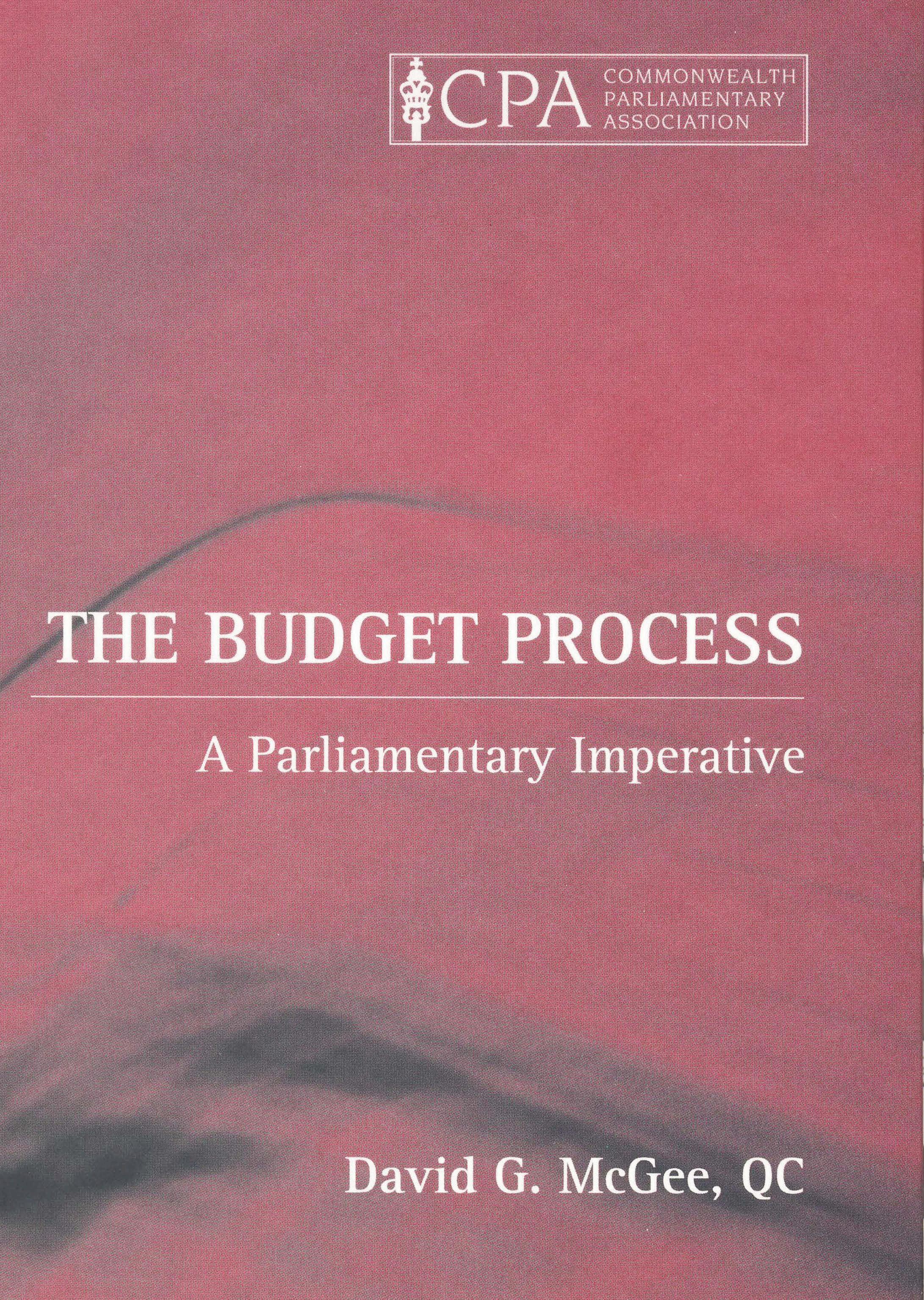
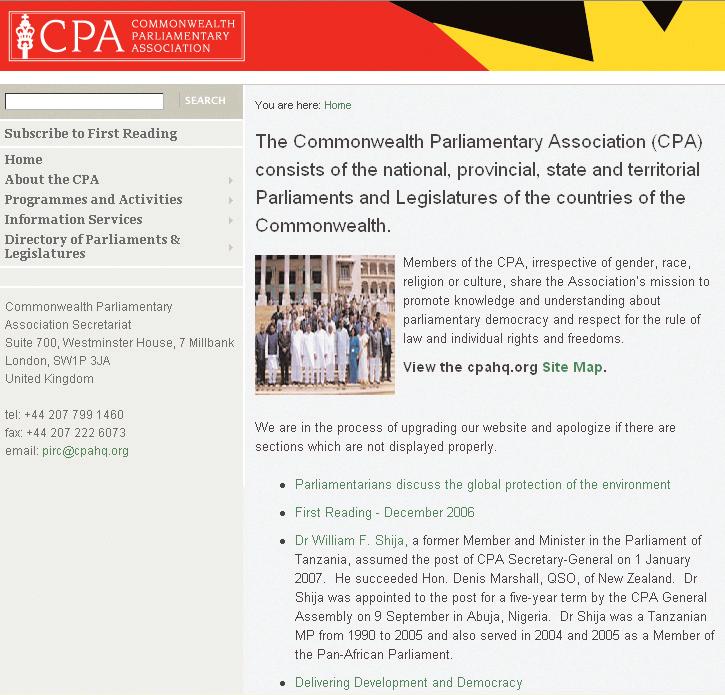
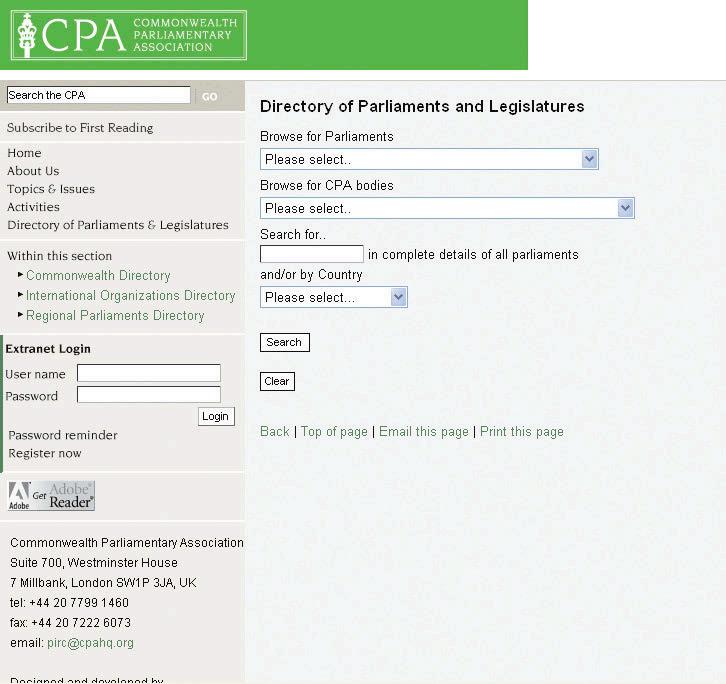
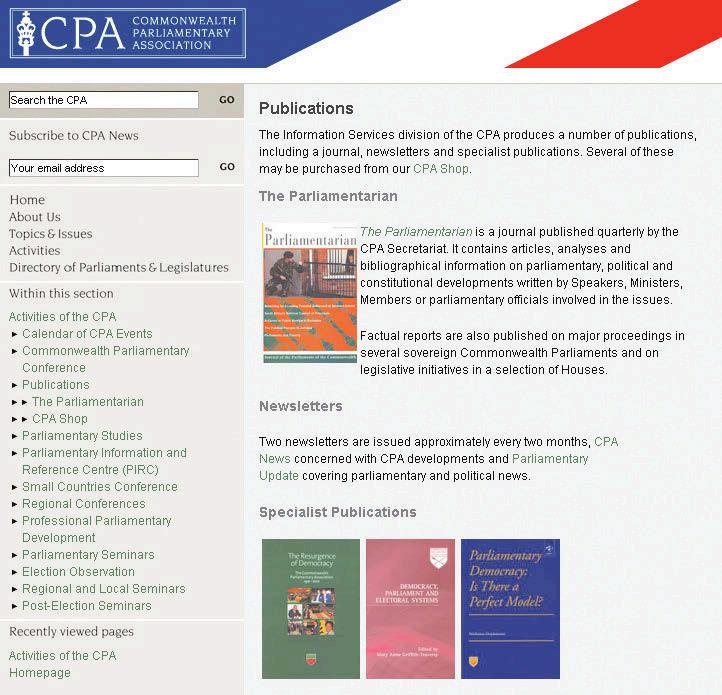
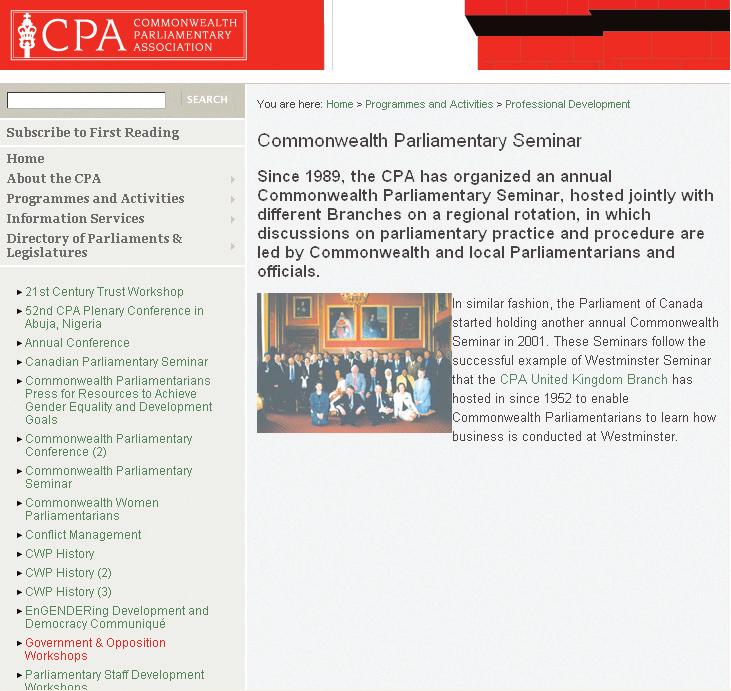
Reports on parliamentary developments, election results and CPA advances in good parliamentary and governmental practice, written specifically for the Commonwealth parliamentary community, are published regularly in FirstReading, the new CPA newsletter. They can now be delivered direct to Members’ and officials’ email inboxes, free of charge, the instant FirstReading is published.
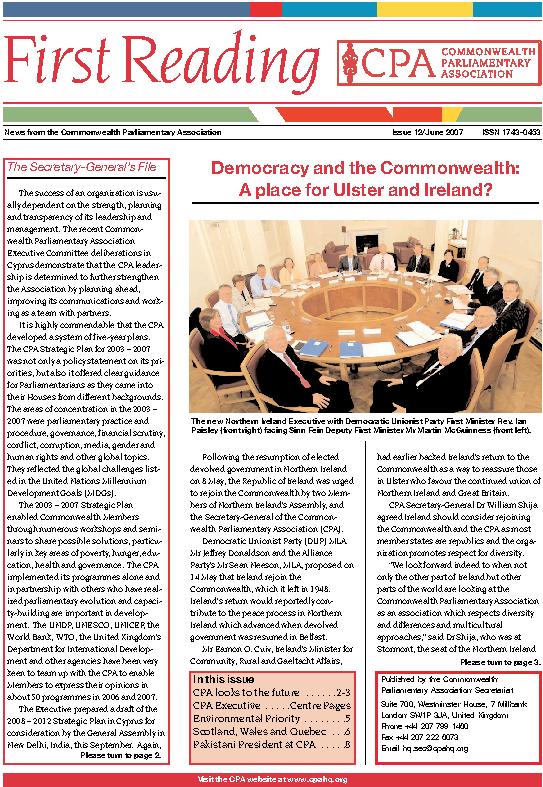
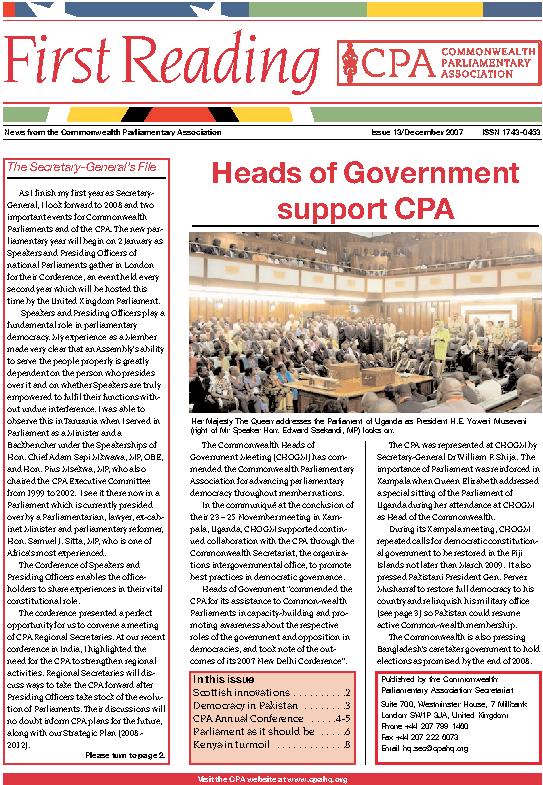
Commonwealth Parliaments and Legislatures and Commonwealth Parliamentary Association initiatives make news which affects the way Members and parliamentary officials look at the world, their Houses and their roles in both. But that news is hard to extract from today's mass media, even with the best Internet resources.
Now, finding the news that matters to Members - and only the news that matters - is just a click away with the electronic version of FirstReading.